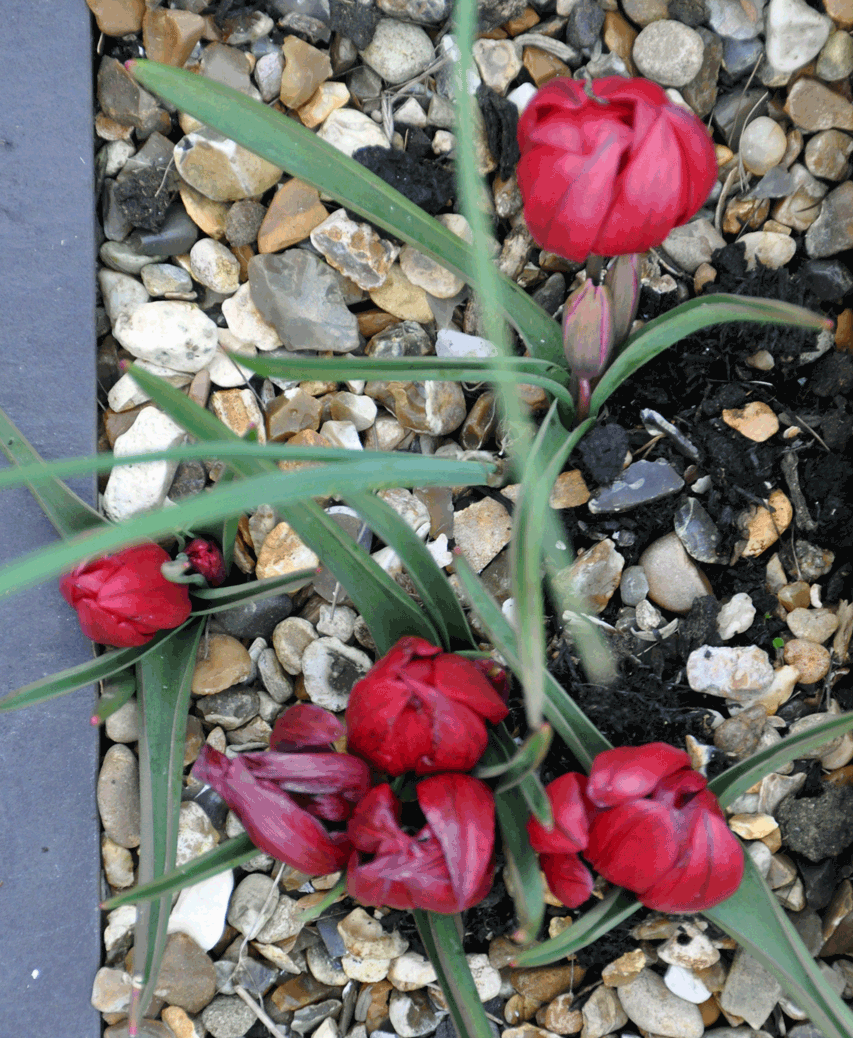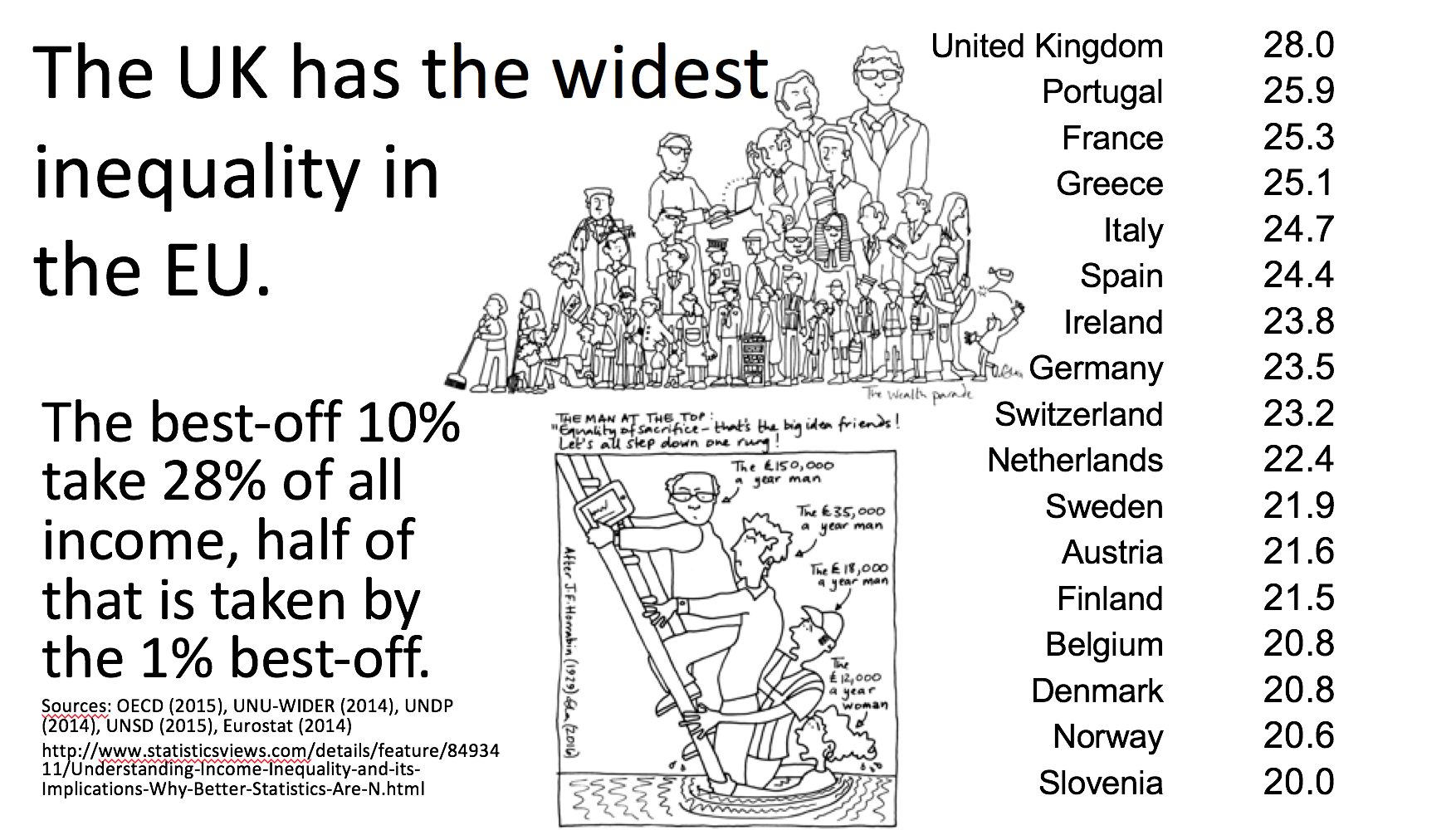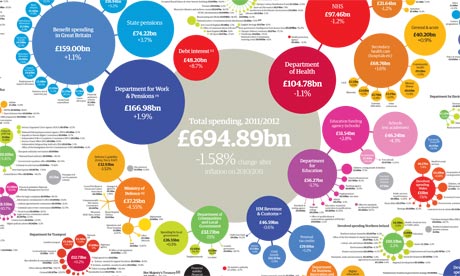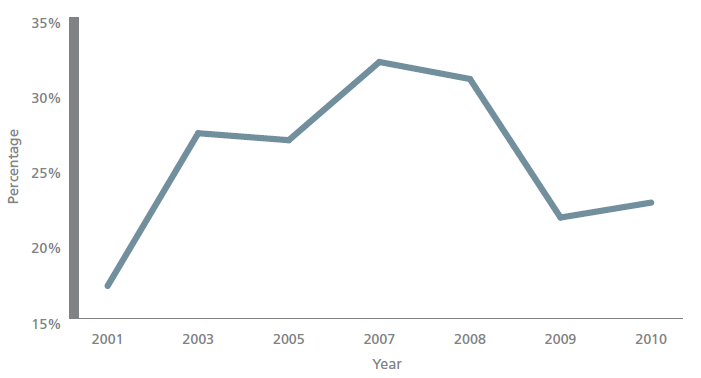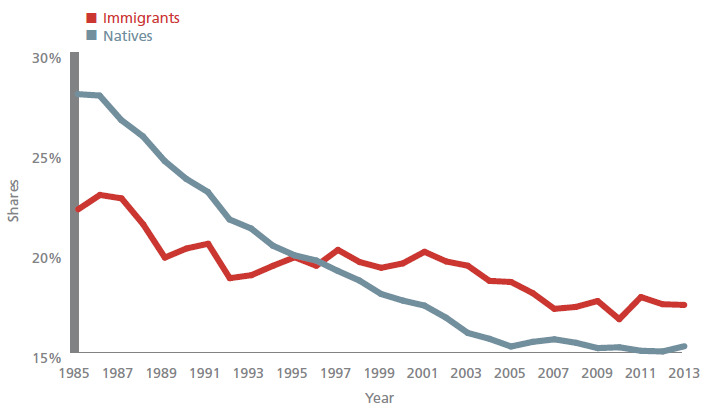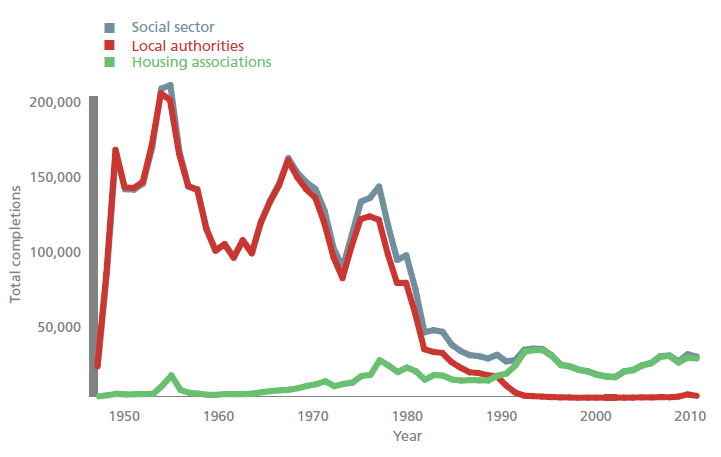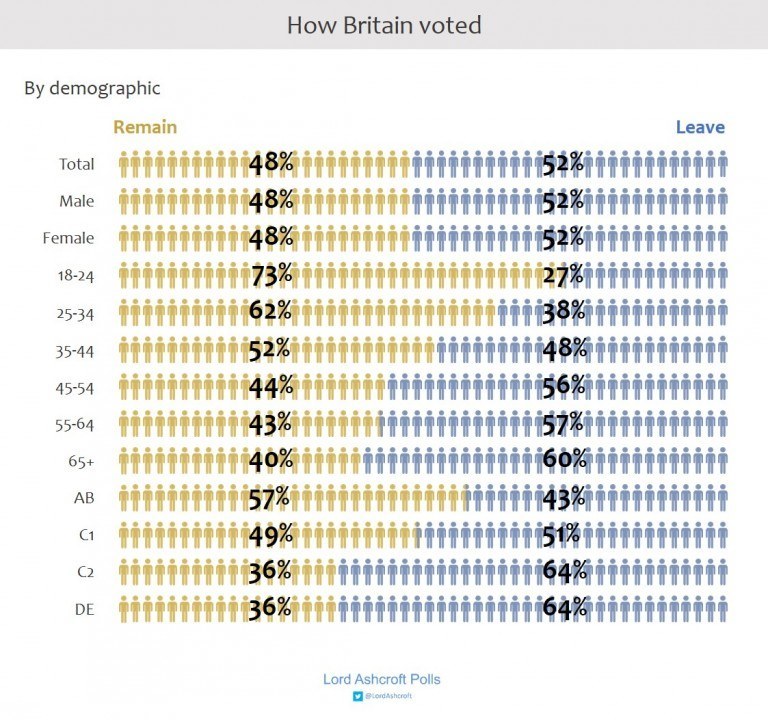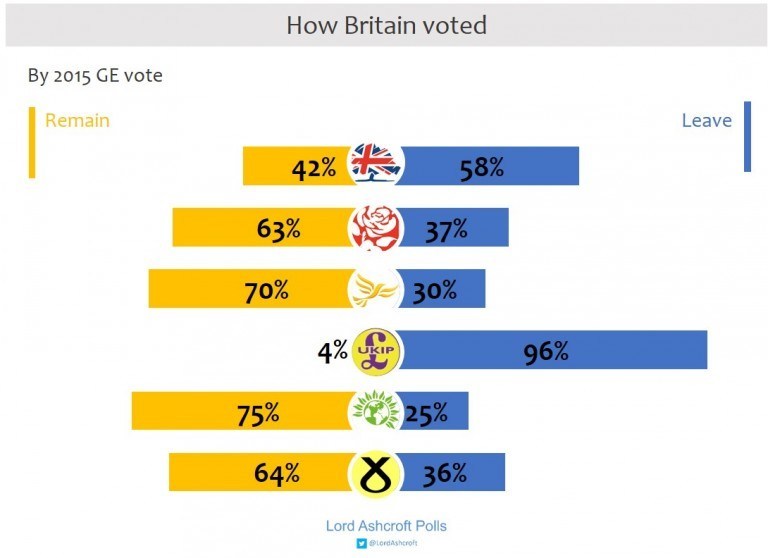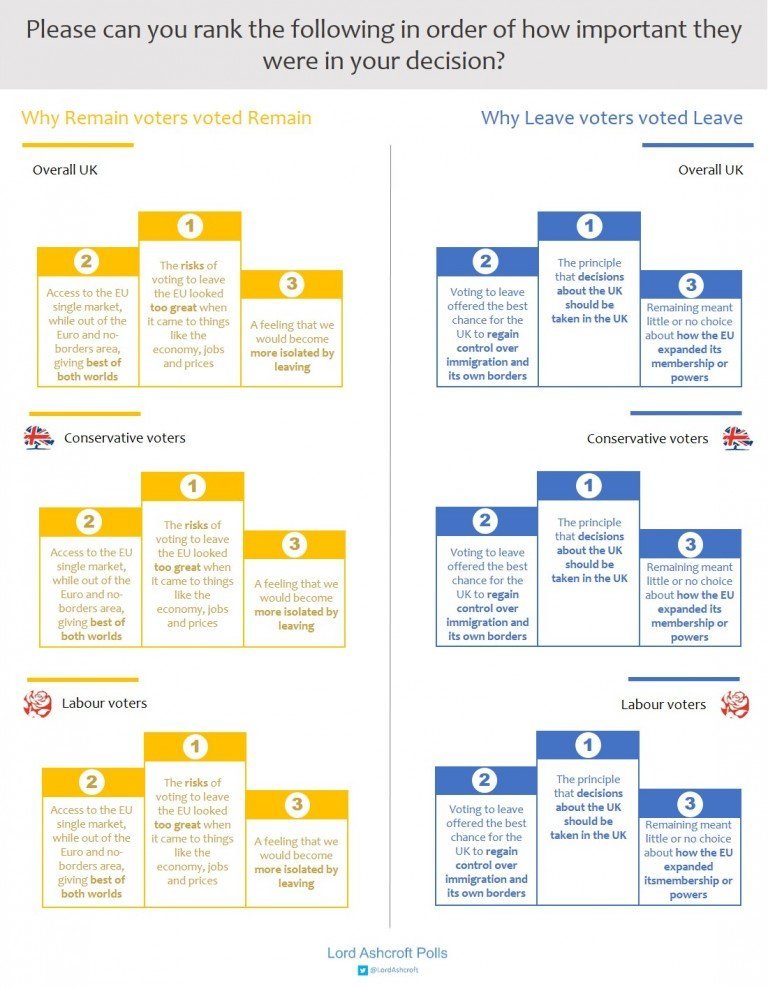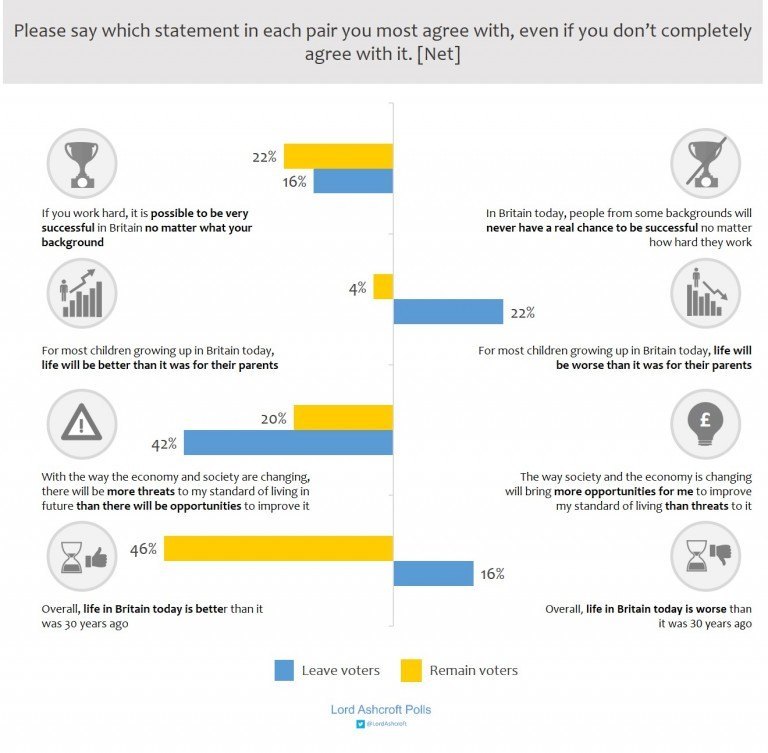-
January
1st January: Words Words are important. Without words, we can’t express ideas, thoughts and theories. Apparently in Icelandic there are hundreds of words meaning snow, though a quick google search suggests around 50. In Welsh, there are similarly many words for rain, rather fewer for sunshine.

What is perhaps most surprising is that most of them are single descriptive words for almost all states from drizzle to pouring and worse. Although there are words for “spotting”, “big spaced drops”, “short sharp showers”, it is for the more serious rain that the language comes into its own. So there are different single words that translate as “pouring very quickly,” “throwing it down” and “fierce rain.” Moving up a gear at least in the quantity of water coming down there are additional single words that mean “sheets of rain”, “fountain rain”, “beating rain”, “bucketing rain” and “maximum intensity rain.” (Joe Moran’s blog: Welsh words for rain).
Old words suggest what was signficant years ago, providing a clue to a long gone mindset. New words suggest new ways of thinking, or the priorities in the culture. There are tribes living in the Namibian deserts that have no word for green. When the people were tesetd with colour charts, they couldn’t distinguish between blue and green colours on a chart. In Welsh, the word for green (gwyrdd) is relatively new. A local town, called Greenfield would be translated as Blue Field or Maes Glas, from the original Welsh
So I read an article in the Guardian recently that essentially provided a lexicon for gender words and acronyms that became significantly more commonplace in 2015.
- LGBTQ is lesbian, gay, bisexual, transgender and queer;
- GSM is gender and sexual minorities;
- DSG is diverse genders and sexualities.
- Quiltbag is questioning, undecided, intersex, lesbian, trans, bisexual, asexual (or allied) and gay (or genderqueer).

I’m familiar with the first and prefer the last as a catch all phrase mainly because there’s some vague chance of me remembering it. My daughter shrugs her shoulders as she walks by and smiles her “let’s patronise the old fogies smile” Some of it is straightforward even for a doddery old fogey like me. Lesbian, gay and bisexual are pretty mainstream words though some of the commnentary I’ve read suggests that lesbian and gay groups are sometimes less than welcoming to the bisexual company, something along the line of “pick a side”. For me it seems more likely that there isn’t a side to pick but rather more of a spectrun or sliding scale. I guess it’s an argument that we’re all somewhere on the sexually fluid scale. I’m coming to terms with the idea that gender is also more fluid than the stereotypes allow. Cis-gender describes a person whose gender identity, gender expression and biological sex all allign (eg. man, masculine and male). Transitioning is the term used to describe the process of moving from one sex or gender to another.  Bi-gender is the word increasingly used to describe one who fluctuates between traditional masculine and feminine gender based behaviours, someone who could identify with both genders or indeed a third gender. I’ve heard the phrase non bi-normative but a simple bi-gender seems to work better in terms of rejecting the initial traditional role structure and still leaving a lot of personal space. Genderqueer is a catch all phrase for gender identities other than man and woman. And so far so good – but then we reach some words and consequently ideas that feel newish. Asexual describes a person who identifes as being not sexually attracted to anyone. Not at all. There are people I know who seem fundamentally uninterested in sex, and times of my own life when sex hasn’t seemed very important but it’s never seemed an especially natural or normal state of being. Girlfriends uninterested in sex seem almost inevitably quite repressed, unfamiliar and uncomfortable with the general layout of their genitalia and definitely not people who have ever had an orgasm. Does that make them asexual or traumatised by a puritan upbringing? Does it matter why we have the sexuality that we have? If people are happy with their asexual state, isn’t it simply inappropriate to try to “treat” their lack of sexuality as if it were a condition?
Bi-gender is the word increasingly used to describe one who fluctuates between traditional masculine and feminine gender based behaviours, someone who could identify with both genders or indeed a third gender. I’ve heard the phrase non bi-normative but a simple bi-gender seems to work better in terms of rejecting the initial traditional role structure and still leaving a lot of personal space. Genderqueer is a catch all phrase for gender identities other than man and woman. And so far so good – but then we reach some words and consequently ideas that feel newish. Asexual describes a person who identifes as being not sexually attracted to anyone. Not at all. There are people I know who seem fundamentally uninterested in sex, and times of my own life when sex hasn’t seemed very important but it’s never seemed an especially natural or normal state of being. Girlfriends uninterested in sex seem almost inevitably quite repressed, unfamiliar and uncomfortable with the general layout of their genitalia and definitely not people who have ever had an orgasm. Does that make them asexual or traumatised by a puritan upbringing? Does it matter why we have the sexuality that we have? If people are happy with their asexual state, isn’t it simply inappropriate to try to “treat” their lack of sexuality as if it were a condition?

A pansexual person is one who experiences sexual, romantic, physical or spiritual attraction for members of all gender identities and expressions whilst a skoliosexual person is one attracted to genderqueer and transsexual people. FtM/F2M; MtF/M2F are the abbreviations for female-to-male and male to female transgender or transsexuals. Questioning is word given for the process of exploring one’s own sexual orientation which sounds a bit like being a teenager or standard university student. Third gender is either a persona who doesn’t identify with the traditional genders of male or female, or alternatively the gender category available in some societies that recognise three or more genders. And ofcourse it is simply polite to use the words that people choose for themselves but the ideas behind them can sometimes be harder to get hold of, never mind the pronouns.  2nd January: Resolute I don’t really do resolutions. Reasearch from OVO Energy 2014 suggested the top NY resolutions were all fairly predictable.
2nd January: Resolute I don’t really do resolutions. Reasearch from OVO Energy 2014 suggested the top NY resolutions were all fairly predictable.
- Declutter the house. I’d like to commit to this one but with two teenage girls in the house, what’s the point of pretending? Their bedrooms were written off long ago. Like an Emin bed spreading it’s detritus out and about, we now resign ourselves to periodic outbreaks in the rest of the house, especially around exam times followed by mad shoving it all back through their doors.
- Save more money. Having been a mad saver all my life, this isn’t one for me either. Apparently no new NSandI Children’s Bonds have been released for three years, so my normal annual savings will have to be redirected to a kid’s ISA but that’s the extent of it. Their dad starts working again this month, so maybe my resolution should be to spend more or at least to get those jobs done around the house that were too stressful when he was in fulltime residence.
- Try new places instead of relying on old familiar bars/restaurants. In London, any old or familiar place that has survived is better than good. There’s too much competition. Having said that we need to get out more so maybe this resolution should be to revisit our weekly date nights.
- Redecorate the house or at least a room. With teenagers? Maybe one for next year, when the oldest has left for university we can re-jig the bedroom arrangements to turn the spare room into a double bedroom and her old room into a study (assuming that we can dig it out from under the clothes mountain).
- Take up a new hobby. I don’t have much time left for new hobbies, between tennis, bridge, this blog and visits to various galleries and shows. Life is good. Maybe I need to make more time for the occasional afternoon nap.
- Visit five new places that I’ve never been. As with last year, I’m thinking of photographing some bits of London for the blog. Ideas at the moment include: Camden Market, Hampton Court, Westminster Abbey, Science Museum/Natural History Museum and maybe the Houses of Parliament.
- Vow to be positive. This seems to be the most overrated of resolutions. In general my life is sweet and I have absolutely no reason to be less than cheerful so it’s pretty easy to be positive.
- Stop complaining so much. Is this the same as stop bitching? If so, it’s an impossibility. Bitching is far too entertaining and ingrained within my character to realistically adjust. On the other hand, I’m British so pretty much incapable of constructive complaints about poor service.
And rather surprisingly given the articles littering the newspapers and radio channels, there was no resolution to lose weight or become more healthy. Maybe we’re all growing a bit more realistic. 3rd January: Love Loving someone is not the same as falling in love with someone. In the mid-1960s, the psychologist Dorothy Tennov introduced the word limerence todescribe the experience of being in love. It’s a vital part of the human experience, but it’s only a prequel to a more settled state of loving someone over the months and years. According to Marshall there are six distinct stages to a couple’s relationship: limerence, blending, self-affirming, collaborating, adapting and renewing. Yet all of the stories we are told, seem to stick on that first feeling, the passion and astonishment, the falling head over heels out of control. It fades. We land. If we’re lucky we land up on our feet with someone we like as well as love.

Looking around the table at New Year’s Eve at all the other couples, it seems clear that after a couple of decades together, liking your lover becomes more important than ever. Being able to enjoy each other’s company after twenty years is harder than you might think for some people. Irritating habits become more not less annoying as the months turn to years and if you can’t respect your partner, if you don’t value them and what they have to say, then pretty soon you run out of conversation. Sooner or later you realise that you’re going to have to rub along in everyday life with this person your hormones have chosen. You adjust, and ask that they adjust their most tricky of habits. People can change, but never the big things and it’s surprising how the big things fail to be discussed until quite late in the day. Big things like religion or children can be deal breakers but little stuff, like meaness with money can turn out to be not so very little. We spend a few years rubbing each other’s corners into comfortable shapes we can live with, maybe the blending stage described by Tennov.
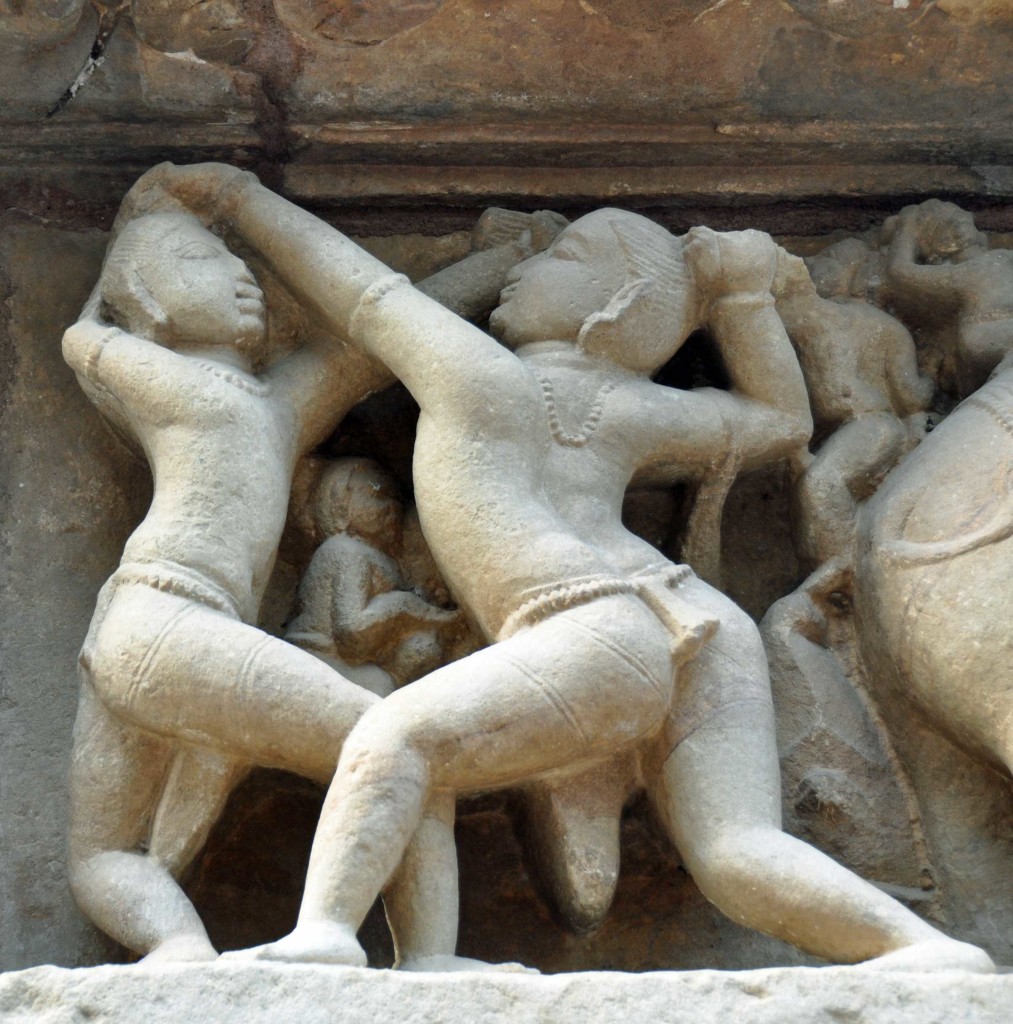
And after trying so hard to turn yourself into one half of a couple, maybe it’s only reasonable to spend the next year or so reasserting our own sense of self, redefining those bit of us that are most important to us. At this stage recovering those pieces of our character, our habits, that we value but our partners detest or despise can throw the whole relationship into question. Working together in a relationship, collaborating in a partnership especially as parents, or building a life and home together, or coping with elderly parents, sickness and loss can take up a lot of time and personal resources. It can distract from the emotional engagement so addictive in the first stage of falling in love. But our lives follow such strange and unpredictable paths that we’re forced to adapt ourselves constantly to changing circumstances, changing expectations. I’m left wondering whether a mid-life crisis is the failure to adapt, to come to terms with a less than heroic, less than perfect life. The ability to see each other anew, to renew and re-engage with each other over time is supposed to be key to continuing to be happily married as the years go by. Looking around the table, it’s not clear how many of the couples actually liked what they saw in their partners, or indeed if they could even be bothered to look.

4th January: Almost a Recipe I was given two cookery books for Christmas, Simply Nigella and Nigel Slater’s A Year of Good Eating. The latter is a diarised cookbook with recipes for each month of the year and whilst the recipes are always worth a read, the narrative is also very engaging. Most of us only buy cookbooks to look at the pictures I’m told but this year I plan to try both of my new books. Since I made so little headway with the recipes in his last book, I might allocate one day of the month to be “Nigel” day and make myself choose one. For January, the only vegetarian(ish) suggestion is a tart, rich with cream, eggs, cheese and cornichon. We’ll leave the salami out to make a vegetarian option, maybe replacing it with some porcini. Last year there were more options, essentially salads and soups. A salad of fennel, winter leaves and parmesan might be just the thing to go with the tart, or maybe bulghur wheat with aubergine and mint. The Nigella book has already had an outing, with “make ahead mash” being taken over to BF2 for the New Year’s Eve supper. Lawson’s book is full of “almost” recipes, recipes that are almost too simple to be called recipes at all. The make ahead mash is a good example, being essentially mashed potatoes with a breadcrumb topping. It’s easy to dismiss, but actually the parmesan breadcrumb and butter topping does make it into something that you can easily put aside and reheat to order at a party. It makes mash better. It tastes good and is useful for those ridiculous situations when a friend says please bring an side dish for 19 people. As well as the standard mezze selection, Nigella suggested crumbling feta with some soused (stored under vinegar) red onions, pomegranate seed and advocado. It looked pretty enough but I wasn’t hugely convinced when it first went out. After a couple of minutes, the flavours seemed to settle in to each other and, like all of Nigella’s dishes, it looked beautiful. Still, does mixing a plate of cheese, fruit and vegetables count as a recipe? Mostly though I look to old favourite recipe ideas, and for mezze Claudia Roden is quite a good place to start. A recipe for hummus is pretty basic: chickpeas, tahini, garlic and lemon can’t really be made complicated and is always a good place to start. Onions with tamarind was tweaked and became mixed bean salad with tamarind. A suggestion for a yoghurt dip became labneh, strained yoghurt with mint and lemon. The problem with all of this playing about with recipes is a total inability to ever remake exactly the same dish twice but at least I get to forget the disasters.
The Nigella book has already had an outing, with “make ahead mash” being taken over to BF2 for the New Year’s Eve supper. Lawson’s book is full of “almost” recipes, recipes that are almost too simple to be called recipes at all. The make ahead mash is a good example, being essentially mashed potatoes with a breadcrumb topping. It’s easy to dismiss, but actually the parmesan breadcrumb and butter topping does make it into something that you can easily put aside and reheat to order at a party. It makes mash better. It tastes good and is useful for those ridiculous situations when a friend says please bring an side dish for 19 people. As well as the standard mezze selection, Nigella suggested crumbling feta with some soused (stored under vinegar) red onions, pomegranate seed and advocado. It looked pretty enough but I wasn’t hugely convinced when it first went out. After a couple of minutes, the flavours seemed to settle in to each other and, like all of Nigella’s dishes, it looked beautiful. Still, does mixing a plate of cheese, fruit and vegetables count as a recipe? Mostly though I look to old favourite recipe ideas, and for mezze Claudia Roden is quite a good place to start. A recipe for hummus is pretty basic: chickpeas, tahini, garlic and lemon can’t really be made complicated and is always a good place to start. Onions with tamarind was tweaked and became mixed bean salad with tamarind. A suggestion for a yoghurt dip became labneh, strained yoghurt with mint and lemon. The problem with all of this playing about with recipes is a total inability to ever remake exactly the same dish twice but at least I get to forget the disasters.  5th January: Tracks Over the holidays we went to quite a few parties. The day after one of them their father turned to me and asked “Did you see V’s arms?” The young teen was at primary school with my baby. Wearing a short sleeve top, there were tracks of cuts down the inside of her left arm, neat and precise. Tackling the youngest, I was told (after a lot of digging) that she’d asked and been rebuffed “It’s none of your business”. Since it was out in the open I’m hoping there’s an explanation other than self-harming, though am a bit stumped as to what it might be. Since it was clear for everyone to see, I’m hoping that even if it is self-harming, there’s parental support and help.
5th January: Tracks Over the holidays we went to quite a few parties. The day after one of them their father turned to me and asked “Did you see V’s arms?” The young teen was at primary school with my baby. Wearing a short sleeve top, there were tracks of cuts down the inside of her left arm, neat and precise. Tackling the youngest, I was told (after a lot of digging) that she’d asked and been rebuffed “It’s none of your business”. Since it was out in the open I’m hoping there’s an explanation other than self-harming, though am a bit stumped as to what it might be. Since it was clear for everyone to see, I’m hoping that even if it is self-harming, there’s parental support and help.  Just as the parenting thing seems to be settling into a routine, something that can be managed, a new disaster or worry appears and whilst this is clearly not my child, it isn’t very far from home at all. My girls tell me self-harming is really commonplace and then reel off the names of several of their friends that I have met and liked who have been involved. They know enough about it to comment on which sides of the arms hurt most, which are most dangerous. Self-harming is a coping mechanism, whereby the physical pain helps to distract from the emotional pain behind it. It can be a way for people to punish themselves for perceived wrongs or a way for someone to assert control over their own bodies. the reasons why people self harm are complicated and often unknown even to the person involved. It can become a compulsion. The chemicals released into the brain after self-harming can become addictive.
Just as the parenting thing seems to be settling into a routine, something that can be managed, a new disaster or worry appears and whilst this is clearly not my child, it isn’t very far from home at all. My girls tell me self-harming is really commonplace and then reel off the names of several of their friends that I have met and liked who have been involved. They know enough about it to comment on which sides of the arms hurt most, which are most dangerous. Self-harming is a coping mechanism, whereby the physical pain helps to distract from the emotional pain behind it. It can be a way for people to punish themselves for perceived wrongs or a way for someone to assert control over their own bodies. the reasons why people self harm are complicated and often unknown even to the person involved. It can become a compulsion. The chemicals released into the brain after self-harming can become addictive.
Another minefield opens up (Self-harm | NSPCC)
6th January: Benefits
Restricting in-work benefits to migrants will be difficult to achieve within a UK-EU negotiation but the Prime Minister can do quite a lot to reassure voters in the referndum by switching the focus from in-work benefits such as working tax credit to out-of-work benefits such as housing benefit and universal credit. While limiting the former is against EU treaties, limits on the latter are different: recent European case law confirms that benefits to unemployed EU migrants can be restricted without any treaty conflict. Limiting benefits for EU migrants who lose their job within their first three years of working in the UK would be perfectly feasible without any treaty change. Mr Cameron could also focus on setting up a EU-level fund to support local authorities and services facing pressures caused by migration on public services – as a high migration country the UK would be a net beneficiary and could use the funding to alleviate strains on schools and GPs. He can also work to toughen up the rules on removing EU migrants who pose a public safety threat by removing UK provisions designed to offer extra protections for those who have been in the UK for five years or longer. EU treaties already allow for limits on free movement “justified on grounds of public policy, public security or public health”, so there should be scope for tightening the rules. These policies are all far more feasible to deliver without treaty change than the PM’s proposals, and so are much more likely to secure support among fellow EU leaders. It won’t stop immigration and it won’t save any real amounts of money but it might soothe worried voters. Just enough. 7th January: Quotas The problem with quotas, I’m told, is that they’re fundamentally unfair, unmeritocratic. The argument comes up everytime I half heartedly suggest that maybe, just maybe, it’s time to think of setting quotas for women in politics and on the boards of companies. I’m told this with total confidence by people who seem to truly believe that they are on the side of the angels. There are a few problems with the argument.
- There is an underlying assumption that the system we currently have is meritocratic already and that to change it in this fashion makes it less so.
- It assumes that we have all agreed on a clear and objective defintion of merit.
- It assumes that gender (female) is fundamentally not a meritocratic criteria.
 The system we currently live and work within is not meritocratic. It is based on male gender, privilege and an uneven playing field. To suggest otherwise is to state rather boldly that all of those white, wealthy, middle aged men, who themselves are the sons of white middle class men, are simply better than everyone else. If the current system were a meritocracy it would mean that this tiny sub-section of society deserve to be top of the ladder because they are the best society can offer. Ever. If we believe that merit is based on inherent talent, then to suggest the current system is meritocratic is to suggest that people who fail to be represented at the top table, fail because they simply don’t deserve to be there. Women, people of colour, people from minorities, people from disadvantaged backgrounds are simply not as good, as worthy as all of those wealthy whit middle class men. That’s quite a bold, sexist and racist position for anyone to take. If we try to justify that position to referring to qualifications and experience rather than inherent talent, then we have to ask ourselves whether we are using good criteria since the criteria currently used serve to exclude so much of the population. Establishing what we mean by merit might help develop more useful criteria but it’s likely that the defintion will vary depending on who you ask. It’s also quite likely that whatever the answers given, they bear little real relationship to the ability to do the job. When hiring someone for a job, we look at who is available, who will do the job the way we want it done and someone who is likely to succeed. If we believe that career progression is largely a matter of personal choice, for example, that women self-select out of promotion making themselves unavailable then we have to ask ourselves why, and whether it is reasonable to structure our society in such a way as to exclude 52% of the population. Is this fair or meritocratic? Does it increase or decrease meritocracy in our society if we load caring responsibilities for children and elders onto women’s shoulders? Do women make a fair choice, or follow the only practical path available to them? If we believe women freely choose to earn less and accrue less authority and power than men, then we have to explain why. Are we just suggesting women are stupid, that they want to be poor, powerless and dependent? Academic defintions of candidate merit will include education, income and experience. Women tend to outperform men academically but earn lower salaries. Education, income and prior experience may be measures of achievement but they are also likely to be markers of social privilege.
The system we currently live and work within is not meritocratic. It is based on male gender, privilege and an uneven playing field. To suggest otherwise is to state rather boldly that all of those white, wealthy, middle aged men, who themselves are the sons of white middle class men, are simply better than everyone else. If the current system were a meritocracy it would mean that this tiny sub-section of society deserve to be top of the ladder because they are the best society can offer. Ever. If we believe that merit is based on inherent talent, then to suggest the current system is meritocratic is to suggest that people who fail to be represented at the top table, fail because they simply don’t deserve to be there. Women, people of colour, people from minorities, people from disadvantaged backgrounds are simply not as good, as worthy as all of those wealthy whit middle class men. That’s quite a bold, sexist and racist position for anyone to take. If we try to justify that position to referring to qualifications and experience rather than inherent talent, then we have to ask ourselves whether we are using good criteria since the criteria currently used serve to exclude so much of the population. Establishing what we mean by merit might help develop more useful criteria but it’s likely that the defintion will vary depending on who you ask. It’s also quite likely that whatever the answers given, they bear little real relationship to the ability to do the job. When hiring someone for a job, we look at who is available, who will do the job the way we want it done and someone who is likely to succeed. If we believe that career progression is largely a matter of personal choice, for example, that women self-select out of promotion making themselves unavailable then we have to ask ourselves why, and whether it is reasonable to structure our society in such a way as to exclude 52% of the population. Is this fair or meritocratic? Does it increase or decrease meritocracy in our society if we load caring responsibilities for children and elders onto women’s shoulders? Do women make a fair choice, or follow the only practical path available to them? If we believe women freely choose to earn less and accrue less authority and power than men, then we have to explain why. Are we just suggesting women are stupid, that they want to be poor, powerless and dependent? Academic defintions of candidate merit will include education, income and experience. Women tend to outperform men academically but earn lower salaries. Education, income and prior experience may be measures of achievement but they are also likely to be markers of social privilege.  One common denominator in assessing “quality” or “merit” is that we tend to base our assessment on the status quo. We look at existing successful people and how they became successful as a guideline for future successful candidates. The result is that we tip the playing field by favouring criteria that have already advantaged men and will continue to do so. There is no objective measure of merit. When we argue that women, or any other under-represented group, have less “merit” than those in office, we are simply saying that they do not reproduce the status quo. And yet, by a different measure, that might be the very thing that makes them good candidates. We need to think about what it means to represent others. Do we want our representatives to be better than us, or the same as us? The world is changing ever more rapidly around us. Do we want to be led by the brightest and best or just the brightest and best white wealthy men? To effect change, gender would seem to be a very valid criteria in moving towards a meritocracy. When people argue against gender quotas in favour of merit, what they are actually defending is the staus quo. They are arguing for a system based on male gender and privileged status, using criteria that discriminate against talented individuals from non-traditional backgrounds. The status quo actually undermines meritocracy. It cannot be defended.
One common denominator in assessing “quality” or “merit” is that we tend to base our assessment on the status quo. We look at existing successful people and how they became successful as a guideline for future successful candidates. The result is that we tip the playing field by favouring criteria that have already advantaged men and will continue to do so. There is no objective measure of merit. When we argue that women, or any other under-represented group, have less “merit” than those in office, we are simply saying that they do not reproduce the status quo. And yet, by a different measure, that might be the very thing that makes them good candidates. We need to think about what it means to represent others. Do we want our representatives to be better than us, or the same as us? The world is changing ever more rapidly around us. Do we want to be led by the brightest and best or just the brightest and best white wealthy men? To effect change, gender would seem to be a very valid criteria in moving towards a meritocracy. When people argue against gender quotas in favour of merit, what they are actually defending is the staus quo. They are arguing for a system based on male gender and privileged status, using criteria that discriminate against talented individuals from non-traditional backgrounds. The status quo actually undermines meritocracy. It cannot be defended. 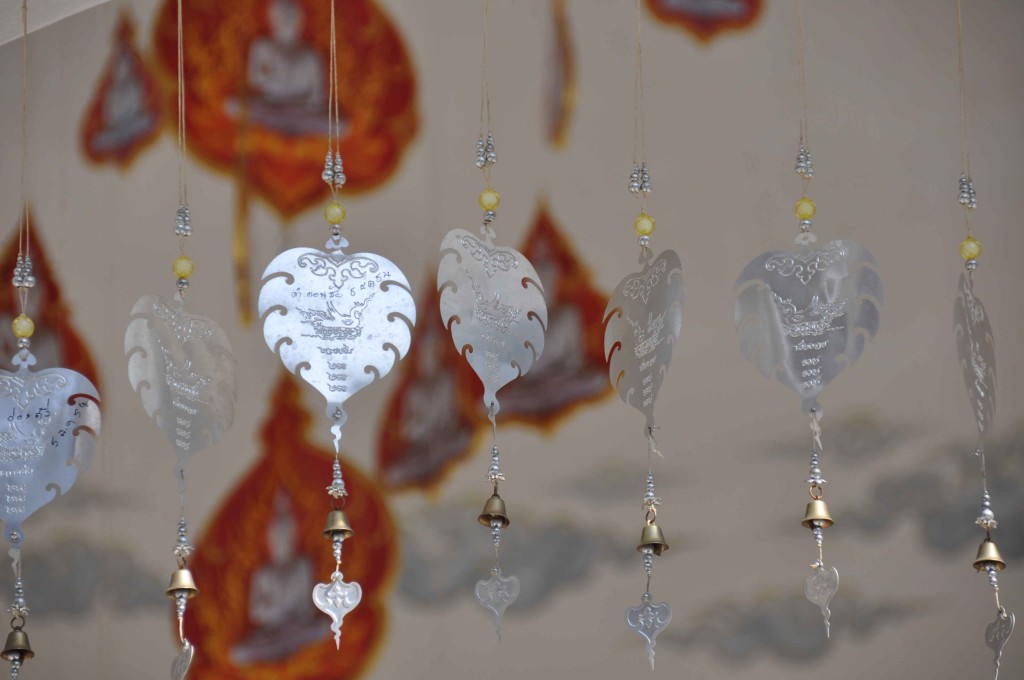 8th January: Leadership Jeremy Corbyn, the leader of the main opposition party, the Labour Party was elected as the Member of Parliament for Islington North since 1983 and was elected Labour Leader in 2015. Corbyn’s election was a surprise. The leader electionship process was recently overhauled in an attempt to make it more democratic, to allow the entire membership (around 270,000) of the Labour Party to vote, choosing from a shortlist selected by Labour MPs. This is a very small number relative to the UK population as a whole. Only 1% of the UK population is a member of any political party. At the time of the competition to become leader, he was struggling to make the selection. Under the contest’s rules, he needed the support of 35 MPs – 20% of the parliamentary party – to be nominated and to get onto the ballot paper. This looked unlikely as he hovered around the 30 mark close to the deadline in mid-June.
8th January: Leadership Jeremy Corbyn, the leader of the main opposition party, the Labour Party was elected as the Member of Parliament for Islington North since 1983 and was elected Labour Leader in 2015. Corbyn’s election was a surprise. The leader electionship process was recently overhauled in an attempt to make it more democratic, to allow the entire membership (around 270,000) of the Labour Party to vote, choosing from a shortlist selected by Labour MPs. This is a very small number relative to the UK population as a whole. Only 1% of the UK population is a member of any political party. At the time of the competition to become leader, he was struggling to make the selection. Under the contest’s rules, he needed the support of 35 MPs – 20% of the parliamentary party – to be nominated and to get onto the ballot paper. This looked unlikely as he hovered around the 30 mark close to the deadline in mid-June.  Yet, he managed to get over the threshold with minutes to spare. The reason he did so was that a number of MPs – including some with diametrically opposed views – “lent” him their votes. At the time, they argued Labour needed the widest possible debate after its election defeat and it would be wrong if the left of the party was excluded. The Labour Party undoubtedly moved to the left under it’s previous leader Ed Miliband, perhaps to a greater extent than the Westminster media and political establishment realised at the time. This was accompanied by a rise in grassroots campaigning outside of the labour Party itself. The rise of the anti-austerity movement would have had a minimal impact on the Labour leadership contest but for the change in Labour’s leadership contest rules in 2014. These were heralded as a way of reducing the influence of the trade unions but it also allowed anyone to take part in ballots for a £3 fee. It received little attention at the time but nearly 200,000 people have taken advantage of it (remember total membership is only 270,000). Jeremy Corbyn’s road to leadership was undoubtedly made easier by the absence of heavy-hitting rivals. The pool of potential opponents had already been reduced by Labour’s election losses while senior figures within the party – including deputy leader Harriet Harman and former home secretary Alan Johnson – quickly ruled themselves out of the contest. The party’s “next generation” – those elected in 2010 and since – also largely decided to sit out the fight (Chuka Umunna, Dan Jarvis etc). Corbyn was able to identify his opponents as part of the problem.
Yet, he managed to get over the threshold with minutes to spare. The reason he did so was that a number of MPs – including some with diametrically opposed views – “lent” him their votes. At the time, they argued Labour needed the widest possible debate after its election defeat and it would be wrong if the left of the party was excluded. The Labour Party undoubtedly moved to the left under it’s previous leader Ed Miliband, perhaps to a greater extent than the Westminster media and political establishment realised at the time. This was accompanied by a rise in grassroots campaigning outside of the labour Party itself. The rise of the anti-austerity movement would have had a minimal impact on the Labour leadership contest but for the change in Labour’s leadership contest rules in 2014. These were heralded as a way of reducing the influence of the trade unions but it also allowed anyone to take part in ballots for a £3 fee. It received little attention at the time but nearly 200,000 people have taken advantage of it (remember total membership is only 270,000). Jeremy Corbyn’s road to leadership was undoubtedly made easier by the absence of heavy-hitting rivals. The pool of potential opponents had already been reduced by Labour’s election losses while senior figures within the party – including deputy leader Harriet Harman and former home secretary Alan Johnson – quickly ruled themselves out of the contest. The party’s “next generation” – those elected in 2010 and since – also largely decided to sit out the fight (Chuka Umunna, Dan Jarvis etc). Corbyn was able to identify his opponents as part of the problem.  Although 20 years older than his rivals, his ability to appeal to idealistic young people, excited by his anti-austerity message and rejection of decades-long orthodoxies, also took the Westminster establishment by surprise and marked him out from his opponents. So he was elected leader of a party by young idealists, new to the party membership and in the face of opposition of most of his own MPs. His first shadow cabinet was a combination of old friends and compromises and rapidly came under stress, notably on defence, because Mr Corbyn does not hold safe mainstream views. He was forced to allow a free vote on the proposal in parliament to bomb Syria, and then had to listen to a number of his peers directly oppose his own position, notably Hilary Benn He has just completed a reshuffle of his team with six new appointments, many recently elected MPs suggesting a sad lack of support amongst the more experienced and senior members of the party. Three of the new appointments were required because 3 MPs resigned from his cabinet in protest at his initial reorganisation and sacking of peers. People he would have left in their jobs, resigned and gave up their senior roles and higher salary, rather than work with him.
Although 20 years older than his rivals, his ability to appeal to idealistic young people, excited by his anti-austerity message and rejection of decades-long orthodoxies, also took the Westminster establishment by surprise and marked him out from his opponents. So he was elected leader of a party by young idealists, new to the party membership and in the face of opposition of most of his own MPs. His first shadow cabinet was a combination of old friends and compromises and rapidly came under stress, notably on defence, because Mr Corbyn does not hold safe mainstream views. He was forced to allow a free vote on the proposal in parliament to bomb Syria, and then had to listen to a number of his peers directly oppose his own position, notably Hilary Benn He has just completed a reshuffle of his team with six new appointments, many recently elected MPs suggesting a sad lack of support amongst the more experienced and senior members of the party. Three of the new appointments were required because 3 MPs resigned from his cabinet in protest at his initial reorganisation and sacking of peers. People he would have left in their jobs, resigned and gave up their senior roles and higher salary, rather than work with him.  Why is Corbyn so unpopular? First whilst it’s clear that he was elected with a tremendous majority from within the Labour Party, this was only after a huge influx of new people, voting on-line at relatively little cost. It is not at all clear that this new enthusiasm will translate into the kind of doorstopping, leaflet pushing campaigning that works to get a political party elected into power. Nor is it clear that the new members accurately reflect broader society. So the existing party infrastructure distrusts Jeremy Corbyn’s initial mandate.
Why is Corbyn so unpopular? First whilst it’s clear that he was elected with a tremendous majority from within the Labour Party, this was only after a huge influx of new people, voting on-line at relatively little cost. It is not at all clear that this new enthusiasm will translate into the kind of doorstopping, leaflet pushing campaigning that works to get a political party elected into power. Nor is it clear that the new members accurately reflect broader society. So the existing party infrastructure distrusts Jeremy Corbyn’s initial mandate.
A recent YouGov poll suggests that Corbyn is the least popular opposition leader, ever (YouGov | Analysis: Corbyn is Britain’s least popular new …) through polling of the broader population. It suggests that he is largely unelectable at the next election, which makes the political party distrust his leadership even further.
Jeremy Corbyn is not mainstream Labour. In the more than 30 years since his first election to Parliament, the 66-year-old has remained uncompromising in his beliefs. It is perhaps no wonder Mr Corbyn is unpopular with the whips (the party enforcers): since 2005 he has defied them by voting against the party line on more than 500 occasions, an astonishing 25 per cent of the time. This history of dissent makes it difficult for him to enforce consistency within the party now he’s leader.
 So whilst the Prime Minister David Cameron has been forced into the extraordinary position of allowing his cabinet (members of the government) a free vote on Eu membership, that is, members of the government to campaign against the government itself, we are sidetracked into a debate about the opposition leadership failures.
So whilst the Prime Minister David Cameron has been forced into the extraordinary position of allowing his cabinet (members of the government) a free vote on Eu membership, that is, members of the government to campaign against the government itself, we are sidetracked into a debate about the opposition leadership failures.
Instead of looking at the lack of consensus, arguably a lack of power and authority within the government itself, we are once again distracted by stories describing an opposition debacle.
Pretty Pictures
Just read an article by Jennifer Moss (As Subtle as the Pose ) looking at the way women appear in adverts. In it she identifes the type of poses that women models are expected to adopt:  “A. SCARED/VICTIM – She’s looking over her shoulder or her facial expression is frightened. She has her hands up in protective or shielding position. She’s pulling away from a man. She’s dead. Any image depicting the woman as victim. B. POSITIONED FOR SEX/UNDRESSED – She is set up for sex: lying supine or close to it. Her legs are spread. She’s on a bed. She’s in a state of undress in which she wouldn’t (realistically) be allowed in public. Something is in her mouth. C. NON-THREATENING/DEMURE/CHILDLIKE – Head angled. Eyes looking away, down. The classic “hunch” pose of the upper torso. Body is not square to the camera. Chin is down. Body language depicting submission, weakness. D. OBJECTIFIED/NON-HUMAN/ONE OF MANY – No face or her face is obscured. A group of women all dressed and made up the same. No individuality. A product.” Now I’m looking through my magazines and newspapers and can’t quite put the four submissive images out of mind. Victim/Sex/Child/Object 9th January: Debt I dislike debt. For a woman who has spent an awful lot of money over the years, I’ve managed to have no debt outstanding. My credit cards are paid off monthly. My mortgage (house loan) has been repaid. Clearly I’ve been lucky. Avoiding debt is a lot easier if you earn serious amounts of money and work extraordinarily long hours so can’t find time to spend it all. It doesn’t make up for a miserable life and there’s only so long you can keep that sort of life going before it destroys your soul.
“A. SCARED/VICTIM – She’s looking over her shoulder or her facial expression is frightened. She has her hands up in protective or shielding position. She’s pulling away from a man. She’s dead. Any image depicting the woman as victim. B. POSITIONED FOR SEX/UNDRESSED – She is set up for sex: lying supine or close to it. Her legs are spread. She’s on a bed. She’s in a state of undress in which she wouldn’t (realistically) be allowed in public. Something is in her mouth. C. NON-THREATENING/DEMURE/CHILDLIKE – Head angled. Eyes looking away, down. The classic “hunch” pose of the upper torso. Body is not square to the camera. Chin is down. Body language depicting submission, weakness. D. OBJECTIFIED/NON-HUMAN/ONE OF MANY – No face or her face is obscured. A group of women all dressed and made up the same. No individuality. A product.” Now I’m looking through my magazines and newspapers and can’t quite put the four submissive images out of mind. Victim/Sex/Child/Object 9th January: Debt I dislike debt. For a woman who has spent an awful lot of money over the years, I’ve managed to have no debt outstanding. My credit cards are paid off monthly. My mortgage (house loan) has been repaid. Clearly I’ve been lucky. Avoiding debt is a lot easier if you earn serious amounts of money and work extraordinarily long hours so can’t find time to spend it all. It doesn’t make up for a miserable life and there’s only so long you can keep that sort of life going before it destroys your soul.
Do we need to worry about UK household debt levels? OWEN JONES, who often writes for The Guardian, wrote an article on household debt just before Christmas. Like many other people it started with the idea that Britain’s household debt is getting out of control. The Bank of England released new figures recently, showing that mortgage and credit-card lending is growing rapidly. Jones argued that the “latest figures confirm Britain’s supposed economic recovery rests on a personal debt timebomb”. The implication in the article was that Osborne caused this debt reversal through poor management of the economy. However, this kind of reversal is to be expected as you move out of a recession. When times are tough, people save because they are scared. They’d rather pay down their debts than take on new ones. When the recovery happens, people feel happier about borrowing. The implication from Jones, of course, is that Britons are in more debt than ever:
Earlier this year, the Centre for Social Justice – set up by Iain Duncan Smith himself – reported that total household debt had soared to £1.47tn, the highest level ever.
But reporting household debt figures in nominal terms is poor practice. It’s better to report the figures in inflation-adjusted terms; but even better to report them relative to the incomes that need to pay them down. By that measure, household debt has fallen by about 20% since the end of the recession.
More recently total debt has recently increased by £40 billion (see Economist graphic) growing by about 3%, roughly the same rate as earnings are growing. When adjusting for income, British household debt is not really growing at all.
In 2013, only three other countries out of 53 surveyed had higher total household debt; per capita, Britain came 11th.
The first fact is meaningless since the British economy is a large one so total household debt in Britain is bound to be fairly high up the global rankings (above Britain are China, Japan and America). On the per-capita ranking, Britain is not low down but neither is it ridiculous.
I dislike debt. I regret the fact that the average household has debt totalling more than £50,000 (£6,000 excluding mortgages) but despite this seemingly huge amount we owe, the average Briton has a net worth of nearly £150,000 (Average British person has net worth of £147134 – Daily Mail). I’m guessing that this is more a reflection of the UK’s dysfunctional housing market than a hidden investment portfolio. Let’s face it you can’t eat the house, or even sell it since we all need a place to live but still…
There are enough real economic problems without scratching around for false worries. Let’s talk about the government’s failure to build more houses, underinvestment in infrastructure, failing to improve poor export growth etc.
10th January: Angry
We often tell people in difficult circumstances not to get angry, especially women. Anger is an ugly emotion and often seen and understood as a character failure rather than a valid emotional response closely related to fear. We are often told not to get angry, even when our anger is righteous or merited such as when we’re in the process of being made redundant, when our relationships break-up, when we feel betrayed or let down. And when we are angry, being told to stop feeling this way is simply not helpful. The difficulty with feeling angry is not the feeling itself so much, as what to do with it. There’s been a lot of anger about in the workplace during the recent recession. Job insecurity makes people feel fearful. Often, particularly for men, fear becomes anger very quickly. A new report “Delivering Male” by the National Mental Health Development Unit explains the additional difficulties that men have in disclosing depression and their symptoms can sometimes be unexpectedly angry, such as drink and aggressive behaviour.

Just because someone is frightening you it doesn’t mean that they themselves are not frightened. And the problems get worse in the workplace where we are not supposed to admit to being afraid or vulnerable, rather we tend to exhibit more aggressive and assertive characteristics. No wonder then, that there are so many angry people at work, angry people looking for scapegoats. Because anger is often associated with the process of projection, where people try to rid themselves of their own angry and aggressive feelings by projecting them onto other people, usually people unlike themselves, people from minorities, women etc. Much of the work around wellbeing and resilience at work is based on positive psychology, particularly the work of Martin Seligman and the PENN resilience programme – promoting the idea that optimism is an essential and learned behaviour that promotes wellbeing and resilience. Ofcourse there’s considerable debate about the value of this approach, specifically whether it denies the reality of people’s experience. In a context of job insecurity, victimisation and workplace bullying being told to focus on positive thoughts and breathing exercises can be highly provocative since it denies the significance of what can go wrong at work. In this context optimism and positive thinking are a poor response to feelings of anger and hopelessness.

So maybe we need to recognise that anger is necessary to the process of change. The energy and focus that you have when you are angry can be useful in challenging things that we think are wrong, in challenging the unfair and unreasonable and maybe anger is a necessary spur towards moving forwards with our own lives. Anger may be one reason why some people experience depression and others don’t. If you can get angry you are really living, really experiencing and reacting to what is going on around you. Depression is a numbing process, often to try to avoid feelings of sadness and anger. Depression is essentially an experience of hopelessness. Anger is not the worst emotion to feel. If you’re angry, you’re also hopeful that things should and could change. 12th January: House Divided Western governments condemned the Saudi authorities over the recent execution of a cleric who was revered among the Shia minority in the kingdom’s eastern region. Both America and the EU said the death sentence was not only a violation of free speech and due process; it was also likely to fuel sectarian tension across the region.
Tensions flared almost immediately between Saudi Arabia (Sunni) and Iran (Shia). These two countries are already at loggerheads over the civil wars of Syria and Yemen, where they support opposing sides. Demonstrators attacked Saudi Arabia’s embassy in Tehran on Saturday evening, setting the building on fire before police pushed them back. Iran’s leader, Ayatollah Ali Khamenei, declared that the Saudi’s would face “divine revenge” for putting to death a peaceful cleric. Sheikh Nimr al-Nimr, one of 47 people whose execution was announced at the weekend, had “neither invited people to [an] armed movement nor was involved in covert plots,” the ayatollah thundered. Vali Nasr, an American authority on Shia Islam, suggested that in carrying out the sentence, the Saudi authorities were knowingly sending a harsh sectarian signal to all comers. “Sectarian narrative helps Saudi rulers at tough times: rally Sunnis at home and in region against Shia challenge”, he tweeted. The execution also helped to reassert the strength and authority of the current Saudi leader in the face of the rising star of Deputy Crown Prince Mohammed bin Salman. Sheikh Nimr al-Nimr’s own family issued a statement which insisted that he was a man of peace.
He rejected sectarianism for more than four decades. We…condemn and denounce this unjust sentence. We consider it a method of executing wisdom and moderation…it was a stab in the back which sought to assassinate [his] peaceful methodology…as he condemned and rejected the use of weapons and violence.
 CLASHES between Islam’s two big sects, the Sunni and the Shia, take place across the Muslim world. In the Middle East a potent mix of religion and politics has sharpened the divide between Iran’s Shia government and the Gulf states, which have Sunni governments. The argument dates back to the death in 632 of the Prophet Muhammad and his successor. The majority, who would go on to become known as the Sunnis, and today make up 80% of Muslims, backed Abu Bakr, a friend of the Prophet and father of his youngest wife Aisha. Others thought Muhammad’s kin the rightful successors—they became known as the Shia, a contraction of “shiaat Ali”, the partisans of Ali. Sunni rulers monopolised political power, while the Shia lived in the shadow of the state, looking instead to their imams. As time went on the religious beliefs of the two groups started to diverge. The lines that divide Muslims in the Middle East today are being drawn by politics as much as by religion. The revolutions in the region have pitted Shia governments against Sunni Gulf states such as Saudi Arabia and Qatar, who have supported their co-religionists with cash. This is increasing Sunni assertiveness and making the Shia feel even more threatened than usual. Unless and until Iran and Saudi Arabia resolve their political differences and can accept, or at least tolerate, their religious differences, there seems little chance that their proxy wars in Syria, Iraq and Yemen will be resolved. 13th January: Rejection Cambridge rejected my baby yesterday. Bastards. She was perfectly okay about it. Her father thinks we’ve dodged a bullet since she actually prefers the course at Exeter (less Chaucer) and an acceptance would have left us at loggerheads. Turning down Cambridge would have been very difficult (for me) but would have been what she really wanted to do. If she really loves English and wants to go on to a second degree, she can always apply to Oxbridge for her PhD if they follow her interests. And the feedback from her school isn’t news. If she really wanted to go there, she should have applied for her best (predicted) subject which would be Philosophy whch also has the benefit of considerably fewer applicants. She chose her worst predicted subject and English is always a vastly oversubscribed course, at a vastly oversubscribed university. The irony ofcourse is that Exeter’s acceptance offer is conditional on exactly the same grades as Cambridge (A*AA) and my girl and her school seem very confident that this will be easily achievable. Just like selective school applications, it all works out for the best in the end. She has no bad choices. 14th January: Drinking New guidelines have been issued about how much alcohol is reaonable to drink. How does the UK compare with other countries?
CLASHES between Islam’s two big sects, the Sunni and the Shia, take place across the Muslim world. In the Middle East a potent mix of religion and politics has sharpened the divide between Iran’s Shia government and the Gulf states, which have Sunni governments. The argument dates back to the death in 632 of the Prophet Muhammad and his successor. The majority, who would go on to become known as the Sunnis, and today make up 80% of Muslims, backed Abu Bakr, a friend of the Prophet and father of his youngest wife Aisha. Others thought Muhammad’s kin the rightful successors—they became known as the Shia, a contraction of “shiaat Ali”, the partisans of Ali. Sunni rulers monopolised political power, while the Shia lived in the shadow of the state, looking instead to their imams. As time went on the religious beliefs of the two groups started to diverge. The lines that divide Muslims in the Middle East today are being drawn by politics as much as by religion. The revolutions in the region have pitted Shia governments against Sunni Gulf states such as Saudi Arabia and Qatar, who have supported their co-religionists with cash. This is increasing Sunni assertiveness and making the Shia feel even more threatened than usual. Unless and until Iran and Saudi Arabia resolve their political differences and can accept, or at least tolerate, their religious differences, there seems little chance that their proxy wars in Syria, Iraq and Yemen will be resolved. 13th January: Rejection Cambridge rejected my baby yesterday. Bastards. She was perfectly okay about it. Her father thinks we’ve dodged a bullet since she actually prefers the course at Exeter (less Chaucer) and an acceptance would have left us at loggerheads. Turning down Cambridge would have been very difficult (for me) but would have been what she really wanted to do. If she really loves English and wants to go on to a second degree, she can always apply to Oxbridge for her PhD if they follow her interests. And the feedback from her school isn’t news. If she really wanted to go there, she should have applied for her best (predicted) subject which would be Philosophy whch also has the benefit of considerably fewer applicants. She chose her worst predicted subject and English is always a vastly oversubscribed course, at a vastly oversubscribed university. The irony ofcourse is that Exeter’s acceptance offer is conditional on exactly the same grades as Cambridge (A*AA) and my girl and her school seem very confident that this will be easily achievable. Just like selective school applications, it all works out for the best in the end. She has no bad choices. 14th January: Drinking New guidelines have been issued about how much alcohol is reaonable to drink. How does the UK compare with other countries?
New guidelines issued by the UK’s chief medical officers mean the country now has one of the one of the lowest recommended upper limits for alcohol consumption by men in the world. The amended advice states that men should not consume more than 14 units of alcohol a week, which equates to five pints of beer at 5% ABV strength. Britain now joins Australia, where the guideline amount is 2.5 units (20g of pure alcohol) on any given day, in being one of the few countries to have parity for men and women. The new British guidelines also state that drinking any level of alcohol raises the risk of a range of cancers. The full extent of this link was not recognised in the guidelines set out in 1995.
The government’s advice is that “there is no level of regular drinking that can be considered as completely safe”. & today Alan Rickman has died of cancer and my daughter is horrified at the loss of… Severus Snape.
All of those wonderful roles and he’s remembered for Harry Potter. 16th January: Pigeon There is a sad lack of pigeon corpse in my garden. It isn’t only that I dislike pigeons, though I do obviously (rats with wings) but rather the worry of where the body might have gone. There is a rather messy spread of feathers, too many to count as a near miss, but no corpse. And ofcourse the cats are rolling around in the detritus and looking very smug. I’m fairly sure that they had nothing to do with the actual killing. We’re on a regular fox run, first thing in the morning just before the sun comes up. My guess is that one of the pigeons was rustling around underneath our bird feeder for scraps and was caught by Mr Fox. But where’s the body?  16th January: Good Enough? What makes a country good? Turns out that there’s an entire organisation and a pretty good graphic measuring how “good” a country is relative to others. Ireland turns out best. Surprisingly the UK isn’t too bad. The US doesn’t make the top 20 where as China fails to make the top 100.
16th January: Good Enough? What makes a country good? Turns out that there’s an entire organisation and a pretty good graphic measuring how “good” a country is relative to others. Ireland turns out best. Surprisingly the UK isn’t too bad. The US doesn’t make the top 20 where as China fails to make the top 100.
Good Country Index – Overall Rankings — The Good …
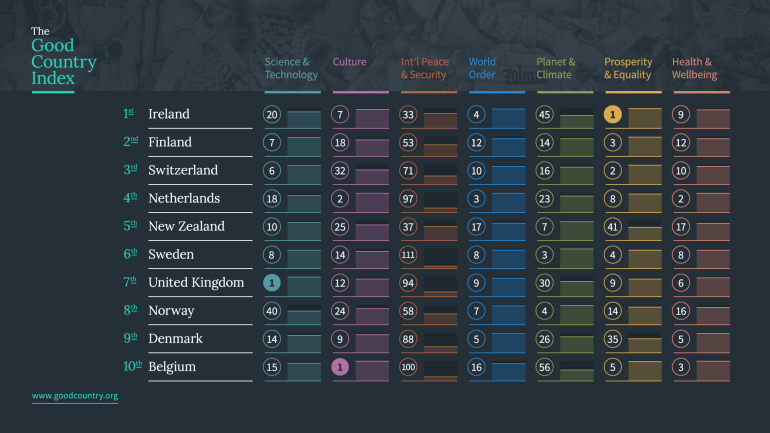 Ofcourse people can argue about the measurements and relative rankings but it turns out to be a largely practical criteria based on data set availability. And in an interview with the compiler, the take away issue for him was how countries still refuse to see their actions in a global, interconnected manner. 17th January: London Three years ago, it was revealed that white Britons had become a minority group in London, with just 45% of the population but looking district by district it’s clear that there’s not much shortage of white, just white British
Ofcourse people can argue about the measurements and relative rankings but it turns out to be a largely practical criteria based on data set availability. And in an interview with the compiler, the take away issue for him was how countries still refuse to see their actions in a global, interconnected manner. 17th January: London Three years ago, it was revealed that white Britons had become a minority group in London, with just 45% of the population but looking district by district it’s clear that there’s not much shortage of white, just white British
And for some of the most expensive areas in London, say Westminster or Mayfair, the forced removal of families through the sell-off of social housing and the buying up of property by foreigners as an “investment” may have something to do with the reduction in “White British” as a classification.
It’s not at all clear to me that the transfer of people out of town and into satellite commuter towns is a choice as opposed to an economic necessity.
18th January: Liquorice
Although I like cooking, I don’t normally set out to cook the unusual or odd which rules out an awful lot of Ottolenghi recipes. Having decided that I needed to buy a mandolin shredder though, I found myself on a website with all sorts of unusual things and I was tempted – never a good way to shop. Now the proud owner of liquorice powder, agar agar pieces and some preserved lemons, and wondering what on earth to do with them. The agar agar is particularly daunting. At least I have a cake recipe for liquorice, courtesy of Nigella.  19th January: Violence I’d got used to hearing crime statistics suggesting that violent crime was falling, that we were all becoming a more law-abiding society. It didn’t quite reconcile to the extraordinary number of stories in the news describing male violence or the fear that many women feel going about their everyday lives but I assumed that this was a reflection on the appalling levels of violence in the past. An article in the Guardian has made me reconsider. A team led by Sylvia Walby, Unesco chair in gender research and a professor of sociology at Lancaster University, discovered the rise in violent crime after looking again at data collected by the Crime Survey of England and Wales (CSEW) between 1994 and 2014. Apparently official statisticians cap the number in a series of crimes that a single person can report to the survey at five, to stop outliers skewing the statistics. Walby argues that this method excludes the experiences of “high frequency” victims – particularly victims of domestic violence – who often make up more than 5% of respondents. To take these victims into account, Walby and her colleagues instead looked at all reported crimes. The new study also slightly alters the definition of violent crime to include sexual offences such as rape, which are usually given their own category in CSEW figures but cannot be seen as anything other than a violent crime albeit a gendered one. Abandoning the cap and including sex crimes shows the fall in violent crime reached a turning point in 2009, when a rise in domestic violence and violence against women by acquaintances begins. Although violence against women by strangers remains flat, and violence against men by men continues to fall, the rises in gendered crime are so marked they fuel an overall rise in violent crime. Official statisticians have argued that the cap on the number of crimes a single person can report to eliminate volatility in the results, allowing them to better identify trends. Walby and her colleagues get around that problem by instead using a three-year moving average of statistics. Walby also condemned the capping, saying it “omits crimes and therefore biases the crime rate downwards – it is lower than it should be. The objection to taking the cap off is that this introduces more year-to-year volatility. Uncapping and [giving] three-year moving averages provides an unbiased figure that also solves the volatility problem.” It seems ridiculous that crimes should simply not be counted if the perpetrator repeats them more than 5 times. If a man batters his wife, puts her in hospital 10 times in a year, why would we stop to count at 5? Disordered Normally I loathe the process of medicalisation and labelling that now seems endemic in our world view. I just don’t believe that labelling over-active kids as attention deficient is especially helpful to them (rather than their parents). And the mass outbreak of middle class dyslexia is tricky to believe. But chatting over lunch with friends, one label jumped out. We were talking about BF2’s new neighbour. BF2 has rennovated a large house in N London and just moved in over the holiday break. In the UK before beginning work, you need to submit plans to the local authority, neighbour’s opinions are solicited and taken into account as part of the process. All of this due process was carried out without problems. And them the work started. As usual, building work dragged on for far too long and the builders were probably less than entertaining to live next to for 12 months. But it’s a detached house with a significant (for London) garden so they weren’t exactly on top of each other and ofcourse the neighbour under discussion had rennovated her own house on purchase a few years ago. Building noise and disruption are a feature of city and suburban life.
19th January: Violence I’d got used to hearing crime statistics suggesting that violent crime was falling, that we were all becoming a more law-abiding society. It didn’t quite reconcile to the extraordinary number of stories in the news describing male violence or the fear that many women feel going about their everyday lives but I assumed that this was a reflection on the appalling levels of violence in the past. An article in the Guardian has made me reconsider. A team led by Sylvia Walby, Unesco chair in gender research and a professor of sociology at Lancaster University, discovered the rise in violent crime after looking again at data collected by the Crime Survey of England and Wales (CSEW) between 1994 and 2014. Apparently official statisticians cap the number in a series of crimes that a single person can report to the survey at five, to stop outliers skewing the statistics. Walby argues that this method excludes the experiences of “high frequency” victims – particularly victims of domestic violence – who often make up more than 5% of respondents. To take these victims into account, Walby and her colleagues instead looked at all reported crimes. The new study also slightly alters the definition of violent crime to include sexual offences such as rape, which are usually given their own category in CSEW figures but cannot be seen as anything other than a violent crime albeit a gendered one. Abandoning the cap and including sex crimes shows the fall in violent crime reached a turning point in 2009, when a rise in domestic violence and violence against women by acquaintances begins. Although violence against women by strangers remains flat, and violence against men by men continues to fall, the rises in gendered crime are so marked they fuel an overall rise in violent crime. Official statisticians have argued that the cap on the number of crimes a single person can report to eliminate volatility in the results, allowing them to better identify trends. Walby and her colleagues get around that problem by instead using a three-year moving average of statistics. Walby also condemned the capping, saying it “omits crimes and therefore biases the crime rate downwards – it is lower than it should be. The objection to taking the cap off is that this introduces more year-to-year volatility. Uncapping and [giving] three-year moving averages provides an unbiased figure that also solves the volatility problem.” It seems ridiculous that crimes should simply not be counted if the perpetrator repeats them more than 5 times. If a man batters his wife, puts her in hospital 10 times in a year, why would we stop to count at 5? Disordered Normally I loathe the process of medicalisation and labelling that now seems endemic in our world view. I just don’t believe that labelling over-active kids as attention deficient is especially helpful to them (rather than their parents). And the mass outbreak of middle class dyslexia is tricky to believe. But chatting over lunch with friends, one label jumped out. We were talking about BF2’s new neighbour. BF2 has rennovated a large house in N London and just moved in over the holiday break. In the UK before beginning work, you need to submit plans to the local authority, neighbour’s opinions are solicited and taken into account as part of the process. All of this due process was carried out without problems. And them the work started. As usual, building work dragged on for far too long and the builders were probably less than entertaining to live next to for 12 months. But it’s a detached house with a significant (for London) garden so they weren’t exactly on top of each other and ofcourse the neighbour under discussion had rennovated her own house on purchase a few years ago. Building noise and disruption are a feature of city and suburban life.  Once the building work was well under way, one neighbour was upset by the balcony built from the second floor. They hadn’t objected at planning stage but also hadn’t realised that their garden would be overlooked by a balcony. Obviously they had always and were always going to be overlooked by the windows. They complained to BF2 who couldn’t do anything about it (you can only build what has been agreed, obviously). They then complaned to the local authority who visited the site and confirmed everything was as it should be. The neighbour was unhappy. She complained about the boundary. She wanted to choose the type of fencing and hedge. She wanted the wall of the house facing them to be painted to fit her colour scheme (a rather crappy brown). She wanted BF2 to promise to never use the balcony. When a child went out there over the weekend for 5 minutes she fired off an angry reproachful email. She complained that her daughter’s bedroom window overlooked BF2’s kitchen. At a meeting (one of many) with BF2 last week, she accused my friend of being a monster, of ruining her life, of being insensitive and uncaring and of making her house impossible to sell. Unlike me, or BF2, my friend has actually tried to be sympathetic and make adjustments. She’s been happy to look at the suggestions for alternative fencing and hedges. Obviously she can’t take down the balcony, but she doesn’t plan on using it very often. She really can’t do anything about being overlooked by the neighbour’s daughter but she doesn’t plan on complaining about it either. Up until now, she’s seen the whole volley of complaints to her, to the local authority etc, as just part of the frustration of living with builders next door. Having lived in the house for almost a month, she has received angry or abusive emails each week. It’s moved beyond reasonable or even explainable.
Once the building work was well under way, one neighbour was upset by the balcony built from the second floor. They hadn’t objected at planning stage but also hadn’t realised that their garden would be overlooked by a balcony. Obviously they had always and were always going to be overlooked by the windows. They complained to BF2 who couldn’t do anything about it (you can only build what has been agreed, obviously). They then complaned to the local authority who visited the site and confirmed everything was as it should be. The neighbour was unhappy. She complained about the boundary. She wanted to choose the type of fencing and hedge. She wanted the wall of the house facing them to be painted to fit her colour scheme (a rather crappy brown). She wanted BF2 to promise to never use the balcony. When a child went out there over the weekend for 5 minutes she fired off an angry reproachful email. She complained that her daughter’s bedroom window overlooked BF2’s kitchen. At a meeting (one of many) with BF2 last week, she accused my friend of being a monster, of ruining her life, of being insensitive and uncaring and of making her house impossible to sell. Unlike me, or BF2, my friend has actually tried to be sympathetic and make adjustments. She’s been happy to look at the suggestions for alternative fencing and hedges. Obviously she can’t take down the balcony, but she doesn’t plan on using it very often. She really can’t do anything about being overlooked by the neighbour’s daughter but she doesn’t plan on complaining about it either. Up until now, she’s seen the whole volley of complaints to her, to the local authority etc, as just part of the frustration of living with builders next door. Having lived in the house for almost a month, she has received angry or abusive emails each week. It’s moved beyond reasonable or even explainable.  The border between their houses is narrow. The neighbours have built up to the border of their land so the space between the two houses actually belongs to BF2. The last owner allowed the neighbours to use the land but it seems to be causing more problems than it saves, with demands by the neighbours to paint walls a certain colour, to put up shielding to avoid overlooking etc. BF1 suggested that the neighbour’s behaviour had passed irrational and could be described as having a personaility disorder. BF1’s aunt has been diagnosed with this and she reckoned the neighbour fitted the profile: Narcissistic personality disorder You are likely to: • believe that there are special reasons that make you different, better or more deserving than others • have fragile self-esteem, so that you rely on others to recognise your worth and your needs • feel upset if others ignore you and don’t give you what you feel you deserve • resent other people’s successes • put your own needs above other people’s, and demand they do too • be seen as selfish and ‘above yourself’ • take advantage of other people. Thinking it through somewhat, it seems that my mother would fit into this profile as well. Obviously we all could describe ourselves with some of these characteristics some of the time but every interaction that BF2 has had with this woman, ticks all of the boxes above, every conversation ticks each of the boxes. Even if this woman is not ever diagnosed as mentally ill with a narcissistic personality disorder, BF1 and myself both agree that regarding her as such gives a clear direction on how to behave or deal with her.
The border between their houses is narrow. The neighbours have built up to the border of their land so the space between the two houses actually belongs to BF2. The last owner allowed the neighbours to use the land but it seems to be causing more problems than it saves, with demands by the neighbours to paint walls a certain colour, to put up shielding to avoid overlooking etc. BF1 suggested that the neighbour’s behaviour had passed irrational and could be described as having a personaility disorder. BF1’s aunt has been diagnosed with this and she reckoned the neighbour fitted the profile: Narcissistic personality disorder You are likely to: • believe that there are special reasons that make you different, better or more deserving than others • have fragile self-esteem, so that you rely on others to recognise your worth and your needs • feel upset if others ignore you and don’t give you what you feel you deserve • resent other people’s successes • put your own needs above other people’s, and demand they do too • be seen as selfish and ‘above yourself’ • take advantage of other people. Thinking it through somewhat, it seems that my mother would fit into this profile as well. Obviously we all could describe ourselves with some of these characteristics some of the time but every interaction that BF2 has had with this woman, ticks all of the boxes above, every conversation ticks each of the boxes. Even if this woman is not ever diagnosed as mentally ill with a narcissistic personality disorder, BF1 and myself both agree that regarding her as such gives a clear direction on how to behave or deal with her.  People with personality disorders canot be fixed from the outside. My friend cannot help this woman. It is not her job or responsibility to help her. She cannot fix her problems. Nothing my friend does will ever be good enough. My friend is the villain in this woman’s personal narrative and nothing will change that fact for the neighbour. We are all the heroes of our own narratives. For most of us, it is enough to be as good and decent a person as we can be given our circumstances, Most of us try to be the best we can be and content ourselves with that. People like my mother, like BF1’s aunt and most probably like the neighbour are not content with being good and decent. They need to be the hero, the only hero in their story and this means that there has to be a villain. In everyday life and through everyday occurences, they need to be a hero overcoming the big, bad villain. If there is no drama, there can be no hero or villain so people like this create drama, create trauma out of everyday life events. The only sensible way to treat people like the neighbour (or my mother, or BF1’s aunt) is to disengage, to be as distant as possible. There is no way to win with people like this. Even simple interactions can spiral out of control with small trivial asides being used as excuses for drama and upset. Any emotion however positive will be hyped up beyond reason and will ultimately spiral into the same destructive hero/villain game. This is not a game that my friend can ever win.
People with personality disorders canot be fixed from the outside. My friend cannot help this woman. It is not her job or responsibility to help her. She cannot fix her problems. Nothing my friend does will ever be good enough. My friend is the villain in this woman’s personal narrative and nothing will change that fact for the neighbour. We are all the heroes of our own narratives. For most of us, it is enough to be as good and decent a person as we can be given our circumstances, Most of us try to be the best we can be and content ourselves with that. People like my mother, like BF1’s aunt and most probably like the neighbour are not content with being good and decent. They need to be the hero, the only hero in their story and this means that there has to be a villain. In everyday life and through everyday occurences, they need to be a hero overcoming the big, bad villain. If there is no drama, there can be no hero or villain so people like this create drama, create trauma out of everyday life events. The only sensible way to treat people like the neighbour (or my mother, or BF1’s aunt) is to disengage, to be as distant as possible. There is no way to win with people like this. Even simple interactions can spiral out of control with small trivial asides being used as excuses for drama and upset. Any emotion however positive will be hyped up beyond reason and will ultimately spiral into the same destructive hero/villain game. This is not a game that my friend can ever win.  To minimise interaction, BF2 needs to take back the land at the border, build a plain simple fence and simply not get involved in anything beyond the most straightforward factual exchanges with the neighbour. It’s possible to be polite and still arms length. An email should be sent but should be as simple and straightforward as possible: After our discussion last week, we have decided that it would be best for everyone if we just took back the land at the border. Our solicitor xxxxx will be contacting you shortly. When the tree surgeons come to chop down some of the trees it’s polite to send and email warning the neighbour to expect them, but nothing more. “Just to let you know that we are expecting a tree surgeon to work on the trees in the back garden Monday morning”. It’s important not to introduce any emotion into the communications, to not ask or imply any questions where none exist, to not offer or infer any authority. It is important not to enter into dialogue or discussion. It is polite to warn when noisy work will be carried out in the garden or on the house, but not to offer the neighbour any athority over the process. She cannot say “no” or refuse my friend the reasonable right to carry out work on her own property.
To minimise interaction, BF2 needs to take back the land at the border, build a plain simple fence and simply not get involved in anything beyond the most straightforward factual exchanges with the neighbour. It’s possible to be polite and still arms length. An email should be sent but should be as simple and straightforward as possible: After our discussion last week, we have decided that it would be best for everyone if we just took back the land at the border. Our solicitor xxxxx will be contacting you shortly. When the tree surgeons come to chop down some of the trees it’s polite to send and email warning the neighbour to expect them, but nothing more. “Just to let you know that we are expecting a tree surgeon to work on the trees in the back garden Monday morning”. It’s important not to introduce any emotion into the communications, to not ask or imply any questions where none exist, to not offer or infer any authority. It is important not to enter into dialogue or discussion. It is polite to warn when noisy work will be carried out in the garden or on the house, but not to offer the neighbour any athority over the process. She cannot say “no” or refuse my friend the reasonable right to carry out work on her own property.  In fact it’s probable best not to speak at all but to keep it to emails, and the occasional nod heading in and out of the house. At least with email you can pause, take a deep breath and start again. Any attempt to start a live discussion at the steps should be discouraged with “Sorry but it isn’t convenient right now. Could you drop me an email?” It is sad that my friend will never be “besties” with her new neighbour but it isn’t tragic – she is well loved by her existing friends already. Most of us have perfectly civil neighbourly relationships based on rare but amicable exchanges of factual information and the occasional smile and hello on the way in and out of the house. This woman cannot be fixed. Every interaction, no matter how trivial, will just feed the fire. Keep it simple, keep it plain. Disengage. 20th January: Cold Finally the weather has turned. December was the warmest I can ever remember, wet too, which was a mixed blessing. It’s nice to not have to freeze playing tennis but the garden is hideously confused. We seem to have skipped crocus and jumped straight to daffodils. Even the iris are out. There have been a grand total of two days where I’ve had to scrape the frost off the car in the morning. The problem is that I don’t quite trust the lack of frost and a frost come late to all of the spring bulbs threatening to flower will kill the lot of them. Hopefully I’m worrying about nothing.
In fact it’s probable best not to speak at all but to keep it to emails, and the occasional nod heading in and out of the house. At least with email you can pause, take a deep breath and start again. Any attempt to start a live discussion at the steps should be discouraged with “Sorry but it isn’t convenient right now. Could you drop me an email?” It is sad that my friend will never be “besties” with her new neighbour but it isn’t tragic – she is well loved by her existing friends already. Most of us have perfectly civil neighbourly relationships based on rare but amicable exchanges of factual information and the occasional smile and hello on the way in and out of the house. This woman cannot be fixed. Every interaction, no matter how trivial, will just feed the fire. Keep it simple, keep it plain. Disengage. 20th January: Cold Finally the weather has turned. December was the warmest I can ever remember, wet too, which was a mixed blessing. It’s nice to not have to freeze playing tennis but the garden is hideously confused. We seem to have skipped crocus and jumped straight to daffodils. Even the iris are out. There have been a grand total of two days where I’ve had to scrape the frost off the car in the morning. The problem is that I don’t quite trust the lack of frost and a frost come late to all of the spring bulbs threatening to flower will kill the lot of them. Hopefully I’m worrying about nothing.  Aside from the garden, there is also something of a superstitious belief that a good cold snap will kill off some vermin. With three young and healthy cats, we’re not likely to suffer from rats or mice but I’d rather not have them visit the neighbours either. And then there’s the sad lack of porridge (oatmeal) in the morning, because it really isn’t a warm weather type of breakfast no matter how much I love it. Thankfully today was decidedly Wintry though not snowy, cold mainly through the northern wind rather than anything else. In an older house, it’s the wind whipping through the walls and any gaps that makes it uncomfortable, not the ambient temperature. It provided a good excuse for porridge (oatmeal), cooked with water, slightly salted with honey dripped on top to cheer it up. With a Scottish father, I was never really able to cope with milky oats but not really convinced that my porridge should be an entirely savoury affair.
Aside from the garden, there is also something of a superstitious belief that a good cold snap will kill off some vermin. With three young and healthy cats, we’re not likely to suffer from rats or mice but I’d rather not have them visit the neighbours either. And then there’s the sad lack of porridge (oatmeal) in the morning, because it really isn’t a warm weather type of breakfast no matter how much I love it. Thankfully today was decidedly Wintry though not snowy, cold mainly through the northern wind rather than anything else. In an older house, it’s the wind whipping through the walls and any gaps that makes it uncomfortable, not the ambient temperature. It provided a good excuse for porridge (oatmeal), cooked with water, slightly salted with honey dripped on top to cheer it up. With a Scottish father, I was never really able to cope with milky oats but not really convinced that my porridge should be an entirely savoury affair.  Apparently porridge oats are a very good way to start the day, lowering my cholesterol levels and providing a long, slow release of energy. I like the taste. having relocated the oats, I’m now working up to making some flapjacks. Another benefit to the cold is the excuse it provides to light up the real fire. For most of the year it sits made up waiting. A cold snap arrives and out comes the chimney balloon and on go the fire lighters. Since we started cold and I have a lazy day of admin. planned, the fire will be lit midday and stay lit throghout until the kids arrive home. It will be left to die down through the evening so that there are only the very last of the embers by the end of the day. The cats are young enough to still be a little puzzled by the whole flickering flame thing. One has taken to the fire wholeheartedly, lying in front of the fire whilst the other two are much more cautious. The boy in particular is very suspicious of any changes to his house. Lord knows what he’ll make of the crumpets on the fork later on for supper. I’m guessing a bit of melting butter and marmite will not be unpopular. 21 January: Sexism For the vast majority of my working life I was unaware of any sexism having a direct impact upon me personally. It changed when I had my children. This is not to underestimate the huge amount of systemic sexism around and about me. I was always very aware of being the odd one out, the only girl in the top maths set, the only girl studying physics, one of the few women joining the accountancy firm, the only woman working in the bank in a position of authority….I didn’t label it sexism because it was normal, everyday. From being told that women were not “allowed” to wear trouser suits but were clearly obliged to wear make-up, it was made clear that as a woman in the workforce, my appearance was to be policed in a way no man experienced. I didn’t experience this as sexism, because it was “normal” as normal as finding out that my qualifications were considerably better than my male peers. Women were simply not allowed to be average or typical. They had to be better.
Apparently porridge oats are a very good way to start the day, lowering my cholesterol levels and providing a long, slow release of energy. I like the taste. having relocated the oats, I’m now working up to making some flapjacks. Another benefit to the cold is the excuse it provides to light up the real fire. For most of the year it sits made up waiting. A cold snap arrives and out comes the chimney balloon and on go the fire lighters. Since we started cold and I have a lazy day of admin. planned, the fire will be lit midday and stay lit throghout until the kids arrive home. It will be left to die down through the evening so that there are only the very last of the embers by the end of the day. The cats are young enough to still be a little puzzled by the whole flickering flame thing. One has taken to the fire wholeheartedly, lying in front of the fire whilst the other two are much more cautious. The boy in particular is very suspicious of any changes to his house. Lord knows what he’ll make of the crumpets on the fork later on for supper. I’m guessing a bit of melting butter and marmite will not be unpopular. 21 January: Sexism For the vast majority of my working life I was unaware of any sexism having a direct impact upon me personally. It changed when I had my children. This is not to underestimate the huge amount of systemic sexism around and about me. I was always very aware of being the odd one out, the only girl in the top maths set, the only girl studying physics, one of the few women joining the accountancy firm, the only woman working in the bank in a position of authority….I didn’t label it sexism because it was normal, everyday. From being told that women were not “allowed” to wear trouser suits but were clearly obliged to wear make-up, it was made clear that as a woman in the workforce, my appearance was to be policed in a way no man experienced. I didn’t experience this as sexism, because it was “normal” as normal as finding out that my qualifications were considerably better than my male peers. Women were simply not allowed to be average or typical. They had to be better.  When I had my first child, I’d managed to find myself a role at work that I could easily manage, to transition back to full career mode. I took the minimum 12 weeks worth of maternity leave, which meant that I had to wean my daughter onto bottled milk early. I made my life choices, confident that it would be worth it to go back to a job I could more easily control with a supportive boss. There was a management change at work while I was out for 12 weeks. The new guy (my boss’s boss) did not like the fact that both I and my slightly more senior husband were working for him. My salary and promotional options would be discussed by my partner’s peer group. His boss, this guy’s predecessor hadn’t had a problem when my parnter simply excused himself from the room, neither had my boss but suddenly it became a problem, suddenly after 11 weeks out, I had no job to return to and a scamble around for anything career wise. Three months later, considerably disadvantaged by the experience, I found out that a reorganisation was taking place that split reporting lines between my old job and my partner’s job. Three months and the reporting line “issue” ceased to exist. This moron must have known that this reorganisation was coming, must have been able to cope for just a few months without totally fucking up my life plan. Now it is clearly illegal to take a woman’s job away from her whilst she’s out on maternity leave. It is clearly sexist to assume that the woman will be moved, her job and career sacrificed without even the courtesy of a discussion. And none of this made a difference.
When I had my first child, I’d managed to find myself a role at work that I could easily manage, to transition back to full career mode. I took the minimum 12 weeks worth of maternity leave, which meant that I had to wean my daughter onto bottled milk early. I made my life choices, confident that it would be worth it to go back to a job I could more easily control with a supportive boss. There was a management change at work while I was out for 12 weeks. The new guy (my boss’s boss) did not like the fact that both I and my slightly more senior husband were working for him. My salary and promotional options would be discussed by my partner’s peer group. His boss, this guy’s predecessor hadn’t had a problem when my parnter simply excused himself from the room, neither had my boss but suddenly it became a problem, suddenly after 11 weeks out, I had no job to return to and a scamble around for anything career wise. Three months later, considerably disadvantaged by the experience, I found out that a reorganisation was taking place that split reporting lines between my old job and my partner’s job. Three months and the reporting line “issue” ceased to exist. This moron must have known that this reorganisation was coming, must have been able to cope for just a few months without totally fucking up my life plan. Now it is clearly illegal to take a woman’s job away from her whilst she’s out on maternity leave. It is clearly sexist to assume that the woman will be moved, her job and career sacrificed without even the courtesy of a discussion. And none of this made a difference.  Suddenly I had stopped being part of the young up-and-coming management team and become “parent” but unlike almost all of the other working parents in the office, I didn’t have a wife at home to look after the kids. Almost all working parents in my industry are working fathers, which is to say, lots of working and not so much parenting. And though my partner was willing to help out, and we were both willing and able to throw money at the situation with a full-time nanny, cleaner and garden (yes money helps) it was made very, very clear that the way in which I was viewed at work had changed dramatically. So I read an article in the newspaper recently written by a woman who was challenged at some symposium as to why women weren’t more welcoming to men when discussing feminism. Helen Lewis wrote: “Often, a man pops up in the Q&A, or buttonholes me afterwards to ask why feminism has to make men feel so unwelcome. Aren’t men’s contributions valuable? Absolutely, I cry with all the fake enthusiasm I can muster – and there is one, huge contribution that men can make to feminism: the washing up. Or the laundry, I’m easy. Or going part-time while the kids are small. At this point, the light in their eyes tends to die. It turns out that when they said they wanted men to be involved in feminism, what they actually meant was “have someone listen to their ideas about what feminists are currently doing wrong”. Not do a load of boring unpaid work in return for absolutely zero praise”.
Suddenly I had stopped being part of the young up-and-coming management team and become “parent” but unlike almost all of the other working parents in the office, I didn’t have a wife at home to look after the kids. Almost all working parents in my industry are working fathers, which is to say, lots of working and not so much parenting. And though my partner was willing to help out, and we were both willing and able to throw money at the situation with a full-time nanny, cleaner and garden (yes money helps) it was made very, very clear that the way in which I was viewed at work had changed dramatically. So I read an article in the newspaper recently written by a woman who was challenged at some symposium as to why women weren’t more welcoming to men when discussing feminism. Helen Lewis wrote: “Often, a man pops up in the Q&A, or buttonholes me afterwards to ask why feminism has to make men feel so unwelcome. Aren’t men’s contributions valuable? Absolutely, I cry with all the fake enthusiasm I can muster – and there is one, huge contribution that men can make to feminism: the washing up. Or the laundry, I’m easy. Or going part-time while the kids are small. At this point, the light in their eyes tends to die. It turns out that when they said they wanted men to be involved in feminism, what they actually meant was “have someone listen to their ideas about what feminists are currently doing wrong”. Not do a load of boring unpaid work in return for absolutely zero praise”. Increasingly, the key issues facing modern, developed world feminism must be routed through men, through fathers (see 2012 report for the IPPR) in particular. Unless women can establish a real meaningful partnership with their men, where time and responsibility is split evenly for caring for children, parents, the home etc then there will never be enough hours in the day for women to achieve a real meaningful and fair partnership with men in the workforce. I am tired of being told that the gender wage gap doesn’t exist or indeed is an entirely valid result of women making different choices to men. No one chooses to earn less money and accrue less power, especially women focused on providing for their children. Women are not making free choices, and will never be able to make free choices, until the men in their lives step up and start taking their fair share of responsibility. 21 January: Sex Ed – Mind the gap With two teenage daughters, I’m becoming very concious of how despite everything changing, it somehow manages to remain the same. My youngest has just self-identified as a lesbian (theoretical at this stage) and highlighted a sad lack of sex ed. As a fairly straightforward liberal parent I’d thought we’d covered most things but clearly she’s found the gap. I’ve sent in a query to BettyDodson asking for her suggestions for sex ed for teenage lesbian so we’ll see what kind of answer arrives. For me it highlighted the emphasis we’d placed on functionality or reproductive sex. If we were willing to talk about what we all really use sex for, ie pleasure, then even in heterosexual sex ed the conversations would be very different. Ofcourse what teenage girl really wants to talk orgasms with her middle aged mother?
Increasingly, the key issues facing modern, developed world feminism must be routed through men, through fathers (see 2012 report for the IPPR) in particular. Unless women can establish a real meaningful partnership with their men, where time and responsibility is split evenly for caring for children, parents, the home etc then there will never be enough hours in the day for women to achieve a real meaningful and fair partnership with men in the workforce. I am tired of being told that the gender wage gap doesn’t exist or indeed is an entirely valid result of women making different choices to men. No one chooses to earn less money and accrue less power, especially women focused on providing for their children. Women are not making free choices, and will never be able to make free choices, until the men in their lives step up and start taking their fair share of responsibility. 21 January: Sex Ed – Mind the gap With two teenage daughters, I’m becoming very concious of how despite everything changing, it somehow manages to remain the same. My youngest has just self-identified as a lesbian (theoretical at this stage) and highlighted a sad lack of sex ed. As a fairly straightforward liberal parent I’d thought we’d covered most things but clearly she’s found the gap. I’ve sent in a query to BettyDodson asking for her suggestions for sex ed for teenage lesbian so we’ll see what kind of answer arrives. For me it highlighted the emphasis we’d placed on functionality or reproductive sex. If we were willing to talk about what we all really use sex for, ie pleasure, then even in heterosexual sex ed the conversations would be very different. Ofcourse what teenage girl really wants to talk orgasms with her middle aged mother? 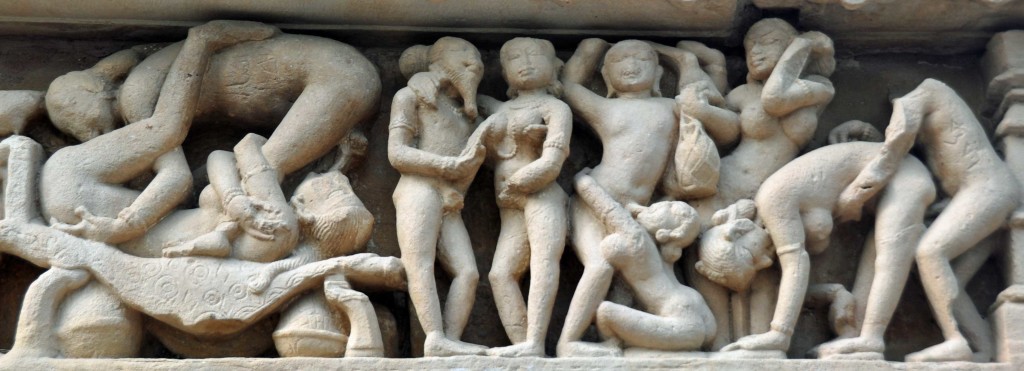 22nd January: Work He went back to work this week, in a project role with 6 months initial contract follwed by another 18 months to see the project through to completion if it works out. By the time that comes around, I’m hoping that he’ll be more prepared to stay home. And he is living proof that being a decent person to the people you work with and who work for you is a great investment in your future career prospects. You really do meet the same people on the way down so best not to kick too many on the way up. He’s had a great nine months getting comfortable with his kids as teenagers, realising that he’s not ready to retire yet. I’ve had a great few months sharing the early morning rat run and daily chores. He couldn’t find enough to do that he enjoyed doing outside of paid employment, and as discussed previously from an insanely poor background, he just couldn’t cope without earning a salary for himself. Not yet. Maybe if I’d been less occupied and more available it would have worked out easier for him to chill out and relax. Maybe. Yes & no We are all children of the book, Jews, Christians and Muslims. In 1965, the Roman Catholic church approached the question in a very different spirit, in its landmark treatise, Nostra Aetate. A key passage states:
22nd January: Work He went back to work this week, in a project role with 6 months initial contract follwed by another 18 months to see the project through to completion if it works out. By the time that comes around, I’m hoping that he’ll be more prepared to stay home. And he is living proof that being a decent person to the people you work with and who work for you is a great investment in your future career prospects. You really do meet the same people on the way down so best not to kick too many on the way up. He’s had a great nine months getting comfortable with his kids as teenagers, realising that he’s not ready to retire yet. I’ve had a great few months sharing the early morning rat run and daily chores. He couldn’t find enough to do that he enjoyed doing outside of paid employment, and as discussed previously from an insanely poor background, he just couldn’t cope without earning a salary for himself. Not yet. Maybe if I’d been less occupied and more available it would have worked out easier for him to chill out and relax. Maybe. Yes & no We are all children of the book, Jews, Christians and Muslims. In 1965, the Roman Catholic church approached the question in a very different spirit, in its landmark treatise, Nostra Aetate. A key passage states:
The Church regards with esteem also the Muslims. They adore the one God, living and subsisting in Himself, merciful and all-powerful, the Creator of heaven and earth, who has spoken to men; they take pains to submit wholeheartedly even to His inscrutable decrees, just as Abraham with whom the faith of Islam takes pleasure in linking itself, submitted to God.
But when Larycia Hawkins, an African-American assistant professor at Wheaton College, an evangelical campus near Chicago, voiced similar views last month, she created a huge rumpus, suspended from teaching, and procedures initiated which could lead to her dismissal.

Prof Hawkins was asked to explain herself, and what exactly she believed in, with a theological statement, considerably more orthodox and doctrinally sound than most of us would manage. I would probably start with the Nicene Creed but would struggle to go much further.
Hawkin’s Theological Statement
We all believe in one God. Yes and No. After citing various Catholic and Protestant sources, including Nostra Aetate, she adds:
Like them I acknowledge that the statement “we worship the same God” is a simultaneous “yes” and “no” to the question of whether Christians and Muslims (as well as Jews) turn to the same object of worship…
Yes and No? The statement that “Christians and Muslims worship the same God” is a much more complex and multi-layered idea than we perhaps initially recognise. It can mean entirely different things on the lips of different people. For an atheist who regards the whole idea of God as an artifical construct then perhaps every person’s God is an individual God. If you are a monotheist, convinced there is only one transcendent deity, then discussion about “the same” God or different ones doesn’t make much sense. God is God. If you are a polytheist, then it is logically possible to discuss whether two groups of people worship the same god; but on that view, both Christians and Muslims must be radically mistaken. We all believe in one God. Yes and No.

23 January: Debt Revisited How much debt is too much debt? Earlier I read that the average Briton has £6,000 debt excluding house loans. Their average net worth is close to £150,000 which sounds great until you realise that mostly this is tied up in house equity and can’t be cashed in until either a person dies or sells up their house. Since the average cost of a house in the UK is considerably more than £150,000 this means that to realise their net worth and sell their house makes them homeless. They will probably be able to afford to rent for a while in the very expensive UK private rental sector, but their money will disappear all to rapidly. The balancing act between debt and savings is very precarious for most people in the UK. How much money do you have set aside for emergencies?
The rule of thumb from financial advisors, is to hold sufficient cash (or cash-like) to meet 3 months worth of living expenses. 24th January: Herpes Along with 60% of the world’s population, I have herpes simplex (HSV1) a viral disease that once caught (usually in childhood) stays with you forever. It lies latent at the nerve cell bodies and, given any encouragement, will cause a breakout of blisters on my mouth. I went years without a breakout, but approaching menopause seems to have triggered some new lease of life in the virus. For the last couple of years I’ve had one or two breakouts each year. On my bad days I read that HSV1 is associated with Alzheimer’s Disease and Bell’s Palsy, and I panic. My sister had the latter as a child and who isn’t terrified of dementia. But mostly I just think about the mess that it’s making of my lips and move on. One of the parenting challenges, is to make sure I don’t pass it on to my kids, who are both teenagers and seem to be clear. Since most people do catch the virus when children, we’ve always had a no kissing policy when there’s an outbreak. And my kids have never been made to kiss or hug relatives for “politeness”. Obviously you don’t want any partner to catch them either so kissing and oral sex are out for the duration of the outbreak.

Herpes is contracted through direct contact with an active lesion or body fluid of an infected person, typically through direct skin-to-skin contact with an infected individual, but also by exposure to infected saliva, semen, vaginal fluid, or the fluid from herpetic blisters. To infect a new individual, HSV1 travels through tiny breaks in the skin or mucous membranes in the mouth. Even microscopic abrasions on mucous membranes are sufficient to allow viral entry. It is hideously contagious so a good hygiene routine helps. HSV asymptomatic shedding occurs at some time in most individuals infected with herpes. It can occur more than a week before or after a symptomatic recurrence in 50% of cases. Infected people who show no visible symptoms may still shed and transmit viruses through their skin; asymptomatic shedding may represent the most common form of HSV-2 transmission. So if you see a person with cold sores by all means don’t kiss them, but realise that all skin to skin contact involves some risk even if the person shows no sign of being infected. Cold sores are annoying, and often painful but not life threatening so keep a sense of perspective (and hopefully kindness) when dealing with the ill person. When I was a kid, almost everyone seemed to have cold sores and no one thought much of it. Herpes began to attach a stigma, especially in the US in the 1970s. It was such a normal part of everyday life that per WIki: Pedro Cuatrecasas states, “during the R&D of acyclovir (Zovirax), marketing [department of Burroughs Wellcome] insisted that there were ‘no markets’ for this compound. Most had hardly heard of genital herpes…” Thus, marketing the medical condition – separating the ‘normal cold sore’ from the ‘stigmatized genital infection’ was to become the key to marketing the drug, a process now known as ‘disease mongering’

Since then the numbers of people infected haven’t changed, just the stigma and general unhappiness. Certain dietary supplements and alternative remedies are claimed to be beneficial in the treatment of herpes but evidence is lacking and none have worked for me personally. Once you’re infected though, it’s probably worth having a try with echinacea, eleuthrero, L-Lysine, or topical zinc. A number of small studies show possible benefit from aspirin, lemon balm or licorice root cream in treatment, but these preliminary studies have not been confirmed. What happens during an outbreak? Prodome precedes development of lesions, symptoms include tingling (paresthesia) itching, and pain where lumbosacral nerves innervate the skin. Prodrome may occur as long as several days or as short as a few hours before lesions develop. For me it’s usually three to four hours. During recurrence lesions develop and heal within 5–10 days (without antiviral treatment). Outbreaks tend to be periodic or episodic, occurring on average four or five times a year when not using antiviral therapy. My outbreaks tend to take the full 10 days, tend to be triggered by periods and cold weather. The causes of reactivation for most people are uncertain, but several potential triggers have been documented inclduing changes in the immune system during menstruation, concurrent infections, such as viral upper respiratory tract infections or other febrile diseases. Reactivation due to other infections is the likely source of the historic terms ‘cold sore’ and ‘fever blister’. Other identified triggers include local injury to the face, lips, eyes, or mouth; trauma; surgery; radiotherapy; and exposure to wind, uv light, or sunlight So basically once you’ve got it, you’ve got it for life and it can be triggered by just being alive (menstruation, sunlight etc).

I tend to prefer to use cold sore plasters or patches. Cold sore patches contain hydrocolloid gel, which is an effective treatment for skin wounds. The patch is placed over the cold sore while it heals and as long as you leave it well alone, it should help minimise the time of the breakout. My outbreaks probably take longer to heal than they should because I struggle to leave the blisters alone. Antiviral creams are available over the counter from pharmacies without a prescription. If used correctly, these can help ease symptoms and speed up the healing time. To be effective though these treatments need to be applied as soon as the first signs of a cold sore appear (when there is the first tingling, itching or burning sensation around my mouth). Using an antiviral cream after this initial period has little effect. Since I can never get the timing right, even if I apply the stuff it seems to just delay the outbreak.

25th January: TERF?
There was a recent post on DodsonandRoss suggesting that trans women might be better off fighting to establish a new gender identity entirely, rather than fighting for acceptance amongst women (Trans Women Will do Better to Fight for Their Rights as a New Gender…).
 One section caught my attention in particular:
One section caught my attention in particular:
“Trans women will do better, I think, to unite to fight for their rights as a new gender rather than re-defining what it is to be a woman, thus weakening the sisterhood of women by insisting on a broader definition to include people who don’t have uteruses and cannot give birth. It ignores how the gender of woman has (and continues to be) shaped under oppressive control of our reproduction—and by not seeing what womanhood could be if patriarchal control of our reproduction were overthrown”.
How much do I think the gender of women has been and continues to be defined by having a uterus, by reproduction, by blood, by being identified as unclean for so much of our lives? It seems clear that gender itself is an entirely artificial construct with definitions of male and female varying hugely throughout time and across the world. In America, boys are good at science, girls are not. In Burma, scientific research is dominated by women. During the Regency Period of British history, it was a male perogative to worry most about his appearance, his clothes and make-up. Nowadays a man wearing make up is quite likely to be beaten up walking many British city streets.  I’ve tried to bring up my daughters in an assertive, supportive fashion, without gender limits or expectations. Ofcourse, in the face of the rest of society I’ve failed somewhat, but I’ve done my best. Even stripping away the most egregious sterotype rubbish, we are still left with a monthly bleed. If the average woman lives 82 years and menstruates for a week each month from the age of 15 through to 50, she will have spent 420 weeks, just over 8 years in a state of shame, embarrasment or in the case of my girls, stubborn resignation tempered by migraines and muscle cramps. In some cultures women are still shut away in some leaky miserable hut, excluded from society entirely during their menses. Women are forbidden to enter temples and synagogues on the basis of their bloodflow. They are forbidden to touch men for fear of “contaminating” them. Even in our modern, “liberated, egalitarian” developed world, we live in a culture willing to shame 52% population just because of the everyday way their body works. Adverts selling sanitary products still use blue dye, still use words like “discreet” and “hidden”. We are still charged sales tax on these products which are somehow considered luxuries. A jaffa biscuit can be regarded as a basic necessity and exempt VAT, but my daughters’ tampons are a luxury?
I’ve tried to bring up my daughters in an assertive, supportive fashion, without gender limits or expectations. Ofcourse, in the face of the rest of society I’ve failed somewhat, but I’ve done my best. Even stripping away the most egregious sterotype rubbish, we are still left with a monthly bleed. If the average woman lives 82 years and menstruates for a week each month from the age of 15 through to 50, she will have spent 420 weeks, just over 8 years in a state of shame, embarrasment or in the case of my girls, stubborn resignation tempered by migraines and muscle cramps. In some cultures women are still shut away in some leaky miserable hut, excluded from society entirely during their menses. Women are forbidden to enter temples and synagogues on the basis of their bloodflow. They are forbidden to touch men for fear of “contaminating” them. Even in our modern, “liberated, egalitarian” developed world, we live in a culture willing to shame 52% population just because of the everyday way their body works. Adverts selling sanitary products still use blue dye, still use words like “discreet” and “hidden”. We are still charged sales tax on these products which are somehow considered luxuries. A jaffa biscuit can be regarded as a basic necessity and exempt VAT, but my daughters’ tampons are a luxury?  Why should women need to hide for 8 years of our lives? If men’s razors are a necessity and exempt sales tax, why shouldn’t a menstrual cup be similarly exempt. Why can’t blood be represented by red dye in an advert? Why can’t we even start to talk about the liver like fleshy bits that our bodies expel or the possible joys and traumas of bloody sex? The eight years of my life spent bleeding are a fundamental part of my personal female gender identity, not one that I’ve chosen but rather one that I’ve survived and come to terms with since the process is made so much of by society at large. A large part of my female identity has been tied up with being a daughter and becoming a mother. Puberty, childbirth, menopause are defining rites of passage for my personal female gender identity. Recognising that gender is an artificial construct, it seems sensible to dismiss the binary nature that society tries to impose. Some people will feel drawn to the gender charicature inconsistent with their biological sex. If a trans woman can share everything with me apart from those 8 bleeding years, are we the same gender? How significant is the blood? I have spent a sizeable part of my time and energy running away from female stereotypes, the very same stereotypes that some trans women seem so keen to adopt. It’s always difficult to identify with people who seem to like and value all of the things you most dislike and despise.
Why should women need to hide for 8 years of our lives? If men’s razors are a necessity and exempt sales tax, why shouldn’t a menstrual cup be similarly exempt. Why can’t blood be represented by red dye in an advert? Why can’t we even start to talk about the liver like fleshy bits that our bodies expel or the possible joys and traumas of bloody sex? The eight years of my life spent bleeding are a fundamental part of my personal female gender identity, not one that I’ve chosen but rather one that I’ve survived and come to terms with since the process is made so much of by society at large. A large part of my female identity has been tied up with being a daughter and becoming a mother. Puberty, childbirth, menopause are defining rites of passage for my personal female gender identity. Recognising that gender is an artificial construct, it seems sensible to dismiss the binary nature that society tries to impose. Some people will feel drawn to the gender charicature inconsistent with their biological sex. If a trans woman can share everything with me apart from those 8 bleeding years, are we the same gender? How significant is the blood? I have spent a sizeable part of my time and energy running away from female stereotypes, the very same stereotypes that some trans women seem so keen to adopt. It’s always difficult to identify with people who seem to like and value all of the things you most dislike and despise.  Does all of this personal angst mean that I’m a Trans Exclusionary Radical Feminist or TERF? According to Wiki, a TERF is part of a sub-group of radical feminism characterised by transphobia, in particular trans-misogyny and hostility towards third wave feminism. TERFs are said to believe that the only real women are those born with a vagina and XX chromosomes. They wish to completely enforce the classic gender binary, supporting gender existentialism. Not me then. I don’t believe in binary gender as anything other than an artificial construct so, on that basis, the whole idea of there being a definition of a”real” woman is a nonsense. There are people. People have different charcteristics. Most of us have a combination of characteristics that could be defined as male or female characteristics which may or may not coincide with our biological sex. We are gentle. We are aggressive. Sometimes we flip from one to the other. We remain the same person, but our characteristics, our self-expression changes with time and circumstances. Trans women are not identical to cis-women.
Does all of this personal angst mean that I’m a Trans Exclusionary Radical Feminist or TERF? According to Wiki, a TERF is part of a sub-group of radical feminism characterised by transphobia, in particular trans-misogyny and hostility towards third wave feminism. TERFs are said to believe that the only real women are those born with a vagina and XX chromosomes. They wish to completely enforce the classic gender binary, supporting gender existentialism. Not me then. I don’t believe in binary gender as anything other than an artificial construct so, on that basis, the whole idea of there being a definition of a”real” woman is a nonsense. There are people. People have different charcteristics. Most of us have a combination of characteristics that could be defined as male or female characteristics which may or may not coincide with our biological sex. We are gentle. We are aggressive. Sometimes we flip from one to the other. We remain the same person, but our characteristics, our self-expression changes with time and circumstances. Trans women are not identical to cis-women.  It isn’t clear how important that distinction should be. but this could become a problem if any discussion of experiences which are not shared by trans women start to be regarded as ‘trans-exclusionary’, the reason given when a US women’s college recently announced that it would be discontinuing its annual performance of The Vagina Monologues: apparently it’s exclusionary to talk about vaginas when some women do not have one. Apparently last year a trans activist on Twitter denounced feminist campaigns against FGM as ‘cissexist’. Discussions of menstruation, pregnancy and abortion rights can all be regularly interrupted by the same complaint. It’s also important to recognise that there can be any number of differences among self-identified trans women. The category has broadened over time to encompass more biologically male individuals who have not modified their bodies, and who in some cases do not live permanently as women, but alternate between male and female identities. Their status as women is based on a combination of performative declarations that they are women, and surface features of ‘gender presentation’ like the names they use and the clothes they wear.
It isn’t clear how important that distinction should be. but this could become a problem if any discussion of experiences which are not shared by trans women start to be regarded as ‘trans-exclusionary’, the reason given when a US women’s college recently announced that it would be discontinuing its annual performance of The Vagina Monologues: apparently it’s exclusionary to talk about vaginas when some women do not have one. Apparently last year a trans activist on Twitter denounced feminist campaigns against FGM as ‘cissexist’. Discussions of menstruation, pregnancy and abortion rights can all be regularly interrupted by the same complaint. It’s also important to recognise that there can be any number of differences among self-identified trans women. The category has broadened over time to encompass more biologically male individuals who have not modified their bodies, and who in some cases do not live permanently as women, but alternate between male and female identities. Their status as women is based on a combination of performative declarations that they are women, and surface features of ‘gender presentation’ like the names they use and the clothes they wear.  Nevertheless, it’s possible to invoke the ‘trans women are women’ principle: if you identify as female then you are female, and should be treated as such by others. Is it transphobic to question the presence of people with openly displayed male sexual organs in spaces like communal female changing rooms, or for lesbian women to refuse to recognise those people as potential sexual partners? Confusing. Still, gender remains an artificial binary construct. Trans women have a lot more in common with a cis woman than they do with cis men. They are more like me, than the other binary gender definition. Is that good enough? London – My babies will never be able to live near me.
Nevertheless, it’s possible to invoke the ‘trans women are women’ principle: if you identify as female then you are female, and should be treated as such by others. Is it transphobic to question the presence of people with openly displayed male sexual organs in spaces like communal female changing rooms, or for lesbian women to refuse to recognise those people as potential sexual partners? Confusing. Still, gender remains an artificial binary construct. Trans women have a lot more in common with a cis woman than they do with cis men. They are more like me, than the other binary gender definition. Is that good enough? London – My babies will never be able to live near me.
27th January: STEM My baby likes maths and sciences which makes her quite unusual for a girl, though obviously rather similar in outlook to her mother (Chemistry & Maths) and father (Maths). In our family, my oldest girl is the odd one out with her preference for English. Both of my girls go to single-sex schools, not because I wanted to hide them away from boys, but rather because I wanted them to be free to choose their own subjects, free from the unconcious bias that labels science and maths as “boy” subjects. Even so my oldest baby came across a (male) physics teachers who made disparaging comments about “girl” brains falling apart when it came to sciences.  She got an A* grade, more to spite him than through any interest. His lack of encouragement meant that it was never a subject she wanted to engage with long term. At GCSE, girls outperform boys in most STEM subjects. In 2012 girls achieved better or equal A*- C GCSE combined grades compared to boys in all STEM subjects, except Mathematics (1% difference), ‘other science’ and ‘other technology’ Yet despite outperforming the boys, fewer girls go on to study STEM subjects at A level. Nearly half (46%) of all co-ed secondary state schools sent no girls on to do physics at A level in 2011. And fewer still go on to study engineering and technology degrees. In 2011, men were awarded 85% of engineering and technology degrees and 82% of computer science degrees whilst in the same year, 83% medical degrees and 79% of veterinary science degrees went to women. This is important because the world needs the best scientists, the best engineers, the best technologists and to achieve that, it needs to stop fishing in less than half of the talent pool.
She got an A* grade, more to spite him than through any interest. His lack of encouragement meant that it was never a subject she wanted to engage with long term. At GCSE, girls outperform boys in most STEM subjects. In 2012 girls achieved better or equal A*- C GCSE combined grades compared to boys in all STEM subjects, except Mathematics (1% difference), ‘other science’ and ‘other technology’ Yet despite outperforming the boys, fewer girls go on to study STEM subjects at A level. Nearly half (46%) of all co-ed secondary state schools sent no girls on to do physics at A level in 2011. And fewer still go on to study engineering and technology degrees. In 2011, men were awarded 85% of engineering and technology degrees and 82% of computer science degrees whilst in the same year, 83% medical degrees and 79% of veterinary science degrees went to women. This is important because the world needs the best scientists, the best engineers, the best technologists and to achieve that, it needs to stop fishing in less than half of the talent pool.
 Some useful statistics (Useful Statistics | Women’s Engineering Society):
Some useful statistics (Useful Statistics | Women’s Engineering Society):
- Only 6% of the engineering workforce in the UK is female
- Only 5.5% of engineering professionals are female and only 27% of engineering and science technicians are female
- Only 5.3% of women in the UK are involved in SET compared with 33% of men
- Nearly half (46%) of all co-ed secondary state schools sent no girls on to do physics at A level in 2011
- In 2012 nearly 4 out of 5 (79%) of those who took A level physics were male
- Only about half (51%) of female STEM graduates actually go on to work in STEM roles, compared with over two thirds (68%) of male STEM graduates
- In 2011, men were awarded 85% of engineering and technology degrees and 82% of computer science degrees
- In the same year, 83% medical degrees and 79% of veterinary science degrees went to women
- In 2012 girls achieved better or equal A*- C GCSE combined grades compared to boys in all STEM subjects, except Mathematics (1 percentage point difference), ‘other science’ and ‘other technology’
- The UK needs to double the number of recruits into engineering to meet demand
- Females accounted for 4.3 per cent (1,140) of completed Engineering and Manufacturing apprenticeships in 2010/2011, whereas males accounted for 95.7 per cent
I am a very bad Christian, most of us are. It’s a common mistake made by the secular, to assume that all religiously observant think of themselves as good people, somehow better than the rest of the crowd. Mostly, practicing Christians seem to believe they’re dammed. We are all sinners, after all, hoping, praying that despite ourselves, we will have a happy ending. At times I also feel myself to be a pretty poor friend, for much the same reasons. BF2 has three children, a girl and two boys. They are much the same age as my two girls. The eldest, her daughter, has always been described as something of the ugly duckling. She’s considered the least bright, the least attractive of the three. And it’s difficult from the outside (albeit not very far outside) to understand why this categorisation has stuck.  She will get good A level results (As and A*s) and safely make her way to a Russell Group university. She’s reasonably slim and attractive, with a very confident manner. She might be an introvert, but she’s more than able to hold an interesting conversation with the people around her. One of the best things about BF2 giving up paid work a couple of years back, is the strong relationship that she’s been able to develop with her daughter. I like her. I don’t like the boys. The middle child, the oldest boy, is the golden one. He is described as the most attractive looking, the smartest and most charming of the children. His father works hard at being his best friend, less hard at being a good father. They do a lot of fun stuff, not so much else. They spend a huge amount of time together playing golf, watching cricket or football. The hierarchy within the family is somewhat confused. When he was younger, and his mother made an effort to get him to sit and eat meals, his father would tell him to just ignore his mother. “Whatever”. On occasion, he’d just eat up his boy’s vegetables himself and then serve the child desert. Nowadays the father worries that his son is too skinny, possibly disordered in his eating habits, and he wonders why. He doesn’t wonder why his boy is so rude to my friend. He doesn’t even notice the rudeness, the lack of respect. All of this friendship and indulgence has a cost. His oldest son is expected to SUCCEED. We are told that he is incredibily bright, that he will follow his father, with at least 4 maths and science A levels, achieving high grades and eventually make it to Oxford. Just like his dad. This boy will join a city firm and be a successful MAN, earn lots of money.
She will get good A level results (As and A*s) and safely make her way to a Russell Group university. She’s reasonably slim and attractive, with a very confident manner. She might be an introvert, but she’s more than able to hold an interesting conversation with the people around her. One of the best things about BF2 giving up paid work a couple of years back, is the strong relationship that she’s been able to develop with her daughter. I like her. I don’t like the boys. The middle child, the oldest boy, is the golden one. He is described as the most attractive looking, the smartest and most charming of the children. His father works hard at being his best friend, less hard at being a good father. They do a lot of fun stuff, not so much else. They spend a huge amount of time together playing golf, watching cricket or football. The hierarchy within the family is somewhat confused. When he was younger, and his mother made an effort to get him to sit and eat meals, his father would tell him to just ignore his mother. “Whatever”. On occasion, he’d just eat up his boy’s vegetables himself and then serve the child desert. Nowadays the father worries that his son is too skinny, possibly disordered in his eating habits, and he wonders why. He doesn’t wonder why his boy is so rude to my friend. He doesn’t even notice the rudeness, the lack of respect. All of this friendship and indulgence has a cost. His oldest son is expected to SUCCEED. We are told that he is incredibily bright, that he will follow his father, with at least 4 maths and science A levels, achieving high grades and eventually make it to Oxford. Just like his dad. This boy will join a city firm and be a successful MAN, earn lots of money.  The youngest child, a son, has very little in common with his father. He’s interested in cookery programmes, in drama rather than football scores.He is always described in quite effeminate terms though I’ve never really seen any sign of effeminate behaviour. It’s a puzzle. Over a game of cards, I asked his mother what kind of partners her children might end up with. It’s an interesting game to play, not so much because it has anything to say about their end-partner but because of what it says about the parent-child dynamic and how they really see their son or daughter and obviously themselves reflected in that relationship. She thought that perhaps her daughter would not marry at all, that perhaps this was the best option for a woman who wanted to live her own life in order to avoid the many compromises of self that marriage involves. I found that quite sad. And she thought her middle child, the favoured boy, would marry a girl who thought the world of him, who would do everything for him with no thought for herself, a bit of a doormat really. She described his perfect wife as the submissive asian stereotype. Not quite his father’s choices, though perhaps what she believes her husband really wants. Again, I felt quite saddened. But the last child, she had no ideas about, though again the idea that he might be gay was raised as an option.
The youngest child, a son, has very little in common with his father. He’s interested in cookery programmes, in drama rather than football scores.He is always described in quite effeminate terms though I’ve never really seen any sign of effeminate behaviour. It’s a puzzle. Over a game of cards, I asked his mother what kind of partners her children might end up with. It’s an interesting game to play, not so much because it has anything to say about their end-partner but because of what it says about the parent-child dynamic and how they really see their son or daughter and obviously themselves reflected in that relationship. She thought that perhaps her daughter would not marry at all, that perhaps this was the best option for a woman who wanted to live her own life in order to avoid the many compromises of self that marriage involves. I found that quite sad. And she thought her middle child, the favoured boy, would marry a girl who thought the world of him, who would do everything for him with no thought for herself, a bit of a doormat really. She described his perfect wife as the submissive asian stereotype. Not quite his father’s choices, though perhaps what she believes her husband really wants. Again, I felt quite saddened. But the last child, she had no ideas about, though again the idea that he might be gay was raised as an option.  These are teenagers, full of hormones so it seemed natural to ask what their current partners, real or aspirational might be, set against the backdrop of my own kids one of whom has identified as straight and the other identified as gay. Her daughter has identified as straight but disillusioned. Already, aged only 17. Her boys have no romantic history, that she knows about. As far as she’s concerned, her boys are still entirely asexual, aged 15 and 13. Seriously? No wet dreams, no porn, no fantasies and dashed romantic hopes? I like my friend’s daughter. I want her to succeed in life and be happy. It would be great if she could find herself a partner who loved and respected her as well, but that’s probably the icing on the cake. I’ve a feeling that her father has shown her what to avoid rather than a positive relationship to aspire towards. The most important thing any father can do for his daughter is to love her well and respect her mother. It seems that he’s fucked both up. Hopefully he hasn’t invested enough time with his daughter to make a real difference to her life choices. I dislike the middle child, for no good reason. This makes me a bad Christian and a very bad friend. Any success he accrues, is not at the expense of his siblings, even if his father’s love and affection does seem to be given to him at the expense of the other two. Love does not have to be limited in this fashion, even if it can sometimes feel rationed that way.
These are teenagers, full of hormones so it seemed natural to ask what their current partners, real or aspirational might be, set against the backdrop of my own kids one of whom has identified as straight and the other identified as gay. Her daughter has identified as straight but disillusioned. Already, aged only 17. Her boys have no romantic history, that she knows about. As far as she’s concerned, her boys are still entirely asexual, aged 15 and 13. Seriously? No wet dreams, no porn, no fantasies and dashed romantic hopes? I like my friend’s daughter. I want her to succeed in life and be happy. It would be great if she could find herself a partner who loved and respected her as well, but that’s probably the icing on the cake. I’ve a feeling that her father has shown her what to avoid rather than a positive relationship to aspire towards. The most important thing any father can do for his daughter is to love her well and respect her mother. It seems that he’s fucked both up. Hopefully he hasn’t invested enough time with his daughter to make a real difference to her life choices. I dislike the middle child, for no good reason. This makes me a bad Christian and a very bad friend. Any success he accrues, is not at the expense of his siblings, even if his father’s love and affection does seem to be given to him at the expense of the other two. Love does not have to be limited in this fashion, even if it can sometimes feel rationed that way.  And when this ever so clever child achieves mock exam results slightly worse than my second child, I react poorly. I feel happy. Partly this is just the instinctive and entirely reprehensible and insane competitiveness, part of my character of which I’m not proud. Clearly my kids own their own achievements and success, whilst as thier mother, I’m content to own their failures as my own. That might be pathological, but it’s also recognisable for lots of women. But part of it, is even worse. I want the father to pay for his favouritism even though I recognise that ultimately it’s the child that pays the price. Very bad of me. It makes a tiny part of me happy when this child fails to meet his unreal father’s expectations, either through a C grade at English GCSE or the simple fact that his voice hasn’t dropped (making me wonder entirely unfairly why they’re so focused on their youngest boy’s sexuality and/or gender). Sooner or later, this child is going to seriously disappoint the father. Either he fails in one of the external goals relating to academic achievement or he succeeds in everything, wakes up one day and decides that living his life in imitation of someone else, even his dad, is not making him happy. Part of me (not the good part) really hopes he turns out to be gay. And the weirdest thing is that when I was young, I imagined that my friends would parent their children much like me. Partly this was hubris, the certainty that my way of being a parent was the right way, the only way but partly it was because I imagined that my friends were like me and valued the same things. The latter is true ofcourse, at least for the big, external issues: we make friends with people who tend to be very like us and reinforce our own world view.
And when this ever so clever child achieves mock exam results slightly worse than my second child, I react poorly. I feel happy. Partly this is just the instinctive and entirely reprehensible and insane competitiveness, part of my character of which I’m not proud. Clearly my kids own their own achievements and success, whilst as thier mother, I’m content to own their failures as my own. That might be pathological, but it’s also recognisable for lots of women. But part of it, is even worse. I want the father to pay for his favouritism even though I recognise that ultimately it’s the child that pays the price. Very bad of me. It makes a tiny part of me happy when this child fails to meet his unreal father’s expectations, either through a C grade at English GCSE or the simple fact that his voice hasn’t dropped (making me wonder entirely unfairly why they’re so focused on their youngest boy’s sexuality and/or gender). Sooner or later, this child is going to seriously disappoint the father. Either he fails in one of the external goals relating to academic achievement or he succeeds in everything, wakes up one day and decides that living his life in imitation of someone else, even his dad, is not making him happy. Part of me (not the good part) really hopes he turns out to be gay. And the weirdest thing is that when I was young, I imagined that my friends would parent their children much like me. Partly this was hubris, the certainty that my way of being a parent was the right way, the only way but partly it was because I imagined that my friends were like me and valued the same things. The latter is true ofcourse, at least for the big, external issues: we make friends with people who tend to be very like us and reinforce our own world view.
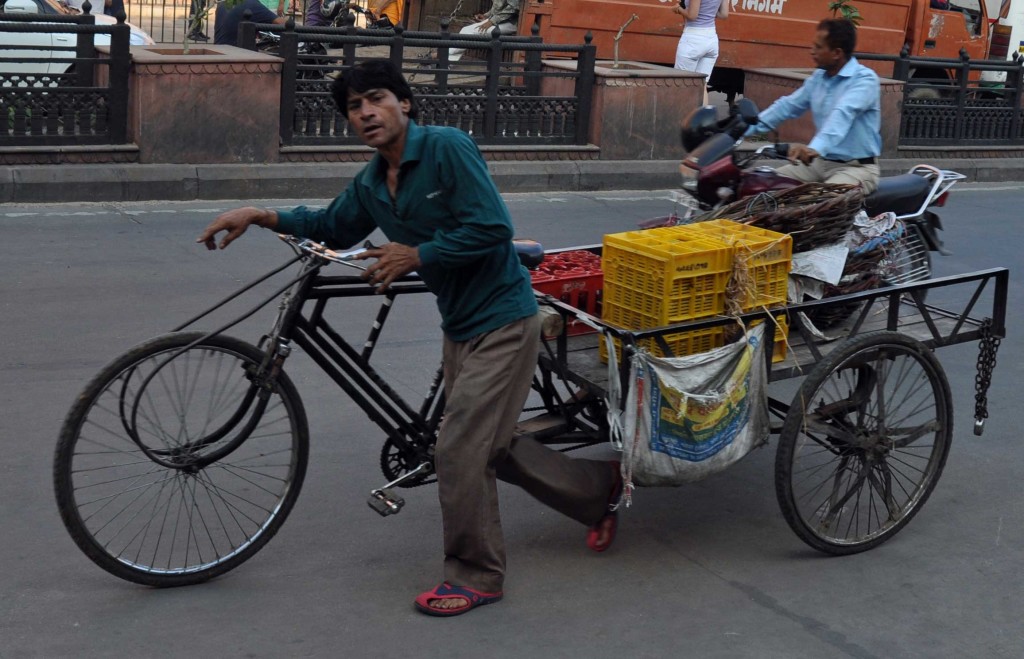
But when you become a parent, something reverts to a very primitive, early stage. You really do turn into your own parents. In some cases, that relationship was so very dysfunctional, that you’ve had to examine it in the past as part of growing up and seeing the behaviour suddenly re-appear in yourself can be a bit shocking. My first reactions to turning into my mother, are paralysed shock, rejection and searching for alternatives, but then she was a bit of a monster. For people with less dysfunctional, or at least, less examined, relationships with their parents, it’s often easier to slip into the historic parenting patterns. Ofcourse parenting is a two person occupation in an ideal world so you also get to deal with your partners parenting style and choices. You can choose to either encourage or discourage, to balance and offset, accept or reject you partner’s choices. When BF2’s partner first slapped their child, my friend could have made it a deal breaker : “Do that again, and you leave the house”. She didn’t. When he chose to spend all of his time with his second child, she could have said this was unfair to their third child. She didn’t, though she herself has spent more time with the other kids as a result.

My partner has told me that I am unreasonably confrontational with my youngest girl. The two of us escalate arguments with each other rather than looking for ways to diffuse the tension. I might have suggested that he’s a bit of a doormat with her but ultimately, his comments have value. We’ve agreed that he can act as “point parent” for our youngest girl. There are many ways to be a parent and I’ve accepted (a bit grudgingly) that his ways are working better with her. Both BF2 and her husband love their kids just as much as we love our kids. We are as open to criticsm for our parenting style and choices as they are, though obviously not in this space. Parents: they fuck you up. 29th January: Love Before I had children, I worried about all sorts of things. I worried that I would love one more than the other, that my love for them or their love for me might take something away from my love for their father. I worried that if I went back to work, they might love their caregiver more than me or simply love me less. None of this came to happen. I’ve learned that love is not a finite thing in our lives. Loving one person does not mean we are unable to love someone else. If anything it means we can love other people better. When we feel ourselves to be loved, we are more secure in ourselves and more confident of our ability to love others. I am at a loss to understand why this seems so much more difficult in a polyamorous sexual relationship, but it does. I have a monogamous relationship with the father of my children. I have deep and abiding loves for my two oldest and dearest of girlfriends, who both predate my partner and for a manfriend thirty years my senior who I met through my kids 15 years ago and who just happens to share my sense of the ridiculous. They are my chosen family, a wonderful phrase Betty Dodson once used, which makes much sense to me. My family is small but precious to me. My love for each of these people is personal, specific to them and in no way makes me love the others less. I don’t have a “favourite”. Each of us brings something new to the relationship. Maybe whilst love is infinite, time is not and there is simply not enough time in people’s lives to work at more than a smallish number of relationships because all relationships require investment of time and energy if they are to flourish. We live in a world where we are constantly rushing, constantly competing, measuring and evaluating our worth against someone else’s standards. Our own real-life, real-time relationships can seem very mundane. It seems increasingly difficult to find or make time for love and very difficult indeed to value what we have and hold dear. 30th January: Gender If gender is essentially an artificial construct, essentially imaginary, a way of behaving pulled in all sorts of different directions by different cultures, in different times, then why is it so bloody important?
Why do we need gender? Something about gender labels must work at some level for society to struggle so hard to police them. If we moved towards a more fluid gender identity, where people could move up and down an entire spectrum of behaviours rather than the usual acceptable male versus female, what would happen? Understanding how and why gender roles work towards ensuring everyone has a role in family and community, might allow me to understand why these ideas persist. Understanding how and why gender roles used to work and no longer work in the same way, might allow us allow to review and revise the way families and communities work. Surely it cannot just be about validating men at the expense of women, even if it sometimes feels that way? Prejudice My baby doesn’t do subtle. For some reason, whilst my oldest child loves the details of language, the infered and implied, the puns, sarcasm and irony, my youngest girl misses all of it. She is a blunt instrument and has just bombed out on her English GCSE mock exam, in particular she struggled with one question: “What is the significance of pride in the novel Pride and Prejudice?” So we’re going through something of an autopsy and it turns out there are any number of suggested answers on-line. If we’re lucky she can redraft the essay into a form her teacher will approve of. There are two types of questions in the English Lit. exam, themes and characters. Themes such as pride, prejudice, marriage, respectability, appearances, individuality, class, wealth etc are supposed to be the easier option because they usually have more to write about.  So, what is the significance of pride in the novel Pride and Prejudice? The novel was originally titled “First Impressions” and was altered at the suggestion of her publisher, to echo her earlier succesful novel, Sense and Sensibility. It works as a title because the theme of judgement runs through the entire novel, and lies at the centre of many of the major events in the story, dealing as it does with the reconciling of pre-judgement or prejudice based on first impressions, with a more measured, realistic judgement based on facts and experience. Austin is writing about a society very concerned with reputation and appearance. Every social gathering, from the ball at Netherfield to private gatherings at home with the Bennet family is filled with gossip, including superficial, pre-judging of the people around them, in particular their character and social standing is highlighted, starting with the very first sentence, “It is a truth universally acknowledged that a single man in posession of a good fortune, must be in want of a wife”The two main characters , Mr Darcy and Elizabeth Bennet, exhibit both pride and prejudice. Darcy’s pride of place, is founded on social prejudice, while Elizabeth Bennet’s initial prejudice against him is built on hurt pride. The story describes how both the characters move from their initial prejudice, through recognition of their own flaws to a more measured and realistic judgement and appreciation of each other.
So, what is the significance of pride in the novel Pride and Prejudice? The novel was originally titled “First Impressions” and was altered at the suggestion of her publisher, to echo her earlier succesful novel, Sense and Sensibility. It works as a title because the theme of judgement runs through the entire novel, and lies at the centre of many of the major events in the story, dealing as it does with the reconciling of pre-judgement or prejudice based on first impressions, with a more measured, realistic judgement based on facts and experience. Austin is writing about a society very concerned with reputation and appearance. Every social gathering, from the ball at Netherfield to private gatherings at home with the Bennet family is filled with gossip, including superficial, pre-judging of the people around them, in particular their character and social standing is highlighted, starting with the very first sentence, “It is a truth universally acknowledged that a single man in posession of a good fortune, must be in want of a wife”The two main characters , Mr Darcy and Elizabeth Bennet, exhibit both pride and prejudice. Darcy’s pride of place, is founded on social prejudice, while Elizabeth Bennet’s initial prejudice against him is built on hurt pride. The story describes how both the characters move from their initial prejudice, through recognition of their own flaws to a more measured and realistic judgement and appreciation of each other.  In the first part of the novel, both Darcy and Elizabeth clearly demonstrate their initial pride and their prejudice towards each other. At the first ball, Lizzy shows her prejudice towards Darcy, perhaps understandable due to his proud and dismissive manner when he gives his assessment of Elizabeth as “tolerable but not handsome enough to tempt me” She allows everything to feed the prejudice she develops against him and is prepared to believe anything bad about him to fuel the impression she has built. Because of this she interprets Darcy’s dislike of Wickham as being due solely to Darcy’s pride: “His guilt and his descent appear by your account to be the same” said Elizabeth angrily;”for I have heard you accuse him of nothing worse than of being the son of Mr Darcy’s steward, and of that, I can assure you, he informed me himself” But Elizabeth is not the only character to display prejudice against Mr Darcy. Local society has decided against him by chapter 3: “His character was decided. He was the proudest, most disagreeable man in the world and everybody hoped that he would never come there again”
In the first part of the novel, both Darcy and Elizabeth clearly demonstrate their initial pride and their prejudice towards each other. At the first ball, Lizzy shows her prejudice towards Darcy, perhaps understandable due to his proud and dismissive manner when he gives his assessment of Elizabeth as “tolerable but not handsome enough to tempt me” She allows everything to feed the prejudice she develops against him and is prepared to believe anything bad about him to fuel the impression she has built. Because of this she interprets Darcy’s dislike of Wickham as being due solely to Darcy’s pride: “His guilt and his descent appear by your account to be the same” said Elizabeth angrily;”for I have heard you accuse him of nothing worse than of being the son of Mr Darcy’s steward, and of that, I can assure you, he informed me himself” But Elizabeth is not the only character to display prejudice against Mr Darcy. Local society has decided against him by chapter 3: “His character was decided. He was the proudest, most disagreeable man in the world and everybody hoped that he would never come there again” Ofcourse Mrs Bennet, a woman of ‘mean understanding, little information and uncertain temper” also decides against Mr Darcy, “he is a most disagreeable, horrid man, not at all worth pleasing” Mrs Bennet acts on her prejudice, insulting him within earshot. She apologises to Elizabeth for leaving her to walk alone with Darcy. However, after she learns that Elizabeth has accepted him, she immediately shows her superficiality and changes both her mind and prejudice, ‘What pin-money, what jewels, what carriages you will have!’ Not all prejudice shown in the novel is towards Mr Darcy. The Bingley sisters are both prejudiced against Elizabeth and Jane Bennet. This is mainly out of self-interest. They dislike Jane because they feel she isn’t good enough for their brother; they dislike Elizabeth because Darcy likes her and Miss Bingley wants to marry him. Mr Collins reflects both pride and prejudice at every turn of speech and behaviour, described as ‘mixture of pride and obsequiousness, self-importance and humility.’ His pride changes according to whom he’s speaking. In the company of people he believes to be below him socially, he revels in taking the moral high ground and bragging about his standing. With those above him, his pride vanishes and he often humiliates himself.
Ofcourse Mrs Bennet, a woman of ‘mean understanding, little information and uncertain temper” also decides against Mr Darcy, “he is a most disagreeable, horrid man, not at all worth pleasing” Mrs Bennet acts on her prejudice, insulting him within earshot. She apologises to Elizabeth for leaving her to walk alone with Darcy. However, after she learns that Elizabeth has accepted him, she immediately shows her superficiality and changes both her mind and prejudice, ‘What pin-money, what jewels, what carriages you will have!’ Not all prejudice shown in the novel is towards Mr Darcy. The Bingley sisters are both prejudiced against Elizabeth and Jane Bennet. This is mainly out of self-interest. They dislike Jane because they feel she isn’t good enough for their brother; they dislike Elizabeth because Darcy likes her and Miss Bingley wants to marry him. Mr Collins reflects both pride and prejudice at every turn of speech and behaviour, described as ‘mixture of pride and obsequiousness, self-importance and humility.’ His pride changes according to whom he’s speaking. In the company of people he believes to be below him socially, he revels in taking the moral high ground and bragging about his standing. With those above him, his pride vanishes and he often humiliates himself.  Mr Collins blindly attributes Elizabeth’s reaction to his proposal as the ‘usual practice of elegant females’ His arrogance and pride will not let him allow a refusal. The second part of the story describes how both Elizabeth and Darcy come to recognise their own faults, both their pride and prejudices. Darcy despises Elizabeth’s family. From the beginning, he is shown to be too proud of his own social standing. He looks down on people, especially the Bennets. This is made worse by his natural quietness, which makes him seem even more aloof to the people around him. At Netherfield Park, Elizabeth’s family had seemed vulgar and ill-bred, but at Rosings, Darcy is embarrassed by the vulgarity of his own aunt, Lady Catherine and realizes that manners are not the monopoly of the elite. Lady Catherine de Bourgh’s pride in her family position and is prejudiced against people from a lower social class, unless they’re prepared to play by her rules. So she’s prepared to tolerate Collins, but despises Elizabeth. “Heaven and earth! – of what are you thinking? Are the shades of Pemberley to be polluted?”
Mr Collins blindly attributes Elizabeth’s reaction to his proposal as the ‘usual practice of elegant females’ His arrogance and pride will not let him allow a refusal. The second part of the story describes how both Elizabeth and Darcy come to recognise their own faults, both their pride and prejudices. Darcy despises Elizabeth’s family. From the beginning, he is shown to be too proud of his own social standing. He looks down on people, especially the Bennets. This is made worse by his natural quietness, which makes him seem even more aloof to the people around him. At Netherfield Park, Elizabeth’s family had seemed vulgar and ill-bred, but at Rosings, Darcy is embarrassed by the vulgarity of his own aunt, Lady Catherine and realizes that manners are not the monopoly of the elite. Lady Catherine de Bourgh’s pride in her family position and is prejudiced against people from a lower social class, unless they’re prepared to play by her rules. So she’s prepared to tolerate Collins, but despises Elizabeth. “Heaven and earth! – of what are you thinking? Are the shades of Pemberley to be polluted?” 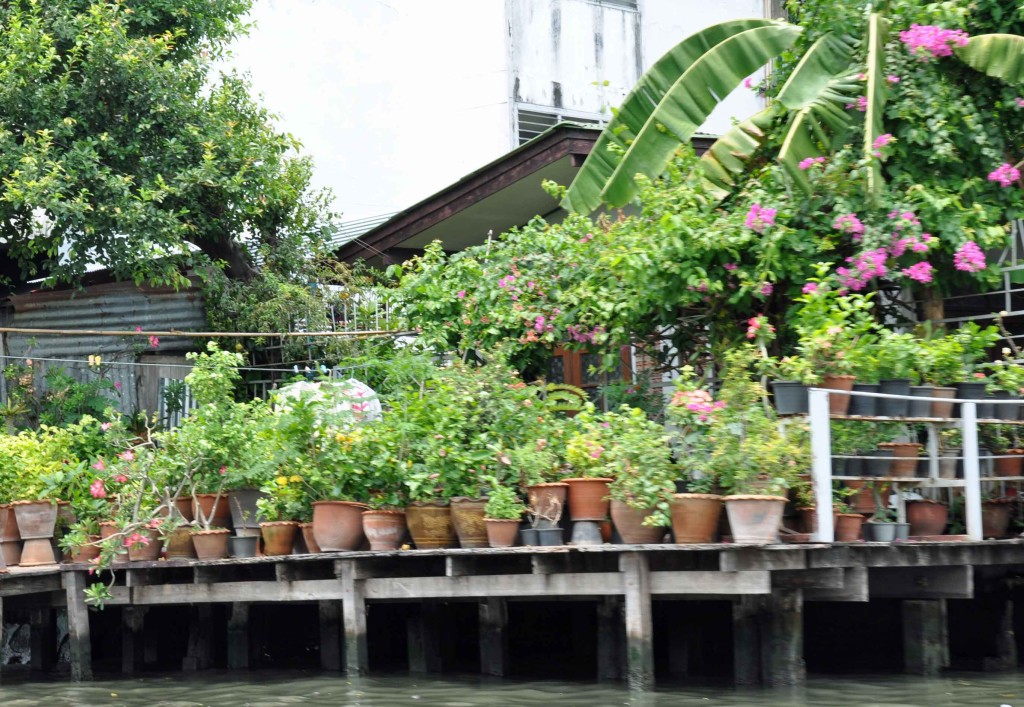 But, Darcy’s prejudice continues even when he confesses his love to Elizabeth. At this intimate moment, he begins to talk about the great difference in social background of their families. The narrator makes it clear, Darcy’s proposal degrades Elizabeth and her social status, showing that Darcy’s prejudice against the lower class still remains. Both Elizabeth’s pride and her prejudice control the way she handles Darcy’s marriage proposal. Her pride forbids her to accept after he has displayed how he thinks she is beneath him. Her rejection of his proposal breaks through Darcy’s misplaced pride and he is left humbled. The turning point in the novel for Elizabeth comes with the receipt of Darcy’s letter. Although she disbelieves Darcy on the subject of Jane, she is forced to consider carefully the statement which relates to Wickham. Her second reading, Wickham’s own indiscretion in talking so much to her, the knowledge that Darcy’s criticism of her family are justified, all force her to see how clearly prejudiced she has been. She also appreciates that her own family has brought about Jane’s unhappiness. The most significant change here is Elizabeth’s recognition of her own family’s lack of merit and a re-evaluation of Darcy’s character. As Darcy was stripped of his pride and prejudice by her rejection, Elizabeth is likewise changed, ‘all her former prejudices had been removed.’
But, Darcy’s prejudice continues even when he confesses his love to Elizabeth. At this intimate moment, he begins to talk about the great difference in social background of their families. The narrator makes it clear, Darcy’s proposal degrades Elizabeth and her social status, showing that Darcy’s prejudice against the lower class still remains. Both Elizabeth’s pride and her prejudice control the way she handles Darcy’s marriage proposal. Her pride forbids her to accept after he has displayed how he thinks she is beneath him. Her rejection of his proposal breaks through Darcy’s misplaced pride and he is left humbled. The turning point in the novel for Elizabeth comes with the receipt of Darcy’s letter. Although she disbelieves Darcy on the subject of Jane, she is forced to consider carefully the statement which relates to Wickham. Her second reading, Wickham’s own indiscretion in talking so much to her, the knowledge that Darcy’s criticism of her family are justified, all force her to see how clearly prejudiced she has been. She also appreciates that her own family has brought about Jane’s unhappiness. The most significant change here is Elizabeth’s recognition of her own family’s lack of merit and a re-evaluation of Darcy’s character. As Darcy was stripped of his pride and prejudice by her rejection, Elizabeth is likewise changed, ‘all her former prejudices had been removed.’ Although the two main characters have had their pride and prejudices stripped from them, they still live in a society where reputation and social standing are of parmount importance. Lydia Bennet’s thoughtless behaviour, initially her flirting but culminating in running off with Wickham, prejudices society against her family. It reduces the possibility that her sister’s will ever marry as articulated through the snobbish patronising attitude of Mr Collins’ letter: “this false step in one daughter will be injurious to the fortunes of all the others, for who, as Lady Catherine herself condescendingly says, will connect themselves with such a family” His letter of ‘sympathy’ about Lydia’s elopement to Mr Bennet reflects a totally unchristian attitude, and the quote, ‘the death of your daughter would have been a blessing in comparison to this,‘ is the key to Mr Collins’s character, he must only be associated with what is highly respectable. Darcy’s role in redeeming Lydia Wickham, bribing Wickham to marry her, proves that he has completely shed his pride. His love for Elizabeth is the only reason for him to get involved in the Bennet’s disgrace. It also allows Elizabeth to overturn her father’s prejudice and suspicion of Darcy when he proposes to Elizabeth.
Although the two main characters have had their pride and prejudices stripped from them, they still live in a society where reputation and social standing are of parmount importance. Lydia Bennet’s thoughtless behaviour, initially her flirting but culminating in running off with Wickham, prejudices society against her family. It reduces the possibility that her sister’s will ever marry as articulated through the snobbish patronising attitude of Mr Collins’ letter: “this false step in one daughter will be injurious to the fortunes of all the others, for who, as Lady Catherine herself condescendingly says, will connect themselves with such a family” His letter of ‘sympathy’ about Lydia’s elopement to Mr Bennet reflects a totally unchristian attitude, and the quote, ‘the death of your daughter would have been a blessing in comparison to this,‘ is the key to Mr Collins’s character, he must only be associated with what is highly respectable. Darcy’s role in redeeming Lydia Wickham, bribing Wickham to marry her, proves that he has completely shed his pride. His love for Elizabeth is the only reason for him to get involved in the Bennet’s disgrace. It also allows Elizabeth to overturn her father’s prejudice and suspicion of Darcy when he proposes to Elizabeth.  Elizabeth’s recognition that, “Darcy was exactly the man who, in disposition and talent, would most suit her”, suggests that her initial prejudice against him is dissolved and the time is now ripe for them to get married. By the end of the novel, both Elizabeth and Darcy have overcome both pride and prejudice, they complement each other entirely now that each has overcome the strength of first impressions and their own pride and prejudice. Darcy admits that his pride was “unpardonable. I cannot think of it without abhorrence” 31st January: Blood Because I was told I was too shrill when bemoaning the modern attitude towards women’s reproduction and menstruation. Apparently it’s not an issue now…
Elizabeth’s recognition that, “Darcy was exactly the man who, in disposition and talent, would most suit her”, suggests that her initial prejudice against him is dissolved and the time is now ripe for them to get married. By the end of the novel, both Elizabeth and Darcy have overcome both pride and prejudice, they complement each other entirely now that each has overcome the strength of first impressions and their own pride and prejudice. Darcy admits that his pride was “unpardonable. I cannot think of it without abhorrence” 31st January: Blood Because I was told I was too shrill when bemoaning the modern attitude towards women’s reproduction and menstruation. Apparently it’s not an issue now… 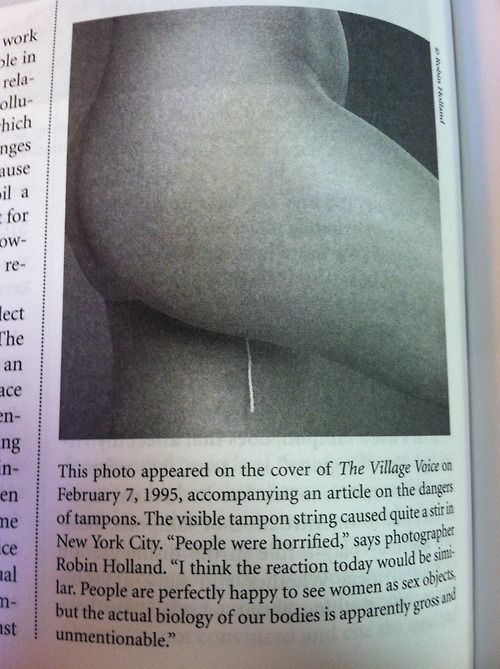 and I’m sure no one looking at the picture above thought the beautiful smooth female arse was at all unusual. That’s not what we notice at all. Why is a piece of string or a spot of blood so very shocking? Still. Recipes: Where do you get your recipes from? At this time of year, I’m still filled with enthusiasm and interest in the cookery books two helpful children offered up for Christmas presents. Not even the kale crisps have daunted my enthusiasm. Yet. So I find myself looking through, and knowing my limitations setting myself a very low target of one new recipe a month. It fits in quite nicely with the diarised lay-out of the most recent Nigel Slater books. Plus the kids really can’t cope with too much change, even as teenagers. But since we’re also one of the last remaining houses in the street to have newspapers delivered, there are alos the regular recipe columns, Saturday and midweek to look through. Mostly, they’re a bit too aspirational for me but every so often something really tasty or just practical comes along. A recipe for pickled chillies came along just in time to deal with a small mountain of the things that had built up in the bottom salad drawer of the fridge. It proved incredibly useful in catering for a lone Colombian, come to supper and hankering for just a little bit of heat to add to our calm British palette. And last week, full of enthusiasm for all things mezze, the newspaper recipes featured butter beans.
and I’m sure no one looking at the picture above thought the beautiful smooth female arse was at all unusual. That’s not what we notice at all. Why is a piece of string or a spot of blood so very shocking? Still. Recipes: Where do you get your recipes from? At this time of year, I’m still filled with enthusiasm and interest in the cookery books two helpful children offered up for Christmas presents. Not even the kale crisps have daunted my enthusiasm. Yet. So I find myself looking through, and knowing my limitations setting myself a very low target of one new recipe a month. It fits in quite nicely with the diarised lay-out of the most recent Nigel Slater books. Plus the kids really can’t cope with too much change, even as teenagers. But since we’re also one of the last remaining houses in the street to have newspapers delivered, there are alos the regular recipe columns, Saturday and midweek to look through. Mostly, they’re a bit too aspirational for me but every so often something really tasty or just practical comes along. A recipe for pickled chillies came along just in time to deal with a small mountain of the things that had built up in the bottom salad drawer of the fridge. It proved incredibly useful in catering for a lone Colombian, come to supper and hankering for just a little bit of heat to add to our calm British palette. And last week, full of enthusiasm for all things mezze, the newspaper recipes featured butter beans.  Butter beans? There’s something more than a little daunting about most beans and pulses. As a vegetarian you might reasonably expect me to be overly qualified to cook them but like tofu, tempeh and whatever else meat substitute you might care to think of, I’ve steered clear. My Colombian friend has probably cooked more beans (other than the ubiquitous baked, sugary salty things on toast). Everyone says that you should have a couple of tins in the cupboard and maybe this is my time. Actually they all seem to suggest that you should cook them from dry and store but tins are hardcore enough for me. I have two recipes that I’m considering, a butter bean curry and a butter bean dip, not to be served at the same meal obviously. Sustaining interest in cooking on a cold dark evening is difficult in the face of beans, but maybe could be lifted by a good bit of cake baking. Slater has a recipe for marmalade cake that looks to be just the right side of sticky whilst Nigella Lawson has that Chocolate Liquorice cake to bake. Time to check the cupboard for cake tins. The beans can be moved to the back of the cupboard, pending a good slice of cake for tea time. Quotas A long time ago when I was starting out in paid employment, we (the women in the office) were told that it was only a matter of time before the numbers evened out at the top table. In our new, egalitarian times, the new 50:50 ranks would simply climb the ladder and all would be well. It didn’t quite turn out that way. Positions of influence and power and still overwhelmingly dominated by men. Maybe it’s time to give quotas a chance, especially in politics where it’s hard not to accept the benefits of more real representation of the population as a whole. But what about merit? The argument that is always trotted out against quotas is that they are fundamentally un-meritocratic. Really?
Butter beans? There’s something more than a little daunting about most beans and pulses. As a vegetarian you might reasonably expect me to be overly qualified to cook them but like tofu, tempeh and whatever else meat substitute you might care to think of, I’ve steered clear. My Colombian friend has probably cooked more beans (other than the ubiquitous baked, sugary salty things on toast). Everyone says that you should have a couple of tins in the cupboard and maybe this is my time. Actually they all seem to suggest that you should cook them from dry and store but tins are hardcore enough for me. I have two recipes that I’m considering, a butter bean curry and a butter bean dip, not to be served at the same meal obviously. Sustaining interest in cooking on a cold dark evening is difficult in the face of beans, but maybe could be lifted by a good bit of cake baking. Slater has a recipe for marmalade cake that looks to be just the right side of sticky whilst Nigella Lawson has that Chocolate Liquorice cake to bake. Time to check the cupboard for cake tins. The beans can be moved to the back of the cupboard, pending a good slice of cake for tea time. Quotas A long time ago when I was starting out in paid employment, we (the women in the office) were told that it was only a matter of time before the numbers evened out at the top table. In our new, egalitarian times, the new 50:50 ranks would simply climb the ladder and all would be well. It didn’t quite turn out that way. Positions of influence and power and still overwhelmingly dominated by men. Maybe it’s time to give quotas a chance, especially in politics where it’s hard not to accept the benefits of more real representation of the population as a whole. But what about merit? The argument that is always trotted out against quotas is that they are fundamentally un-meritocratic. Really?  There are three assumptions underlying this argument which bear a closer look:
There are three assumptions underlying this argument which bear a closer look:
- recruitment and promotion without quotas is meritocratic
- there are clear, objective definitions of meritocracy that we all have agreed; and,
- gender is an inherently unmeritocratic criterion to be excluded.
None of these assumptions is valid. The arugument that gender quotas are unmeritocratic is fundamentally flawed from start to finish. The first is actually quite insulting. Recruitment without quotas is not meritocratic but rather based on (male) gender privilege and a very uneven playing field. To suggest otherwise is to suggest that elite, white, wealthy middle aged men are just better, that they are over-represented because they deserve to be. It also suggests that those under-represented in the current system, whether women, ethnic minorities or people from less privileged backgrounds are absent because they don’t deserve to be present, they are simply not good enough. That’s a pretty bold, racist and sexist position to adopt, yet in slips into the argument pretty often. And if we use a justification of qualification and experience, rather than inherent talent, then we must ask whether we are using good criteria, given that the criteria serve to exclude a large part of our talent pool. This leads to the second point.  The criteria that we use to determine merit are problematic. Firstly, we don’t really know what the criteria are. They vary depending on whom you ask. Secondly, they don’t necessarily reflect what it actually takes to do the job. If you ask people what they are looking for in a candidate or line report, they want someone who is loyal, available, and capable of succeeding. Fair enough, you might say it’s important to be able to rely on someone to carry out their role as required but at the same time, if you are just voting for a lackey who will toe the party line, what makes one candidate more “meritorious” than another? Wouldn’t any lackey do? And what about availability? Is it reasonable to make senior roles the reserve of people with time on their hands, to exclude people from senior roles who have commitments outside the role such as childcare? This limits politics to people without any caring responsibilities, people without any interests outside of a very narrow career path. That is hardly a representative sample of society. Within the workplace, it excludes women with children from being considered for promotion, whether or not the conflict between work and outside commitments is real. As the adage goes, “if you want something done, ask a busy person”, precisely because people with multiple demands on their time are often the best equipped to multitask and get things done.
The criteria that we use to determine merit are problematic. Firstly, we don’t really know what the criteria are. They vary depending on whom you ask. Secondly, they don’t necessarily reflect what it actually takes to do the job. If you ask people what they are looking for in a candidate or line report, they want someone who is loyal, available, and capable of succeeding. Fair enough, you might say it’s important to be able to rely on someone to carry out their role as required but at the same time, if you are just voting for a lackey who will toe the party line, what makes one candidate more “meritorious” than another? Wouldn’t any lackey do? And what about availability? Is it reasonable to make senior roles the reserve of people with time on their hands, to exclude people from senior roles who have commitments outside the role such as childcare? This limits politics to people without any caring responsibilities, people without any interests outside of a very narrow career path. That is hardly a representative sample of society. Within the workplace, it excludes women with children from being considered for promotion, whether or not the conflict between work and outside commitments is real. As the adage goes, “if you want something done, ask a busy person”, precisely because people with multiple demands on their time are often the best equipped to multitask and get things done.  We should not exclude people simply because they are busy. Women often have less free time than men because they shoulder a greater proportion of domestic burdens, but this also makes them adept at juggling multiple commitments and delegating where necessary. These are skills that would serve them well when facing the many demands made of a politician or a management role in the workplace. There are a sufficient number of exceptional succesful women to demonstrate that women are more than capable of winning a fair race. If you look at the academic definitions of candidate merit, you get yet another definition. We tend to focus on objective criteria such as education, income and prior experience. Education and income may be measures of achievement but may also be markers of social privilege. Women tend to be at least as well educated as men, but earn lower salaries on average in the workplace. Salaries are therefore not a good indicator of merit. Prior experience can be an indicator of know-how, but it may also reflect privileged access. One common denominator in our assessments of “quality” and “merit” is that we tend to base these judgements on the status quo. We look at people in senior roles now and how they got into office as our guidelines for determining what future candidates should do. The result is that we tip the playing field by favouring criteria that have already advantaged white men and will continue to do so. There is no objective measure of merit. When we argue that women, or any other under-represented group, have less “merit” than those in office, we are simply saying that they do not reproduce the status quo. And yet, by a different measure, that might be the very thing that makes them good candidates. Herein lies my third critique of the “merit” argument. We need to think about what we’re trying to achieve.
We should not exclude people simply because they are busy. Women often have less free time than men because they shoulder a greater proportion of domestic burdens, but this also makes them adept at juggling multiple commitments and delegating where necessary. These are skills that would serve them well when facing the many demands made of a politician or a management role in the workplace. There are a sufficient number of exceptional succesful women to demonstrate that women are more than capable of winning a fair race. If you look at the academic definitions of candidate merit, you get yet another definition. We tend to focus on objective criteria such as education, income and prior experience. Education and income may be measures of achievement but may also be markers of social privilege. Women tend to be at least as well educated as men, but earn lower salaries on average in the workplace. Salaries are therefore not a good indicator of merit. Prior experience can be an indicator of know-how, but it may also reflect privileged access. One common denominator in our assessments of “quality” and “merit” is that we tend to base these judgements on the status quo. We look at people in senior roles now and how they got into office as our guidelines for determining what future candidates should do. The result is that we tip the playing field by favouring criteria that have already advantaged white men and will continue to do so. There is no objective measure of merit. When we argue that women, or any other under-represented group, have less “merit” than those in office, we are simply saying that they do not reproduce the status quo. And yet, by a different measure, that might be the very thing that makes them good candidates. Herein lies my third critique of the “merit” argument. We need to think about what we’re trying to achieve.  Do we want to continue to replicate the current pattern and system, or do we want to do better? The world is changing around us. Of course we want our leaders to represent the best of society – we want people who are intelligent, talented, honest, decent etc. But we also want people we can identify with. The two concepts are not mutually exclusive; if we draw from all of society’s talent pool, then we can get the best of every social group, thus achieving quality without sacrificing diversity. And why do we want people like us? Because a large part of succesful businesses is the ability to understand the opinions, needs, experiences of others, of the market at large, and we are best equipped to do this when we have direct knowledge and understanding of these needs and experiences. Being a woman, in an environment where women are under-represented and where more women’s voices are needed, fulfils one of the central requirements of representation. Arguably, it is a form of merit. So when opponents of gender quotas argue in favour of merit, what they are actually defending is the status quo. But when access to politics is based on (male) gender and privileged status, using criteria that discriminate against talented individuals from non-traditional backgrounds, the status quo actually undermines meritocracy. If we truly want our leaders to be the best and the brightest then we need to reopen the talent pool to the whole of society and use criteria that actually reflect the capacity of the entire poulation. At which point, we might find that some of those wealthy white men don’t measure up quite so well after all.
Do we want to continue to replicate the current pattern and system, or do we want to do better? The world is changing around us. Of course we want our leaders to represent the best of society – we want people who are intelligent, talented, honest, decent etc. But we also want people we can identify with. The two concepts are not mutually exclusive; if we draw from all of society’s talent pool, then we can get the best of every social group, thus achieving quality without sacrificing diversity. And why do we want people like us? Because a large part of succesful businesses is the ability to understand the opinions, needs, experiences of others, of the market at large, and we are best equipped to do this when we have direct knowledge and understanding of these needs and experiences. Being a woman, in an environment where women are under-represented and where more women’s voices are needed, fulfils one of the central requirements of representation. Arguably, it is a form of merit. So when opponents of gender quotas argue in favour of merit, what they are actually defending is the status quo. But when access to politics is based on (male) gender and privileged status, using criteria that discriminate against talented individuals from non-traditional backgrounds, the status quo actually undermines meritocracy. If we truly want our leaders to be the best and the brightest then we need to reopen the talent pool to the whole of society and use criteria that actually reflect the capacity of the entire poulation. At which point, we might find that some of those wealthy white men don’t measure up quite so well after all.
February
1st February: Obesity
To avoid getting fatter, don’t get fat….
Childhood obesity is a big problem and getting bigger. Children who are overweight or obese are very likely to grow into overweight and obese adults. Tackling childhood obesity is the easiest way to reduce overall obesity further down the road because the habits of children are easier to change than the habits of their parents. As always, prevention is better and considerably easier, than trying to cure an eating disorder or illness though it is always difficult to create sufficient political will to spend money now to prevent a later expense timebomb. What can be done about childhood obesity? An article in the Guardian describes a rising wave of British children who are both obese and malnourished. Malnutrition is not just about starvation. Apart from the very real danger that obesity will lead to heart disease, stroke, diabetes and cancer in later life, the modern diet of our children also leads to vitamin deficiencies and mouths full of rotten teeth. Even now, type II diabetes which is linked to obesity already consumes nearly 10% of the NHS budget. Britain is said to spend more on obesity related healthcare than on the police, the fire service, prisons and the criminal justice system all combined. Obesity related conditions already cost the NHS £6bn a year and rising. Add to that another £9bn cost for diabetes. The problem is only going to get worse. The costs will escalate. When will we feel able to accept obesity as a social problem rather than an individual issue? How many of us will have to be obese to reach that tipping point?
2nd February: Good Health
The UK spends relatively little on health care. We’re positively stingy when it comes to social care as well. Yet despite this, on any number of health measures, we do well 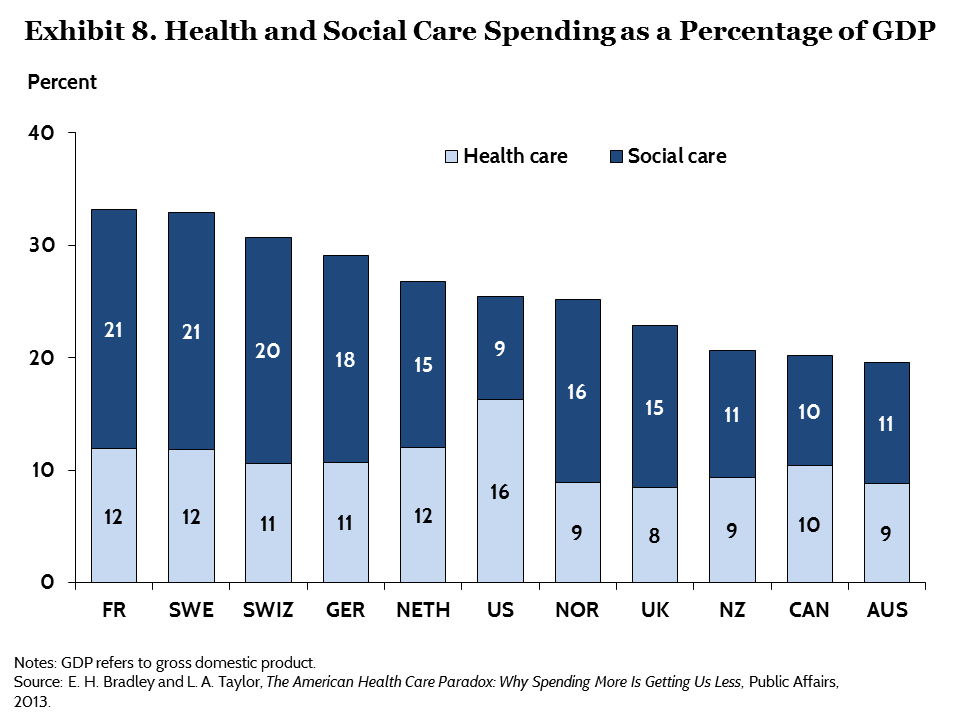 Even when we confine the comparison to public sector (rather than total) spending on health care, the UK is pretty mean. The UK government was among those that spent least ($2,802). Even the US, often thought of as a predominantly private health system, spends more public funds per capita on health care than the UK ($4,197). The strain that being cheap with social care places on the NHS, through delayed discharge, is well recognised. Given that the UK spends the least, it is hardly surprising that we also have fewer medical resources than most of the other high-income countries. We have by far the fewest Magnetic Resonance Imaging (MRI) machines, just 6.1 per million population, compared to an average of 17.85 across the countries for which data were available in a recent report. Given strident calls to reduce hospital capacity, it is noteworthy that the UK also has one of the lowest numbers of acute care beds (2.3 per 1,000 population compared to an average of 3.2). Three years ago the LSE published a paper in the BMJ that analysed data from the Commonwealth Fund, a foundation based in New York. It shows that while the NHS was less generously funded than other health systems, sustained investment in the decade to 2009 had brought about substantial improvements.
Even when we confine the comparison to public sector (rather than total) spending on health care, the UK is pretty mean. The UK government was among those that spent least ($2,802). Even the US, often thought of as a predominantly private health system, spends more public funds per capita on health care than the UK ($4,197). The strain that being cheap with social care places on the NHS, through delayed discharge, is well recognised. Given that the UK spends the least, it is hardly surprising that we also have fewer medical resources than most of the other high-income countries. We have by far the fewest Magnetic Resonance Imaging (MRI) machines, just 6.1 per million population, compared to an average of 17.85 across the countries for which data were available in a recent report. Given strident calls to reduce hospital capacity, it is noteworthy that the UK also has one of the lowest numbers of acute care beds (2.3 per 1,000 population compared to an average of 3.2). Three years ago the LSE published a paper in the BMJ that analysed data from the Commonwealth Fund, a foundation based in New York. It shows that while the NHS was less generously funded than other health systems, sustained investment in the decade to 2009 had brought about substantial improvements.  The Commonwealth Fund recently published a new set of data, covering developments up to 2013 in 13 high-income countries (Australia, Canada, Denmark, France, Germany, Japan, Netherlands, New Zealand, Norway, Sweden, Switzerland, the United Kingdom, and the United States). It shows that the UK is anything but a big spender in terms of health and social care, our actual health outcomes are pretty miraculous. And yet, time after time, we are told that there is huge wastage within the NHS, that we must cutback and cut more, and more still. Partly this is out of fear of where the costs are going in a world with an increasingly elderly, and consequently sicker population. We will need to spend more to keep our elderly alive and healthy. Geriatric care is expensive. Since the elderly tend to vote in elections, their health care is likely to be a vote winner. Healthcare is going to get more expensive. Who is going to pay?
The Commonwealth Fund recently published a new set of data, covering developments up to 2013 in 13 high-income countries (Australia, Canada, Denmark, France, Germany, Japan, Netherlands, New Zealand, Norway, Sweden, Switzerland, the United Kingdom, and the United States). It shows that the UK is anything but a big spender in terms of health and social care, our actual health outcomes are pretty miraculous. And yet, time after time, we are told that there is huge wastage within the NHS, that we must cutback and cut more, and more still. Partly this is out of fear of where the costs are going in a world with an increasingly elderly, and consequently sicker population. We will need to spend more to keep our elderly alive and healthy. Geriatric care is expensive. Since the elderly tend to vote in elections, their health care is likely to be a vote winner. Healthcare is going to get more expensive. Who is going to pay?
4th February: Sleep
One of the things I’m happy to count as a parenting success is having two teenagers who will sleep through the night without interruption. It’s a small success, but faced with a father who finds it impossible most nights not to get up and wander about a bit, it’s a very real success. Being able to sleep easily, almost everywhere, is something I took entirely for granted until he came along. They never really warn you about the trivial things that build up over the years to rage inducing points of tension. Luckily for him, I can fall back to sleep when he wakes me up at 2 or 3am, but if I was at all sensitive at sleep time, I’d have killed him long since. The paper had twelve tips for people struggling to sleep. Most are obvious though the 90 minute rule rings very true for me.  1 Avoid blue light Light towards the blue end of the spectrum is especially stimulating and, unfortunately, computer screens, tablets, smartphones and LED lighting all emit a lot of blue light. Try not to use these devices in the two hours before you go to bed. 2 Take a bath Taking a bath or shower artificially raises your body temperature, but when you climb out of the tub or shower, this temperature abruptly drops and sends a signal to your body that you are ready for sleep. Take a bath or shower immediately before you head to bed. 3 Stay away from alcohol A small amount of alcohol might help you get to sleep more quickly, it also gives you a more disturbed night, increases the chances of snoring and disrupts dreaming.
1 Avoid blue light Light towards the blue end of the spectrum is especially stimulating and, unfortunately, computer screens, tablets, smartphones and LED lighting all emit a lot of blue light. Try not to use these devices in the two hours before you go to bed. 2 Take a bath Taking a bath or shower artificially raises your body temperature, but when you climb out of the tub or shower, this temperature abruptly drops and sends a signal to your body that you are ready for sleep. Take a bath or shower immediately before you head to bed. 3 Stay away from alcohol A small amount of alcohol might help you get to sleep more quickly, it also gives you a more disturbed night, increases the chances of snoring and disrupts dreaming.  4 Follow the 90-minute rule Every night your brain goes through several 90-minute sleep cycles. You feel good if you wake up towards the end of a cycle because then you are closest to your normal waking state. To increase the chances of this, decide when you want to wake up and then count back in 90 minutes blocks to discover the best time to fall asleep. So for me, waking at the ungodly hour of 6:30am, I need to fall asleep around either 930pm or 1100am.
4 Follow the 90-minute rule Every night your brain goes through several 90-minute sleep cycles. You feel good if you wake up towards the end of a cycle because then you are closest to your normal waking state. To increase the chances of this, decide when you want to wake up and then count back in 90 minutes blocks to discover the best time to fall asleep. So for me, waking at the ungodly hour of 6:30am, I need to fall asleep around either 930pm or 1100am.
5 Distract your brain Research suggests that you will fall asleep quickly if you tire your mind. Try counting backwards from 100 in threes. Or think of a category (countries or fruit and vegetables) and then come up with an example of that category for each letter of the alphabet. 6 Make a list If you struggle to fall asleep because you are worrying about a problem, or thinking about what you need to do the next day, put a notepad on your bedside table. Before you nod off, make a list of what’s on your mind or make a to-do list for the next morning.  7 Try the magic yawn Fool your body into thinking that you are tired by letting your eyes droop, your arms and legs feel heavy, and even faking a yawn or two. 8 Fool yourself If you want to nod off, try to keep your eyes open and stay awake. Oddly, attempting to stay awake is surprisingly tiring and helps you fall asleep. But you must try to keep your eyes open (you are allowed to blink), but are not allowed to read, watch television, or move about. 9 Condition yourself Pavlov famously rang a bell each time he presented a dog with food, and eventually found that the sound of the bell alone was enough to make the dog salivate. The same concept can help you to fall asleep if you cultivate a standard routine. 10 Don’t just lie thereIf you’re awake for more than about 20 minutes during the night, get out of bed and do some form of non-stimulating activity, such as working on a jigsaw or a colouring book (avoid bright lights and computer screens).
7 Try the magic yawn Fool your body into thinking that you are tired by letting your eyes droop, your arms and legs feel heavy, and even faking a yawn or two. 8 Fool yourself If you want to nod off, try to keep your eyes open and stay awake. Oddly, attempting to stay awake is surprisingly tiring and helps you fall asleep. But you must try to keep your eyes open (you are allowed to blink), but are not allowed to read, watch television, or move about. 9 Condition yourself Pavlov famously rang a bell each time he presented a dog with food, and eventually found that the sound of the bell alone was enough to make the dog salivate. The same concept can help you to fall asleep if you cultivate a standard routine. 10 Don’t just lie thereIf you’re awake for more than about 20 minutes during the night, get out of bed and do some form of non-stimulating activity, such as working on a jigsaw or a colouring book (avoid bright lights and computer screens).  11 Relax, don’t worry Lying awake makes many people feel anxious, and this anxiety disrupts their sleep even more, creating a vicious cycle. If you are struggling to sleep, remember that you are probably getting more sleep than you think and that just relaxing in bed is good for you. 12 Segmented sleep Preindustrial diaries and medical books show that many people didn’t sleep in one solid block, but instead slept for about four hours, woke up for roughly an hour, and then slept for another four hours. The hour between the two periods was spent thinking, reading, chatting and having sex. If you tend to wake in the middle of the night, try embracing a more segmented sleep routine.
11 Relax, don’t worry Lying awake makes many people feel anxious, and this anxiety disrupts their sleep even more, creating a vicious cycle. If you are struggling to sleep, remember that you are probably getting more sleep than you think and that just relaxing in bed is good for you. 12 Segmented sleep Preindustrial diaries and medical books show that many people didn’t sleep in one solid block, but instead slept for about four hours, woke up for roughly an hour, and then slept for another four hours. The hour between the two periods was spent thinking, reading, chatting and having sex. If you tend to wake in the middle of the night, try embracing a more segmented sleep routine.
3rd February: Suicide
I have never felt even the slightest temptation to kill myself but suicide remains the largest single cause of death for men aged 30-50 in the UK. This is apalling, an awful waste of life and opportunity, a disaster to the people involved and to their families. But looking at the Economist graphic, it turns out that the UK is relatively low in the suicide rankings.
4th February: Part time
Someone not very long ago told me that the gender gap was fair.
He though it was fair because the market was just reflecting the poor choices that women make. He believed that girls choose the wrong subjects at school and university and that leads to the “wrong” jobs. Ofcourse it ignores the gap that exists within job types, female engineers being paid less than their male peers etc. It also ignores the extraordinary full time/part time divide. He believed that women freely choose to take responsibility for 90% of the caring for children and elders within society. I’m guessing that he just though women make dumb choices because they’re all dumb, which is, at the least, not very flattering for his mother. What kind of choice do women really have? Is it a free choice or one forced on them by society and by the winners from that society, a very small number of rich men? Because your average everyday man loses out under this system of forced choice. Every time a man fails to share in the responsibility for his own children, every time he steps aside and let’s a woman shoulder the burden for his own parents, that man is diminished. He loses out on the human contact, the connectivity that we all need to survive in this world. He loses his humanity. And it’s not just about a warm and loving glow, about being a decent human being, though that’s important. The largest cause of death for men aged 30 -50 is suicide, and the largest reason given for suicide is a feeling of worthlessness, a lack of connection. Men kill themselves because they feel the world would be a better place without them, no one needs them. Feeling needed is not about how much money you earn but rather about how many people care for you. Everyone is needed. Everyone has value. We need to stop setting men up to avoid human contact, intimacy and emotion.
5th February: Violence
It started with an article on DodsonandRoss where Carlin Ross commented on the recent refugee influx into Germany, the organised violence against women at New Year’s Eve at various railway stations, concluding ” You couldn’t pay me to go to Berlin right now and I fucking love that city.” I love that website for all sorts of reasons, but when Carlin Ross starts to sound like Donald Trump (just read some of the things he says about Mexican immigrants) then something has gone seriously wrong with the world. There are endless ways to compare crime across nations and many comparisons can be found through a quick google search. But the more interesting point that I came across was why you might find it difficult or simply unfair to make comparisons. Violent crime within countries is associated with urban environments. Cities are more dangerous places than the countryside. Intuitively that seems to make sense. Where people are all pushed up against each other in a city, there is more opportunity for a violent interaction just because there are more people to interact with on a regular basis. Some of those people are going to be jerks, irritating and annoying. Some of them are going to be violent. The UK is densely populated, an essentially urban country  “Countries by Population Density in 2015” by Ali Zifan . Looking at the map above, it seems clear that population density may correlate to violence within a country but there have to be other factors at play. Japan and the Netherlands are not famous for their violence despite their high population density. The US which is considerably less densely populated, is also considerably more violent. What’s going on?
“Countries by Population Density in 2015” by Ali Zifan . Looking at the map above, it seems clear that population density may correlate to violence within a country but there have to be other factors at play. Japan and the Netherlands are not famous for their violence despite their high population density. The US which is considerably less densely populated, is also considerably more violent. What’s going on?  “Map of world by intentional homicide rate” by Nikko2013. Looking at correlation maps there is a clear link with poverty and homicide with central and South America and Africa showing high for both poverty and homicide.
“Map of world by intentional homicide rate” by Nikko2013. Looking at correlation maps there is a clear link with poverty and homicide with central and South America and Africa showing high for both poverty and homicide.  “Countries by poverty rate world bank data” . But even here one of the problems in making comparisins seems to come down to language. Homicide is relatively easy to count because after all there’s a dead body that can be counted. Perhaps murder is the only reliable comparison to be made. When it comes to general violence, what we regard as violent varies hugely from country to country and perhaps those definitions speak most clearly to how violent each individual country. In the UK: “Violent crime contains a wide range of offences, from minor assaults such as pushing and shoving that result in no physical harm through to serious incidents of wounding and murder. Around a half of violent incidents identified by police statistics involve no injury to the victim.” Just being caught carrying a knife would be recorded as a violent crime in the UK, or making drunken violent threats. In the UK, around half of all “violent” crimes result in no physical harm at all to the victim. The US definition of harm is much more dangerous sounding. In the US: “Violent crime is composed of four offences: murder and non-negligent manslaughter, forcible rape, robbery, and aggravated assault. Violent crimes are defined as those offences which involve force or threat of force.” So to understand relative violence across countries, you need to break the statistics down by type of crime to be sure that you are comparing like with like. There is an excellent on-line comparison of UK and US crime statistics ( Dispelling The Myth | Why The United Kingdom IS NOT …) which shows that according to reported statistics, you are slightly more likely to be robbed or stabbed in the UK rather than in the US:
“Countries by poverty rate world bank data” . But even here one of the problems in making comparisins seems to come down to language. Homicide is relatively easy to count because after all there’s a dead body that can be counted. Perhaps murder is the only reliable comparison to be made. When it comes to general violence, what we regard as violent varies hugely from country to country and perhaps those definitions speak most clearly to how violent each individual country. In the UK: “Violent crime contains a wide range of offences, from minor assaults such as pushing and shoving that result in no physical harm through to serious incidents of wounding and murder. Around a half of violent incidents identified by police statistics involve no injury to the victim.” Just being caught carrying a knife would be recorded as a violent crime in the UK, or making drunken violent threats. In the UK, around half of all “violent” crimes result in no physical harm at all to the victim. The US definition of harm is much more dangerous sounding. In the US: “Violent crime is composed of four offences: murder and non-negligent manslaughter, forcible rape, robbery, and aggravated assault. Violent crimes are defined as those offences which involve force or threat of force.” So to understand relative violence across countries, you need to break the statistics down by type of crime to be sure that you are comparing like with like. There is an excellent on-line comparison of UK and US crime statistics ( Dispelling The Myth | Why The United Kingdom IS NOT …) which shows that according to reported statistics, you are slightly more likely to be robbed or stabbed in the UK rather than in the US:
- You are 1.07 x (122.5 / 113.7) more likely to suffer robbery in the UK than in the US.
- You are 1.14 x (52.6 / 45.7) more likely to be a victim of a stabbing in the UK than in the US.
But then the tide turns quite dramatically:
- You are 1.13 x (26.7 / 23.5) more likely to be raped as a female in the US than in the UK.
- You are 1.43 x (229.5 / 159.7) more likely to suffer theft of a vehicle in the US than in the UK.
- You are 1.69 x (702.1 / 415.3) more likely to suffer burglary in the US than in the UK.
- You are 4.4 x (4.6 / 1.03) more likely to be murdered in the US than in the UK.
- You are 7.7 x (241.05 / 31.3) more likely to suffer aggravated assault in the US than in the UK.
- You are 39.6 x (3.17 / 0.08) more likely to be shot dead in the US than in the UK.
And ofcourse there are vast tracts or the US which don’t feel violent at all. BF1 lived in NY state, in an overwhelmingly white wealthy commuter town where high local taxes meant there was a very obvious police prescence and very little crime. The only irritation was the number of times the non-white help were stopped whilst walking to and from work. To offset these safe wealthy enclaves there must be quite a few unsafe poor ghettoes. Almost half of all households in the US own at least one gun. Switzerland actually has a higher rate of gun ownership but less gun crime. In the UK, guns are effectively banned. Ownership is severely restricted. The police do not routinely carry guns here either though perhaps the sites most visited by tourists are the most likely to have armed police since the rise of terrorism. Looking through headlines describing male violence, there are always police shootings, often of unarmed black men. I will never understand the idea that guns don’t kill. There seems to be some sort of collective blindness, an unwillingness to acknowledge the on-going loss of life. So if you were trying to decide on a holiday destination on the basis of safety (which has never been my reason for going to visit a place) then I’d suggest Berlin rather than NY.
6 February: Diary
My daughter’s Art GCSE topic is “Diary” and she’s decided to base an art work around Anne Frank’s Diary of a Young Girl. She’s inspired by the work of Tom Phillips A Humement (Tom Phillips – A Humument) that was displayed at last year’s RA Summer Exhibition.

Tom Phillips took a book and by judiciously choosing words and phrases from each page, made an entirely differerent, extracted story. Each page was then decorated in a different artistic style. It was both tremendously pretty and clever. She’s also fairly interested in the currrent debate about refugees and immigration into the UK which often involves stories that echo the plight of the Jews during those terrible times. Currently ideas are focused on the idea of a stack of cards, a crumbling castle with pages from the book on one side backed by newspaper articles on the other. Or maybe it could be a collage with twelve pages from the book decorated and framed on a backing of newspaper articles.  Either way, I bought a couple of copies of the book and sat down to read one of them. It’s not a book that I was encouraged or made to read as a kid. Nowadays most school children read at least extracts from the book at primary school but for my generation, our own parents had lived through the war and so we had our own homegrown witnesses to the war. Having read the book through, I could recommend it bearing in mind that it is a record written by a young teenager, young and as allteenagers, very egotictical, very self-obsessed. It is incredibly sad Reading through, I was asked to highlight passages or quotes that stood out for me:
Either way, I bought a couple of copies of the book and sat down to read one of them. It’s not a book that I was encouraged or made to read as a kid. Nowadays most school children read at least extracts from the book at primary school but for my generation, our own parents had lived through the war and so we had our own homegrown witnesses to the war. Having read the book through, I could recommend it bearing in mind that it is a record written by a young teenager, young and as allteenagers, very egotictical, very self-obsessed. It is incredibly sad Reading through, I was asked to highlight passages or quotes that stood out for me:
- 12 June 1942: I hope that I will be able to confide everything to you, as I have never been able to confide in anyone, and I hope you will be a great source of comfort and support.
- 20 June 1942: it seems to me that later on neither I nor anyone else will be interested in the musings of a thirteen year-old schoolgirl. I seem to have everything, except my one true friend. Jews were forbidden…Jews were required… You couldn’t do this and you couldn’t do that, but life went on.
- 24 June 1942 : It’s not the fault of the Dutch that we Jews are having such a bad time.
- 5 July 1942: Just enjoy your carefree life while you can.
- 8 July 1942: No Jew in our situation would dare leave the house with a suitcase full of clothes.

- 9 July 1942: you could tell by their faces that they were sorry … the conspicuous yellow star spoke for itself.The hiding place was located in father’s office building.
- 11 July 1942: Whatever we do, we’re very afraid the neighbours might hear or see us.
- 12 July: I don’t fit in with them… They’re so sentimental together
- 2 September 1942: The argument was vased on something so trivial it didn’t seem worth wasting a single word on it.
- 27 September: Some people … seem to take special delight not only in raising their own children but in helping others raise theirs.
- 3 October 1942: Oh I long to have my period – then I’ll really be grown up.
- 9 October 1942: Our many Jewish friends and aquaintances are being taken away in droves.
- 20 October1942: My hand’s still shaking, though it’d been two hours since we had the scare.
- 9 November 1942: Churchill…This is not the end. It is not even the beginning of the end. But it is perhaps the end of the beginning.
- 19 November 1942: I often see long lines of good, innocent people, accompanied by crying children, walking on and on, ordered about by a handful of men who bully and beat them until they nearly drop… And all because they are Jews.
- 28 November 1942: Really it’s not easy being the badly brought-up centre of attention of a family of nit-pickers.
- 22 December 1942: I’m afraid my common sense, which was in short supply to begin with, will be used up too quickly and I won’t have any left by the time the war is over.
- 13 January 1943: Jews and Christians alike are waiting, the whole world is waiting, and many are waiting for death.
- 25 March 1943: This morning the toilrt was clogged, and father had to stick a long wooden pole and fish out several pounds of excrement and strawberry recipes (which is what we use for toilet paper these days).
- 27March 1943: These poor people are being shipped off to filthy slaughthouses like a herd of sick and neglected cattle.
- 27 April 1943: The house is still trembling from the after-effects of the quarrels.
- 11 July 1943: It’s not easy trying to behave like a model child with people you can’t stand, especially when you don’t mean a word of it.
- 13 July 1943: Anyone who is so petty and pedantic at the age of fifty-four was born that way and is never going to change.
- 19 July 1943: We’ve been tols of children searching forlornly in the smouldering ruins for their dead parents.
- 26 July 1943: After the dreadful events of yesterday, finally something good happens and brings us . . . hope! Hope for an end to the war, hope for peace.
- 16 September 1943: Relationships here in the Annexe are getting worse all the time. We don’t dare open our mouths… because no matter what we say, someone is bound to resent it or take it the wrong way.
- 29 October 1943: The atmosphere is stifling, sluggish, leaden. Outside, you don’t hear a single bird, and a deathly, oppressive silence hangs over the house and clings to me.
- 30 October 1943: Are there any parents who can make their children completely happy?
- 24 December 1943: But feelings can’t be ignored, no matter how unjust or ungrateful they seem. I long to… look at the world, feel young and know that I’m free… Crying can bring relief, as long as you don’t cry alone.
- 29 December 1943: You can be lonely even when you’re loved by many people, since you’re still not anybody’s ‘one and only’.
- 28 January 1944: while others display their heroism in battle… our helpers prove theirs every day by their good spirits and affection.
- 30 January 1944: My fear vanished. I looked up at the sky and trusted in God.
- 12 February: The sun is shining, the sky is deep blue, there’s a magnificent breeze, and I’m longing – really longing – for everything
- 16 February 1944:” The Jews have been and always will be the chosen people!” I answered, “Just this once, I hope they’ll be chosen for something good!”
- 23 February 1944: The best remedy for those who are frightened, lonely or unhappy is to go outside, somewhere they can be alone, alone with the sky, nature and God… Riches, prestige, everything can be lost. But the happiness in your own heart can only be dimmed; it will always be there, as long as you live, to make you happy again.
- 2 March 1944: grown-ups are such idiots!… Love is understaning someone, caring for him, sharing his joys and sorrows.
- 7 March 1944: I want friends, not admirers. People who respect me for my character and my deeds, not my flattering smile… A person who’s happy will make other people happy; a person who has courage and faith will never die in misery!
- 19 March 1944: Whenever he looks at me with those eyes, with that smile and that wink, it’s as if a light goes on inside me.
- 20 March 1944: when you’re standing beside an open window at twilight, you can say more to each other than in bright sunshine.
- 24 March 1944: Everything’s pretty well arranged in us women… That’s all there is, and yet in plays such an important role!
- 25 March 1944: I don’t have much in the way of money or worldly posessions, I’m not beautiful, intelligent or clever, but I’m happy, and I intend to stay that way!
- 29 March: The invasion’s long in coming, the men are being shipped off to Germany, the children are ill or undernourished, everyone’s wearing worn-out clothes and run-down shoes.
- 31 March 1944: My life here is better now, much better. God has not forsaken me and He never will.
- 5 April 1944: I want to be useful or bring enjoyment to all people, even those I’ve never met. I want to go on living even after my death!… onwards and upwards with renewed spirits
- 11 April 1944: The time will come when we’ll be people again and not just Jews! … There will be a way out. God has never deserted our people.
- 18 April 1944: we’ve been having a beautiful spring. April is glorious, not too hot and not too cold.
- 28 April: Oh it’s so hard, the eternal struggle between heart and mind. There’s a time and a place for both, but how can I be sure that I’ve chosen the right time?
- 3 May 1944: There’s a destructive urge in people, the urge to rage, murder and kill… What I’m experiencing here is a good beginning to an interesting life.
- 7 May 1944: I should be deeply ashamed of myself, and I am. What’s done can’t be undone, but at least you can keep it from happening again. I’d like to start all over again…
- 8 May 1944: I want to see the world and do all kinds of exciting things, and a little money won’t hurt!
- 22 May 1944: No country sacrifices its men without reason, and certainly not in the interests of another.
- 26 May 1944: How much longer will this increasingly oppressive, unbearable weight press down on us?
- 6 June 1944: Oh Kitty, the best part about the invasion is that I have the feeling that friends are on their way.
- 9 June 1944: Great news about the invasion!
- 13 June 1944: Modern women want the right to be completely independent! But that’s not all. Women should be respected as well!… What I condemn are our system of values and the men who don’t acknowledge how great, difficult, but ultimately beautiful women’s share in society is.
- 6 July 1944: We’re all alive, but we don’t know why or what for; we’re all searching for happiness; we’re all leading lives that are different yet the same.
- 15 July 1944: It’s a wonder that I haven’t abandoned all my ideals, they seem so absurd, and impractical. Yet I cling to them because I still believe, in spite of everything, that people are truly good at heart… I must hold on to my ideals. Perhaps the day will come when I’ll be able to realise them!
- 1 August 1944: keep trying to find a way to become what I’d like to be and what I could be if… if only there were no other people in the world
On the morning of 4 August 1944, a car pulled up outside 263 Prinsengracht. Someone must have tipped them off. Anne Frank was transported from Auschwitz with her sister Margot in October to Bergen-Belsen. The typhus epidemic that broke out there killed thousands. Anne must have died in late February or early March 1945. The British troops arrived on 12 April 1945, two months too late.
Think Twice
As a person with strong opinions and a dramatic personality, this is good advice
Maybe I should at least think twice…
5th February: Kits
I’m told that the main use of the internet is porn and kitty pics.  And yes, I’m sure that there’s some horrible way to combine the two but let’s pass quickly by that idea.
And yes, I’m sure that there’s some horrible way to combine the two but let’s pass quickly by that idea.
8th February: Yes We Can
We have to believe that we can make a difference.
We have to believe that eventually religion will stop allowing themselves to be used as an excuse for this abomination, that community leaders, fathers, mothers, brothers, one and all, will step forward and say clearly “This is not acceptable”
7th February : Less than?
I am not a man without a dick. Women are not men, lacking. But for a long time, this is how women have been defined by society, as men missing some vital part of themselves, as less than male. I am increasingly uncomfortable with the assumption that trans women should automatically be included within the gender “women” though maybe not for the reasons you might be thinking. Gender is an artificial construct. It’s not real. It is an entirely fictional layer of characteristics that are placed upon biological sex in order to separate, to label and limit people and impose upon them a social hierarchy. If you don’t believe this try thinking through what you would write when asked to complete “Men are… Women are…” Do you really believe any of the things that you’re writing are true, inevitably and always true for all men, for all women? For me, there are only cliches that totally fail to ring true for either the men or women in my life.  Studies trying to assess “male” and “female” psychological characteristics always find a great crossover – but suffer from the huge problem of deciding in the first place what is defined as a male or female characteristic. None of us can know how much we are conditioned by chemistry, how much by society – but as women gradually get freer, they get more “male”, or what used to be called male. Children are forced from birth into fixed roles too extreme for most and it seems to be getting worse. There is ever more “princess on board” pinkification, girls mocking other girls who won’t pinkify, with more torment over body shape and appearance. It still takes Bend it Like Beckham boldness to play football for a lot of girls. Boys likewise are forced to be boys, shoe horned into a pre-set square peg. People from other cultures and earlier or later times might complete the gender definitions very differently? I don’t believe MTF trans people should automatically be classified or welcomed into the gender “women” because I believe that we should all aspire to be better, to being human rather than gendered. It seems increasingly unreasonable to assume trans women will want to be included within the generic gender “woman” along with cis women if only because an increasing number of trans people, especially the younger generation, seem determined to reject the binary model entirely. I want to be on that team, the gender indifferent team. Let’s call it something radical, human.
Studies trying to assess “male” and “female” psychological characteristics always find a great crossover – but suffer from the huge problem of deciding in the first place what is defined as a male or female characteristic. None of us can know how much we are conditioned by chemistry, how much by society – but as women gradually get freer, they get more “male”, or what used to be called male. Children are forced from birth into fixed roles too extreme for most and it seems to be getting worse. There is ever more “princess on board” pinkification, girls mocking other girls who won’t pinkify, with more torment over body shape and appearance. It still takes Bend it Like Beckham boldness to play football for a lot of girls. Boys likewise are forced to be boys, shoe horned into a pre-set square peg. People from other cultures and earlier or later times might complete the gender definitions very differently? I don’t believe MTF trans people should automatically be classified or welcomed into the gender “women” because I believe that we should all aspire to be better, to being human rather than gendered. It seems increasingly unreasonable to assume trans women will want to be included within the generic gender “woman” along with cis women if only because an increasing number of trans people, especially the younger generation, seem determined to reject the binary model entirely. I want to be on that team, the gender indifferent team. Let’s call it something radical, human.
 9th February: Windy
9th February: Windy
Yesterday the wind whistled through my house, rattling the letterflap in my door and spooking the cats. When one came running hell for leather through the cat flap, the others all jumped a mile high and immediately piled upstairs to hide under the bed. The ginger tom fell off the back of the chair in shock. Since they started naming storms, the weather seems to have got worse. For a change, Storm Imogen seems to be worst in the south. We’re looking at 50mph winds in London, but it seems unlikely that we’ll lose power like the poor folks living out in the sticks in Cornwall and Wales. The house is just over a hundred years old. Don’t believe what they tell you about declining building standards: it feels as if one quick huff or puff and the walls will fall down. We spent quite a lot of time draft proofing the doors and windows but ultimately if the wind blows hard enough it will find a way in. 
Shrove Tuesday
Most great religious festivals are based around food, God too, but mainly food. Even those High and Holy days that seem to be based on the absence f food, the fasting that goes along with Yom Kippur or Ramadan, are often dominated by the feast at the end of the day. Living in a post-Christian country, as the UK has been described or indeed as an un-godly country as the penultimate pope went with, most of the festivals have lost the God factor. Christmas is a day with a family meal, the highs and lows of fraught family interactions, fueled by a sizable amount of alcohol. Easter is dominated by chocolate eggs and bunnies. Hot cross buns have proved so popualr that they’re now available year round. Today is Shrove Tuesday or Pancake Day. From a Christian perspective, it’s the day before Lent, a penitentiary period leading up to Easter when we are asked to reassess our faith and our relationship with God. We are asked to think about Jesus, suffering in the desert, tempted yet resolute in the face of His forthcoming crucifixion. Some people will give up their favourite food, chocolate or maybe alcohol, in imitation of the fasting in the desert. Increasingly, instead of being asked to give up something, congregations are being asked to positively act, to set aside 15 minutes each day to read the bible or meditate on our role in the world and the lives of our loved ones. And this is all well and good, but as my girls will say once they get home from school today “Where are the pancakes?” Pre-refrigeration, most people died not in Winter, but in the lean months of Spring when the food ran out or spoiled and the newly planted seed had yet to grow. At that time, a feast that used up the reliable flour, sugar, spices and lemon was a real test of faith. People would have been left with little by way of reliable food. There would have been a real risk of starvation whilst people waited for the crops to grow. But in the UK at least, it’s a festival that has totally lost both it’s religious and historical connotations. No one here is going to starve because the pantry has been emptied of flour and milk. It is far more likely to exacerbate the malnutition of obesity and inadequate but excessive nutrition, as we pile the calories on the plate which is a truly joyless thought. Looking at my two skinny daughters, I’m not going to worry too much. Slice the lemons and pile up the sugar – the pancakes are coming. Shrove, shrived, shriven
3. to confess one’s sins, as to a priest.
10th February: Shame
Sex with children is wrong, heinous and beyond forgiveness. Dressing up as a child to have sex, “childplay” is a relatively common “thing” though not something I’ve come across personally, and flicking though DodsonandRoss, it made me stop and think. Role play between consenting adults is legal. Sexual fantasies are almost by definition, beying society’s acceptabe boundaries, and are clearly unpoliced and legal. Where does the cross-over point occur? Dirty old men (or not so old) fantasizing about school girls is ridiculously commonplace and damaging, at least if you’re the mother of a teenage girl. Catcalling of young teens in their school uniform is the most obvious way that this acts out. Vending machines in Japan, that sell used panties supposedly from schoolgirls is another. The most popular porn tags on-line being such things as “young cheerleaders” is anything but reassuring.

Most of what I’m describing here wouldn’t count as paedophilia. Most of it, the catcalling, the fantasies about young teenage girls through porn or street level abuse and harassment, is ” everyday normal” I’m guessing that this is gendered. I’m pretty sure that grown women don’t search online for pubescent boys on a regular basis. Ultimately the fantasy isn’t about the reality of teenage girls at all; it’s about power and control. In medieval times, having sex with a young girl was all about virginity, the guarrantee that the girl was “pure” ie. free from syphilis, strong enough to survive childbirth at least once (probably) and as a bonus, came with no experience, no unfortunate ability to compare performance and find the man lacking. Very few men appreciate comparison and even fewer benefit from it. In modern times, thanks to decent healthcare, birth control and penicillin, the reasons are pretty much reduced to the lack of comparison and power. Men fantasize about young women because they feel that these women are weaker than them. Obviously it only works if the man is so personally inadequate that he needs the validation. A young woman’s relative weakness allows this man to feel personally stronger. It’s rubbish clearly.
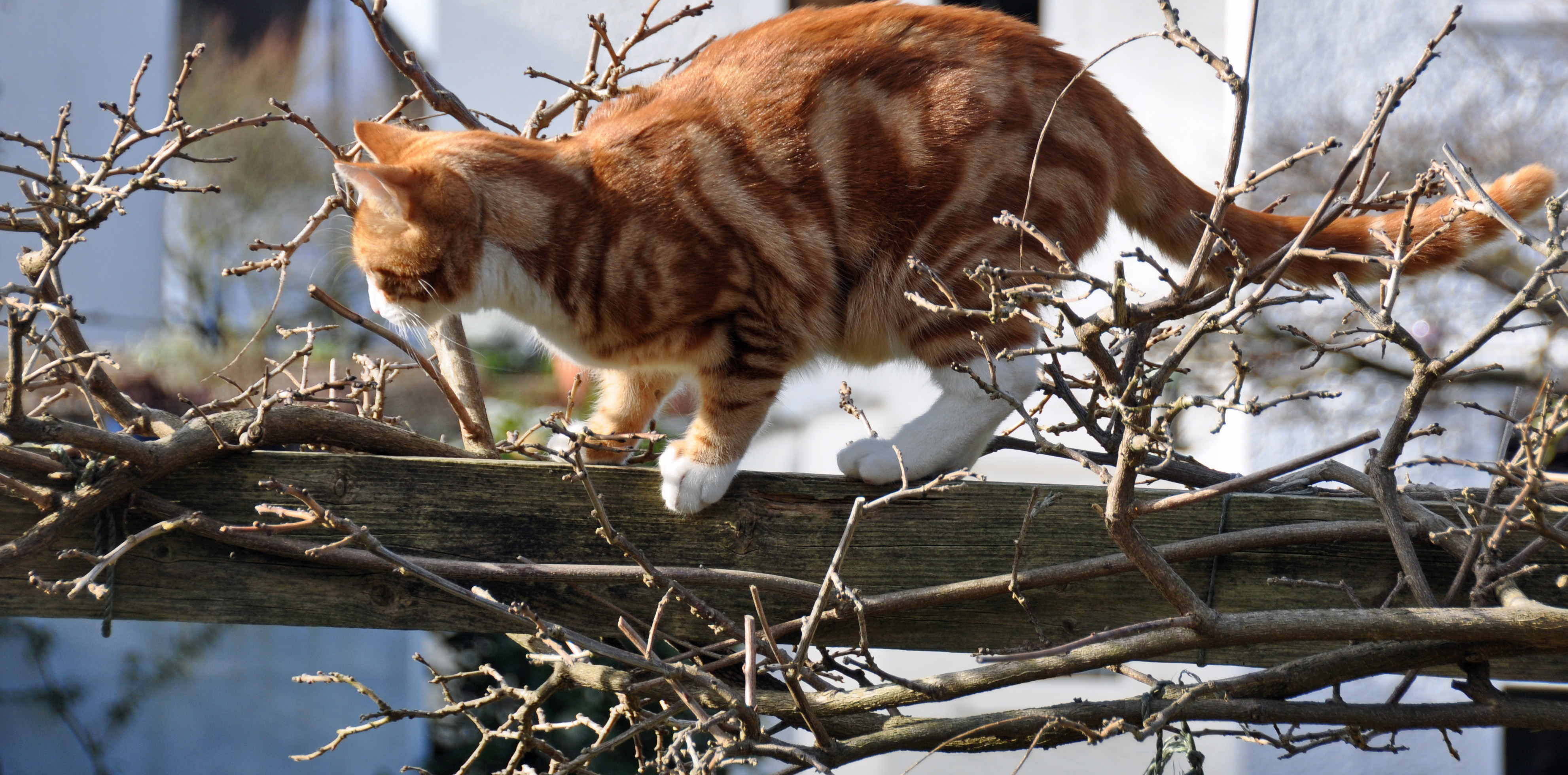
And as a fairly liberal individual I don’t really care if it stays within the realm of fantasies. None of us would like the thought police inside of our heads trying to police our sexual fantasies. We use our repertoire of fantasies for all sorts of reasons. Sometimes they’re things that we are thinking of trying out, mostly they’re things that we wouldn’t go near ever; we wouldn’t touch the real-life equivalent with a barge pole. Perhaps the forbidden nature of some of these things is exactly what we’re exploring. But clearly given the explosion of pretty revolting and explicit catcalling of young girls on the streets, this stuff isn’t staying inside men’s heads. Sexual or gendered trolling of the streets and on-line is pushing it’s way into the mainstream. Pretty clearly a lot of guys are having problems establishing appropriate boundaries, or maybe they’re trying to push the boundaries of what society feels is acceptable, maybe to move on-line trolling from the web to the streets. And all of those people who say “it’s just a laugh” are just providing cover for sad, bad and dangerous men to validate their bullying behaviour. They probably don’t have daughters. I do not recall anything like the catcalling bullying that now seems so prevalent, happening when I was a young girl. It feels important to push back.

So over lunch yesterday the conversation turned, as it sometimes does and all of the middle ages mothers present one by one came out with stories where they had challenged the behaviour of young (or not so young) men in public who had been threatening young girls. And their male partners looked on dumb-struck, visibly confused that this was really a “thing” really happening. Because decent men don’t see it happening, certainly not to their daughters. Young men may look to push the boundaries, to bully and terrorise women going about their everyday lives, but they seem aware enough not to do it when they might get called on their behaviour by another man. They know at some level, that this “teasing” this “banter” is nothing of the sort. They know that what they’re doing if horrid, bullying and mean. And they are ashamed. They should be shamed.
11th February: Why?
My biological sex is my business. My character and temperament have fuck all to do with my genitals. Many cis women are deeply ambivalent about their gender, quite reasonably given how it has been used over the years to limit them, to diminish and degrade them, to exclude them, to pay them less, to tell them they are not “good enough”. Many of us wonder, quite reasonably, why on earth anyone would be so desperate as to need to join in this disadvantaged group. Many of us are trying to redefine our gender to include a whole range of characteristics that might be more reasonably be described as “human”. We want to be more. Clearly trans women are driven, obliged to change gender. It could never be a rational choice, ofcourse it’s not a choice at all, to join the “weaker” sex. Trans people need to transition.  But it is entirely unclear how much of this need to transition is driven by a “push” from the male gender rather than a “pull” from the female. How much of the need to transition is due to the equally artificial constraints that men are obliged to live within, not least the imperative to shut themselves away from intimacy and emotions? Gender categorisation and segregation is bad for both men and women. I wished that there were more witness stories from the trans community, both FTM and MTF to help me understand the why and the wherefore for trans people. I need to start looking for people’s stories, not allowing my eyes to brush over the articles around me. First I looked through the website http://nonbinary.proboards.com/ But then thought about what a quick search through the newspaper might find? Turns out that there are quite a few stories out there that my eyes were just passing over. Shame on me! Having read through a number of witness stories, any number of stories about transexuals, their lives and issues I’m left wondering whether this is ever going to feel like “my” issue.
But it is entirely unclear how much of this need to transition is driven by a “push” from the male gender rather than a “pull” from the female. How much of the need to transition is due to the equally artificial constraints that men are obliged to live within, not least the imperative to shut themselves away from intimacy and emotions? Gender categorisation and segregation is bad for both men and women. I wished that there were more witness stories from the trans community, both FTM and MTF to help me understand the why and the wherefore for trans people. I need to start looking for people’s stories, not allowing my eyes to brush over the articles around me. First I looked through the website http://nonbinary.proboards.com/ But then thought about what a quick search through the newspaper might find? Turns out that there are quite a few stories out there that my eyes were just passing over. Shame on me! Having read through a number of witness stories, any number of stories about transexuals, their lives and issues I’m left wondering whether this is ever going to feel like “my” issue.  I feel tremendous sympathy for transexuals around the world but it still seems distant. I wish transexuals well but their fight is on the periphery of my life, a bit like the topic of global warming, which clearly is a massive issue, but not one that I feel a need to spend my time, energy and money on. I am hopeful that the issues that do capture my attention, my time and my money, relating to gender based discrimination and opportunities will also benefit transwomen. Because fundamentally I do still believe that people are just people, gender is a fiction. You can join my club if you want to – you’re very welcome. But my feminism is still going to be focused on issues relating to female reproduction, women’s access to birth control, abortion, health care, education and equal access to the workforce. I can stretch to outrage at FGM, and religious intolerance to women. I will try to be more aware of trans issues, as I try to be more aware of BAME issues. I will try to check my white cis privilege. Is that enough?
I feel tremendous sympathy for transexuals around the world but it still seems distant. I wish transexuals well but their fight is on the periphery of my life, a bit like the topic of global warming, which clearly is a massive issue, but not one that I feel a need to spend my time, energy and money on. I am hopeful that the issues that do capture my attention, my time and my money, relating to gender based discrimination and opportunities will also benefit transwomen. Because fundamentally I do still believe that people are just people, gender is a fiction. You can join my club if you want to – you’re very welcome. But my feminism is still going to be focused on issues relating to female reproduction, women’s access to birth control, abortion, health care, education and equal access to the workforce. I can stretch to outrage at FGM, and religious intolerance to women. I will try to be more aware of trans issues, as I try to be more aware of BAME issues. I will try to check my white cis privilege. Is that enough?  Some articles trans related: 24-Year-Old Transgender Man With Asperger’s Killed By Arizona Police Weeks After Beginning Transition
Some articles trans related: 24-Year-Old Transgender Man With Asperger’s Killed By Arizona Police Weeks After Beginning Transition
Stitching together Cid’s manhood: in the operating room for …
Census will allow Australians to identify as ‘other’ for both sex and gender
Transparent: finally, a realistic portrayal of finding your style …
Underwear for trans people: the torture of binding, tucking …
Lucy Meadows coroner tells press: ‘shame on you’ | Society …
‘I hope I get it right’: Caitlyn Jenner shoulders new duty as I …
Transgender kids: ‘Everyone was calling me Sebastian, but I …
**************************************************************************
******************************************************************
Transgender: identity is never one single thing so tick the box
Life in our transgender family | Life and style | The Guardian
Transgender children, the law, and a boy born in the skin of …
A Tory championing trans rights? Now that’s progress | Paris …
The Danish Girl transforms fascinating truths into tasteful …
Transgender woman who raped girl before transition sent to …
A college education doesn’t offer a leg up if everything else …
Ecuadorian couple set to become first transgender parents …
Mya Taylor: the transgender actor who could make …
Holly Woodlawn was a transgender inspiration. We mustn’t …
The transgender woman fighting for the right to see her son …
Bettina Rheims’s best photograph: trans sex worker Erica …
Kellie Maloney: trans issues are complex, and people will get
Simona Castricum: a letter to everything I’ve lost (and found …
I thought I’d be embarrassed to walk my cat, but turns out we …
Story of a transgender schoolteacher: ‘I limp through life …
I thought I knew what it meant to be a man – then I …
We’re all a bit non-binary inside. So why do we segregate by …
My heroin addict friend: ‘When Shelly starts using again, I …
How I finally learned to be comfortable on my nonbinary …
Don’t call trans people ‘brave’ – we’re just trying to live in a …
Transgender woman treated like ‘real risk’ during TSA airport
Juliet Jacques: ‘I spent years pretending to be male’ | Global …
13th February: Weekends
Sat in bed with the newspapers, quilt pulled up over my knees, and the cat comes walking into the room. She jumps up onto the bed and after a quick look around, and brief pause to sit first on the newspaper section that I’m about to read, and then the laptop I’m thinking of switching to, she noses her way under the quilt to the hollow under my knees. She is cosy company in her little tent, stretched out rubbing the back of her neck into my right ankle. Down below I can hear the rattle of the cat flap as her more active siblings move in and out on a cold morning but we are content up here, no need for any great activity. 
Cats
Sitting or slouching attempting to type and my cat sneaks up, slowly, slowly demanding a stroke. She settles herself leant up against my hip, under my armpit in possibly the least useful position, purring her heart out. And as any well-trained cat owner, I can’t bring myself to push her away. We share our house with three young cats, all siblings and moggies. According to the vet, cats fight not over food but over people, proably because we are their territory or property. Certainly my three each “own” one of us quite clearly, and there are very few fights, none real but the occasional dominance display.
Like all ginger toms (orange tabby cat) the boy is an easy-going rock star. It’s difficult not to smile at a happy orange tom. He owns my eldest girl, at least until she leaves for college. The calico cat owns her father and is the most sociable generally. Some of her habits are quite peculiar for a cat. She genuinely likes having her chest rubbed, especially if combines with a stroke to the back of her next. She’ll also lie down on the rug on her back and paddle one back foot, insisting that someone put out a hand and push her around on the floor, surfing around for as long as possible.
But my cat, the cat that owns me, is the runt of the litter, a very lovely grey/orange, mackerel tabby. She owns me, and the house, being essentially uninterested in the great outdoors. Within the walls, she rules the other two with a rod of iron, eating first and from the choicest dish. We all try to keep her bullying tendancies under control and fail.She’s a cat’s cat. Most nights, the ginger boy will sneak up on her in her bed and wind himself around her, yin and yang, to sleep. Her calico sister with a more wary eye, will slip into the bed next door and snooze through the night until breakfast.  I know that pets are messy and require time and effort, even cats, but my life would be lessened without them.
I know that pets are messy and require time and effort, even cats, but my life would be lessened without them.
16th February: In or Out
At the end of the discussion, the choice to vote in or out of the European Union, is as emotional as it is sensible.
Do you feel yourself to be British and European?
Diversity
My girls went to their local primary school, just a five minute walk away. We were lucky to have such an excellent school so close by but rather than it’s academic results, it is the huge range of cultures that stays with me as the main advantage of the school.

One of their largest fundraisers was an “international food fair” where parents would come together to create stalls of different food from around the world. All of the continents wre represented. Everyone left well fed. There were a lot of Israeli kids at the school. Though the UK has quite a small Jewish community, it’s essentially concentrated into my borough. Some of my girls’ closest friends have since returned to Israel and I wonder how the memory of their friendship group here will impact how they grow up. Because as well as a sizable Jewish community, there are also any number of arab and muslim kids at the school. As children do, they all became friends in the playground, learning to read and write English together, learning to play football, the basics of manners and how to socialise with other people. It must be difficult to demonise a group of people, if you’ve grown up playing in and out of the house of a person from the group, whether they’re Israeli, arab, Jew or Muslim. Obviously the children were all taught the basics of each others faith, the high and holy days, the feasts and fasts, but it is the familiarity of putting names and faces and common experiences that mark people most.

There was an excellent article in the Guardian today about a teacher, who happens to be gay, teaching diversity in his school, which happens to be predominantly muslim. The article focuses on respect for individuals and the right to be different, framed within the UK’s equality legislation. ‘We respect Islam and gay people’ … The gay teacher transforming a Muslim school A little bit of kindness, so much easier when we have a face to focus upon, and a little bit of tolerance or even fogiveness for the difference that we all carry with us, can take us so far in this world.
17th February: Old Pleasures
One of the reasons that I know I’m old, is the pleasure I’ve started to take in gardens and bird feeders.  You never hear a young person talking about tits, and meaning blue or great. It doesn’t happen.
You never hear a young person talking about tits, and meaning blue or great. It doesn’t happen.  But with the leaves still hidden away, my bird feeders are alive with blue tits and great tits, even robins which are supposed to be ground feeders.
But with the leaves still hidden away, my bird feeders are alive with blue tits and great tits, even robins which are supposed to be ground feeders.  Every so often one of the cats will wander up there for a sniff, but they’re so clumsy in comaparison to the little birds that there’s no real chance of them catching anything.
Every so often one of the cats will wander up there for a sniff, but they’re so clumsy in comaparison to the little birds that there’s no real chance of them catching anything.  It’s the pigeons hoovering up the detritus underneath that should worry most, and who can be too sympathetic to a streetwise London pigeon.
It’s the pigeons hoovering up the detritus underneath that should worry most, and who can be too sympathetic to a streetwise London pigeon.
18th February: Death Defining Decisions
Woman’s Hour on Radio 4 is talking about death and dying and despite having two close relatives die in the last year or so, I’m suddenly very aware that neither of us have made any provision for our own dying and death, not even the conversation. We do have wills detailing who gets responsibility for looking after the girls and how the assets are split. We need to think about discussing and writing both an advance statement and an advance decision. An advance decision is not the same as an advance statement. An advance statement is a written statement that sets down your preferences, wishes, beliefs and values regarding your future care. The aim is to provide a guide to anyone who might have to make decisions in your best interest if you have lost the capacity to make decisions or to communicate them. It is not legally binding though your carers are obliged to consider it when making decisions about your care.  An advance statement can cover any aspect of your future health or social care. This could include:
An advance statement can cover any aspect of your future health or social care. This could include:
- how you want any religious or spiritual beliefs you hold to be reflected in your care. I do not believe in assisted suicide but certainly do believe in as much pain relief as possible, even if this has the side effect of shortening my life. If I am in care away from my home, I wish to have access to an Anglican priest and religious services
- where you would like to be cared for – for example, at home or in a hospital, a nursing home, or a hospice. In an ideal world, I would be cared for at home, but not if this would place an unreasonable burder on my family. I would like there to be a reasonable amount of money thrown at helping to keep me at home, with professional paid for help etc. If I suffer dementia, I do not want my family to visit me unless they themselves feel a need to do so. His mother died in a specialist ward at the local hospital and it was, in many ways, a good death.
- how you like to do things – for example, if you prefer a shower instead of a bath, or like to sleep with the light on. This is likely to change significantly as I age obviously and become less mobile. The main thing to be aware of now is our vegetarian diet which I would like to be maintained.
- concerns about practical issues – for example, who will look after your dog if you become ill, We need to set aside some money to look after the cats and agree who will look after them, possibly the rescue centre we had them from as a last resort.
 By writing an advance statement down, you can help to make things clear to yourself, to your family, carers and anybody involved in your care. Unlike an advance statement, an advance decision is legally binding. An advance decision or “living will” is a decision you can make now to refuse a specific type of treatment at some time in the future. There are templates to be found on-line though most of us would probably look to a local solicitor for advice. They are useful documents because they can help to firm up your own views on what you would like to happen. They let your family, carers and health professionals know whether you want to refuse specific treatments in the future. This means they will know your wishes if you are unable to make or communicate those decisions yourself. The treatments you are deciding to refuse must all be named in the advance decision. You may want to refuse a treatment in some situations, but not others. If this is the case, you need to be clear about all the circumstances in which you want to refuse this treatment.
By writing an advance statement down, you can help to make things clear to yourself, to your family, carers and anybody involved in your care. Unlike an advance statement, an advance decision is legally binding. An advance decision or “living will” is a decision you can make now to refuse a specific type of treatment at some time in the future. There are templates to be found on-line though most of us would probably look to a local solicitor for advice. They are useful documents because they can help to firm up your own views on what you would like to happen. They let your family, carers and health professionals know whether you want to refuse specific treatments in the future. This means they will know your wishes if you are unable to make or communicate those decisions yourself. The treatments you are deciding to refuse must all be named in the advance decision. You may want to refuse a treatment in some situations, but not others. If this is the case, you need to be clear about all the circumstances in which you want to refuse this treatment.  You can refuse a treatment that could potentially keep you alive (known as life-sustaining treatment). This includes treatments such as ventilation and cardio pulmonary resuscitation (CPR) which may be used if you cannot breathe by yourself or if your heart stops. You may want to discuss this with a doctor or nurse who knows about your medical history before you make up your mind. Again, this is likely to change as I grow older. At the moment, I would most definitely want to be resuscitated with CPR under most circumstances. Even now, I would not wish to be kept alive without hope of improvement, so would refuse ventilation or CPR if brain dead. When I get older, I may well reach a stage where I would wish to reject even antibiotic treatment should I get sick. Deciding to refuse a treatment is not the same as asking someone to end your life or to help you end your life. Euthansia and assisted suicide are illegal under English law. You can make the advance decision, as long as you have the mental capacity to make such decisions. If you decide to refuse life-sustaining treatment in the future, your advance decision needs to be:
You can refuse a treatment that could potentially keep you alive (known as life-sustaining treatment). This includes treatments such as ventilation and cardio pulmonary resuscitation (CPR) which may be used if you cannot breathe by yourself or if your heart stops. You may want to discuss this with a doctor or nurse who knows about your medical history before you make up your mind. Again, this is likely to change as I grow older. At the moment, I would most definitely want to be resuscitated with CPR under most circumstances. Even now, I would not wish to be kept alive without hope of improvement, so would refuse ventilation or CPR if brain dead. When I get older, I may well reach a stage where I would wish to reject even antibiotic treatment should I get sick. Deciding to refuse a treatment is not the same as asking someone to end your life or to help you end your life. Euthansia and assisted suicide are illegal under English law. You can make the advance decision, as long as you have the mental capacity to make such decisions. If you decide to refuse life-sustaining treatment in the future, your advance decision needs to be:
- written down
- signed by you
- signed by a witness
Life-sustaining treatment is treatment that replaces or supports ailing bodily functions. For example, a mechanical ventilator can help you to breathe, or taking antibiotics can help your body fight infection.  If you wish to refuse life-sustaining treatments in circumstances where you might die as a result, you need to state this clearly in your advance decision. Life-sustaining treatment is sometimes called life-saving treatment. It may be helpful to talk to a doctor or nurse about the kinds of treatments you might be offered in the future, and what it might mean if you choose not to have them. Advance decisions are legally binding as long as they:
If you wish to refuse life-sustaining treatments in circumstances where you might die as a result, you need to state this clearly in your advance decision. Life-sustaining treatment is sometimes called life-saving treatment. It may be helpful to talk to a doctor or nurse about the kinds of treatments you might be offered in the future, and what it might mean if you choose not to have them. Advance decisions are legally binding as long as they:
- comply with the Mental Capacity Act
- are valid
- applies to the situation
If your advance decision is binding, it takes the place of decisions made in your best interest by other people. An advance decision may only be considered valid if:
- you are aged 18 or over and had the capacity to make, understand and communicate your decision when you made it
- you specify clearly which treatments you wish to refuse
- you explain the circumstances in which you wish to refuse them
- it is signed by you and by a witness if you want to refuse life-sustaining treatment
- you have made the advance decision of your own accord, without any harassment by anyone else
- you haven’t said or done anything that would contradict the advance decision since you made it (for example, saying that you have changed your mind)
 As long as it is valid and applies to your situation, an advance decision gives your health and social care team clinical and legal instructions about your treatment choices. An advance decision will only be used if, at some time in the future, you are not able to make your own decisions about your treatment. If you are choosing to refuse life-sustaining treatment the advance decision must be written down, and both you and a witness must sign it. You must also include a statement that the advance decision applies even if your life is at risk. & obviously, you have the final say on who sees it, but you should make sure that your family, carers, or health and social care professionals know about it, and know where to find it. You can keep a copy in your medical records.
As long as it is valid and applies to your situation, an advance decision gives your health and social care team clinical and legal instructions about your treatment choices. An advance decision will only be used if, at some time in the future, you are not able to make your own decisions about your treatment. If you are choosing to refuse life-sustaining treatment the advance decision must be written down, and both you and a witness must sign it. You must also include a statement that the advance decision applies even if your life is at risk. & obviously, you have the final say on who sees it, but you should make sure that your family, carers, or health and social care professionals know about it, and know where to find it. You can keep a copy in your medical records. 
More information
Visit GOV.uk to find out about creating a lasting power of attorney, and the Mental Capacity Act. If you’re thinking about preferences and wishes for your future care, you may find these two leaflets useful: Planning for your future care Preferred priorities for careHealthtalk.org has videos and written interviews of people talking about advance decisions to refuse treatment. NHS Choices has more information on your right to refuse future medical treatment. You can read Macmillan’s information on making an advance decision. The Dying Matters website includes information on legal and ethical issues around advance care planning, including advance decisions.
18th February: Trans feminism
Some of the most vocal criticism of the gender welcome (or lack thereof) to trans women comes from cis men. How much of this derives from an underlying belief that a person without a dick, a person lacking, must be classified as something else, something different, something less, as a woman? How much of the insistence that trans women must be women, is based on a rejection by men and their insistence of the bi-normative: “If they’re not picked by my team, you have to take them. ” Or maybe it’s just trolling by people who are looking for a reason to beat up feminists.

The conflating of feminism with cis women is really annoying. Clearly not all cis women are feminists and not all feminists are women, cis or otherwise. Not all trans women will be feminists or want to be labelled as such. It is clear that feminism is not a single political entity but has a myriad of forms, local and international. Feminism is a political movement, that must be allowed to set it’s own agenda, it’s own objectives, like any other political agenda. It is not at all unreasonable for feminists to target their efforts at issues impacting cis women such as adequate healthcare, access to easily and cheaply available contraception and abortion, equal access to education and to the workplace. It would be unreasonable to expect any political movement to focus on issues affecting a truly tiny number of their constituency.

If, as some of the research seems to show, there are far more FTM than MTF transexuals (by a ratio of 2:1) why is the news dominated by the latter? Is there something about the upbringing, the socialisation as a boy that makes for a more assertive adult during transition or maybe something about the socialisation as a girl that makes an adult want to keep their head down and avoid notice? It seems likely. How much of the criticism women receive is because women are held to much higher standards of behaviour than men, which is of itself sexist? Am I just missing the stories of outrage at the lack of inclusion offered to trans men? Where are they? Both men and women seem to routinely hold women to higher standards, not least when it comes to inclusivity. Women are often their own biggest critics. I remember hearing that a defence lawyer in a rape trial prays for as many women as possible on the jury – women are much less forgiving of other women. How can we learn to be kinder to each other? I am happy to include trans women within my gender if that’s where they want to be (clearly some trans people don’t subscribe to the bi-normative model) but then I believe that gender is essentially a fiction, a group of artifically ascribed characteristics used to keep us all in our place in the hierarchy.
February 13: Snug
Sat in bed with the newspapers, quilt pulled up over my knees, and the cat comes walking into the room. She jumps up onto the bed and after a quick look around, and brief pause to sit first on the newspaper section that I’m about to read, and then the laptop I’m thinking of switching to, she noses her way under the quilt to the hollow under my knees. She is cosy company in her little tent, stretched out rubbing the back of her neck into my right ankle. Down below I can hear the rattle of the cat flap as her more active siblings move in and out on a cold morning but we are content up here, no need for any great activity. 
February 14: Cat
Sitting or slouching attempting to type and my cat sneaks up, slowly, slowly demanding a stroke. She settles herself leant up against my hip, under my armpit in possibly the least useful position, purring her heart out. And as any well-trained cat owner, I can’t bring myself to push her away. We share our house with three young cats, all siblings and moggies. According to the vet, cats fight not over food but over people, proably because we are their territory or property. Certainly my three each “own” one of us quite clearly, and there are very few fights, none real but the occasional dominance display.  Like all ginger toms (orange tabby cat) the boy is an easy-going rock star. It’s difficult not to smile at a happy orange tom. He owns my eldest girl, at least until she leaves for college. The calico cat owns her father and is the most sociable generally. Some of her habits are quite peculiar for a cat. She genuinely likes having her chest rubbed, especially if combines with a stroke to the back of her next. She’ll also lie down on the rug on her back and paddle one back foot, insisting that someone put out a hand and push her around on the floor, surfing around for as long as possible.
Like all ginger toms (orange tabby cat) the boy is an easy-going rock star. It’s difficult not to smile at a happy orange tom. He owns my eldest girl, at least until she leaves for college. The calico cat owns her father and is the most sociable generally. Some of her habits are quite peculiar for a cat. She genuinely likes having her chest rubbed, especially if combines with a stroke to the back of her next. She’ll also lie down on the rug on her back and paddle one back foot, insisting that someone put out a hand and push her around on the floor, surfing around for as long as possible.  But my cat, the cat that owns me, is the runt of the litter, a very lovely grey/orange, mackerel tabby. She owns me, and the house, being essentially uninterested in the great outdoors. Within the walls, she rules the other two with a rod of iron, eating first and from the choicest dish. We all try to keep her bullying tendancies under control and fail.She’s a cat’s cat. Most nights, the ginger boy will sneak up on her in her bed and wind himself around her, yin and yang, to sleep. Her calico sister with a more wary eye, will slip into the bed next door and snooze through the night until breakfast.
But my cat, the cat that owns me, is the runt of the litter, a very lovely grey/orange, mackerel tabby. She owns me, and the house, being essentially uninterested in the great outdoors. Within the walls, she rules the other two with a rod of iron, eating first and from the choicest dish. We all try to keep her bullying tendancies under control and fail.She’s a cat’s cat. Most nights, the ginger boy will sneak up on her in her bed and wind himself around her, yin and yang, to sleep. Her calico sister with a more wary eye, will slip into the bed next door and snooze through the night until breakfast.  I know that pets are messy and require time and effort, even cats, but my life would be lessened without them.
I know that pets are messy and require time and effort, even cats, but my life would be lessened without them.
16 February: European?
At the end of the discussion, the choice to vote in or out of the European Union, is as emotional as it is sensible.
Do you feel yourself to be British and European? 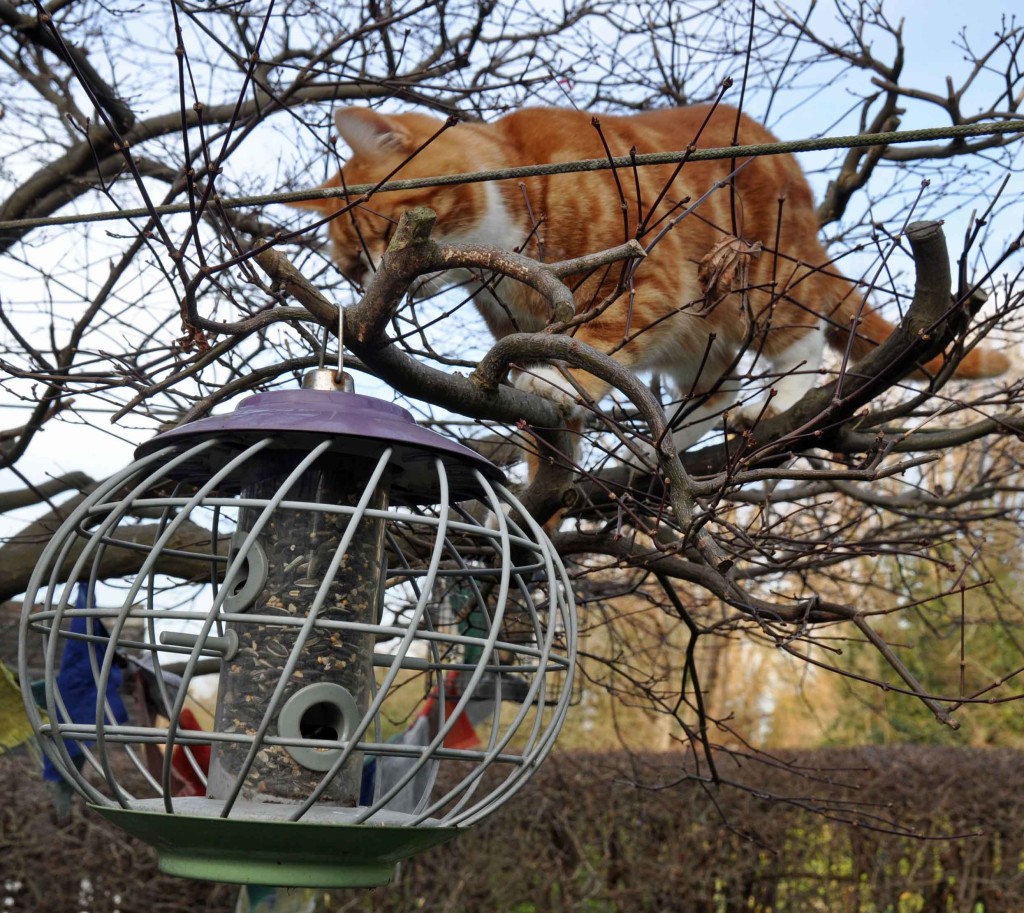
Diversity?
My girls went to their local primary school, just a five minute walk away. We were lucky to have such an excellent school so close by but rather than it’s academic results, it is the huge range of cultures that stays with me as the main advantage of the school.

One of their largest fundraisers was an “international food fair” where parents would come together to create stalls of different food from around the world. All of the continents wre represented. Everyone left well fed. There were a lot of Israeli kids at the school. Though the UK has quite a small Jewish community, it’s essentially concentrated into my borough. Some of my girls’ closest friends have since returned to Israel and I wonder how the memory of their friendship group here will impact how they grow up. Because as well as a sizable Jewish community, there are also any number of arab and muslim kids at the school. As children do, they all became friends in the playground, learning to read and write English together, learning to play football, the basics of manners and how to socialise with other people. It must be difficult to demonise a group of people, if you’ve grown up playing in and out of the house of a person from the group, whether they’re Israeli, arab, Jew or Muslim. Obviously the children were all taught the basics of each others faith, the high and holy days, the feasts and fasts, but it is the familiarity of putting names and faces and common experiences that mark people most.

There was an excellent article in the Guardian today about a teacher, who happens to be gay, teaching diversity in his school, which happens to be predominantly muslim. The article focuses on respect for individuals and the right to be different, framed within the UK’s equality legislation. ‘We respect Islam and gay people’ … The gay teacher transforming a Muslim school A little bit of kindness, so much easier when we have a face to focus upon, and a little bit of tolerance or even fogiveness for the difference that we all carry with us, can take us so far in this world.
17 February: Old Pleasures
One of the reasons that I know I’m old, is the pleasure I’ve started to take in gardens and bird feeders.  You never hear a young person talking about tits, and meaning blue or great. It doesn’t happen.
You never hear a young person talking about tits, and meaning blue or great. It doesn’t happen.  But with the leaves still hidden away, my bird feeders are alive with blue tits and great tits, even robins which are supposed to be ground feeders.
But with the leaves still hidden away, my bird feeders are alive with blue tits and great tits, even robins which are supposed to be ground feeders.
Every so often one of the cats will wander up there for a sniff, but they’re so clumsy in comaparison to the little birds that there’s no real chance of them catching anything.  It’s the pigeons hoovering up the detritus underneath that should worry most, and who can be too sympathetic to a streetwise London pigeon.
It’s the pigeons hoovering up the detritus underneath that should worry most, and who can be too sympathetic to a streetwise London pigeon.
18 February: Death defining Decisions
Woman’s Hour on Radio 4 is talking about death and dying and despite having two close relatives die in the last year or so, I’m suddenly very aware that neither of us have made any provision for our own dying and death, not even the conversation. We do have wills detailing who gets responsibility for looking after the girls and how the assets are split. We need to think about discussing and writing both an advance statement and an advance decision. An advance decision is not the same as an advance statement. An advance statement is a written statement that sets down your preferences, wishes, beliefs and values regarding your future care. The aim is to provide a guide to anyone who might have to make decisions in your best interest if you have lost the capacity to make decisions or to communicate them. It is not legally binding though your carers are obliged to consider it when making decisions about your care.  An advance statement can cover any aspect of your future health or social care. This could include:
An advance statement can cover any aspect of your future health or social care. This could include:
- how you want any religious or spiritual beliefs you hold to be reflected in your care. I do not believe in assisted suicide but certainly do believe in as much pain relief as possible, even if this has the side effect of shortening my life. If I am in care away from my home, I wish to have access to an Anglican priest and religious services
- where you would like to be cared for – for example, at home or in a hospital, a nursing home, or a hospice. In an ideal world, I would be cared for at home, but not if this would place an unreasonable burder on my family. I would like there to be a reasonable amount of money thrown at helping to keep me at home, with professional paid for help etc. If I suffer dementia, I do not want my family to visit me unless they themselves feel a need to do so. His mother died in a specialist ward at the local hospital and it was, in many ways, a good death.
- how you like to do things – for example, if you prefer a shower instead of a bath, or like to sleep with the light on. This is likely to change significantly as I age obviously and become less mobile. The main thing to be aware of now is our vegetarian diet which I would like to be maintained.
- concerns about practical issues – for example, who will look after your dog if you become ill, We need to set aside some money to look after the cats and agree who will look after them, possibly the rescue centre we had them from as a last resort.
 By writing an advance statement down, you can help to make things clear to yourself, to your family, carers and anybody involved in your care. Unlike an advance statement, an advance decision is legally binding. An advance decision or “living will” is a decision you can make now to refuse a specific type of treatment at some time in the future. There are templates to be found on-line though most of us would probably look to a local solicitor for advice. They are useful documents because they can help to firm up your own views on what you would like to happen. They let your family, carers and health professionals know whether you want to refuse specific treatments in the future. This means they will know your wishes if you are unable to make or communicate those decisions yourself. The treatments you are deciding to refuse must all be named in the advance decision. You may want to refuse a treatment in some situations, but not others. If this is the case, you need to be clear about all the circumstances in which you want to refuse this treatment.
By writing an advance statement down, you can help to make things clear to yourself, to your family, carers and anybody involved in your care. Unlike an advance statement, an advance decision is legally binding. An advance decision or “living will” is a decision you can make now to refuse a specific type of treatment at some time in the future. There are templates to be found on-line though most of us would probably look to a local solicitor for advice. They are useful documents because they can help to firm up your own views on what you would like to happen. They let your family, carers and health professionals know whether you want to refuse specific treatments in the future. This means they will know your wishes if you are unable to make or communicate those decisions yourself. The treatments you are deciding to refuse must all be named in the advance decision. You may want to refuse a treatment in some situations, but not others. If this is the case, you need to be clear about all the circumstances in which you want to refuse this treatment.  You can refuse a treatment that could potentially keep you alive (known as life-sustaining treatment). This includes treatments such as ventilation and cardio pulmonary resuscitation (CPR) which may be used if you cannot breathe by yourself or if your heart stops. You may want to discuss this with a doctor or nurse who knows about your medical history before you make up your mind. Again, this is likely to change as I grow older. At the moment, I would most definitely want to be resuscitated with CPR under most circumstances. Even now, I would not wish to be kept alive without hope of improvement, so would refuse ventilation or CPR if brain dead. When I get older, I may well reach a stage where I would wish to reject even antibiotic treatment should I get sick. Deciding to refuse a treatment is not the same as asking someone to end your life or to help you end your life. Euthansia and assisted suicide are illegal under English law. You can make the advance decision, as long as you have the mental capacity to make such decisions. If you decide to refuse life-sustaining treatment in the future, your advance decision needs to be:
You can refuse a treatment that could potentially keep you alive (known as life-sustaining treatment). This includes treatments such as ventilation and cardio pulmonary resuscitation (CPR) which may be used if you cannot breathe by yourself or if your heart stops. You may want to discuss this with a doctor or nurse who knows about your medical history before you make up your mind. Again, this is likely to change as I grow older. At the moment, I would most definitely want to be resuscitated with CPR under most circumstances. Even now, I would not wish to be kept alive without hope of improvement, so would refuse ventilation or CPR if brain dead. When I get older, I may well reach a stage where I would wish to reject even antibiotic treatment should I get sick. Deciding to refuse a treatment is not the same as asking someone to end your life or to help you end your life. Euthansia and assisted suicide are illegal under English law. You can make the advance decision, as long as you have the mental capacity to make such decisions. If you decide to refuse life-sustaining treatment in the future, your advance decision needs to be:
- written down
- signed by you
- signed by a witness
Life-sustaining treatment is treatment that replaces or supports ailing bodily functions. For example, a mechanical ventilator can help you to breathe, or taking antibiotics can help your body fight infection.  If you wish to refuse life-sustaining treatments in circumstances where you might die as a result, you need to state this clearly in your advance decision. Life-sustaining treatment is sometimes called life-saving treatment. It may be helpful to talk to a doctor or nurse about the kinds of treatments you might be offered in the future, and what it might mean if you choose not to have them. Advance decisions are legally binding as long as they:
If you wish to refuse life-sustaining treatments in circumstances where you might die as a result, you need to state this clearly in your advance decision. Life-sustaining treatment is sometimes called life-saving treatment. It may be helpful to talk to a doctor or nurse about the kinds of treatments you might be offered in the future, and what it might mean if you choose not to have them. Advance decisions are legally binding as long as they:
- comply with the Mental Capacity Act
- are valid
- applies to the situation
If your advance decision is binding, it takes the place of decisions made in your best interest by other people. An advance decision may only be considered valid if:
- you are aged 18 or over and had the capacity to make, understand and communicate your decision when you made it
- you specify clearly which treatments you wish to refuse
- you explain the circumstances in which you wish to refuse them
- it is signed by you and by a witness if you want to refuse life-sustaining treatment
- you have made the advance decision of your own accord, without any harassment by anyone else
- you haven’t said or done anything that would contradict the advance decision since you made it (for example, saying that you have changed your mind)
 As long as it is valid and applies to your situation, an advance decision gives your health and social care team clinical and legal instructions about your treatment choices. An advance decision will only be used if, at some time in the future, you are not able to make your own decisions about your treatment. If you are choosing to refuse life-sustaining treatment the advance decision must be written down, and both you and a witness must sign it. You must also include a statement that the advance decision applies even if your life is at risk. & obviously, you have the final say on who sees it, but you should make sure that your family, carers, or health and social care professionals know about it, and know where to find it. You can keep a copy in your medical records.
As long as it is valid and applies to your situation, an advance decision gives your health and social care team clinical and legal instructions about your treatment choices. An advance decision will only be used if, at some time in the future, you are not able to make your own decisions about your treatment. If you are choosing to refuse life-sustaining treatment the advance decision must be written down, and both you and a witness must sign it. You must also include a statement that the advance decision applies even if your life is at risk. & obviously, you have the final say on who sees it, but you should make sure that your family, carers, or health and social care professionals know about it, and know where to find it. You can keep a copy in your medical records. 
More information
Visit GOV.uk to find out about creating a lasting power of attorney, and the Mental Capacity Act. If you’re thinking about preferences and wishes for your future care, you may find these two leaflets useful: Planning for your future care Preferred priorities for careHealthtalk.org has videos and written interviews of people talking about advance decisions to refuse treatment. NHS Choices has more information on your right to refuse future medical treatment. You can read Macmillan’s information on making an advance decision. The Dying Matters website includes information on legal and ethical issues around advance care planning, including advance decisions.
Confused
Some of the most vocal criticism of the gender welcome (or lack thereof) to trans women comes from cis men. How much of this derives from an underlying belief that a person without a dick, a person lacking, must be classified as something else, something different, something less, as a woman? How much of the insistence that trans women must be women, is based on a rejection by men and their insistence of the bi-normative: “If they’re not picked by my team, you have to take them. ” Or maybe it’s just trolling by people who are looking for a reason to beat up feminists.

The conflating of feminism with cis women is really annoying. Clearly not all cis women are feminists and not all feminists are women, cis or otherwise. Not all trans women will be feminists or want to be labelled as such. It is clear that feminism is not a single political entity but has a myriad of forms, local and international. Feminism is a political movement, that must be allowed to set it’s own agenda, it’s own objectives, like any other political agenda. It is not at all unreasonable for feminists to target their efforts at issues impacting cis women such as adequate healthcare, access to easily and cheaply available contraception and abortion, equal access to education and to the workplace. It would be unreasonable to expect any political movement to focus on issues affecting a truly tiny number of their constituency.

If, as some of the research seems to show, there are far more FTM than MTF transexuals (by a ratio of 2:1) why is the news dominated by the latter? Is there something about the upbringing, the socialisation as a boy that makes for a more assertive adult during transition or maybe something about the socialisation as a girl that makes an adult want to keep their head down and avoid notice? It seems likely. How much of the criticism women receive is because women are held to much higher standards of behaviour than men, which is of itself sexist? Am I just missing the stories of outrage at the lack of inclusion offered to trans men? Where are they? Both men and women seem to routinely hold women to higher standards, not least when it comes to inclusivity. Women are often their own biggest critics. I remember hearing that a defence lawyer in a rape trial prays for as many women as possible on the jury – women are much less forgiving of other women. How can we learn to be kinder to each other? I am happy to include trans women within my gender if that’s where they want to be (clearly some trans people don’t subscribe to the bi-normative model) but then I believe that gender is essentially a fiction, a group of artifically ascribed characteristics used to keep us all in our place in the hierarchy.
20 February: Fearful
I refuse to be fearful. I cannot buy into the idea that the European Union threatens our sovereignty as a nation, an argument put by Conservative politicians such as Boris Johnson and Michael Gove. Over the weekend both politicians announced they would campaign to leave the EU largely because of their concerns over sovereignty. The “decisions which govern all our lives”, Mr Gove argued, should be taken uniquely by “people we choose and who we can throw out if we want change”.

The flaw in the argument lies in the idealistic definition of sovereignty. Being sovereign is not like being pregnant—you either are or you aren’t pregnant where as increasingly sovereign is relative. A country that refuses outright to pool authority, to reach agreement with its neighobours, allies and trade partners, is a country that has no control over the pollution drifting over its borders, the financial regulation affecting its economy, the consumer and trade norms to which its exporters and importers are bound, the cleanliness of its seas and the security and economic crises propelling shock waves—migration, terrorism, market volatility—deep into domestic life. To live with globalisation is to acknowledge that many laws are international laws whether we like it or not. We are and have always been a trading nation. In order to trade, a country makes deals, it agrees to compromise. To live successfully within a global world, an increasingly connected world, we enter into a whole range of treaties, agreements and arrangements.

At the moment, Britain is subject to some 700 international treaties involving multi-lateral submissions to multilateral compromises. Its membership of the UN infringes its self-determination. This country of mine can be outvoted at the UN, just as it can in Brussels. Likewise the WTO, NATO, the COP climate talks, the IMF, the World Bank, nuclear test ban treaties and accords on energy, water, maritime law and air traffic all require Britain to tolerate the sort of trade-offs that Eurosceptics find distasteful. We accept influence in exchange for irksome standardisation, laws and rules set mostly by foreigners not elected by Britons, including some that Britain would not set or would set differently. If sovereignty is the absence of mutual interference, the most sovereign country in the world is North Korea. Who wants to live there? The two models for a Britain outside the EU often cited by Eurosceptics (including Mr Johnson), Norway and Switzerland, make weak arguments for Brexit. Under the Johnson-Gove view, these countries are quite dramatically more “sovereign” than Britain. But in practice their economies and societies are so intertwined with those of their neighbours that they must subject themselves to rules over which they have no say and no influence.

The Eurosceptics suggest that the British electorate can, in its collective wisdom, reach judgments about politicians and policies in a way impossible among the EU population as a whole, with its 24 languages, 28 national media landscapes, multiple legal systems and vast range of historical and ideological hinterlands. Hence, not without reason, the Eurosceptic offence taken at comparisons of the democratic legitimacy conferred by European Parliament to that conferred by national parliaments. Much of this holds true. But to what extent? Across Europe there is evidence of growing political polarisation along cultural lines: for all their differences in experience and outlook, voters in declining, post-industrial parts of England and France have much more in common with each other than with those in cosmopolitan London or Paris. Language divides people less all the time. Sub-national allegiances are growing in strength, most close to home Scotland’s slide towards independence. These could increasingly form an appropriate and effective basis for government, say a collection of city states governed by mayors. One can still argue that power exercised at a national level is more democratically valid than that exercised at a supra-national one, but the case becomes less obvious as each year passess.

But ultimately the argument about sovereignty is a fearful one. it is usually accompanied by the idea that, as one of world’s great economic, cultural and military powers, the country deserves to get its autonomy back and can make it on its own. But this only works if, deep down, you think Britain a bit puny. Consider the trade-off: let foreigners have some influence over your country of 64m and in return receive quite a lot of influence over a union of 743m. When Eurosceptics only mention the first half of this bargain, they imply that Britain is too weedy to take advantage of the second. Which is odd, as the national strengths we celebrate give the country a tremendous ability to influence the community. Its diplomatic service, its global alliances, its language, its historical heft all put the UK in a fantastic position to set the agenda in Brussels, if only we could overcome our insecurity about scary foreigners.

23 February: Happiness
A newspaper article suggesting that children are mostly content with their lives, might not be very eye-catching, so instead the newspapers decided to go with the headline :
“British children are the least happy in the world”
A recent survey by the group Childrens World looked at the living circumstances of children across 15 countries (Children in England near bottom in international happiness table). As you’d expect, there are some caveats and limitations to the report that should be considered before we start to panic.  It identifies some surprising and some not very surprising at all facts about the ways children live their lives across different cultures. Mostly children live with their parents, sometimes their extended families also, and mostly children are very content with their lives. The report has gathered data from over 53,000 children aged 8,10 and 12 years old from 15 countries. “First of all, our approach to well-being is entirely focused on self -report information gathered from children – i.e. self -reported wellbeing. “ In general,when looking at measures of subjective well-being the results for either adults or children tend to skew heavily towards a positive response. Most people report that their lives are good to excellent which makes the data quite difficult to interpret. You can choose to look at the numbers reporting at the extremes, ie. with very high or low well-being but it’s important to recognise that in thise report, the choice of statistics used has a fundamental impact on the rankings of each of the 15 countries. So when the newspapers say that children in the UK are amongst the least happy in the world, how does this relate to the actual underlying report?
It identifies some surprising and some not very surprising at all facts about the ways children live their lives across different cultures. Mostly children live with their parents, sometimes their extended families also, and mostly children are very content with their lives. The report has gathered data from over 53,000 children aged 8,10 and 12 years old from 15 countries. “First of all, our approach to well-being is entirely focused on self -report information gathered from children – i.e. self -reported wellbeing. “ In general,when looking at measures of subjective well-being the results for either adults or children tend to skew heavily towards a positive response. Most people report that their lives are good to excellent which makes the data quite difficult to interpret. You can choose to look at the numbers reporting at the extremes, ie. with very high or low well-being but it’s important to recognise that in thise report, the choice of statistics used has a fundamental impact on the rankings of each of the 15 countries. So when the newspapers say that children in the UK are amongst the least happy in the world, how does this relate to the actual underlying report?  Well, to start with we’re only looking at England not the entire UK, and as part of just 15 countries chosen to cover a range of political and social situations. And across all of those countries including the children in England, most children (>75%) are happy or extremely happy ranking their well-being 8, 9 or 10 out of 10. The scores rating a child’s happiness with their life as a whole are based on an individual’s assessment of the following four statements:
Well, to start with we’re only looking at England not the entire UK, and as part of just 15 countries chosen to cover a range of political and social situations. And across all of those countries including the children in England, most children (>75%) are happy or extremely happy ranking their well-being 8, 9 or 10 out of 10. The scores rating a child’s happiness with their life as a whole are based on an individual’s assessment of the following four statements:
- My life is going well
- My life is just right
- The things in my life are excellent*
- I have a good life
- I have what I want in life*
Across all questions more than 75% of respondents replied with positive grades 8, 9 or 10 in England, across all more than 65% replied with a 9 or 10.  The lowest scores for this category in England were related to things, ie those statements marked with an asterix * above, which is ironic because in terms of “stuff” kids in England do relatively well. How important is your own mobile phone for a 12 year old in the grand scheme of things? The report also asked whether the children had felt happy in the last two weeks. Most children reported feeling relatively satisfied and happy with their lives, though a substantial minority (5-10%) are relatively unhappy, with relatively low subjective well being. There is an obvious correlation between higher levels of material deprivation within a country (missing not only a phone but perhaps also a room of their own, access to any computer etc) and lower levels of subjective well-being. In addition to relative poverty, one of the obvious sources for anxiety in England, based on the lowest scores are satisfaction with self, questions relating to self-confidence, appearance and one’s body have the three lowest scores, making children feel less happy about themselves.
The lowest scores for this category in England were related to things, ie those statements marked with an asterix * above, which is ironic because in terms of “stuff” kids in England do relatively well. How important is your own mobile phone for a 12 year old in the grand scheme of things? The report also asked whether the children had felt happy in the last two weeks. Most children reported feeling relatively satisfied and happy with their lives, though a substantial minority (5-10%) are relatively unhappy, with relatively low subjective well being. There is an obvious correlation between higher levels of material deprivation within a country (missing not only a phone but perhaps also a room of their own, access to any computer etc) and lower levels of subjective well-being. In addition to relative poverty, one of the obvious sources for anxiety in England, based on the lowest scores are satisfaction with self, questions relating to self-confidence, appearance and one’s body have the three lowest scores, making children feel less happy about themselves.  Remember though that this is still a subjective and relative assessment. Children in Ethiopia clearly have much higher levels of material deprivation relative to England whilst reporting on their own levels of well-being to be higher than their English peers. Children in Romania report the highest levels of happiness and subjective well-being. In particular, Romanian children are especially satisfied with things relatings to self, ie. things they have, self-image, self-confidence, health, body etc. But would you really choose to be a child living in Romania rather than England? Children in Romanis are more likely to live within an extended family with grandparents as well as parents, and with one or more siblings and twice as likely as kids in England to be missing material goods and to have family chores to carry out each day. Children in the UK are significantly more likely to split their lives across more than one home. Can we ever measure and compare happiness and well-being across cultures and expect it to be meangingful?
Remember though that this is still a subjective and relative assessment. Children in Ethiopia clearly have much higher levels of material deprivation relative to England whilst reporting on their own levels of well-being to be higher than their English peers. Children in Romania report the highest levels of happiness and subjective well-being. In particular, Romanian children are especially satisfied with things relatings to self, ie. things they have, self-image, self-confidence, health, body etc. But would you really choose to be a child living in Romania rather than England? Children in Romanis are more likely to live within an extended family with grandparents as well as parents, and with one or more siblings and twice as likely as kids in England to be missing material goods and to have family chores to carry out each day. Children in the UK are significantly more likely to split their lives across more than one home. Can we ever measure and compare happiness and well-being across cultures and expect it to be meangingful? 
24 February: Automatic Transition
Attempting to enforce an automatic categorisation of trans women within the label “woman”, denies cis women their own autonomy, their right to define themselves. It reinforces the entirely false notion that male is “normal” and all else can and should only be defined as woman. Women are not “normal”. Women are defined in this underying assumption by being “not male” and ultimately by not having a “dick”. It also denies trans people the right to define themselves as non-binary and looking through the various discussion sites, there is a significant amount of ambivalence out there, a lot of comments suggesting “I’m definitely not a man, but…” Attempts are made to justify the inclusion of trans women within the larger definition on all sorts of bases. People regularly make comparisons between trans women and women born without a uterus (a tiny 0.0002% of the population), or those who have their uterus removed (hysterectomy).

“You wouldn’t exclude these people so why exclude trans women” At best the argument is misguided. Women born with internal or external genitalia inconsistent with their assigned gender would be classified as intersex, biologically. Occasionally this is due to non-binary genetics or to MRKH, a congenital disorder that affects the female reproductive tract. If gender is aligned with biological sex, which clearly it is, then comparisons with people who are intersex would support the introduction of a third gender, or no gender to align with intersex. Clearly women who have had a hysterectomy who do not identify as trans, would be motivated by health reasons, fibroids, cancer etc. Equating trans people with sickness seems unreasonable for all sorts of reasons. Equating women with a “lack” is a persistent problem. Equating trans people with the sick, diseased or damaged is another worrying problem. People are real people, whatever their biological sex, their sexuality or their entirely fictional, socially prescribed gender. Let’s move away from binary and towards being human.
25 February: Cold Comfort
About 8 years ago, I spent an awful lot of money on a fridge. It cost a lot for a couple of reasons, one good and one trivial. The trivial reason is purely superficial desire for a silver fridge to fit into my kitchen and look the business. But I comforted myself with the idea that although it seemed like an extortionate amount of money, it was for a Miele fridge and Miele is a brand that exudes reliability. It broke after around 60 days at which point I found out that you can only make them take the bugger back for a fault found within 30 days, any later and it is entirely at the discretion of the manufacturer whether they replace or repair. They are much less likely to replace an expensive piece of kit. They insisted on completing the first repair.

The other truth that I discovered over the next few years, was that when you’ve bought a duffer, they stay a duffer. Antyhing that could go wrong with the machine, did go wrong, thankfully covered by the repair guarrantee for the first few years. For the first time ever, knowing it was a duffer, I bought the extended guarranty coverage offerd by the store (normally really bad value for money) and my beautiful but very unloved appliance was nursed back to health. Time and time again. Last week, the Miele repairman came out to investigate a strange flashing light and knocking sound. It took him an hour, but finally he pronounced the machine effectively dead. The symptoms were in fact decoys, just warning signs or side effects of a faulty condenser that is struggling to turn over and cool the fridge down. Knowing that your machine is rubbish is not quite the same as knowing that the next time you open the door, the light might not come on and your food might all have been ruined by slowly rising temperatures. Every time I open the bloody thing I’m convinced the food will all be spoiled, assuming there isn’t some dramatic bang and whiff of smoke as a final “sod off” from Miele. Ofcourse I do the usual run around the internet looking for alternatives and end up at John Lewis.  Most larder fridges are a standard width (60cm) and non-standard height. The one we are currently babysitting is 184.5cm tall and has a gap (smallish) above that to provide ventilation. It’s quite a long way from a socket so is living connected to an extension lead also supplied by John Lewis. Having a smallish space a long way from a raised socket is less than ideal but it’s what we’ve got. There were three possible silver replacements available within a week: Siemens, Bosch and AEG. Since Siemens and Bosch are actually the same machine branded under different names, then why pay for the more expensive? Perhaps at this point it’s reasonable to point out that unlike their other electronic goods, Miele don’t make their own fridges but rely upon Liebherr which have had “quality control issues”. The Bosch was ruled out on the basis of price versus it’s stablemate Siemens. The Siemens looked the same height as the AEG but was listed as 186cm versus 185cm. The shop assistant and I both thought the difference must be the external hinge right at the front. The bodies looked identical heights from the outside. Weirdly despite having identical boxlike sides and top, the Siemens was 50l smaller inside and when opened up the difference was seriously noticeable. Both machines have identical efficiency ratings and both are supposed to cost around £10-15 a year to run. I can only imagine that the efficiency has been achieved by thick lagging insulation in the walls of the Siemens.
Most larder fridges are a standard width (60cm) and non-standard height. The one we are currently babysitting is 184.5cm tall and has a gap (smallish) above that to provide ventilation. It’s quite a long way from a socket so is living connected to an extension lead also supplied by John Lewis. Having a smallish space a long way from a raised socket is less than ideal but it’s what we’ve got. There were three possible silver replacements available within a week: Siemens, Bosch and AEG. Since Siemens and Bosch are actually the same machine branded under different names, then why pay for the more expensive? Perhaps at this point it’s reasonable to point out that unlike their other electronic goods, Miele don’t make their own fridges but rely upon Liebherr which have had “quality control issues”. The Bosch was ruled out on the basis of price versus it’s stablemate Siemens. The Siemens looked the same height as the AEG but was listed as 186cm versus 185cm. The shop assistant and I both thought the difference must be the external hinge right at the front. The bodies looked identical heights from the outside. Weirdly despite having identical boxlike sides and top, the Siemens was 50l smaller inside and when opened up the difference was seriously noticeable. Both machines have identical efficiency ratings and both are supposed to cost around £10-15 a year to run. I can only imagine that the efficiency has been achieved by thick lagging insulation in the walls of the Siemens.  I chose the AEG obviously. It was marginally more expensive but more likely to fit and more of the size we’re used to using. Now all I have to do is hope and pray that the Miele struggles on at least until Wednesday when the new machine arrives.
I chose the AEG obviously. It was marginally more expensive but more likely to fit and more of the size we’re used to using. Now all I have to do is hope and pray that the Miele struggles on at least until Wednesday when the new machine arrives.
26 February: Better IN
At the end of the day it will always be a more emotional decision than perhaps it should be. Do you want to belong to a family of nations, a messy argumentative compromise? Do you want to go to war, whether real or allegorical with your brothers and sisters at your side or do you prefer to go it alone? Do you believe that a divorce can ever be amicable? Will we be immediately forgiven for rejecting our nearest and dearest? When Scotland votes to stay, will we be happy to wave goodbye to the Union inside as well as outside of our Kingdom?
There are no convincing arguments that I can believe justify leaving Europe. There are plenty of reasons to stay. I can understand that the reasons for the creation of the EU, for joing the EU are vastly different from country to country. National governments failed to protect their citizens in Germany, France, Italy etc through the Second World War. In Britain, we didn’t have the same drive to build an additional safety layer of supra-national government. Our national government felt, and probably still feels sufficient for our needs. But we remain a trading nation, and the EU is a superb trading organisation and we beneift hugely through being a part of that club. We get to help set the rules for the game.
Drop Dead Money
Being a feminist can mean all sorts of things to all sorts of people, in all sorts of circumstances. It is a political statement obviously, but at some level it is also an incredibly practical statement of intent. One thing that has always made my life easier, certainly my life as a feminist, is the commitment to “Drop, dead money” Every woman needs to have set aside her drop, dead money. The amount required will vary from person to person, from circumstance to circumstance. Drop dead money is the stash of cash that allows you to decide you’ve had enough, the world can just fuck off and drop dead because you’re walking out. When I was much younger, it meant setting aside enough money to catch a cab home from the party or to catch a train home in an emergency. As I got older, it meant setting aside 3 months worth of rent. With children, leaving becomes much more difficult so maybe it changes into setting aside the time, energy and money sufficient to tell your partner that they have to leave, have to get out because you’ve changed the locks and they’re just not welcome. More than anything, having set aside a survival fund has made it easier to stay. Knowing that I could leave when I needed to do so, made it a lot easier to stay until the very last minute in a relationship or a job, but then also to be decisive once the point of no return had arrived.
27 February: Divided by a Common Language
American politics is beyond me for many reasons, but I find the categorisation of Bernie Saunders, Democrat candidate facing off against Hilary Clinton, as a radical, non-establishment, socialist candidate more than a little bizarre. A quick look through wiki tells me that Mr Saunders is a 74 year old, Democrat Senator, though prior to joining in 2015 in time to qualify for the presidential race, he had been the longest serving independent senator in U.S. congressional history. He is a career politician from his early days in 1971 as a member of the anti-war Liberty Union Party. How can a career politician be described (or believed) as anti-establishment? Surely politicians are the embodiment of the establishment? What exactly is radical or socialist about the politics he espouses or are we just talking idealistic and unachievable?

Vote for me – I’ll talk the good talk and achieve nothing! The current US President Barack Obama was obliged to spend an extraordinary amount of time quibbling over his birth certificate, affirming his Christian faith and denying being a socialist. To calm American voters’ fears he had to keep making the case for being a part of the establishiment and not-at-all radical, despite being black so what on earth is going on? Have Americans suddenly decided to embrace the different, or are we just using the words “socialist” “non-establishment” and “radical” in very different ways, yet another reflection of two countries divided by a common language? Bernie Saunders embraces the label “socialist”. Yet while he may have built a campaign on a rant against wealth inequality and corporate greed, it’s difficult to understand how he can be described as one. Usually, socialist policies involve increased government involvement, takeovers of industry and the abolition of private property. Mr Saunders is campaigning for guaranteed health care, making college free and boosting hourly wages to a minimum of $15. Ofcourse this all assumes that he can assemble a coalition to do all those things.

He won’t take away your house or your dog. He won’t nationalise the health service. He won’t undermine the bourgeois institutions of marriage, family or religion. He will not take your babies at birth and raise them collectively in dormitories. Perhaps a better term encapsulating Mr Saunders’ positions is “social democrat”, a label that agrees better with his rather mainstream embrace of “private companies that thrive and grow in America” and belief that “the middle class and the working families who produce the wealth of America deserve a fair deal”. To be clear, Mr Saunders flatly disagrees with the very heart of socialism as defined by Karl Marx: “I don’t believe government should own the means of production”, he says. As politically unachievable as his proposals might be in the States, they’re not especially radical in the world-scheme of things. Mr Saunders’ politics are to the conservative right of the right wing Conservative Party here in the UK. They are no where near the views of the socialist opposition party. Not even in the ball park. His policies are neither especially radical nor socialist. Mr Saunders would raise income taxes and lower the exemption on estate taxes from $5.4m to $3.5m, but he calls for something far less radical than the “abolition of all rights of inheritance”. There is no doubt that his position is to the left of those of his main rival, Hilary Clinton who is much more pragmatic in her stated goals.

Yet in one important sense, the Saunders campaign and its supporters have lifted a page right out of Karl Marx’s 1848 handbook. Marx suggests: just as a fish cannot see the water he swims in, a capitalist cannot fathom the illogic and corruption of the system that defines his personal, political and economic relations. Mr Saunders’ responce to a sharp critique illustrates this attitude. On CNN, he had this to say: “I am not greatly beloved by the economic establishment, by Wall Street, by the big money interests, or by the major media of this country including the Washington Post”. Maybe Mr Saunders identifies with socialism because he finds it helpful to have an “oligarch-owned” newspaper bashing his every proposal. With little real basis for the claim to be an anti-establishment oustsider, maybe having a more obvious and unpopular “insider” as an enemy in the media brings him votes. What Mr Saunders and his supporters do not seem to offer is an answer to many of the big economic challenges the States still faces and Mr Saunders has also failed to explain how he will pay for all of his bold proposals. Pushed for details on how to pursue solutions to widening wealth inequality, Mr Saunders reverted to a statement of the problem.

He explains away endorsements of Mrs Clinton as more mainstream thinking: “We are taking on the economic establishment, we’re taking on the political establishment and, with all due respect, we are taking on the media establishment”. Faced with legitimate critiques, Mr Saunders needs to do better than repeat the facile claim that his critics are just unable to see beyond their moneyed, mainstream perspectives. By March 2nd it may be possible that one of the world’s great political parties, the one that gave America Lincoln and Reagan, will be led into the next presidential election by Donald Trump, a candidate who exploits racial and religious tension, bullies women who question him, proposes policies that have no chance of being realised and has no experience of running anything other than his family real-estate company. This might be a really good time to pick Hilary Clinton as the Democrat candidate, a woman to get things done and deliver on her promises.

28 February: Human
It seems increasingly unreasonable to assume trans women will want to be included within the generic gender “woman” along with cis women if only because an increasing number of trans people, especially the younger generation, seem determined to reject the binary model entirely. I want to be on that team, the gender indifferent, human team.
There are all sorts of problems in trying to estimate the number of trans people within a country, nevermind across the world, starting with the definition of what it means to be transgender* . Gender identity can be fluid and hard to define in a multiple-choice list. For example, there are now more than 50 gender options on Facebook. Tinder is less open (Tinder needs to stop acting like there are only two genders …)

71% of transgender people hide their gender or gender transition for fear of prejudice and discimination (The Search for the Best Estimate of the Transgender …). The best estimate of numbers seems to be around 0.3% for all transexuals, and that term can be defined fairly broadly, but would certainly include Female to Male (FTM) Male to Female (MTF) and people rejecting the binary norm. Mostly there seems to be agreement (from Kinsey forwards) that FTM transsexuals ie trans men outnumber MTF trans women by a ration of 2:1 . Yet we hear very few FTM stories. Most official bureau for statistics don’t record transgender status as a matter of course (Trans Data Position Paper – Office for National Statistics) and where alternative sources are used there are problems validating their accuracy. It’s likely that there will be better data available over the next few years (Census will allow Australians to identify as ‘other’ for both sex and gender).

One of the basic challenges with gathering data is that most questionnaires require people to specify whether they are male or female — a choice that does not accurately reflect some people’s identities. The people who were most likely transgender based on their Social Security records were 1.6 times as likely as nontransgender people to check neither box on census forms, and 6.5 times as likely to check both. Looking through name changes in census data can provide data on the trans population. People were most likely to make the change in their mid-30s, he found. But transgender women — those assigned to be male at birth who identify as women — often began later in life than transgender men. 
*Defining Transcan be complicated.
Here are some of the terms that seem to be commonly agreed:
- Gender Variance – A person’s feelings about his or her gender identity that do not conform to the stereotypical boy/man or girl/woman category as assigned at birth. This variance is increasingly understood to derive from sex differentiation in the structure and working of the brain, which may be inconsistent with the other physical sex characteristics.
- Trans – Trans is an umbrella term used to describe people whose lives appear to conflict with the gender norms of society. Whether this is in their clothing, in presenting themselves or undergoing hormone treatment and surgery. Being trans does not imply any specific sexual orientation.
- Transsexualism – This term is used to describe a person who has ’transitioned‘, or is in the process of ‘transitioning‘, or intends to transition from male to female or female to male. For a transexual person, the process of ’transitioning‘, may involve a variety of treatments including: hormone therapy, surgery and hair removal. People who have transitioned do not necessarily identify as trans any longer; they may identify as simply a man or a woman. Some transxual people may not transition due to family or other social constraints.
- Transvestite – A transvestite individual feels compelled to wear clothing normally associated with the opposite sex, but does not desire to live permanently as a member of the opposite sex.
- Drag – A term applied to individuals who cross dress often for entertainment purposes.
- Androgynous – A person who does not fit clearly into the typical gender roles of their society. Androgynous people may identify as beyond gender, between genders, moving across genders, entirely genderless, or any or all of these. Androgyne identities include pan-gender, bi-gender, ambi-gender, non-gendered, a-gender, gender-fluid or intergender.
- Ze, Hir and Hirs– Although not commonly used, these are gender neutral pronouns that some people prefer to use in place of he/she, him/her and his/hers. (O’Neil, 2008).
- Acquired Gender – The ’gender‘ (when opposite to the sex assigned at birth) in which a person lives.
- Gender reassignment – The process by which an individual reassigns their gendered appearance.
- Gender recognition – The legal recognition of an individual’s acquired gender as the opposite of the sex assigned at birth Usually once a person has begun the process of transitioning, pronouns that are appropriate to the gender towards which he or she is transitioning should be used.
March
1st March: Fearful
I was told on-line that I’d rapidly change my mind about immigration if I had immigrants living “on my doorstep” if my friends and family were attacked, raped or murdered by migrants. This person, who does not know me at all, highlighted an article in the Daily Mail which was about two migrants in Sweden charged with raping a youn Swedish boy. And obviously I’m part of this project that looks at headlines in newspapers looking at male violence, criminality and risk taking so for once I decided to look through the whole archive for that day, knowing how very very depressing that would be. There is never a shortage of articles, never a lack of damage.

On the 22nd February 2016 there were a total of 92 obvious headlines describing male violence in the Daily Mail archives. Just one of them related to crimes committed by refugees in Europe, the one that picked out by my “accuser”. It was the 72nd headline on my list, sandwiched between the murder of an uber taxi driver in Kenya, and the Florida teenager who killed his sister. As expected, most everyday male violence against women was carried out by male family members or friends, like the German guy, presumably white and Christian since neither his colour, race nor religion is mentioned, who burned his pregnant girlfiend alive becuase he didn’t want to become a father. Or there was the American guy who bludgeoned his baby to death because it cried.

There was also a fair amount of stranger violence, male/male and male/female, the usual collection of bodies found burned buried, maimed amongst the gang violence. Unusually, I didn’t see the sexual abuse of animals, just everyday torture. There was the “usual” amount of child abuse reported. There were a resonable number of stories relating to violence against muslims, against refugees and religious figures. Cyprus’ Christian, Muslim leaders decry mosque arson attempt Police arrest man, 21, and boy, 17, on suspicion of murdering Muslim religious leader, 64, who was bludgeoned to death as he walked home after prayers The moment a migrant woman SPITS at angry crowd of locals: Frightening video of baying mob vs refugees as German police manhandle them off the bus and into camp I do not live in a crime-free zone. None of us do. We all have criminals within our communities but it seems to me that refugees and immigrants reading through the newspapers have far more reasons to be afraid than I ever could. I refuse to be fearful.

Yes, if all we choose to look for are stories that view of migrants as a problem than that’s all we will find, and our eyes will just pass over the other 75 – 100 headlines where the man is white, integrated, secular etc. It’s incredibly naive and dangerous to believe or pretend that this developed world of ours was perfect before immigrants came along and in some way corrupted it. That day there were 91 stories of men, perfectly “normal” integrated men who went out one morning and shot, bludgeoned, stabbed, burned their wives, partners, children , themselves or unlucky strangers to death or into hospital. The danger is not outside the gates. The terrorists are mainly home grown, just like the murderers, the rapists and child abusers. They live amongst us and mostly they look just like you, like my partner, my friends. I live in a city full of immigrants – they’re already living on my doorstop and adding a huge amount to my life.They brighten my day and make my children more joyful. A generation ago, it was the Jews escaping Germany, now it’s Syrians. Just like back then, we all get to decide on which side of the divide we stand. I refuse to be fearful.
2nd March: Failure
For the first time in forever, I think my best friend’s marriage is coming to an end, after more than twenty years and three children. And I am thrown about inside as the story unwinds. All happy familiee are said to be dull, uninteresting stories that no one wants to read about. Happy families are all the same. Unhappy families are dramatic tragedy writ large and they are all unique. Why do marriages fail?  1. Poor boundaries. Engaging in intimate conversations with members of the opposite sex leads to emotional experiences that cloud judgment, trigger fantasy life, and progress toward physical intimacies outside of marriage. The connection and acceptance found in an illicit relationship diverts energy away from solving problems with one’s spouse. Confiding about marital problems with a sympathetic listener provides a contrasting experience to whatever dissatisfactions might be present in the marriage. The grass really is always greener in the next field along, at least until you reach it. People are imperfect. My life is full of friends who have decided that their partner might not be perfect, but they can live with his imperfections. They don’t want the hassle of coming to terms with a new set of problems. The sexual excitement of a stranger is offset by the practical experience. Believe me on this one. 2. Selfishness. There needs to be fairness in the distribution of work and responsibility within the relationship. This willingness to extend oneself also pertains to meeting emotional needs. Placing one’s desires consistently ahead of a partner’s emotional needs and responding only when it is a matter of convenience, demand or negotiations leaves a spouse feeling unloved.
1. Poor boundaries. Engaging in intimate conversations with members of the opposite sex leads to emotional experiences that cloud judgment, trigger fantasy life, and progress toward physical intimacies outside of marriage. The connection and acceptance found in an illicit relationship diverts energy away from solving problems with one’s spouse. Confiding about marital problems with a sympathetic listener provides a contrasting experience to whatever dissatisfactions might be present in the marriage. The grass really is always greener in the next field along, at least until you reach it. People are imperfect. My life is full of friends who have decided that their partner might not be perfect, but they can live with his imperfections. They don’t want the hassle of coming to terms with a new set of problems. The sexual excitement of a stranger is offset by the practical experience. Believe me on this one. 2. Selfishness. There needs to be fairness in the distribution of work and responsibility within the relationship. This willingness to extend oneself also pertains to meeting emotional needs. Placing one’s desires consistently ahead of a partner’s emotional needs and responding only when it is a matter of convenience, demand or negotiations leaves a spouse feeling unloved.  If too many important needs are neglected over time, the unloved spouse feels used or taken advantage of. Consistent lack of love interferes with a spouse’s willingness to give unselfishly in the relationship. When marriage partners don’t trust their needs will be met, they tend to meet their own needs first and become hesitant to share freely of themselves. Selfishness in its most destructive form involves control, manipulation, jealousy, possessiveness, demands and abuse in order to get one’s way. In milder forms, it is lack of consideration and respect. My partner tells me, usually after the event, that he’s grateful that I have been “supportive” and, to be honest, I can never really work out what he’s talking about. It seems to me that the behaviour that he’s valuing is just basic politeness, allowing someone under strain a bit of a breather, some space at a difficult time. A family is a partnership and sometimes one or the other needs to pull more than half the load, because they can and because they trust that over time things will balance out.
If too many important needs are neglected over time, the unloved spouse feels used or taken advantage of. Consistent lack of love interferes with a spouse’s willingness to give unselfishly in the relationship. When marriage partners don’t trust their needs will be met, they tend to meet their own needs first and become hesitant to share freely of themselves. Selfishness in its most destructive form involves control, manipulation, jealousy, possessiveness, demands and abuse in order to get one’s way. In milder forms, it is lack of consideration and respect. My partner tells me, usually after the event, that he’s grateful that I have been “supportive” and, to be honest, I can never really work out what he’s talking about. It seems to me that the behaviour that he’s valuing is just basic politeness, allowing someone under strain a bit of a breather, some space at a difficult time. A family is a partnership and sometimes one or the other needs to pull more than half the load, because they can and because they trust that over time things will balance out.  3. Disrespectful judgments. Marriage needs acceptance, admiration, appreciation and emotional safety. Feelings of anger and hurt follow when the process of exploring differences or contrasting opinions consistently degenerates into criticism, impatience, labeling, contempt, or discrediting one’s thoughts or feelings. It is disrespectful to try to change a spouse’s thinking by lecture, ridicule, threats, brainwashing, or negative aspersions. These perceived attacks on personality, character, intelligence or values undermine the mutual respect that forms the basis of love. The tendency is to retaliate in kind or else to withdraw and not share one’s ideas. It becomes hard to love or give of oneself when one feels unfairly judged or mistreated. Throughout their childhood, my friend has felt undermined by her partner. He would tell the children, “Don’t listen to your mother. What does she know?” When she worked, he denigrated her chosen business. I have never heard him talk positively about her success, her achievements. On most of the big issues, my partner and I agree and knew we agreed before we had children. Sometimes funny topics crop up and we disagree. We have different red lines for abortions, for … Well, I kind of run out of ideas there. Maybe I’m too authoritarian with one of my girls – we’ve agreed he should take the lead with her parenting to try out a more accepting style.
3. Disrespectful judgments. Marriage needs acceptance, admiration, appreciation and emotional safety. Feelings of anger and hurt follow when the process of exploring differences or contrasting opinions consistently degenerates into criticism, impatience, labeling, contempt, or discrediting one’s thoughts or feelings. It is disrespectful to try to change a spouse’s thinking by lecture, ridicule, threats, brainwashing, or negative aspersions. These perceived attacks on personality, character, intelligence or values undermine the mutual respect that forms the basis of love. The tendency is to retaliate in kind or else to withdraw and not share one’s ideas. It becomes hard to love or give of oneself when one feels unfairly judged or mistreated. Throughout their childhood, my friend has felt undermined by her partner. He would tell the children, “Don’t listen to your mother. What does she know?” When she worked, he denigrated her chosen business. I have never heard him talk positively about her success, her achievements. On most of the big issues, my partner and I agree and knew we agreed before we had children. Sometimes funny topics crop up and we disagree. We have different red lines for abortions, for … Well, I kind of run out of ideas there. Maybe I’m too authoritarian with one of my girls – we’ve agreed he should take the lead with her parenting to try out a more accepting style.  4. Explosive, angry outbursts or rages. Anger can have a useful purpose if it is listened to and leads to dialogue and constructive problem-solving. However, anger can either create more anger or withdrawal, both of which interfere with effective communications. Unbridled and unpredictable tempers interfere with emotional safety and trust when spouses need to engage each other on emotional issues. The issues behind the anger get lost as the angry response is perceived as unjust, abusive and unwarranted. It is intimidating and controlling. A friend is currently bottling up a whole lot of rage at the consistent slights and criticsms her partner deals her each and every day. Her son tells her to “please not make daddy angry this evening”, as if his out-of-control anger was her responsibility. She is stoic in the face of his temper, but unwilling to accept this unearned responsbility or blame.He comes home looking for a fight. It seems to be his way of releasing tension after a hard day at work, whilst most middle class couples settle for a glass of red. She talks about leaving in four years time when her youngest son finally leaves for university.
4. Explosive, angry outbursts or rages. Anger can have a useful purpose if it is listened to and leads to dialogue and constructive problem-solving. However, anger can either create more anger or withdrawal, both of which interfere with effective communications. Unbridled and unpredictable tempers interfere with emotional safety and trust when spouses need to engage each other on emotional issues. The issues behind the anger get lost as the angry response is perceived as unjust, abusive and unwarranted. It is intimidating and controlling. A friend is currently bottling up a whole lot of rage at the consistent slights and criticsms her partner deals her each and every day. Her son tells her to “please not make daddy angry this evening”, as if his out-of-control anger was her responsibility. She is stoic in the face of his temper, but unwilling to accept this unearned responsbility or blame.He comes home looking for a fight. It seems to be his way of releasing tension after a hard day at work, whilst most middle class couples settle for a glass of red. She talks about leaving in four years time when her youngest son finally leaves for university.  5. Lack of emotional intimacy. The lack of sharing one feelings, goals, hurts, struggles, joys and emotional details of one’s life lead to loneliness and sadness. Feelings of friendship and partnership come from being connected through interest, deep listening and empathy, mutual support, and sharing perspectives as confidants. Expectations for marriage include a desire for this soul-satisfying experience of being known, understood, loved, accepted and valued for who you are and having a place to turn for comfort and support. If this component of marriage is lacking, marital partners feel cheated of the essence of what they truly expect marriage should provide. BF2’s partner is said to have accused her of lacking affection, which may be code for not enough sex. As she says, it’s hard to feel affectionate with someone who spends most of his time shouting at you and telling you what a lousy person you are. It’s hard to forgive someone who looks at you and says he perfectly understands why your father left your much loved mother.
5. Lack of emotional intimacy. The lack of sharing one feelings, goals, hurts, struggles, joys and emotional details of one’s life lead to loneliness and sadness. Feelings of friendship and partnership come from being connected through interest, deep listening and empathy, mutual support, and sharing perspectives as confidants. Expectations for marriage include a desire for this soul-satisfying experience of being known, understood, loved, accepted and valued for who you are and having a place to turn for comfort and support. If this component of marriage is lacking, marital partners feel cheated of the essence of what they truly expect marriage should provide. BF2’s partner is said to have accused her of lacking affection, which may be code for not enough sex. As she says, it’s hard to feel affectionate with someone who spends most of his time shouting at you and telling you what a lousy person you are. It’s hard to forgive someone who looks at you and says he perfectly understands why your father left your much loved mother.  6. Lack of affection and sexual fulfillment. When needs for sex and affection are not met, problems mushroom. Without affectionate gestures and words, love seems hollow and not as believable. People don’t marry to get a roommate. They expect to have an active and fulfilling sexual life. Chronic anger and conflict dampen a couple’s willingness to be affectionate with each other. My lover would like more sex. I would like better sex. maybe we’re both going to have to settle for just enough, good enough sex. Let’s hope that we manage to find that balance. 7. Leading separate lives. Relationships also suffer when couples don’t mesh their lives through shared activities, recreational companionship or spending enough time together. Living too independently from each other takes away connection and joy from the relationship. Couples need to function as a team when it comes to parenting, managing a household, sharing finances, and relating to relatives. They need to consult with each other about important decisions and coordinate their schedules. Time needs to be set aside to enjoy conversation, adventures, common interests, vacations and fun. Time spent together should be anticipated with pleasure. Without this component, couples drift apart and have little in common. My friend’s partner works hard in a demanding job. he travels a lot. But still…. I could not accept a partner who didn’t tell me long in advance when he would be out of the country, when he would be available to me and our family, and for socialising with friends. How much does he value her if he can’t be arsed to share his diary?
6. Lack of affection and sexual fulfillment. When needs for sex and affection are not met, problems mushroom. Without affectionate gestures and words, love seems hollow and not as believable. People don’t marry to get a roommate. They expect to have an active and fulfilling sexual life. Chronic anger and conflict dampen a couple’s willingness to be affectionate with each other. My lover would like more sex. I would like better sex. maybe we’re both going to have to settle for just enough, good enough sex. Let’s hope that we manage to find that balance. 7. Leading separate lives. Relationships also suffer when couples don’t mesh their lives through shared activities, recreational companionship or spending enough time together. Living too independently from each other takes away connection and joy from the relationship. Couples need to function as a team when it comes to parenting, managing a household, sharing finances, and relating to relatives. They need to consult with each other about important decisions and coordinate their schedules. Time needs to be set aside to enjoy conversation, adventures, common interests, vacations and fun. Time spent together should be anticipated with pleasure. Without this component, couples drift apart and have little in common. My friend’s partner works hard in a demanding job. he travels a lot. But still…. I could not accept a partner who didn’t tell me long in advance when he would be out of the country, when he would be available to me and our family, and for socialising with friends. How much does he value her if he can’t be arsed to share his diary?  8. Communication is a painful process. A marriage with too much conflict, hostility, blame, criticism, defensiveness, and belligerent verbal attacks seems like life with an enemy instead of a friend. Marriage needs to be a place of safety, a haven, a place of love and refuge, not a war zone. Always being “right,” being rigid, judgmental, or easily angered or flooded with emotion disrupt communication before problems can be solved. Avoidance of conflict is even a bigger problem as the emotional connection is lost when couples don’t share opinions and attempt to resolve conflict. When repeated attempts to solve problems fail, one partner gives up and starts to withdraw emotionally. My friend avoids conflict. She puts up with shit that would have had me walking long ago and all to no effect. He pushes and pulls, picks and pokes at her, in and attempt to get a response. His view must always be accepted as the right view, the only possible view. He finds it really difficult to agree to disagree. How dull must that be?
8. Communication is a painful process. A marriage with too much conflict, hostility, blame, criticism, defensiveness, and belligerent verbal attacks seems like life with an enemy instead of a friend. Marriage needs to be a place of safety, a haven, a place of love and refuge, not a war zone. Always being “right,” being rigid, judgmental, or easily angered or flooded with emotion disrupt communication before problems can be solved. Avoidance of conflict is even a bigger problem as the emotional connection is lost when couples don’t share opinions and attempt to resolve conflict. When repeated attempts to solve problems fail, one partner gives up and starts to withdraw emotionally. My friend avoids conflict. She puts up with shit that would have had me walking long ago and all to no effect. He pushes and pulls, picks and pokes at her, in and attempt to get a response. His view must always be accepted as the right view, the only possible view. He finds it really difficult to agree to disagree. How dull must that be?  9. Destructive habits and addictions. Addictions have great power to be placed in front of the needs and happiness of a partner. Betrayal, hurt, anger and pain follow the wake of addictive behavior. Addictions need to be treated to protect the integrity of the marriage. None of my friends suffer from obvious addictions, possibly a few too many bottles of wine. One has a partner with a clear psychological issue to work through, either depression or some type of anxiety disorder. 10. Dishonesty, laziness and other character defects. Basic trust and respect underlie love and form the basis of relationships. Lies, deceit, disloyalty, secret habits, or emotional dishonesty about thoughts or feelings destroy trust and respect. Spouses who willingly don’t take or follow through with their personal responsibilities unfairly shift those burdens to their partner. Marriage is a partnership between equals, not a parent/child relationship. One of my friends has decided to no longer take family holidays with everyone together. Her partner has never been able to be kind, or even polite, to her son from her first marriage. Now he cannot keep good company with his own daughter, but rather will compete with her for my friend’s attention. She says it’s like having two children on holiday, one of whom at least should behave better. And all of that leaves to the bigger question: what happens when a marriage fails?
9. Destructive habits and addictions. Addictions have great power to be placed in front of the needs and happiness of a partner. Betrayal, hurt, anger and pain follow the wake of addictive behavior. Addictions need to be treated to protect the integrity of the marriage. None of my friends suffer from obvious addictions, possibly a few too many bottles of wine. One has a partner with a clear psychological issue to work through, either depression or some type of anxiety disorder. 10. Dishonesty, laziness and other character defects. Basic trust and respect underlie love and form the basis of relationships. Lies, deceit, disloyalty, secret habits, or emotional dishonesty about thoughts or feelings destroy trust and respect. Spouses who willingly don’t take or follow through with their personal responsibilities unfairly shift those burdens to their partner. Marriage is a partnership between equals, not a parent/child relationship. One of my friends has decided to no longer take family holidays with everyone together. Her partner has never been able to be kind, or even polite, to her son from her first marriage. Now he cannot keep good company with his own daughter, but rather will compete with her for my friend’s attention. She says it’s like having two children on holiday, one of whom at least should behave better. And all of that leaves to the bigger question: what happens when a marriage fails?
March 3rd: Real
When we hear the word refugee what do we think? Syrian Voices by United Nations Development Programme on EXPOSURE We often conflate economic immigrants with refugees as though they were one and the same thing. It’s important that we read and recognise their stories, the real stories of real people, not so far removed from you and me. Living through dreadful times.
4th March: Unreasonable
Like most people I have an inbuilt ability to be unreasonable about the oddest thing. Having been told the condenser of my fridge was broken and might just refuse to work one time when the door was opened, I ordered a new, cheaper (but still not cheap) fridge.  I spent two days convinced that the old fridge would die, my food supplies would be ruined and so, in some obscure fashion, would my day to day life. Clearly if the food was ruined, it would be annoying, irritating even but my life would roll forwards as always. Every time someone opened the door to get something out, I would hover anxiously waiting for disaster to strike. By the third day however, I was beginning to get a bit cross: Why hadn’t the damn thing broken yet? Even the knocking noise had disappeared. The flashing light, indicative of the condenser turning over and failing to start in some fashion, was serene and unflashing. It was acting perfectly healthy and reliable. What if the repairman had been wrong?
I spent two days convinced that the old fridge would die, my food supplies would be ruined and so, in some obscure fashion, would my day to day life. Clearly if the food was ruined, it would be annoying, irritating even but my life would roll forwards as always. Every time someone opened the door to get something out, I would hover anxiously waiting for disaster to strike. By the third day however, I was beginning to get a bit cross: Why hadn’t the damn thing broken yet? Even the knocking noise had disappeared. The flashing light, indicative of the condenser turning over and failing to start in some fashion, was serene and unflashing. It was acting perfectly healthy and reliable. What if the repairman had been wrong?

It took an extraordinary time for him to make a diagnosis (not unusual with an intermittant fault) so maybe he’d grabbed one out of thin air, or made one up. Ridiculous. Unreasonable. The new fridge was delivered and miraculously managed to fit into the same spot without mishap. It looks fine. Everything fits into it. It comes with two years guarrantee, extendable if necessary. I’m watching it like a hawk. If a fault occurs in the first 30 days, I can insist on a replacement. Thereafter, they will be able to insist on a repair. Once a duffer, always a duffer. Am I the only housewife with a feral hatred of household appliances? I think not. I am one of many people, unreasonable, ridiculous but really not that unusual. 
Happy?
I have a wonderful life. I am generally speaking, incredibly happy though hopefully not too annoyingly so for my friends and acquaintances.
Some of this is obviously because I have a level of financial independence but mostly it’s because of the relationships in my life.
March 5th: Below Average
So the UK turns out to be pretty low down on the list of places working women would like to be, partly through hideous childcare costs.
The total lack of serious commitment to parental leave for fathers doesn’t help. representation in senior positions in politics as well as business complete the disaster.
March 6Th : Mothers day
I finally got around to making a chocolate and liquorice cake from one of my Christmas recipe books. The recipe was straightforward to follow and everything seemed to go to plan. The cake looked the business, perhaps adding sugar confetti rather than blackcurrants was a bit offbeat but then I cut into it and took a piece.  It tasted positively foul. In my hands, the liquroice had managed to turn a perfectly decent chocolate cake into something that tasted of mud. I’ve still no idea of how or why what I did managed to go so badly wrong. At least in managed to make some space in my kitchen. I’m not really a hoarder. Honest! But I’m beginning to run out of space in my cupbaords and fridge. Partly this is because with the old fridge about to break, I lost my nerve a little and stopped cooking and baking somewhat. Unfortunately I didn’t quite get around to reducing the weekly groceries.
It tasted positively foul. In my hands, the liquroice had managed to turn a perfectly decent chocolate cake into something that tasted of mud. I’ve still no idea of how or why what I did managed to go so badly wrong. At least in managed to make some space in my kitchen. I’m not really a hoarder. Honest! But I’m beginning to run out of space in my cupbaords and fridge. Partly this is because with the old fridge about to break, I lost my nerve a little and stopped cooking and baking somewhat. Unfortunately I didn’t quite get around to reducing the weekly groceries. 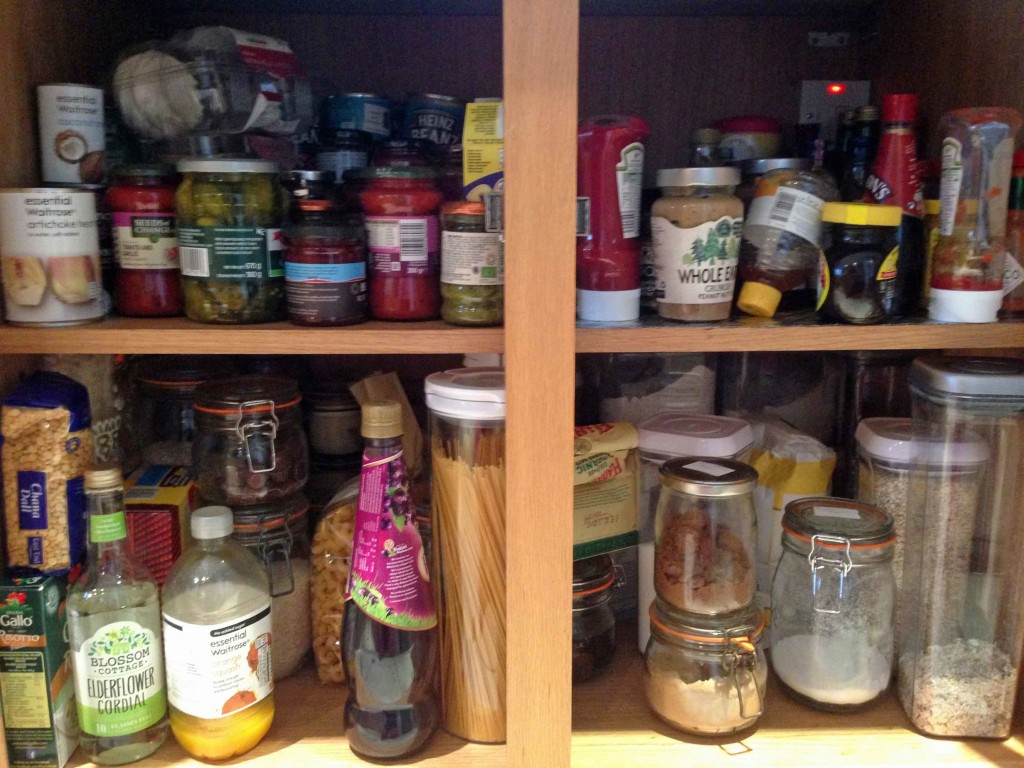 Anyway, I’ve started cooking again, counting down the 30 day grace period for the new fridge to break so have a number of relatively new ingredients to play with. I ordered samphire on-line and am now a bit flumoxed. Probably the best way to go is to make a quiche and serve it with new potatoes and steamed samphire. As a child, we would go down to the estuary for picnics and pick fresh samkins (samphire). We’d take it home and boil it quickly for supper with “scouse” a cheap local version of meat stew. Or maybe it would go well with shakshuka as there’s a good recipe for that in the newspaper this week. Either way, I need to use it quickly as it won’t last long even in the fridge.
Anyway, I’ve started cooking again, counting down the 30 day grace period for the new fridge to break so have a number of relatively new ingredients to play with. I ordered samphire on-line and am now a bit flumoxed. Probably the best way to go is to make a quiche and serve it with new potatoes and steamed samphire. As a child, we would go down to the estuary for picnics and pick fresh samkins (samphire). We’d take it home and boil it quickly for supper with “scouse” a cheap local version of meat stew. Or maybe it would go well with shakshuka as there’s a good recipe for that in the newspaper this week. Either way, I need to use it quickly as it won’t last long even in the fridge.  Today is Mothering Sunday or Mother’s day in the UK. Originally a religious holiday, it’s now more of a general celebration where mother’s all around the country take delivery of cards and flowers. As the regular sermon goes, it’s actually more of a celebration of mothering and all of us, men, women, people both with and without children are capable of mothering. Happy Mother’s Day
Today is Mothering Sunday or Mother’s day in the UK. Originally a religious holiday, it’s now more of a general celebration where mother’s all around the country take delivery of cards and flowers. As the regular sermon goes, it’s actually more of a celebration of mothering and all of us, men, women, people both with and without children are capable of mothering. Happy Mother’s Day 
March 8th: economy
I came across this graphic showing the relative value of the various country and region economies.
And obviously the most striking thing is the rise of China but it would be interesting to see this graphic if the bubble was allowed to grow in size as indeed the world’s economy has risen. It isn’t at all clear to me that one country’s gain is at another country’s expense. Does China’s rise out of poverty cost the US anything or does it just mean that fewer people are starving to death or living in hovels? Obviously the UK has declined from it’s Empire heyday, but the standards of living over here have done nothing but rise. I don’t feel it would reasonable to complain about the US ascendency since the second world war. As the US loses it’s dominance, as the UK lost it’s Empire, is angst, fear and unhappiness inevitably the fate of it’s people? Is the Trump politics of fear just a reaction to the improved standards around the globe, the feeling of losing dominance, of forced sharing power. In the UK we had the cultural revolution of the 60’s where everyone (looking back from a distance) seems to have been so optimistic in the UK. Where does the next wave of optimism arrive? Today is International Women’s Day so obviously I was asked why don’t we have a day set aside for Men.
And it seems so obvious that every day is International Men’s Day, so much so that it doesn’t really need stating, does it?
March 9th: Master builder
One of a series of wonderful birthday treats was going to see the Ibsen play, the Master Builder at the Old Vic Theatre.  The change will come. And it’s not far away, I promise you that. Some figure will emerge from the dark screaming “Get out of the way”. And not far behind others will follow… The young are waiting. In all their power. Knocking on the door.’ The master builder, Halvard Solness (Ralph Fiennes), has a fear of falling. A self-made man, without professional qualifications, he has achieved domination in the town, but he is increasingly frightened of being displaced by the young. A woman, Hilde Wangel (Sarah Snook), appears from the mountains, claiming to have known Solness ten years previously, and telling him of a promise he made to her when she was thirteen. Ralph Fiennes dominated the play from start to finish. Watch the trailer: Ralph Fiennes on The Master Builder
The change will come. And it’s not far away, I promise you that. Some figure will emerge from the dark screaming “Get out of the way”. And not far behind others will follow… The young are waiting. In all their power. Knocking on the door.’ The master builder, Halvard Solness (Ralph Fiennes), has a fear of falling. A self-made man, without professional qualifications, he has achieved domination in the town, but he is increasingly frightened of being displaced by the young. A woman, Hilde Wangel (Sarah Snook), appears from the mountains, claiming to have known Solness ten years previously, and telling him of a promise he made to her when she was thirteen. Ralph Fiennes dominated the play from start to finish. Watch the trailer: Ralph Fiennes on The Master Builder
March 10th: Eurosceptic
I have a great deal of respect for Merryn Somerset Webb FT financial reporter, so her article this week describing why she is in favour of BREXIT has given me pause for thought. Firstly she argued that the European Union lacks a demos, a political sense of self or reality. It’s obviously true to say that any idea of nationality can be regarded as abstract, true only so long as a group of people subscribe to it. The state of Belgium is a good example, with near constant threats of division between the north and south, Vlaamse versus Walloons. Similarly, Italy is a very young state and many of it’s people feel a far more local association than a cross-country Italian identity.

But as countries age they seem to settle into their own skin somewhat. The EU is a very young institution, built at the end of the Second World War to create supranational bodies to balance out the then perceived inadequacies in their national government bodies, the governments that once more took Europe to war. The real question is all about how individuals see themselves. I would describe myself as Welsh, British, European. The description “European” is not so far behind my idea of myself as British. Europe feels real to me. For some people, for whom Europe comes a very poor third or fourth identifier, maybe Europe feels less real. So when Ms Somerset Webb says about Europe “Most of us feel no real connection with it, or belief in it” then I would have to disagree.
There are problems with the European Union, significant problems. The ECB monetary policy is rocky. Deep divisions were clearly laid out before the world when the Greeks rejected the EU austerity proposals in return for a euro bail-out, only to be forced to accept them weeks later. The eurozone’s big banks and big countries (France, Italy especially) are likely to have serious solvency issues still to be addressed.

These problems are likely to affect the UK even outside of the common currency because the EU is our largest single market. If the EU goes down, then 40% of our trade goes down the drain too. If we’re inside the EU, we have some ability to influence events whilst being insulated from the worst impact of a shared currency. If we’re outside the EU, we get to watch with no influence whatsoever, and furthermore, will most likely be blamed for much of the chaos. Rather than watching from a safe lifeboat off-shore, I tend to view it as sitting in a rubber dinghy as the hurricane winds start to blow up. Ms Somerset Webb argues that there is “a democratic deficit or sovereignty problem in the EU” but it’s an assumption she’s making rather than an argument. We elect representatives to the European Union directly. Voter turnout is low for European elections, because the British place more emphasis on their national government. If we saw the EU as being important, as being a threat to our national or personal wellbeing we’d be more likely to vote not less. Low voter turnour, reflects our innate belief in self-determination, a dismissal of the idea that the EU unreasonably impeeds our own sovereignty. It is true to argue that the European Commission, a hybrid of civil service and government, can be bureaucratic. Clearly there are too many rules and sometimes rather poorly thought out rules. The EU can easily be accused of being both distant and untransparent. This is true of all governments everywhere.

People living in the north of England are very likely to level the same charges at the UK government based in London. As a member of the EU the UK can push forward with changes to introduce more transparancy, more accountability. It is a work in progress rather than a completed project. This solution would suit the UK better than a push to further centralise power to the extent that the EU might in the end come to rival national governments. This is the idea of ever-closer political union much beloved of some European countires. David Cameron has achieved recognition from the other members that not all countries will want to pursue this goal, and those who don’t, such as the UK, should not be penalised. The idea of a loooser coalition or trading bloc, has significant merit. Moreover, without the UK, the push to ever-closer union is likely to grow within the EU taking our neighbours and our most important trading partner in a direction we are seriously unhappy with. As our nearest neighbours, and our largest trading market, we are going to have to continue to deal with the EU, whether we are in or out. Like Denmark and Switzerland, even without full membership, in order trade, we will have to agree to the rules set by the EU. We really need to be at the table when those rules are decided.

Ms Somerset Webb believes that the economy will be better off outside of the EU and cites the Capital Economics report on the matter. Looking through this, the arguments for and against are very nuanced. Free movement of people is likely to continue if we want to trade with the EU (in or out) and according to the report is a financial benefit anyway. Trade with the EU will continue whether we are in or out, follwoing trade regulations set by the EU without our imput. If we leave the EU the UK will be free to negoatiate it’s own independent trade agreements with third parties. The process may be considerably quicker and easier as an independent state. But I’m not convinced that a country of 60million will carry as much weight as the EU trading block. I don’t believe that we will get better terms and trading conditions. Financial Services represent a serious £127billion or 8% of the UK’s Gross Value Added and will be damaged in the short term
This is an incredibly risky bluff to call.
March 11th: Stories
Some stories by, about and for transgender people that have made me think, reassess and think again.
Kellie Maloney: trans issues are complex, and people will get
I thought I’d be embarrassed to walk my cat, but turns out we …
Story of a transgender schoolteacher: ‘I limp through life …
I thought I knew what it meant to be a man – then I …
Stitching together Cid’s manhood: in the operating room for …
Transparent: finally, a realistic portrayal of finding your style …
Transgender kids: ‘Everyone was calling me Sebastian, but I …
How I finally learned to be comfortable on my nonbinary …
Juliet Jacques: ‘I spent years pretending to be male’ | Global …
Transgender: identity is never one single thing so tick the box
March 12th: I wish…
I came across an article by Darius Foroux which listed 25 things that he’d wished he’d known from the beginning. What would your list look like?
- Struggle Is Good Never say “I can’t take it anymore.” Say “Bring it on!”
- Don’t Complain Complaining is the biggest waste of time there is. Either do something about it, and if you can’t, shut up about it.
- Spend Time With People You Love That’s your family and best friends. If you don’t have a family, create one. Most people in life are only visitors. Family is for life.
- Don’t Start A Relationship If You’re Not In Love I’ve done this more than once. You kind of like someone and think: “We might as well give it a shot.” Not a good idea. You’re either in love, or you are not. Don’t fool yourself. It’s not fair to you and the other person.
- Exercise Daily I didn’t get this until recently. A healthy body is where you have to start everything in life. If you can’t build a healthy and strong body, what CAN you build in life?

Namib Naukluft - Keep A Journal No, keeping a journal is not for children. It helps you to become a better thinker and writer. “I don’t want to be a writer” you might think. Well, how many emails and texts do you send a day? Everybody is a writer.
- Be Grateful Say ‘thank you’ to everyone and everything. “Thank you for this beautiful day.” “Thank you for your email.” “Thank you for being there for me.”
- Don’t Care About What People Think We all die in the end, do you really think it matters what people think of you?
- Take More Risks Don’t be such a wimp.
- Pick An Industry, Not A Job If you want to become good at something, you need to spend years and years doing that. You can’t do that if you hop from industry to industry. Pick an industry you love and start at the bottom. You will find the perfect role for you eventually.

Namib Naukluft - Lead The Way When you find yourself in a situation where everyone looks at each other, it’s time for you to lead. You‘re a leader when you decide to become one. There’s no initiation or a title. Just a decision.
- Money Isn’t Important It really isn’t. But you have to train yourself not to care about money. Don’t become too dependent on the stuff you own — otherwise, the stuff will own you.
- Be Nice I don’t mean you should be a pushover. You can be someone that doesn’t take shit and be nice about it. Just don’t insult people, think you’re better than them, or act like an idiot.
- Learn Every Day You’ve got to train your brain to stay alert. You don’t have to read a book a day to learn every day. Learn from your mistakes. Learn from the people around you — be open to what they can teach you.
- Rest Before You Are Tired Even if you love your job, and every day seems like a holiday, you need to take time to rest. You’re a human and not an android, never forget that.

Long road Namib Naukluft - Don’t Judge Just because people make different choices than you, they are not stupid. Also, you don’t know everything about people, so don’t judge them — help them.
- Think About Others Just be mindful, that’s all. We all have families, bills to pay, and our own issues. Don’t always make everything about yourself.
- Give Without Expecting Something In Return Don’t keep score. You will become a bitter person if you do that. Give solely for the joy of giving. If you get something in return, great, if you don’t, great.
- There’s No End Game We, as a species, just are. Don’t try to figure it all out. Enjoy your journey.
- Enjoy Small Things I like clichés because they are true. Especially this one. You know why? Everyone says they know it, but no one lives up to it. They just chase big things.

Herd Zebra, Namib Naukluft - Don’t Take Yourself So Serious Yeah, yeah, you’re an individual, and people have to take you seriously, I get it. But at the end of the day, we’re all a bunch of ants trying to chase the same things. Lighten up.
- Don’t Blame People What’s point? Do you want to punish them? You don’t do that to people. Also don’t blame yourself — you’re only human.
- Create Something Not to leave a legacy, you won’t be here to see it anyway, but to be of use. Make music, write a book, build a table, anything. You’ll feel good about yourself, plus you give something back to people to use or enjoy.
- Never Look Back Too Long Reflecting on the past is only good for one thing: Learning.
- Take Action Don’t just sit there, do something. Without action, there is no outcome.
March 15th: Sermon
Sitting in on the Sunday sermon, and it’s always surprising the things that pop into your head. Was it really such a blessing for Lazarus to be brought back from the dead? Imagine being him. Dying once must be horrendous. Imagine first the pain, then the relief, and then the mental torture of being judged. Let’s suppose that you are judged worthy and welcomed into whatever heaven you can imagine, only to be dragged back to earth. Or perhaps worth, imagine being forced to face up to all of your sins, found lacking and just before being tipped into the abyss (if that’s what you believe) you are dragged back to life. Would you spend the remaining years of your second life trying to atone?

Dying twice would be close to unbearable, yet Lazarus is asked to take up the burden. The preacher talked about the time Jesus was invited to a feast, and Mary came with a bottle of perfume to anoint his feet. The gospel reading was John 12:1-8 The preacher assumed therefore that this feast was taking place in Lazarus’ house, and on that basis, the woman involved was Mary, the sister of Lazarus. It’s a story told in each of the gospels though slightly differently. All four have a setting in a house for a meal, a woman, and expensive perfume poured on Jesus, to which someone objects because of it’s cost and the waste of money. All except Luke identify Bethany as the location of the feast. The host varies. Matthew and Mark say “in the home of Simon the Leper”; John does not offer a definitive host or house; Luke says the house of a pharisee named Simon.
- Our preacher today went a bit off-piste by introducing the idea of Mary sister of Lazarus. Traditionally she has been identified as “a woman in that town who lived a sinful life” per Luke or by John as Mary of Bethany. Matthew and Mark just say “a woman”.
-

Namib Naukluft - Jesus’s comments are reported fairly consistently suggesting that this is the part of the gospel that people have found the most important over the years : “The poor you will always have with you” and “She poured perfume on my body beforehand to prepare for my burial”.
- But these are not in Luke, who instead records comments on hospitality and forgiveness of sins that are not in the other accounts.
- The cost of the perfume is put at almost a full year’s wages or 300 dinari. Assuming our preacher’s version were true, a dependant sister living at home would not have access to that sort of wealth unless it was her own dowry so either she spent up her entire marital worth and opportunity, or the “gift” was in fact from her brother, recently retrieved from the dead.
- What if the perfume used was in fact the perfume bought for Lazarus’ own death? How does that change the message?
- Maybe that is why people still find themselves searching through the gospels looking for some meaning, something that touches them. Over the years, the stories are told and with each retelling another meaning is found. The stories become personal.
- Each and every great religion contains these stories, these gospels or fables that speak to people and help bring meaning, bring comfort and sustenance to their lives. They bring people together, usually over a meal. They help to build communities.
-

Erongo Cave drawings
March 16th: Suspicious
The cats have been staking out the fireplace in the living room all morning. Over the weekend the finally manged to complete their mega destruction project on the cat flap. Nowadays it flaps free. They are untethered and free to roam at night, free to hunt for tasty crunchy mice. Upto the mega destruction, the tearing apart of the lock mechanism and the easing away of the two component frames, they were locked in at night in a vain attempt to keep them safe. Most domestic cats disappear at night. It’s when they get caught out in car accidents and no one is around to rush them to vets. Since mine are young and much loved, we decided to keep them inside.  They hate being inside at night time. There’s a reason that cat’s have such good eyesight, especially for semi-flourescent mouse pee. So the first morning after wrecking the cat flap, I opened the living room door to find a very neatly prepared mouse corpse waiting for me. Right next to my handbag. I’m not sure whether the two cats presenting the muse were the actaual catchers and killlers. They seemed a bit too keen. It might have been the calico baby – she’s got form. This morning, there was no mouse corpse waiting but there were two cats watching attentively as the third rummaged in the fireplace. We have a real fireplace set up for a real fire, with kindling, coal and wood ready to be lit. There is space at the back where some coal has fallen and obviously a box to catch the ashes.
They hate being inside at night time. There’s a reason that cat’s have such good eyesight, especially for semi-flourescent mouse pee. So the first morning after wrecking the cat flap, I opened the living room door to find a very neatly prepared mouse corpse waiting for me. Right next to my handbag. I’m not sure whether the two cats presenting the muse were the actaual catchers and killlers. They seemed a bit too keen. It might have been the calico baby – she’s got form. This morning, there was no mouse corpse waiting but there were two cats watching attentively as the third rummaged in the fireplace. We have a real fireplace set up for a real fire, with kindling, coal and wood ready to be lit. There is space at the back where some coal has fallen and obviously a box to catch the ashes.
Having got a torch and peered and poked about a bit, I couldn’t spot a mouse but… they are surprisingly difficult to see unless they move, especially if covered in coal soot. An house or so later, I hoovered up the mess left by moving the coals about only to find myself sudely surrounded by very interested cats. No sound, no movement but I would bet there’s a rodent stashed away in the ashes somewhere. So how immoral would it be to light a fire, not to torture the poor bugger but to force it out of hiding. It can’t easily get out of the house so either it dies of starvation at the back of the grate, the cat’s catch it and torture it to death, or it finds a whole in the floorboards and takes up residence. Dilemmas. 
March 17: Allergies
Sometime over the last five years, I developed a peanut allergy. Nowadays I avoid peanuts and peanut butter but not perfectly. A friend is horrified “But don’t you know how dangerous it can be, and allergies can escalate so suddenly” Hmm. Allergic reactions involve an innapropriate response by the immune system: immediate responses involve IgE antibodies and occur within minutes of eating or even touching the substance you’re allergic to (the allergen). A delayed response (4-28 hours) is called non-IgE mediated allergy. Allergic symptoms can range from mild to life-threatening anaphylaxis. Common symptoms are sneezing, itchy and runny eyes and nose, wheezing, chest tightness, cough, swollen lips, tongue, eyes and face. You may feel sick, get stomach pains or vomit.
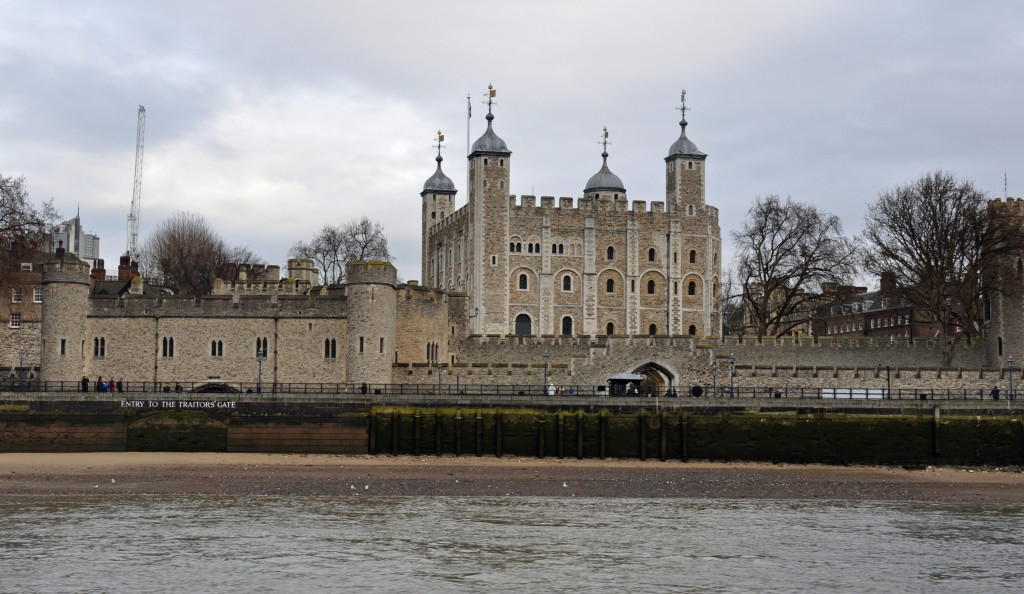
I have IgE mediated allergy to peanut butter, an immediate repsonse where my face swells. Basically I end up looking like quasimodo until I take some over-the-counter antihistamines. My nephew (through his family) has full on anaphalaxis for nuts, dairy and any other number of substances. His illness is life threatening and has been life changing. Anaphylaxis is an extreme and severe allergic reaction affecting the whole body. It usually starts within minutes of exposure; common culprits are tree nuts, peanuts, sesame, eggs and shellfish, while drugs such as penicillin, wasp and bee stings and latex are also dangerous for some. The nephew has been carted off to hospital on numerous occasions. If you have a significant reaction to a tiny amount of the allergen, react to skin contact with it or have had a severe allergic reaction in the past, you should see your GP and request referral to an allergy clinic or specialist testing. If you’re at risk, you should carry an auto adrenaline injector. There are around 20 deaths per year in the UK attributed to anaphylaxis, most of which are potentially preventable. But most of us are not in that camp.
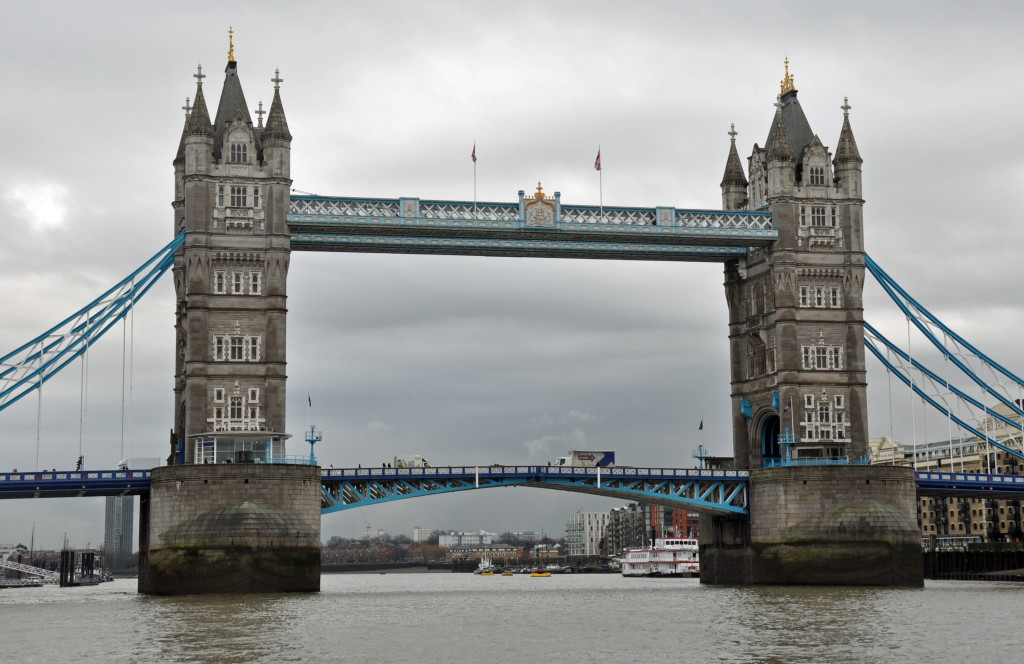
One in five UK adults believes they have a significant food allergy. Most don’t – the best estimates suggest that 1.5-3.8% of adults and 6-8% of children have food hypersensitivity (FHS) which is a food allergy or intolerance. The best approach to allergies is to identify the culprit, avoid it and carry oral antihistamines for use in mild cases and injectable adrenaline for severe cases.
March 18:Cliche
So one of the very many bits of add-on code that the helpful people at wordpress supplies for free, tells me that the most searched for term leading people to this site one day was “naked london wives” I’m betting they were disappointed. The post of the day was all about BREXIT, or possibly domestic violence. Let’s hope both were a turn off. Why are men searching for sex so boring, so cliched? Apparently the most searched for term is some variation of “sexy cheerleaders” which must make their daughters feel somewhat creeped out. Maybe I should see it as a step forward that some men find the idea of “wives” sexy. even if it is other people’s wives. Is the idea of women as some other man’s posession or property being a turn on more or less distasteful than the idea of a guy googling pubescent teens? Difficult. Sometimes men are so depressing. And yes, I know I’m generalisng but men have been generalsing about teenage girls and housewives for generations so this is a pretty mild rant considering. So to return to a much used trope: Good porn is pretty hard to find.Most porn is incredibly unrealistic and unsatisfying. The more time you spend looking through naff websites for stereotype porn, the less interesting you are likely to become a lover for a real life woman, whatever their age or occupation. Because whilst women rarely care about the size or shape of your genitals, they really do care about the size and shape of your thoughts, your conversation, who you are and what makes you interesting. Porn makes for a very dull boy.

March 19: Corpse
We found the mouse corpse in the dining room. The three cats had been unusually interested in the living room fireplace but I couldn’t see a mouse to catch and release. In the end I headed out to play tennis and left them to the stakeout.

My eldest spotted the rodent remains first, wondering whether they’d drowned the poor thing in the water bowl. It was a rather complicated idea. My best guess, given the semi-wet appearance, the lack of blood or coal dust from the fireplace, is that they killed it relatively quickly with a bite to the neck and then licked it clean – mouse popsicle. Since they’re perfectly well-fed, they’re not hungry enough to be interested in eating the thing so once it stopped running, they’d pretty much stop hunting. Next weekend we’re heading to the pet shop to hunt down a new cat flap. We’re averaging a mouse a day and they’re only young inexperienced cats. What happens when they move onto squirrels or rats?
March: 20: IDS
Ian Duncan Smith is a senior UK politician who has just resigned from the Conservative Government. He’s a marmite kind of politician, which is UK speak for a person who will generate polarised reactions. The reactions today have been as extreme as ever. It has been described as setting off a Tory War. IDS is known for being a Eurosceptic who is actively campaigning to leave the EU but that is not the reason he gives for his resignation. For the last few years, he has been the government minister in charge of Welfare and Pensions. Iain Duncan Smith spent five years in opposition drawing up plans to overhaul welfare; universal credit was the entire basis of his decision to co-found the Centre for Social Justice thinktank. His key argument today is that his desire to roll out those reforms was the only reason he entered government – an ambition to drive a social justice agenda that would help people into work. His reform ambitions were hampered by the 2008 financial crash which devastated the economic landscape. Duncan Smith said he knew that government would require “compromise” but he wanted to do it to try to deliver his plans.
Th economic crash meant that welfare cuts became the overriding narrative, while universal credit was more seen as a huge, at times inefficient reform, which had its deadline pushed further and further back. Duncan Smith says he could take the austerity agenda, but admitted that he was constantly under fire from the Treasury. Despite his warm words for the prime minister and chancellor, the key argument he made on Sunday morning about the Conservatives is damning: he suggests that the leadership brutally went after welfare because the working poor were not a group that had or ever would vote Tory. Disability reforms, he said, were the straw that broke the camel’s back. He said he had supported policies to help pensioners like the triple lock, but enough was enough. There is a risk that government policy is drifting in a direction that “divides society rather than unites it”. In this week’s Government budget, cuts to disability support were proposed along with rises in the tax free allowances for the wealthy. IDS presents himself as a conviction politician, a one-nation Tory. Cuts to Welfare are popular with voters of all political persuasion which makes these cuts politically straightforward. Duncan Smith’s parting shot is to say the time has come for politics to rise above populism, and stop hurting the most vulnerable, just because it is easy to do so. He calls for an end to divisive policies where the working poor population are asked to pay the price of austerity whilst protecting the pensions of the wealthy. His resignation has seriously reduced George Osborne’s chances of becoming Prime Minister when his close friend, and current PM, David Cameron steps down. Cameron is left trying to protect his closest colleague and friend by making sure that it is No 10 reacting to Duncan Smith’s decision.
March 22: Drawing Lines
There is an excellent article by Victoria Coren Mitchell in the Guardian which is definitely worth reading. As I get older, I am more and more angry with the way men of all ages sexualise young girls and women. Maybe it has something to do with the way my girls come home from school, in their uniforms and tell me stories of one or more creepy guys who’ve approached them. Maybe it’s because of the warning the local school felt it needed to make, to tell the girls to avoid a local path because of the man wanking whenever one of them appeared on their way to school. Despite the predictability of his appearance, it was the girls who were told to alter their way to school, to adjust and deal with his harrassment. Why? The fact that one of the most common searches on porn sites is “pretty schoolgirls/cheerleaders” speaks to the normalisation of this attitude. Why is it so difficult for men to accept a zero tolerance towards sexual abuse, sexual grooming?  As Coren points out, it was difficult for people to accept the lowering of the alcohol limit for driving yet some years on, it has become clear that fewer lives are now lost to drunk drivers as a result. If we were to accept that sexual interactios with children is never acceptable, then we’d end up with less everyday sexual abuse of kids. The line is not blurred. The line is clear. Only the people who cross the line want it to be blurred, only those who want the freedom to sexualise children think that this is a grey area.
As Coren points out, it was difficult for people to accept the lowering of the alcohol limit for driving yet some years on, it has become clear that fewer lives are now lost to drunk drivers as a result. If we were to accept that sexual interactios with children is never acceptable, then we’d end up with less everyday sexual abuse of kids. The line is not blurred. The line is clear. Only the people who cross the line want it to be blurred, only those who want the freedom to sexualise children think that this is a grey area.
Indifferent
And the latest graphic from the Economist is so upsetting to those of us who believe we are the obvious centre of the EU universe.
Yet I wonder how many of the people living in the UK would be similarly uninterested if this referendum hadn’t been forced upon us. Basically we only worry about stuff that’s changed or about to change. Does anyone stress about the everyday normality? Also, this might change quite significantly if we started to send the indifferent Slovaks etc back to their country of origin.
March 23: basics
Sometimes it just comes down to basics.
Hygiene is about as basic as it gets. Access to clean water is such a luxury that we take for granted in the developed world. Travelling around India recently, clean water was the one thing that we all missed. Decent sanitation was the second. There is nothing like the sight of endless men peeing (and occasionally pooping) at the side of the road to make a person miss fully functioning toilets.
March 25: Afraid
Some time ago, America decided to elect a black man, Barack Obama, rather than a woman. No matter how you regard his time in office, his election has to be regarded as a momentous event. At least one article that I’ve read attributes the move to the right by Republicans as entirely due to an over-reaction to Obama’s skin colour. Given the reaction to Hilary Clinton’s campaign, the idea seems less far-fetched than it should. Nowadays, it looks like Hilary Clnton’s main competitor is likely to be a rather peculiar shade of orange. You could not invent Donald Trump. His character would be entirely unbelievable in a tv drama, possibly too far-fetched even for a comedy. To be realistic, you would have to create a successful business man turned politician, something like the pragmatic Warren Buffet or a visionary Bill Gates type, certainly not a poor little rich boy.

You can criticise Hilary Clinton for lots of things, serious issues, dropped policies or mishandled issues. But you can’t seriously blame her for the policies attributable to her husband Bill Clinton, especially when you make it clear that despite his actions in power, you still like him, just not his not his wife. You can’t reasonably hold her to higher standards than the men she competes against. By all means, check the voting records, but don’t point the finger at her whilst ignoring the record of her competitors. And whilst being a woman is not the only reason to vote for someone, it does speak to a life led overcoming undoubted bullshit and hindrance. Succeeding despite the odds, is a reasonable thing to consider when deciding merit because the deck is so very thoroughly stacked against women in both law and politics.
Yet all of this may fade to nothing, because white men in America don’t like Hilary Clinton. A spoiled, tantrum throwing rich-boy may become the next president of the US because white men just can’t bring themselves to vote for a woman. Since the President seems to have so much more authority on foreign rather than domestic policy, the rest of the world may well be screwed.
March 26: Journeys
I’ve been following the trans conversation and debate, and it seemed reasonable to actually educate myself as to what transitioning might involved. Not for the squeamish.
Female To Male (FTM) transitioning in terms of the surgery requirements made me wince, time and time again (A guide to lower surgery for trans men – TENI). This is so obviously not something a person wants to do but rather what they need to do to be themselves. No one volunteers for this stuff trivially.
Sex reassignment surgery is usually preceded by beginning hormone treatment with testosterone. For many years, the available surgery for FTM has been regarded as less useful than that for MTF transitions.

Clearly many trans men considering their options do not opt for genital reassignment surgery; more frequent surgical options include bilateral mastectomy (removal of the breasts commonly referred to as top surgery) and chest contouring (providing a more typically male chest shape), and hysterectomy (the removal of internal sex organs). It seems that people can feel caught between being “not a woman” and “a man” physically, and yet clearly the two are not the same. Binary gender is an artificial construct. But for a serious number of trans men, being able to pee in a urinal standing up is a serious part of their self-identity so some kind of “bottom” surgery will be required. Synchronising the internal and external identity for transmen is a way forwards in terms of mental health and managing their physical dysmorphia. From the website http://nonbinary.proboards.com/ it became clear that surgery can have a profound impact. One transman explained that he felt himself a man before having these surgeries, so the surgeries don’t add or remove anything from him – just enhance what is already there.

When he saw his chest for the first time, it felt natural and when he held his penis for the first time, even though there was no sensation in it, there was still a sense of disconnect but it felt right. There are obviously a number of stages to the surgery, transforming female genitalia, creating a penis and testicles, removing the vulva and labia etc. and trans men can stop or pause at any single step. When people see phalloplasty results online, it is usually only the very first stage where it hasn’t had urethral lengthening, glansplasty or testicular implants yet which are usually done in the later stages. Surgeons can take 2 or 3 stages or operations. But the reality is that even after all the surgery is completed, it won’t be a cis-guy’s penis. Cis-men can be showers or growers. With phalloplasty, since the technology hasn’t been invented yet, it’s just going to stay the 5-6 inch length. When you’re in the showers with men, men may have a glance at your penis for a second or so and they won’t think there’s anything out of the ordinary. An article in the Guardian from last year describes the journey of one trans man. I’m struck (as he was) by the pull of male privilege once he started to “pass”. (Stitching together Cid’s manhood: in the operating room for …) “I was instantly offered better jobs and paid about 40% more than I had been for the same kind of job before, while my qualifications hadn’t changed. I’m not kidding. And my credentials weren’t questioned at interviews in the way they always had been.” 
March 27: Hell
I have an ambivalent attitude towards hell and damnation. My Christianity focuses more on redemptive love than punishment.
However, if hell exists (aside from an absence of God’s love) then there must be a special place in hell reserved for those who kill the innocent, the murderers of children, of men and women going about their everyday lives.
March 28: Motherhood
There was an interesting post, by Carlin Ross about motherhood and myths on the site DodsonandRoss that’s taken me a while to work through my thoughts. Let me say straight away that parents, especially new parents, can list every single downside and negative aspect related to parenthood but I know none that would ever give back our children. Children are a joy and delight, as well as a challenge and trauma. Being a parent is a rollercoaster ride. Becoming a parent is a huge challenge, hard work and wearisome, but it has also moved my life from black and white to technicolour.  But becoming a parent is not easy. We need to recognise that postnatal depression is a serious illness that 10% of mothers (and occasionally fathers) will suffer. Like many illnesses that disproportionately impact women, it has been alternatively trivialised and demonised by society. The causes are unclear but risk factors include:
But becoming a parent is not easy. We need to recognise that postnatal depression is a serious illness that 10% of mothers (and occasionally fathers) will suffer. Like many illnesses that disproportionately impact women, it has been alternatively trivialised and demonised by society. The causes are unclear but risk factors include:
- mental health problems especially depression either before or during pregnancy;
- no close friends or family as support network;
- a poor relationship with their partner; or,
- recent stressful events such as bereavement
Obviously giving birth and becoming a parent is a fairly traumatic and stressful event. Aside from the physical upheaval of pushing something the size of a watermelon out of your body, there is a whole new emotional hinterland to explore and get lost within. Your life has changed and there’s no way back. Suddenly our lives don’t belong to us anymore. All of our plans and aspirations now come with a huge “but… what about the baby?”  All of a sudden we are obliged to confront the assumptions we have made, which start to unravel as and when they come up against the assumptions your partner may have made, and the day to day reality of a baby in the house. Who get’s to stay late at work on what nights can become a seriously fraught conversation. Who takes out the trash, who holds and feeds the baby, who gets to invite supportive/interfering family in-laws over and for how long, can all derail previously amicable relationships. Any of us can fall victim to depression, rich, poor, successful or struggling. Falling over and breaking a leg does not make a person a bad parent, and neither does suffering postnatal depression. It’s important to seek help and treatment early on and not assume that things will get better on their own. It’s also useful to ask your medical provider before giving birth, what their attitude and procedures are for checking and dealing with postnatal depression. When I adopted cats from the shelter, I had to answer a detailed and quite intrusive questionnaire about my family and home environment. Even my finances were questioned. There was a home visit to check out the facilities both before and a year after the cats came home. In comparison, my decision to become a parent was entirely unsupervised and unchallenged. I got pregnant. I gave birth. The midwife left. The baby stayed. There were a couple of home visits from the midwife team and that was it, the scariest experience of my life was about to begin (the labour is only scary beforehand).
All of a sudden we are obliged to confront the assumptions we have made, which start to unravel as and when they come up against the assumptions your partner may have made, and the day to day reality of a baby in the house. Who get’s to stay late at work on what nights can become a seriously fraught conversation. Who takes out the trash, who holds and feeds the baby, who gets to invite supportive/interfering family in-laws over and for how long, can all derail previously amicable relationships. Any of us can fall victim to depression, rich, poor, successful or struggling. Falling over and breaking a leg does not make a person a bad parent, and neither does suffering postnatal depression. It’s important to seek help and treatment early on and not assume that things will get better on their own. It’s also useful to ask your medical provider before giving birth, what their attitude and procedures are for checking and dealing with postnatal depression. When I adopted cats from the shelter, I had to answer a detailed and quite intrusive questionnaire about my family and home environment. Even my finances were questioned. There was a home visit to check out the facilities both before and a year after the cats came home. In comparison, my decision to become a parent was entirely unsupervised and unchallenged. I got pregnant. I gave birth. The midwife left. The baby stayed. There were a couple of home visits from the midwife team and that was it, the scariest experience of my life was about to begin (the labour is only scary beforehand).  Parenting is a learned behaviour. It is the opposite of instinct. It’s why mammals abandoned in the wild so rarely are able to parent their own young. We learn how to parent (or in some cases how not to parent) by reference to our own early experiences, our own parents. Child abuse, principally neglect is especially pernicious because it comes mainly from a poor parenting background and tends to repeat itself. The best way forwards, is to dedicate midwife or social work teams towards helping, supporting and teaching new parents how to be parents rather than just abandoning them to fend for themselves. We learn to parent from observing and experiencing our own parents but the goalposts seem to have shifted.There is a lot more anxiety associated with becoming a mother now than for our own parent’s generation. Despite holding down paid employment, recent studies show that women actually spend more time with their children than a generation ago. Why are mothers held to such a high standard these days? Every few years or so, another book is released and becomes popular. We are told how everything we are doing as mothers is wrong. Attachment mothering was popular when I had my first child. We were told to never put our child down, to try to meet their every need almost before they could express it. Two years later Gina Ford came into fashion and we were all told to mother to a strict regime, to enforce strict boundaries, to impose as much order upon our children’s lives as possible through controlled crying etc.
Parenting is a learned behaviour. It is the opposite of instinct. It’s why mammals abandoned in the wild so rarely are able to parent their own young. We learn how to parent (or in some cases how not to parent) by reference to our own early experiences, our own parents. Child abuse, principally neglect is especially pernicious because it comes mainly from a poor parenting background and tends to repeat itself. The best way forwards, is to dedicate midwife or social work teams towards helping, supporting and teaching new parents how to be parents rather than just abandoning them to fend for themselves. We learn to parent from observing and experiencing our own parents but the goalposts seem to have shifted.There is a lot more anxiety associated with becoming a mother now than for our own parent’s generation. Despite holding down paid employment, recent studies show that women actually spend more time with their children than a generation ago. Why are mothers held to such a high standard these days? Every few years or so, another book is released and becomes popular. We are told how everything we are doing as mothers is wrong. Attachment mothering was popular when I had my first child. We were told to never put our child down, to try to meet their every need almost before they could express it. Two years later Gina Ford came into fashion and we were all told to mother to a strict regime, to enforce strict boundaries, to impose as much order upon our children’s lives as possible through controlled crying etc.  And ofcourse there are as many ways of being a parent as there are people. There is no absolute right or wrong just as there are no perfect mothers or perfect children. There is only good enough. Some of us will be authoritative dictators whilst some will be indulgent friends to our children. Many of us will move from one style to another depending upon circumstance. Fatherhood seems much less stressful today. Benign neglect is the best father technique that I’ve come across and it doesn’t seem to harm either the child or the father. It seems very similar to the mothering style of our parents generation, basically love them but let the kids get on with being kids and give them space to grow into themselves. Making the mother the dominant parent in society seems to create more problems than it solves. The stress of parenting perfection is forced upon the mother whilst the father’s abilities and interest in his children is minimised and dismissed. He has the freedom to relax, but also runs the risk of being irrelevant, of being unimportant to his own children. At the end of the day, life is all about the relationships we make and maintain and pushing men out of such an important intimacy with their children seems unfair to men as well as putting too much pressure on women.
And ofcourse there are as many ways of being a parent as there are people. There is no absolute right or wrong just as there are no perfect mothers or perfect children. There is only good enough. Some of us will be authoritative dictators whilst some will be indulgent friends to our children. Many of us will move from one style to another depending upon circumstance. Fatherhood seems much less stressful today. Benign neglect is the best father technique that I’ve come across and it doesn’t seem to harm either the child or the father. It seems very similar to the mothering style of our parents generation, basically love them but let the kids get on with being kids and give them space to grow into themselves. Making the mother the dominant parent in society seems to create more problems than it solves. The stress of parenting perfection is forced upon the mother whilst the father’s abilities and interest in his children is minimised and dismissed. He has the freedom to relax, but also runs the risk of being irrelevant, of being unimportant to his own children. At the end of the day, life is all about the relationships we make and maintain and pushing men out of such an important intimacy with their children seems unfair to men as well as putting too much pressure on women.  Carlin Ross makes New York sounds like a fairly unfriendly place to bring up kids, possibly a city ripe for a child-friendly revolution. With my two young daughters in London most of the people I came across were genuinely helpful and kind. There were a couple of disapproving looks, once when breastfeeding early on from an elderly guy, and a couple of times when one of my children threw a wobbly tantrum. Over time I learned to care less about the disapproval of strangers, to value more the many small kindnesses that came my way. It’s a lesson worth learning young, whether or not you have children. But then maybe the British are more likely to mind their own business than New Yorkers, maybe they are less likely to comment unkindly. Now that my children are grown, when I see a young mum struggling on her own with children, I find myself struggling with what to say or do for the best. I find myself sometimes asking whether there’s anything I can do to help. It’s an easy offer to make, whether it’s holding a child, stacking the shopping onto the counter or letting the poor woman go ahead of me in a queue.
Carlin Ross makes New York sounds like a fairly unfriendly place to bring up kids, possibly a city ripe for a child-friendly revolution. With my two young daughters in London most of the people I came across were genuinely helpful and kind. There were a couple of disapproving looks, once when breastfeeding early on from an elderly guy, and a couple of times when one of my children threw a wobbly tantrum. Over time I learned to care less about the disapproval of strangers, to value more the many small kindnesses that came my way. It’s a lesson worth learning young, whether or not you have children. But then maybe the British are more likely to mind their own business than New Yorkers, maybe they are less likely to comment unkindly. Now that my children are grown, when I see a young mum struggling on her own with children, I find myself struggling with what to say or do for the best. I find myself sometimes asking whether there’s anything I can do to help. It’s an easy offer to make, whether it’s holding a child, stacking the shopping onto the counter or letting the poor woman go ahead of me in a queue.  Parenting is tricky. Most of us will just muddle through and our kids will thrive, despite or maybe because of our mistakes. We learn through making mistakes. When we make mistakes, our children learn that mistakes are ok, a way to learn and grow and that trying new things, being creative is a good thing. I can imagine nothing worse than being the child of super-mum.
Parenting is tricky. Most of us will just muddle through and our kids will thrive, despite or maybe because of our mistakes. We learn through making mistakes. When we make mistakes, our children learn that mistakes are ok, a way to learn and grow and that trying new things, being creative is a good thing. I can imagine nothing worse than being the child of super-mum.
March 30: Yes but…
I’ve been following the news relating to UK teachers over the last week. The main UK teachers’ Union has been having it’s annual meeting and gave a somewhat rowdy (for teachers) reception to the Government Education Minister who attended to tell them all they were going to be converted into “academies”. End of story. No negotiation or discussion. This change was going to go ahead whether the teachers liked it or not. In the UK many schools were set up by the Anglican church. Eventually the State caught up and built some more and eventually took over the running and funding for all mainstream schools. Control over schools was located in local government rather than centralised government. 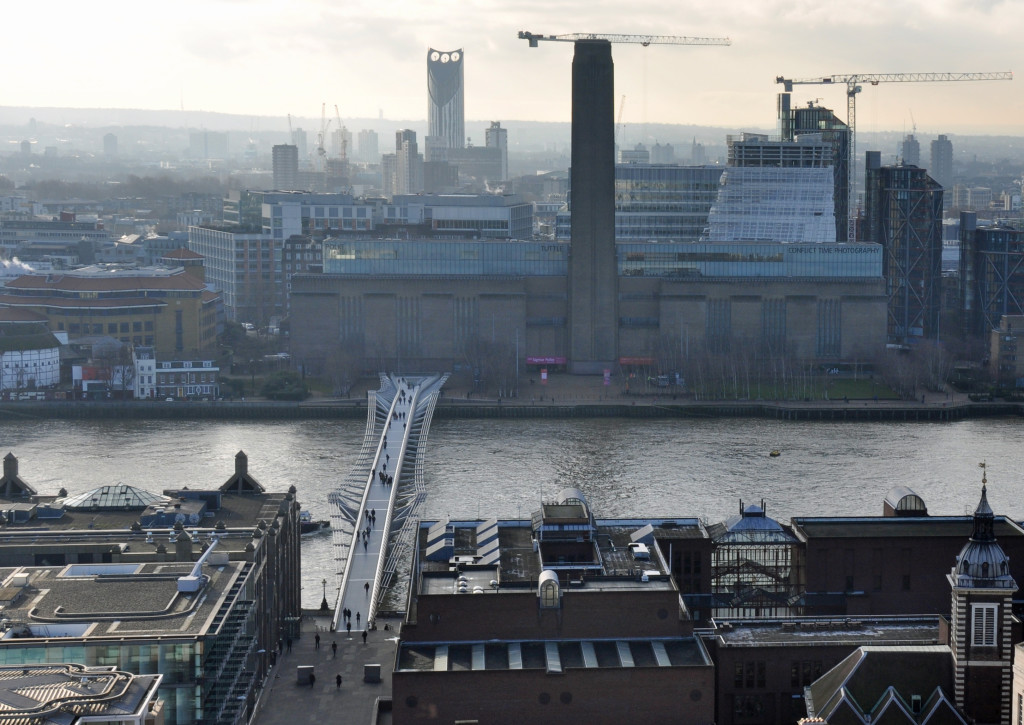 As always, some schools failed to deliver for the children in their care. Some of these schools were recently converted to “academies”, schools taken out of local government care and funded directly from central government, usually more generously though obviously some of the extra money is eaten up by the new management. They were often run by private organisations, occasionally church or other faith organisations. There are enough of these academies around to assess their performance and “surprise, surprise” some succeed and some fail. There seems to be little academic benefit to changing school status. So there is no obvious reason to insist on a move towards academies, other than an idealogical preference to manage education privately. That this move also works to centralise control, taking authority away from local government is rather perverse given the traditional Conservative view that government should be kept as small as possible. It’s also strange given the apparent lack of accountability or even ownership of the issues surrounding Academies in the Uk (This is what happens when you try to hold an academy school to account… good luck parents) The government seems intent on branding academies as private school-like, which is nonsense. New academies have slightly more money allocated to them than their everyday state peers but nothing like the money full private schools charge.
As always, some schools failed to deliver for the children in their care. Some of these schools were recently converted to “academies”, schools taken out of local government care and funded directly from central government, usually more generously though obviously some of the extra money is eaten up by the new management. They were often run by private organisations, occasionally church or other faith organisations. There are enough of these academies around to assess their performance and “surprise, surprise” some succeed and some fail. There seems to be little academic benefit to changing school status. So there is no obvious reason to insist on a move towards academies, other than an idealogical preference to manage education privately. That this move also works to centralise control, taking authority away from local government is rather perverse given the traditional Conservative view that government should be kept as small as possible. It’s also strange given the apparent lack of accountability or even ownership of the issues surrounding Academies in the Uk (This is what happens when you try to hold an academy school to account… good luck parents) The government seems intent on branding academies as private school-like, which is nonsense. New academies have slightly more money allocated to them than their everyday state peers but nothing like the money full private schools charge. 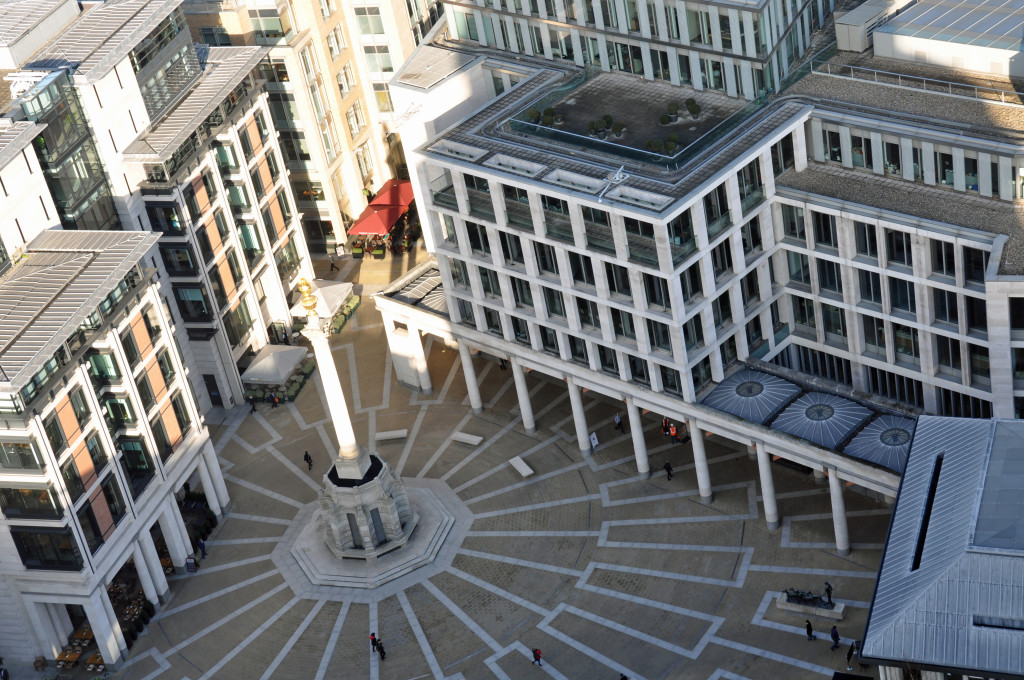 Both of my girls attend private schools. There are a number of things we get for our money. The schools are selective not just on money (£15,000 a year per child, minimum and more if you have a boy) but also on gender (girls only) and academic performance. Kids must sit a couple of exams to get into the school and only the top x% will be accepted. In addition during their time at the school, kids who are clearly not succeeding academically can be asked to leave. It can be brutal if you end up with a child in the wrong school. Ultimately though, if it works you end up with kids with a similar learning style (girls and boys do have very different learning styles and attitudes) working in a class with kids of very similar academic abilities. They all have parents who are motivated on their child’s behalf who will take an interest in their performance, attend all of the school meetings and at least try to motivate their kids to do as well as they can. It makes the life of the teacher easier. The facilities are also obviously much better because they have much more money spent on them. Great facilities make a difference for science, for learning languages, for theatre, art and sports. It’s a lot easier to teach Chemistry if the bunsen burners work. Kids who can afford to travel to Barcelona are a lot more motivated to learn Spanish.
Both of my girls attend private schools. There are a number of things we get for our money. The schools are selective not just on money (£15,000 a year per child, minimum and more if you have a boy) but also on gender (girls only) and academic performance. Kids must sit a couple of exams to get into the school and only the top x% will be accepted. In addition during their time at the school, kids who are clearly not succeeding academically can be asked to leave. It can be brutal if you end up with a child in the wrong school. Ultimately though, if it works you end up with kids with a similar learning style (girls and boys do have very different learning styles and attitudes) working in a class with kids of very similar academic abilities. They all have parents who are motivated on their child’s behalf who will take an interest in their performance, attend all of the school meetings and at least try to motivate their kids to do as well as they can. It makes the life of the teacher easier. The facilities are also obviously much better because they have much more money spent on them. Great facilities make a difference for science, for learning languages, for theatre, art and sports. It’s a lot easier to teach Chemistry if the bunsen burners work. Kids who can afford to travel to Barcelona are a lot more motivated to learn Spanish.  Academies will not be selective on either gender or academic ability. They will receive maybe £6,000 per pupil if they’re lucky, just £4,000 if they’re not (School funding is a ‘postcode lottery’, head teachers warn …) As now, they will have mixed ability classes of girls and boys which are more difficult to teach, balancing the needs of the less and most able without losing the group in the middle, balancing the rowdy and needy with the studious and self-effacing. They will be teaching kids from a whole range of socio-economic backgrounds. Whilst my kids come across girls who have too much money and not enough parental attention (think drugs and self-harming) they don’t come across kids sent to school hungry. The life of a teacher in a mixed ability co-ed school is harder, possibly more rewarding emotionally and intellectually, but harder.
Academies will not be selective on either gender or academic ability. They will receive maybe £6,000 per pupil if they’re lucky, just £4,000 if they’re not (School funding is a ‘postcode lottery’, head teachers warn …) As now, they will have mixed ability classes of girls and boys which are more difficult to teach, balancing the needs of the less and most able without losing the group in the middle, balancing the rowdy and needy with the studious and self-effacing. They will be teaching kids from a whole range of socio-economic backgrounds. Whilst my kids come across girls who have too much money and not enough parental attention (think drugs and self-harming) they don’t come across kids sent to school hungry. The life of a teacher in a mixed ability co-ed school is harder, possibly more rewarding emotionally and intellectually, but harder.
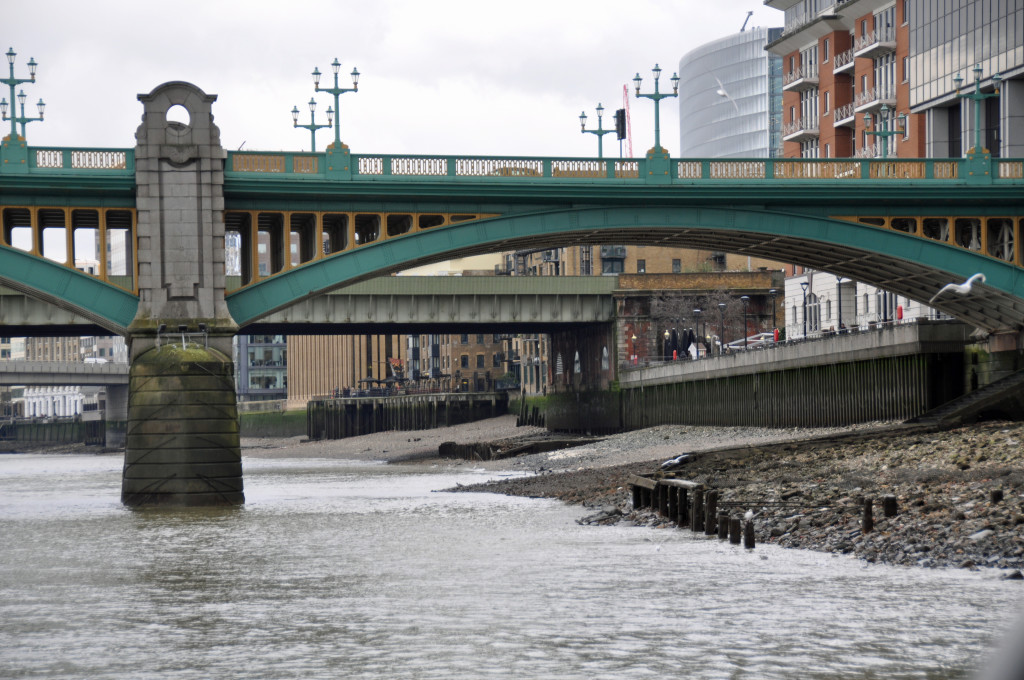
One thing that does surprise perhaps is what you don’t get for your money in a private UK school. The standard of teachers is pretty similar, state and private, perhaps obvious given that they all come from the same training background and benefit from really strong unions. My kids went to state primary schools (5-11) and now private secondary schools (12-18). In both systems they have had excellent, mediocre and rubbish teachers. They have had inspirational teachers and outright bigots. Talking to friends in similar situations, shelling out tens of thousands of pounds or going to the local school free (apart from taxes) the story is pretty similar. Everyone has a crap teacher story to tell. It is almost impossible to get rid of a teacher in the UK. One of my extended family was a teacher. He wasn’t very good at the job. He was warned that his teaching failed to meet the required standard in a school inspection. It took four years for him to be removed from his job. He was initially given one year to turn himself around. He didn’t. At the next inspection, he was given a detailed list of things that needed to change. At the end of a year, it turned out he had failed to change so after just two years of rubbish teaching he was given a detailed plan of what was needed, to be checked monthly with his headteacher. After a third year it was decided that through incompetence or stubbornness he had failed to follow through on the plan and should be dismissed. He then went to the Union who helped him challenge the plan he’d been given and the support he’d been provided with as inadequate – it was all the fault of the school.
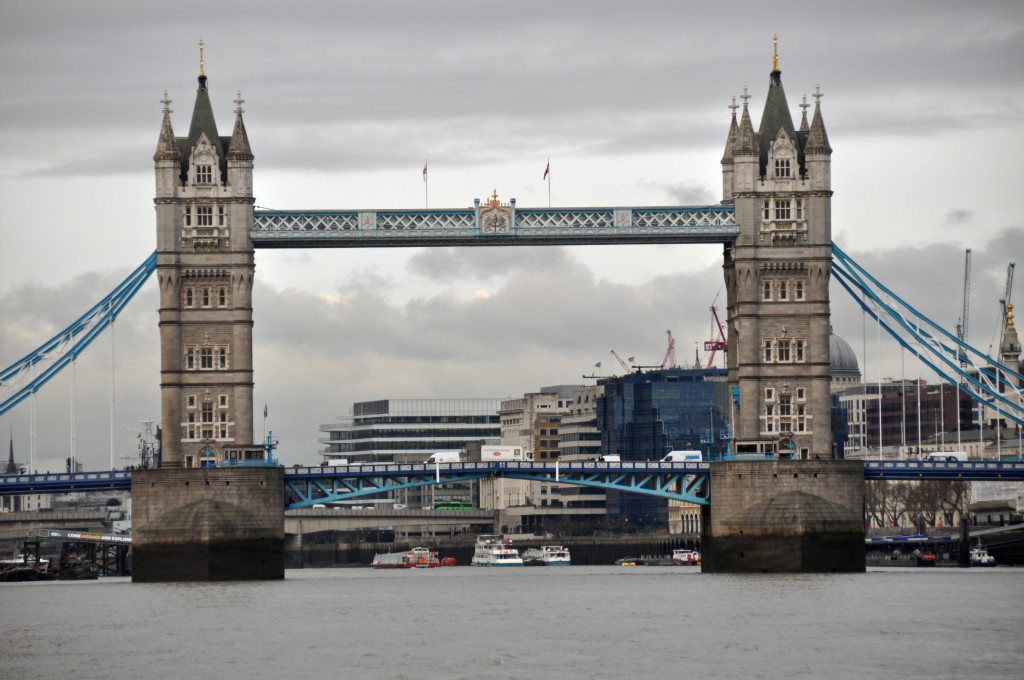
In the end and after another year, he decided to go voluntarily and with a “good reference from the school” in other words, able to pick up a job with another unsuspecting school, to go through the whole process again. He felt himself to be the victim of unreasonable bureaucracy. Certainly he was still very aggrieved when telling the story at the family Christmas Party. My heart went out to the kids he’d been teaching. So I have lots of sympathy for the teachers being dragged down some idealogical driven path for no good reason. I have endless sympathy for the teachers who have to suffer the constant interference of every government who can’t quite bring themselves to leave things alone, governments who need to be seen to be doing something even if they can’t quite articulate why.

But I have absolutely no sympathy for the idea often expressed at the Union AGM that we should simply “trust teachers to do their job”. Teaching is one of the very few jobs left in the UK which are effectively jobs for life. They don’t get paid very well in salary terms but have excellent holidays and a truly remarkable generous pension scheme. Schools have been made accountable with regular inspections and annual reports publicly available. It’s not clear to me that individual teachers are anything like as accountable. It’s not clear that teachers should be trusted to do their job. I’d like to know that they can do their job, and to know that if they can’t, they’ll be removed from that job straight away.
March 31: Mind the Gap
A new study has been published which proves something we already know. Time after time when complaining about the pay gap, I am told it is women’s fault for making poor choices, poor choices in education, in career choice and ultimately parenting choices. Women earn less than men, I am told, because they choose “soft” subjects at school which are not worth as much intellectually or academically as the harder choices that boys make.

Having made poor academic choices, they then choose softer, easier careers. Once established in careers, they choose to have children which somehow automatically puts them on a second, slower track, if not directly by moving part-time then indirectly because of the way they are perceived. The study shows that as women take over or move into an area in business or academia, that area becomes devalued, pay rates fall. Women make rational choices. Sometimes that rational choice involves choosing a career that more readily allows for them to become parents, such as teaching even though they know there’s a salary penalty for making such choices. Very occasionally men make the same choice. We each of us rarely make free, independent choices. When choosing subjects at school, girls at single-sex schools are much more likely to choose STEM (Science, Technology, Engineering, Maths) subjects. Even at co-ed schools girls outperform boys in all of these subjects except Maths (just 1% variance) but they still fail to continue to study these subjects past the age of 16. All of those male scientists, techies, engineers and mathematicians aren’t the best of the field. They’re not successful because they’ve made better choices. They’re successful because girls who perform better have been discouraged from competing. We don’t have the best scientists or engineers, we have the best available male scientists or engineers. Ruling out 50% of the population makes the system anything but meritocratic. Women outperform men in education. In gender neutral i.e. gender blind job applications, women outperform men in their first job applications. It is only when confronted with a choice between a man and a woman, even where the man is less qualified, that men start to outperform women.

There is an unofficial yet very obvious quota system in operation that reserves jobs for men, and pays them more because they have dicks. When and where we start to address that inequality, where for example women start to move into a career occupation in large numbers, the value of that job is reduced. We pay women less money because society values women less. Which is pretty shit really.
In or Out
What way will the UK vote?
Will we stay in or vote to leave?
April
Diet III
As a woman of a certain age, every year I am asked to take blood tests by my doctor. The main focus for the tests is my cholesterol level. Last time it was tested, it turns out that I have very high cholesterol, high good cholesterol and high bad cholesterol. My blood pressure was brilliant. Apparently all of that tennis really has been good for my heart. Because of the great blood pressure and my age, my doctor said that I didn’t need to be put onto statins. Yet. What she didn’t say was that statins are actually counter indicated for a woman of my age and blood pressure. They would actually do me more harm than good. She strongly implied that statins were inevitable. “My time would come…” And then she sat me down to discuss diet.  She told me explicitly to cut out all saturated fat and cholesterol rich food (such as eggs) from my diet, to check any processed food carefully. I should abandon full fat milk. Butter was the spawn of the devil. Cheese was demonic. God help me when I mentioned cheese sauce! And then we kind of ran out of foodstuffs to vilify, because basically what else is there in a vegetarian diet to complain about when it comes to saturated fat? I strongly object to classifying food as good and bad. For me, ascribing moral imperatives to foodstuffs is nonsense. Food is food, nothing more or less. Some foods taste better to me than others but essentially everything and anything in moderation is fine. But even aside from this personal dislike, her basic science was wrong. Not misguided. Wrong. And there is a history of totally crap science when it comes to heart disease, saturated fat, cholesterol etc.
She told me explicitly to cut out all saturated fat and cholesterol rich food (such as eggs) from my diet, to check any processed food carefully. I should abandon full fat milk. Butter was the spawn of the devil. Cheese was demonic. God help me when I mentioned cheese sauce! And then we kind of ran out of foodstuffs to vilify, because basically what else is there in a vegetarian diet to complain about when it comes to saturated fat? I strongly object to classifying food as good and bad. For me, ascribing moral imperatives to foodstuffs is nonsense. Food is food, nothing more or less. Some foods taste better to me than others but essentially everything and anything in moderation is fine. But even aside from this personal dislike, her basic science was wrong. Not misguided. Wrong. And there is a history of totally crap science when it comes to heart disease, saturated fat, cholesterol etc.  The link between cholesterol and heart disease was first made when a study found cholesterol in the arteries of men who had suffered heart attacks. As a result, public health authorities advised people to avoid cholesterol rich food such as eggs. There has never been any science to suggest that cholesterol rich foods increase cholesterol levels in human bodies. In fact, biochemists have conclusively proved that the more cholesterol you eat, the less you liver will produce. Repeated attempts to prove a correlation between dietary cholesterol and blood cholesterol have failed. yet in 2014, a study sponsored by Credit Suisse found that 54% of US doctors, just like mine here in the UK, still believe that high cholesterol foods such as eggs will raise their patients blood cholesterol. Since dietary cholesterol doesn’t increase blood cholesterol, scientists have sought to prove that saturated fats act to increase blood cholesterol and are bad for us. The original study often referred to as evidence dates back to the Seven Countries Study published in 1970, looking at the diets, lifestyle and health of 12,770 middle aged men in Italy, Greece, Yugoslavia, Finland, Netherlands, Japan and the US.
The link between cholesterol and heart disease was first made when a study found cholesterol in the arteries of men who had suffered heart attacks. As a result, public health authorities advised people to avoid cholesterol rich food such as eggs. There has never been any science to suggest that cholesterol rich foods increase cholesterol levels in human bodies. In fact, biochemists have conclusively proved that the more cholesterol you eat, the less you liver will produce. Repeated attempts to prove a correlation between dietary cholesterol and blood cholesterol have failed. yet in 2014, a study sponsored by Credit Suisse found that 54% of US doctors, just like mine here in the UK, still believe that high cholesterol foods such as eggs will raise their patients blood cholesterol. Since dietary cholesterol doesn’t increase blood cholesterol, scientists have sought to prove that saturated fats act to increase blood cholesterol and are bad for us. The original study often referred to as evidence dates back to the Seven Countries Study published in 1970, looking at the diets, lifestyle and health of 12,770 middle aged men in Italy, Greece, Yugoslavia, Finland, Netherlands, Japan and the US.  There are sizeable holes in the evidence, primarily related to the sample. There is no objective basis of the countries chosen. Why choose seven European countries and exclude both Germany and France, countries with much higher consumption rates of saturated fat and also much lower rates of heart disease? Much later the Study’s lead Italian researcher went back over the data and found that the food most closely correlated to heart disease was in fact sugar, not saturated fat. By then it was too late : the orthodoxy that saturated fat is bad for you was firmly established, and as demonstrated by this year’s advice from my doctor, remains in place. The other big hole in the original study is gender. In the UK the Women’s Health Initiative was commissioned to close the gender gap in evidence.Whilst a low fat diet has frequently been recommended for women, and countless examples of adverts pushing low-fat food can be found on any evening tv schedule, populated by slim attractive women, there is absolutely no evidence to suggest low fat diets bring any benefits.
There are sizeable holes in the evidence, primarily related to the sample. There is no objective basis of the countries chosen. Why choose seven European countries and exclude both Germany and France, countries with much higher consumption rates of saturated fat and also much lower rates of heart disease? Much later the Study’s lead Italian researcher went back over the data and found that the food most closely correlated to heart disease was in fact sugar, not saturated fat. By then it was too late : the orthodoxy that saturated fat is bad for you was firmly established, and as demonstrated by this year’s advice from my doctor, remains in place. The other big hole in the original study is gender. In the UK the Women’s Health Initiative was commissioned to close the gender gap in evidence.Whilst a low fat diet has frequently been recommended for women, and countless examples of adverts pushing low-fat food can be found on any evening tv schedule, populated by slim attractive women, there is absolutely no evidence to suggest low fat diets bring any benefits.  The study found that women on a low fat diet were no more or less likely to develop cancer or heart disease. In 2008, researchers from Oxford University conducting a Europe wide study of the causes of heart disease found an inverse relationship between saturated fat and heart disease. France, the country with the highest rate of saturated fat consumption also has the lowest rates of heart disease. In the same year the UN’s Food and Agriculture presented and analysis of all studies stating that there is “no probable or convincing evidence” that a diet rich in dietary fat causes either heart disease or cancer. In 2010 the American Society for Nutrition stated that “there is no significant evidence for concluding that dietary saturated fat is associated with CHD or CVD” (coronary heart disease or cardiovascular disease). So I’m going to keep on eating eggs, full fat milk, butter, cheese and cheese sauce. I’m also going to keep on playing tennis and generally enjoying my life. I’m going to challenge my doctor when we next have the statins conversation. For some people, these medications are life-savers but they are not without side-effects, not without a downside.
The study found that women on a low fat diet were no more or less likely to develop cancer or heart disease. In 2008, researchers from Oxford University conducting a Europe wide study of the causes of heart disease found an inverse relationship between saturated fat and heart disease. France, the country with the highest rate of saturated fat consumption also has the lowest rates of heart disease. In the same year the UN’s Food and Agriculture presented and analysis of all studies stating that there is “no probable or convincing evidence” that a diet rich in dietary fat causes either heart disease or cancer. In 2010 the American Society for Nutrition stated that “there is no significant evidence for concluding that dietary saturated fat is associated with CHD or CVD” (coronary heart disease or cardiovascular disease). So I’m going to keep on eating eggs, full fat milk, butter, cheese and cheese sauce. I’m also going to keep on playing tennis and generally enjoying my life. I’m going to challenge my doctor when we next have the statins conversation. For some people, these medications are life-savers but they are not without side-effects, not without a downside.
Better In
David Cameron called a referendum on Britain’s membership of the European Union for June 23rd, promising to campaign hard to stay in. What began as a gambit to hold together his divided Tory party is turning into a close contest and possibly creating divisions within his party that may take a generation to heal. Betting markets put the odds that Britons opt to leave at two-to-one; some polls suggest the voters are evenly split; several cabinet ministers are campaigning for Brexit. For those who believe in free trade and freedom of movement, the benefits to Britain of its membership of the EU have never been in much doubt. What more sceptical sorts must now recognise is that Brexit would also weaken Europe and the West. A vote to leave would damage the British economy, certainly in the short term and probably in the long run. It would put Britain’s security at risk, when threats from terrorists and foreign powers are at their most severe in years.

And far from reclaiming sovereignty, Britons would be forgoing clout, by giving up membership of a powerful club whose actions they can influence better from within than without. Brexit would also deal a heavy blow to Europe, a continent already on the ropes. It would uncouple the world’s fifth-largest economy from its biggest market, and unmoor the fifth-largest defence spender from its allies. Poorer, less secure and disunited, the new EU would be weaker; the West, reliant on the balancing forces of America and Europe, would be enfeebled, too.
Dreams, meet reality.
The Brexit case is that Britain is held back by Europe: unshackled, it could soar as an open economy that continued to trade with the EU and all round the world. That is possible in theory, but as the Economist magazine briefing explains, it is not how things would work in practice. At a minimum, the EU would allow full access to its single market only in return for adherence to rules that Eurosceptics are keen to jettison. If Norway and Switzerland (whose arrangements with the EU many Brexiters idolise) are a guide, the union would also demand the free movement of people and a big payment to its budget before allowing unfettered access to the market. Worse, the EU would have a strong incentive to impose a harsh settlement to discourage other countries from leaving. The Brexit camp’s claim that Europe needs Britain more than the other way round is fanciful: the EU takes almost half Britain’s exports, whereas Britain takes less than 10% of the EU’s; and the British trade deficit is mostly with the Germans and Spanish, not with the other 25 countries that would have to agree on a new trade deal.  To some Eurosceptics these hardships would be worth it if they meant reclaiming “sovereignty” from Europe, whose bureaucrats and judges interfere with everything from bankers’ bonuses to working-time limits. Yet the gain would be in large part illusory. In a globalised world, power is necessarily pooled and traded: Britain gives up sovereignty in exchange for clout through its memberships of NATO, the IMF and countless other power-sharing, rule-setting institutions. Signing up to treaties on trade, nuclear power or the environment involves submitting to regulations set jointly with foreigners, in return for greater gains. Britain outside the EU would be on the sidelines: notionally independent from, but in fact still constrained by, rules it would have no role in formulating. It would be a purer but rather powerless sort of sovereignty. One exception is immigration, the area over which many Eurosceptics most long for control. Half of Britain’s migrants come from the EU, and there is little the government can do to stop them. If Britain left the union, it could. But doing so would have a double cost. Gaining the right to stop immigration from the EU would almost certainly mean losing full access to the single market. And reducing the numbers of immigrants would hurt Britain’s businesses and public services, which rely on French bankers, Bulgarian builders and Italian doctors.
To some Eurosceptics these hardships would be worth it if they meant reclaiming “sovereignty” from Europe, whose bureaucrats and judges interfere with everything from bankers’ bonuses to working-time limits. Yet the gain would be in large part illusory. In a globalised world, power is necessarily pooled and traded: Britain gives up sovereignty in exchange for clout through its memberships of NATO, the IMF and countless other power-sharing, rule-setting institutions. Signing up to treaties on trade, nuclear power or the environment involves submitting to regulations set jointly with foreigners, in return for greater gains. Britain outside the EU would be on the sidelines: notionally independent from, but in fact still constrained by, rules it would have no role in formulating. It would be a purer but rather powerless sort of sovereignty. One exception is immigration, the area over which many Eurosceptics most long for control. Half of Britain’s migrants come from the EU, and there is little the government can do to stop them. If Britain left the union, it could. But doing so would have a double cost. Gaining the right to stop immigration from the EU would almost certainly mean losing full access to the single market. And reducing the numbers of immigrants would hurt Britain’s businesses and public services, which rely on French bankers, Bulgarian builders and Italian doctors.
As the race heats up and any number of significant commentators from Barack Obama through to Christine Lagarde at the IMF, catalogue the price of leaving the EU, the argument is brought back time and time again to immigration. It seems that for die-hard Brexit campaigners, it really is worth paying the price to keep “them” out.
Scotland, more Europhile than England, is again agitating for a divorce; if Britain decides to leave Europe, then the Scots may at last have a point. Brexit could also dangerously unsettle Northern Ireland, where the peace process over two decades has depended on the fact that both Ireland and Britain are members of the EU. The Irish government is among the most vocal foreign supporters of the campaign for Britain to stay in.
Ireland is not the only country that would suffer. European leaders know Brexit would weaken a club already in deep trouble over such issues as migration and the euro crisis. And Europe would be poorer without Britain’s voice: more dominated by Germany; and, surely, less liberal, more protectionist and more inward-looking. Europe’s links to America would become more tenuous. Above all, the loss of its biggest military power and most significant foreign-policy actor would seriously weaken the EU in the world. The EU has become an increasingly important part of the West’s foreign and security policy, whether it concerns a nuclear deal with Iran, the threat of Islamist terrorism or the imposition of sanctions against Russia. Without Britain, it would be harder for the EU to pull its global weight—a big loss to the West in a troubled neighbourhood, from Russia through Syria to north Africa. It is little wonder that Russia’s Vladimir Putin is keen on Brexit—and that America’s Barack Obama is not. It would be shortsighted for Eurosceptics to be indifferent to this. A weakened Europe would be unambiguously bad for Britain, whose geography, unlike its politics, is fixed. All of the problems, the undoubted issues to be dealt with both within and without the EU will be there whether the UK is in or out. Leaving will make our problems worse. Nobody loves the EU. It is too distant and too bureaucratic but like democracy, membership of the EU is better by far than any of the alternatives the Brexit campaigners have put forward. 
Old Age
A recent newspaper article suggested that my daughters, now in the late teens, are likely to live to be 105 which has to be a good thing. And then it added that in order to fund this longline, they would likely have to work until they were 80 years old. My neighbours retired when he hit 55 years old. They’d bought a house in France and were keen to enjoy the good life. That was around ten years ago, and although their income took a hit when bond yields fell, they’re still managing to split their year between London and the South of France, visiting the children who live around the world and generally having a very jolly time. They may not live to be 105, but they’ll probably have a longer retirement and certainly a more prosperous one than my girls can look forward to having.
For defined-benefit schemes, there is an explicit bet that the employer will still be around several decades later: quite a gamble. So governments in both Britain and America have set up insurance schemes designed to protect workers against the risk that their companies go bust. These bodies, Britain’s Pension Protection Fund (PPF) and America’s Pension Benefit Guaranty Corporation (PBGC), are funded by levies on employers. Now that Tata Steel’s loss-making British operations are up for sale, the chances are that the company’s pension fund will end up in the PPF’s clutches before too long. Because the scheme is a legacy of the old nationalised British Steel, it is huge, relative to the existing business: its assets are almost £14 billion compared with annual turnover of just £8.1 billion at Tata Steel’s European operations. 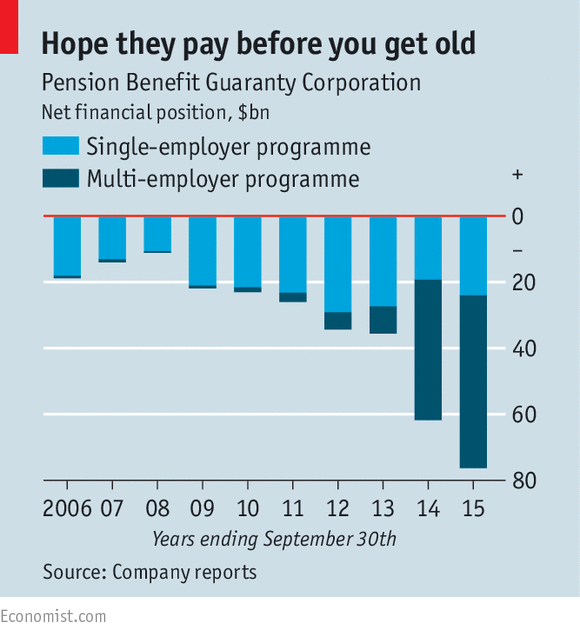
In cash terms, the company was paying just under £800,000 a month or £9.5m a year to deal with the shortfall. That didn’t cover the cash cost of pensions and other benefits which were £19.6m in the latest year. Nor did investment income (£5m in the year to end-March 2015) cover the shortfall. Of course, the big problem is not the mismatch between money in (contributions and investment income) and money out (benefits) over a single year but over a long period of years. And BHS’s pensions scheme has faced the same problem as other schemes; first, people are living longer and second, bond yields have fallen, increasing the cost of paying out a given sum. The acid test is this: what would it cost BHS to offload the pension fund to an insurance company? The answer is going to be around £571m because insurance companies use a low discount rate when taking on a scheme.

The good news is that the PPF is pretty well funded (with a surplus of around £3.6 billion) so even though the BHS pension is woefully inadequate the PPF will be able to absorb both it and the British Steel scheme. The existing BHS pensioners will continue to be paid (with some limits on future increases) while workers who are yet to retire will get 90% of what they are expecting. While that is a pretty good guarantee, it is worth remembering these are not well-paid people; the average pension in payment (based on 6,774 retirees and a £13.9m annual bill) is only a little over £2,000 a year. Any cut to that will hurt people.

Worried
EUROPE and the National Health Service are rising up the list of issues that particularly concern British voters, according to an opinion poll from Ipsos MORI commissioned by the Economist. Although immigration still comes top of the list, the NHS is fast closing on it and could yet overtake it. This reflects not just the junior doctors’ strike over seven-day working but broader concerns about NHS funding and lengthening waiting times in hospitals and GP surgeries. Worry over terrorism, voters’ fourth-most pressing concern in the chart, goes up and down depending mostly on news of big terrorist outrages, the latest example being the Brussels bombings on March 22nd.
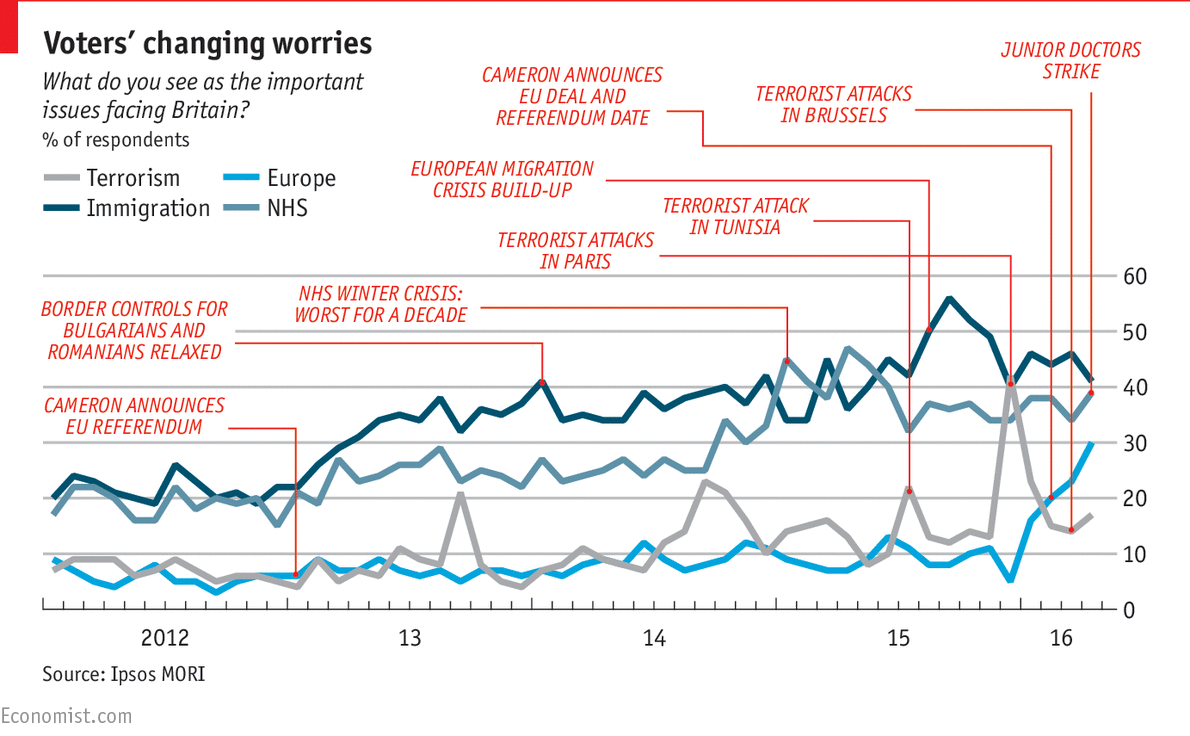
Real World
Clearly my family is privileged but sometimes the scale of the privilege is difficult to understand.
When I grew up, I knew people who didn’t have enough food to eat, who only had one set of clothes, no warm coat for the Winter and shoes with holes in the sole. My children are so distant from that reality that I wonder how they will ever understand the reality of poverty in this country.
May
Alone
The inquest into the deaths at Hillsborough has just come to an end and concluded that 96 people, men, women and children, were unlawfully killed. Aside from the initial mistake that led to the deaths, the following cover-up and denial by the police, the attempt to shift blame onto the victims with outright lies and deceptions is most horrifying. Not all of the police failed. One article in the Guardian describes the actions of Russell Greaves, an off-duty detective constable who tried desperately to revive one victim, Sarah Hicks aged 19. She had been brought out of the crush next to her sister Vicki,15. Their father, Trevor, went with Vicki in an ambulance believing that another ambulance would arrive for his other girl. It never arrived. They carried her to a nearby gymnasium. Eventually medical staff told Greaves that she was dead. Greaves recalled closing Sarah’s eyes. At the end of the evidence Greaves gave to the inquest he asked to be allowed to read out a statement. Overcome by emotion he read “Just mere words cannot comfort Trevor or Jenni Hicks, or remove their sense of loss, pain and utter devastation,” he said. “But I would like to take this opportunity to say to them that I did my very best for Sarah in the circumstances. I could not have done more. For the time I was with Sarah, Sarah was with someone who cared. Sarah was not alone”. Dear Lord, hear my prayer. You have brought me through dark times, blessed me with so much, most of all my daughters. Lord, keep my children safe. Let them know that whatever assails them, wherever they find themselves, they are not alone. Dear Lord hear my prayer. Keep my babies safe. If they find themselves in the darkness, Lord let them know that You are with them, Your arms are around them, holding them. Dear Lord hear my prayer. Help my girls to walk in your Light, to live good lives, honest and kind. And at the end of the day, when darkness falls, dearest Lord, gather them up and bring them home.
Smoke
My father started to smoke when he was a young child, around thirteen. By the time I knew him, he was smoking thirty cigarettes a day and had done so for many years. His first action in the morning was to make a cup of tea and light a cigarette, when possible sitting outside and watching the birds come to the bird feeder hanging on the apple tree. When he came home from work for the last time, after a nervous breakdown suffered at work, he was clearly not well. He worked as a marine engineer onboard cargo ships run out of the middle east.the “episode” was clearly a mental breakdown and was never discussed. Aside from leading to the breakdown of his marriage, conveniently during my A Level exams (not), this abrupt return home also led to a diagnosis of emphysema. Every morning when he woke up, the first ten minutes vertical were spent coughing. Eventually when he’d made his way to the kitchen, still be coughing, he’d put on the kettle. Any discarded tissues were gruesome with blood and phlegm.

He lived for more than ten years, unable to move about quickly, coughing up blood and guts, always reaching for the next cigarette. His generation had been sold on the idea of cigarettes as healthy, sophisticated accessories to a happy life. They were sold a lie. Sometimes I’ve been asked whether I ever tried smoking, whether I ever fancied trying a cigarette. Sometimes people suggest that one can’t criticise or comment on something that you haven’t tried as if that were ever a great reason for trying something so highly addictive and life threatening. I was never tempted. Smoking didn’t kill my father. He lived nearly fifteen horrendous years, struggling to breathe, struggling to move about and living an incredibly limited life. He never thought of quitting. It was beyond him. Lung cancer is quick, horrendous but quick. Given a choice between a miserable, painful three to six month decline and death versus one dragged out over more than a decade which would you choose?

The problem for me has never been that smoking cigarettes might kill me, but rather the kind of lingering half-life it might lead towards. And all of this was meaningless to my daughters who, like the young the world over, just cannot comprehend that they too might die one day. The thing that struck home most quickly to my girls was the fact that smoking is strongly associated with premature incontinence. All of that coughing losses the muscles involved in bladder control. Smoke one cigarette too many and you too will end up peeing yourself in public. Smoke and you will almost certainly end up wearing an adult nappy (diaper).
Anti-Semitism
There is a huge political row brewing in the political left relating to anti-semitism. One of the party leaders closest political friends and allies, a former London mayor, Ken Livingstone, went onto the tv to defend a labour MP accused of antisemitism and in the process suggested that Hitler was a Zionist.
Then there was a heated fracas on the stairs of Westminster, in front of TV cameras where another labour MP John Mann took Mr Livingstone to task. And Mr Livingstone refuses to apologise for any of it.
Because clearly his words shouldn’t have upset anyone, should they ? Yes. Yes. YES. YES Mr Livingstone’s basic position was that we shouldn’t conflate anti-zionism with anti-semitism, that being against the state of Israel is not the same as being anti-Jewish. Possibly. It is possible to criticise the policies of Israel without criticising or seeming to threaten or abuse Jews in general. It can be a fraught conversation, somewhat in the same way as discussing slavery with African-Americans can be fraught, or maybe in the way discussing rape with the husband of a rape victim is difficult. Sometimes discussions are difficult and debates are contentious. I have never come across a Jew who conflated or confused anti-semitism with anti-zionism. Never. I have often come across non-Jewish people who claimed to be anti-zionists who were in fact anti-semitic. I’ve spent more than ten years debating and arguing with my friend W, a near-90 German jew who escaped just as the borders began to close. Most of his family did not escape. Almost all of his wife’s Lithuanian family did not escape. I’ve attended bar and bat mitzvahs where the child describes visiting the place his grandparents were brought up. One girl talked of walking along the street with her grandmother who described the broken windows of Kristallnacht. Of course many of the children are missing grandparents.

And throughout these conversations with my friend, who loves a great discussion, I have never been accused of anti-semitism. With other friends and acquaintances, I may be told that Israel’s actions are necessary or justified. people often disagree with me, and it’s not difficult to understand why Jewish people might feel more anxious about safety. Despite many disagreements, despite often heated exchanges and disagreements, I have never been accused of anti-semitism by a Jewish person. To be clear on this, I have never met a Jewish person who conflated anti-semitism with anti-Zionism. I have also never seen an example where a person has claimed to be falsely accused of anti-semitism because of anti-zionism that has held true when examined. Comparing Jewish people to Hitler or to Nazis is offensive. Comparing the Zionists who set up the state of Israel in order to escape mass-murder and genocide, to the person responsible for that atrocity is so unbelievably offensive that words fail me. Comparing the actions of Israel to Nazis and the holocaust is offensive. They are not equivalent. No matter how much you may deplore the treatment of Palestinians by Israel, it is not the equivalent of Hitler rounding up all of the Jews in Europe and marching them into gas chambers. It just isn’t. Use a different analogy.  If you don’t understand how truly offensive comparing Jews with Nazis must be, then try think of it as it might apply to you and your life. Try imagining a person that you know comparing something in their life to the most traumatic event you have ever experienced. Try to imagine say, someone whose cat has just died saying to you “Yes, it’s just like when you discovered your wife had terminal cancer. Just like that. So upsetting. I don’t know how I’ll cope.” This tired old trope of “I’m not anti-semitic but…” was repeated at a supper party this week. Along with a shake of the head and a “When will they stop going on about it…” If my grandparents has been walked into a gas chamber, believe me that I would still be going on about it. I would still be traumatised. I would still look at my neighbours and wonder if their indifference might one day translate into them giving me up to the authorities and claiming my property as their own. I am struck by one more part of the discussion. What gives us the right to tell Jews what constitutes anti-semitism? How do we have the gall to tell Jews what they should or should not find offensive, to tell them that they need to put up with this nonsense? In no other social or ethnic group do we deny the right of the victims to define for themselves what they find offensive.
If you don’t understand how truly offensive comparing Jews with Nazis must be, then try think of it as it might apply to you and your life. Try imagining a person that you know comparing something in their life to the most traumatic event you have ever experienced. Try to imagine say, someone whose cat has just died saying to you “Yes, it’s just like when you discovered your wife had terminal cancer. Just like that. So upsetting. I don’t know how I’ll cope.” This tired old trope of “I’m not anti-semitic but…” was repeated at a supper party this week. Along with a shake of the head and a “When will they stop going on about it…” If my grandparents has been walked into a gas chamber, believe me that I would still be going on about it. I would still be traumatised. I would still look at my neighbours and wonder if their indifference might one day translate into them giving me up to the authorities and claiming my property as their own. I am struck by one more part of the discussion. What gives us the right to tell Jews what constitutes anti-semitism? How do we have the gall to tell Jews what they should or should not find offensive, to tell them that they need to put up with this nonsense? In no other social or ethnic group do we deny the right of the victims to define for themselves what they find offensive.

Most people have the capacity to be offended by a whole range of things, from the trivial to the truly appalling. The MP originally criticised for social media posts long before her election had suggested that the Jews of Israel should be deported to America, that the whole country should be relocated to the States, as if the deportation of Jews in huge numbers didn’t have holocaust overtones. Naz Shah recognised that her re-tweets were offensive, stood up and apologised to parliament and reached out to the Jewish community to make amends. Within a few months her suspension would have been over and the whole topic would have been forgotten. Enter, stage left Mr Livingstone. He has form on this subject, the most famous examples being a time he suggested two Jewish businessmen should “go back to where they come from” to accusing a Jewish newspaper reporter of being a “concentration camp guard”. And we have to recognise here that this is not a stupid man, but rather one who makes his living through politics, who understands that words have significance. Perhaps one mistake, as Ms Shah’s can be attributed to youth and inexperience. But Mr Livingstone is a repeat offender. He has kept on saying things that are offensive, when people who are offended explain time and time again that they are offended. To do so, must surely reflect an intent to offend, or at the very least, to show that he truly places no value on the people he keeps upsetting. By being repeatedly offensive towards the Jewish community, he appears to despise Jews. Why are we ourselves not offended by the words that are used to compare a mass murderer, the genocide of a people with the victims? Why do we still allow ourselves to be split into them and us? His words were anti-semitic. They were offensive to Jews. They were offensive to me and they should be offensive to anyone. If you’re not offended, shame on you. 
Hillsborough
Over supper at a friends, the background radio came into focus when the conversation lulled, and Hillsborough was mentioned. “Oh for goodness sake, it’s been 27 years. Can’t they find something else to talk about?” And I couldn’t find the words to answer. Imagine your 15 year old son had gone out with his friends one day. Imagine he died in an horrific incident, one that was entirely preventable. Your baby has died. Imagine that when you heard that your boy had died, you were told that it was his own fault. Imagine being told that your boy was responsible for his own death because he was drunk. You were told this and yet you know that he wasn’t drinking. You know that you are being told a lie. Imagine knowing that your child has died, that he’s being blamed for his own death and knowing that there must be another reason and no one will explain. How long would it take you to get over that fact that your child has died. When would you stop looking for answers and explanations? When would you just stop wanting to understand how your baby died? Was anyone with him at the end? Was he alone? 27 years doesn’t seem like a very long time to me.
Elections
Tomorrow we get to vote in our local elections, for councillors and for the mayor of London.
All discussion seems to be centred on the Labour versus Conservative contest between Sadiq Khan and Zac Goldsmith, which has been characterised by some nasty divisive campaigning along ethnic lines. I have some questions relating to Mr Khan, but not enough for me to be tempted to vote for anyone else. For me, the real voting question is what to do with my London Assembly vote. For the London Assembly I will have two votes, one for a local candidate and one for London-wide candidates. For the local representative it’s a choice between Labour and the Liberals but for my London-wide votes I’ve decided to go with the WEP (Woman’s Equality Party). On balance the local vote should probably go to the sitting candidate (labour) since the Tories are nipping at his heels (It’s always a man isn’t it?) Elections to the London Assembly use the Additional Member System (AMS). This is a way of electing candidates that is able to make sure that the number of seats a party wins is similar to the share of the vote it received. The first (local) set of seats are won in a traditional first-past-the-post election in local areas, where the candidate with more votes than anybody else wins. In London, there are 14 such contests, held in constituencies made up of two or more Local Councils. The second set of seats (11) are won at a ‘London-wide’ level using a system called ‘proportional representation’, and is designed to ensure that no party wins either far more or far fewer seats than the share of votes they received.
National Geographic
Looking through this year’s selection of photographs for the national Geographic’s competition I’m struck by the stunningly beautiful pictures, some of which are available to download. 

 And whilst the natural world is always astonishing, the cities section of the competition is surprisingly absorbing.
And whilst the natural world is always astonishing, the cities section of the competition is surprisingly absorbing. 
 Yet time and time again, I return to the almost abstract landscapes with minimal colour yet somehow so demanding of attention.
Yet time and time again, I return to the almost abstract landscapes with minimal colour yet somehow so demanding of attention.



Jobs for the Boys
Responding to a tweet about some pretty grim catcalling, I made reference to bullies who slither and slime out of the sewers. It was a sympathy tweet. One comment that came my way afterwards, was probably meant to irritate but instead just made me think.
Jan Sobieski: Speaking of sewers, it’s time to end sexism and inequality and demand 50% of sewer workers to be female! Now!
There has been a lot of discussion about the gender wage gap, the premium paid to men for turning up at work. Amongst the many reasons discussed, job segregation is often listed.
The gender pay gap within different groups of occupations varies considerably, and has changed in different ways for occupations between 1997 and 2013: The pay gap has consistently been high for those in the skilled trades (plumbers, electricians etc.) & for managers and directors. The pay gap has been consistently lower than the national average for professional & associate professional occupations. With increased attendance at universities, there have been more people (and proportionately more women) entering these occupational groups. But there are some trades which are disproportionately male (or female). One comment I’ve heard time and time again is that women want to “cherry pick” equality, that we would like to have access to the “good” jobs but don’t want the dirty jobs, such as mining, working on an oil rig or, as in this case, working down the sewers. It is a statement of ignorance. The richest woman in Australia, one of the richest women in the world, runs a mining company. I’m guessing she’s quite happy with her business sector. It also ignores the fact that most jobs in “dirty” industries are well paid. Given a choice between shovelling shit in a nursing home on a minimum wage and shovelling it in a sewer being paid four times as much, most women would choose the latter. Indeed, the CEO of Thames Tideway called for improvements in the gender parity building the new super sewer of London (Gender equality in construction: getting women to build London’s). Women in water, the companies most likely to manage our sewers, are under-represented but not absent (Women in Water – Institute of Water). I’m told there are some jobs which require a degree of physical strength that can be difficult (but not impossible) for the average woman to achieve but I struggle to think of them. My brother-in-law is a fireman. There aren’t that many women firefighters and the physical requirements of the job are extreme. But some women are excellent firefighters. Aside from fighting fires, what jobs do we still have that might exclude women on physical grounds? Coal mining is now largely mechanised, relying more on skilled engineering than brute strength. There was a recent call for the UK police force to undergo fitness tests because so many are unable to run fast enough to catch a villain, so let’s assume that physical strength isn’t going to rule many women out of a job. Clearly women have a role in the armed forces. In fact, looking through the list of male dominated jobs (US) it seems clear that physical strength is rarely a reason for the lack of women (Women in Male-Dominated Industries and Occupations | Catalyst).
| OCCUPATION | TOTAL EMPLOYEES | SHARE OF WOMEN EMPLOYEES |
|---|---|---|
| Brickmasons, Blockmasons, and Stonemasons | 122,000 | 0.1% |
| Drywall Installers, Ceiling Tile Installers, and Tapers | 129,000 | 0.3% |
| Mining Machine Operators | 65,000 | 0.3% |
| Bus and Truck Mechanics and Diesel Engine Specialists | 316,000 | 0.5% |
| Electronic Home Entertainment Equipment Installers and Repairers | 50,000 | 0.5% |
When was the last time a TV installer, a ceiling tile installer or bus mechanic required muscles? Whilst brickmasons, block masons and stone masons are physical professions, they are more reliant upon skill than brute force. So although the tweet was probably meant to be sarcastic, it actually hit upon a truth. Let’s call for gender parity working in the physical sewers. There’s money to be made in the physical sewers surrounding us. It’s the mental sewers inhabited by grown men catcalling children that create the problems.
TED
Nothing gives away your socio-economic class so clearly as your attitude to TEDTalks.
It has always struck me as beyond strange that America, with an explicit segregation of State and religion should be so very, very religious. It strikes me as beyond strange that such a very, very wealthy country with the most powerful military in the world should be so very very fearful of other countries and their place in the world. And it is this fear that seems to be becoming such a dominant feature of the politics of the place. When we are scared we become more accepting of authority, more conformist and more prejudiced. Fearful people do not want diversity. They want the familiar, the known, the people who look, sound and act just as them. When we are fearful, we tend to become more definitive, hectoring, bullying even. Donald Trump will be the Republican nominee for the US presidency and seems to have found a lucrative seam of fear to mine in his campaign. Shame. This TEDTalk by an American muslim, speaks to the experiences of a very visible muslim living America, post 9/11. It is not a talk about Islam. There is no detail about her faith. In many ways it could be the story of any minority living with the fears of the majority. And then you look at the comments. She does not speak about the details of her faith yet the comments section is immediately filled with criticism of that faith and of the koran. Not even good criticism. And to the guy who compares the koran unfavourably with the bible, as a book of just rules and regulations – read Leviticus, try to understand that those parables and stories that you revere are also directive, they are rules to live your life by not just pretty words to fall asleep with.

Last Supper
Over supper at a friend’s house, her husband tells me that sexism is over. It just isn’t an issue for our daughters in the way it was for his wife and me. Really? White middle class man tells me sexism is over – hurrah, it must be true. He must know best. But what about the everyday violence against women, what about the women murdered each week by their partners, the everyday rapes and assaults, the never-ending cat-calling on the street, the on-line harassment…”
“Oh that’s not sexism. That doesn’t count”. And aside from the gobsmacking annoyance of yet another white middle class man telling me what sexism means, what I’m allowed to find offensive and what I must allow as part of “everyday”irritations, if male violence against women isn’t sexist, isn’t the clearest, cleanest example of women being oppressed by men than what is?
Immigration
Immigration is such a hot topic that it’s easy to imagine that it’s a new issue.
There’s an excellent graphic showing immigration to the US, and aside tracking where people come from, it’s important to realise that relative to the existing population, immigration is now lower than it used to be.
Mayor
London has a new mayor, Sadiq Khan, the son of a bus driver born in London and who happens to be muslim.
It is the last fact that seems to have been picked up as most significant by media outside of the UK which is a bit weird because it’s probably the least significant reason for people voting here in London.
The UK is the most secular country in the world, yet London can seem relatively observant, at least if you live in my bit. Because we have such a high immigrant population (35% people living in London were born overseas) people tend to have brought their faith with them from the old country. Presumably it takes a while to settle into the religious apathy of the rest of the country.
The only person making a big deal about Mr Khan’s faith was his Tory opposition, who sent out some very dodgy, divide and conquer ethnic based leaflets. It backfired hugely with many traditional Conservative voters simply unable to stomach the campaign and presumably stayed home as a result. Sadiq Khan won by a large majority and immediately set about selling himself as a “broad church” candidate reaching out across political divides, largely in contrast to his unpopular party leader, Jeremy Corbyn (Sadiq Khan: Labour needs broader reach to win elections).
And in his first official day at work he can be found at the synagogue:
At Yom HaShoah commemorations today. So important to reflect, remember and educate about the 6 million Jewish lives lost in the Holocaust.
Outside of London, Labour had a dismal day. The best that could be said was that it hadn’t got any worse, and then it did. Labour used to dominate Scotland and has now been pushed into third place.
Ed Milliband, the previous Labour leader resigned after achieving minimal results. Corbin is claiming a success on a worse performance. Expectations were so very very low that he may even get away with it. His supporters have been trying to claim Khan’s win as Corbyn’s success but one of the very notable features of the mayoral campaign was the determined distance Khan placed between himself and Corbyn.
The one potential problem his campaign faced was dealing with the failure of the Corbyn team to deal quickly and effectively with accusations of anti-Semitism towards the latter part of the campaign. Since Khan fared less well in my part of London, which has the highest Jewish population in the country. I’m guessing it lost him votes. Pundits are already seeing Khan as a potential leader contender when Corbyn fails at the next election. failure seems certain.
Yet still we hear him talk about his mandate from his leadership election. It’s true that a whole load of new people joined the Labour Party when they made the membership cheap (£3) and the election process painfree on-line. For a traditional labour member, interested in a party that gets elected and can actually make a difference, it feels as if my party has been highjacked, and worse, by people who obviously couldn’t be arsed to turn out and vote in a real election.
Where were all of these bright and shiny new labour supporters, these Corbynites who brought him into office? Labour has lost Scotland to the SNP and it looks like we’re facing fifty years or more with a Tory government.
Depressing.
BREXIT
I am in favour of staying within the EU. Why?
Partly it’s because I feel the social benefits of living within a broader diverse community of nations. I am a Londoner, Welsh, British, European. belonging within Europe is part of my self-identity, not the most significant but still present.
Looking at an entrenched Conservative government, I feel comforted that the EU will act as a break on the more extreme and potentially punitive social polices that might be introduced, whether from the right of left. I subscribe to the ideals of the European Court of Human Rights. We all should.
But overwhelmingly, it is an economic argument that wins.
If the UK voted to leave the EU, it would almost certainly be a one way trip. We would break up the relationship with our near neighbours and principal economic partners forever.
Membership has brought significant benefits despite BREXIT campaigners claiming the opposite. The Centre for European Reform estimates that it has raised trade with EU members by 55% increasing productivity and output. Trade creation within the EU has far exceeded diversion of trade from elsewhere. Europe has also brought a strong competition policy and control of state aid.
These are important gains for Britain.
The fear of an increasingly integrated eurozone dictating to the UK is an obvious nonsense. A full political union of the eurozone looks quite unlikely. Its members also differ on many points, which opens up opportunities for UK influence. The UK has a clear and valuable role to play in influencing and determining the direction of the EU, and through that influence, in directing world trade and prosperity.
The UK should stay because leaving would increase the risk of a damaging eurozone break-up. If the eurozone broke up in a disorderly fashion, the damage to its closest partners such as the UK might be substantial. The UK would be damaged by a eurozone break-up, whether in the EU or not. Leaving would not shield the UK against such a disaster any more than Canada should leave the North American Free Trade Agreement, to avoid a US financial crisis. It makes no sense. If we stay in and disaster strikes, we can at least work to soften the blow, to mitigate the consequences.
It is plausible that the UK’s trade with the rest of the world will expand relative to trade with its slow-growing neighbours in Europe but reducing access to EU markets deliberately would make sense only if membership prevented the UK from trading with the rest of the world. Germany’s export performance demonstrates that it does not.

Membership of the EU helps the UK to open up world markets. The EU was a moving force in three successful global trade negotiations: the Kennedy, Tokyo and Uruguay rounds. It has increasingly turned towards preferential trade arrangements. The clout of the EU gives it far greater capacity to open up the markets of, say, China, India or the US than the UK could do on its own.
The clout of the EU gives it far greater capacity to open up markets than the UK can do on its own. Britain outside of the EU might well be able to negotiate more quickly, but not on such good terms.
It would not be easy to agree on alternatives to EU membership. Those recommending leaving have no agreed position. There are three plausible alternatives: full departure with trade regulated by the World Trade Organisation, which would cost the UK its preferential market access to the EU; Swiss-style membership of a trade arrangement in goods, with bilateral deals in other areas, which is complex and would require the UK to retain free movement of people; and Norwegian-style membership of the European Economic Area, giving full access (except for having to abide by rules of origin in trade in goods) but would deprive the UK of a say on regulations.
In all possible scenarios discussed, the more sovereignty the UK wishes to regain, the less preferential access it retains. This trade-off cannot be fudged.
It will not be easy for the UK to obtain whatever it wants from the EU. I once went through an amicable divorce. They’re not that amicable. My ex-partner was a decent man. We still ended up splitting our finances and arguing over houseplants.
Sometimes the BREXIT argument is buttressed by the statement that the rest of the EU runs a trade surplus with the UK, which it will be desperate to keep. This is naive.
Countries with big surpluses with the UK (notably Germany) would continue to sell their goods to the UK, even if Brexit led to a small rise in the import tariff. The share of UK trade done with the rest of the EU is also far greater than the share of EU trade done with the UK. Thus the idea that a departing UK could dictate terms is a fantasy.

Above, all those promoting departure ignore what the UK’s European partners think about the EU. The political elites, particularly of Germany and France, regard the preservation of an integrated Europe as their highest national interest. They will want to make clear to all that departure carries a heavy price. That price is likely to include attempts to drive euro-related financial markets out of London.
Divorce is never pretty.
It will not be easy to reach an agreement on controlling immigration. If the UK wanted to retain preferential access to EU markets it would be required to retain labour mobility. If, instead, it abandoned attempts to retain preferential access, it might then impose work permits on EU citizens. This would make the UK jobs market more inflexible, particularly for skilled people. As important, the EU would reciprocate. That would adversely affect British people working and living in the EU. I want my girls to be as free to work in Europe as I was. I want them to have the freedom to live and work throughout the EU.
Finally the uncertainty associated with leaving the EU is vast. I’m not great at uncertainty.
The uncertainties are pervasive: we do not know what the UK government negotiating an exit would want; we do not know what the rest of the EU would offer; we do not know how long negotiations would last; and we do not know what the outcome would be.

Those in favour of leaving offer fantasies of damage done by staying and of opportunity opened by departure. None of these arguments has much merit. The rational thing to do is for the UK to continue to enjoy its unique arrangement, which has brought it the advantages of membership with so few of the disadvantages.
Going Going Gone
Recently the front cover of Private Eye showed Barack Obama telling Prince George “…and then your little country left the EU and was never heard of again”.
It is possible.
The UK could vote leave if the forthcoming referendum, Scotland could leave and the UK and we would no longer be united. The most powerful entity in the world, before the United Kingdom, was the United Provinces, in what is now the Netherlands. It is possible to disappear and be largely forgotten, even if you had once been so very central.
What happens if we leave?
Some people have a fantasy that if we were to leave we would become ‘Great’ again. We could become the richest country in the world again. They blame the EU for why we are not ‘Great’. If we were to leave the EU, they believe, all of our problems would be made better. Instantly, like magic.
The UK is the most economically unequal state within Europe. Our problems are not short term, are not easy to fix. There is no magic wand. They are also not driven or created by the EU.
The UK is a country which has its own particular (and world famous) social class system, which is all about inequality, all about a fundamental lack of respect for citizens at the bottom of the pile. The social inequality we see widening within the UK was not created by the EU and will not be improved by leaving the EU.
Despite being riven with class-driven prejudice, we are a remarkably tolerant country in other ways, partly because we had an Empire. Even if you are pretty slow and bloody-minded, following several decades of people coming to the UK from that Empire and ‘you’ mixing with them – it’s quite hard to stay bigoted given time and decent interaction.
And why we have become so afraid of immigration – of them? Who made us so afraid? The UKIP vote has traditionally been higher in places like Doncaster where they have held their annual conference and where there are remarkably few immigrants. It’s a strange, strange country we live in where people are most afraid of the unknown, the people they don’t meet in the streets.
Like many people growing up in the 1970s, I remember the National Front. I know there are nasty people that should be feared. But why be scared of young, often highly skilled people coming into the country. Why worry about the many immigrants who help teach in the schools that my children go to, or help run the health service that I rely on. And we did not even have to pay to educate them.
I find it impossible to be scared of the fact that if we do decide to build 200,000 homes a year we can do it: because there are enough builders in Europe who’ll come and help do the building work. Some people see that as a threat and I really don’t understand why. I don’t understand why we’d much rather be in a position where we can’t build many houses because we won’t let skilled builders in from the mainland. Why would we choose to be poorer, financially as well as socially, just to avoid talking to our neighbours?
Although we mix ethnically in the UK, we don’t mix well in other ways, including geographically – and it was not the EU that grew the UK North-South divide. In other EU states, especially Germany, regional divides have narrowed. The north is unlikely to benefit from leaving the EU. Indeed much of the social redistribution of wealth from the EU can be found in poor northern towns and cities such as Hull.
If we leave the EU the north-south divide will become worse. Poorer parts of the UK such as Wales, Humberside and Cornwall will become even poorer without access to EU funds.
It’s important to recognise that we don’t pay very much to be in Europe, net. They pay more per head in Sweden, Denmark, the Netherlands, and Germany. The net cost of the UK staying in is dwarfed by the anticipated cost to trade if we leave.
If we leave the EU and refuse to accept the free movement of people as a cost of trading freely in Europe, then not only will trade fall (the most positive estimate I remember is a fall of 4%) but it will cost us directly in terms of our own production. Immigrants pay taxes. Immigrants help improve production and raise our GDP.
We will all be significantly poorer if we leave the EU.
And perhaps more important than UK immigration is our emigration, all the people born in Britain who’ve gone to live somewhere else.
On average they are not young, not highly skilled and not particularly innovative – the people who leave this country to live somewhere else have, in many cases, just stopped working and entered retirement. They go on to rely on someone else’s health service, and very conveniently they leave here and go and live in Malta, or Spain, or Crete, or Portugal, where there are nice golf courses, sea and sun – and someone else’s budget pays for much of their care.
We export thousands of our elderly every year to get free health care from another state’s health service. If we do vote to ‘Leave’ then some of those people who are outside of the country will begin to think that they should return – in case they don’t have enough money to pay for private healthcare there, which most of them don’t.
If we leave the EU we lose our rights in the EU. Our children will not find it as easy to work in Europe. Our pensioners will not find it so easy to retire in Europe. Life will become significantly more expensive for all of us if we leave the EU.
So we will probably get an influx of our expats, unto 500,000 or so. And the NHS can’t easily cope with that number of elderly people coming in, because our health and social services are already over-stretched.
The most annoying argument put forward by the BREXIT campaigners is that if we left we could put more money into the NHS, as if we can’t fund the NHS as much as we’d like to because we are paying so much money into Europe.
Our NHS is very efficient. It wins international awards constantly. But it also struggles to work well because we fund it so lowly. We do not fund it so lowly because we have to make some payments to the EU, but because we’ve chosen to fund it so lowly.
The Swiss spend twice as much per person on health. Norway 81% more. The Netherlands 59%, Germany 49%, Demark 41%, even France commits 27% higher spending on healthcare per person. We could spend more on health if we chose to tax more (as most other affluent EU countries choose) or we chose to spend less on other things such as defence. We choose to spend relatively little on health.
It is not the EU that makes us spend so little on our health care.
If we leave the EU, we will lose trade and revenue far in excess of the costs of membership. We will have less money to spend on everything, not just the NHS. Furthermore, the NHS is chronically understaffed with a shortage of skilled staff that is currently being met by recruiting nurses etc from countries such as Spain and Portugal. Without immigration the NHS will fall apart even if 500,000 elderly ex-pats don’t decide to return back to Blighty.
But it’s not just in health that the UK fails to spend. We are abysmally low public spenders on housing policy. We have the highest rents and highest housing costs for the lowest quality housing in the whole of Western Europe. We have the least rights for our tenants. None of this was imposed by Brussels on us.
Education is another area we do poorly in and where the EU is not to blame and where membership of the EU could help in future. If you look at data on ability at maths up to age 24, the UK – along with the US – is pretty bad at basic mathematics. All the small countries clustered around Japan in the graph of affluent states shown below are European countries.
The UK and USA lag behind on maths ability. Source: Statistics Views
The only affluent country worse in terms of educational outcomes than the UK is the US. But we are lucky, numerate Europeans from the mainland can come here and teach our children. The same applies to problem-solving and literacy, where young adults in the UK also rank so low on the European league table.
But BREXITEERS chose not to learn from the EU, let alone to look across at places like Japan.
Our politicians fly off to America thinking that is where to go to learn. BREXIT campaigners stress the value of the trans-atlantic relationship constantly, despite warnings from the US president that the UK has little value to America outside of the EU.
We have little to learn from the US. America is worse than the UK in terms of education. It is abysmal on housing; America is particularly abysmal on health. It is the only affluent state in the world that makes our record on social progress look good, including on public spending. We are heading towards being the lowest public spending country in Europe. Other countries within the EU choose to spend far more of their money collectively – like Denmark, France, and Sweden, and Italy, and Norway – and get better health outcomes and better education and better housing outcomes. They get more innovation. People produce more scientific papers. More patents, more entrepreneurs.
The UK is not a typical country in Europe. In many ways we’re a poorly performing affluent country buoyed up by an influx of skilled neighbours. We need the skills and resources our neighbours supply and resent them for it.
There’s a lot wrong in Europe. It’s easy to complain about the EU as a rich boy’s club or undemocratic, though the privileged white men sitting in Westminster are hardly representative of the UK population as a whole. We look at our problems and want to blame someone else.
Unfortunately our problems are largely of our own making.
Stress
So my youngest girl has just had her first GCSE test today. Over the next month she’ll work herself through ten (or so) subjects with varying degrees of stoicism and panic.
Just before she finishes, her sister starts with her A levels. At least she’s not trying for any resits so just has the three subjects to worry about.
And both girls seem calm. Both seem to have worked consistently and deliberately over the last year. If they succeed then it will obviously be great but if there’s a problem, we’ll just have to cope. They’ve done their best and there’s nothing more to be done.
We try to walk the line between interest and obsession. We’ve never bribed our girls with pocket money or rewards. We’ve never tried to tell them how to work. Their father occasionally tells me he’s worried (about computer games, about disinterested teachers, whatever). He does this in an entirely passive-aggressive fashion knowing that I just can’t leave a worry to sit and fester.
One time, he told me he was disappointed with the grade of my oldest girl’s physics mock exam. When we talked about it, both my daughter and I ended up crying – horrid.
If it goes wrong, then it goes wrong, If they fail the exams we’ll pick ourselves up and have another go.
I have no idea how my youngest child will perform. With the oldest, I was pretty confident that she’d be okay. With the youngest, I’m hoping that she’ll do as well as her mock exams suggested but I’m not at all confident. And if it all goes tits up and her school reject her for A levels then let’s hope th local college still has places.
Tearful
Most men when they die, will have have prostrate cancer. Mostly it won’t be the thing that causes them to die but there are always exceptions.
I went to a funeral yesterday.
He was a lovely man, kind, sharp, mischievous. He was successful enough in life, but his greatest success, very obvious yesterday, was his family.
His wife, now widow, has taught my girls art informally, an hour or so a week for more than ten years. She met him, working in London in an advertising company, a dapper man about town. She was recovering from an abusive marriage. He was coping as a lone father, his first wife having killed herself after a long struggle with bi-polar disorder.
They had three children together, two boys the image of their dad and a girl, tiny as their mother. And each child went on to find themselves a happy life, a partner and children of their own.
It was a funeral full of children and grandchildren. The eulogy was from the family, full of a sense of the man, a sense of love lost.
We chatted after my girl’s last art lesson. He was tired but full of life, getting ready for his last therapy session on the following day. We thought we had months of time left. I remember the smiles, the hugs.
He gave great hugs, strong and warm.
The next day he sat in the garden for hours with an old friend, chatting and catching up. After treatment for the first time he was frail, needing a wheelchair to get him home. And then, disconcerted by the endless burping rather than anything more serious, they called their doctor to come and review the medicine mix.
On the way to the bathroom, he folded up on himself, like a flower suddenly top heavy. The GP arrived and an ambulance was called. He asked whether they had a DNR (Do Not Resuscitate) but of course no one had expected this to happen so the answer was no.
He tried and failed to bring him back.
And you might think that with a good age (he would have been 83 today) and a cancer diagnosis that his death wouldn’t be so surprising but somehow you’d be wrong.
He was still so full of life, so merry and busy in his life that I was and still am shocked by his loss.
Facts
A friend was bemoaning the lack of clear concise facts surrounding the forthcoming EU referendum. Truthfully the problem seems to be more one of too many, possibly conflicting, facts that are made daily with claims and counterclaims flying across the newspapers front pages.
The basic question seems to come down not so much as to fact, but rather priority.
The big issues relating to the EU can be listed easily.
- Economy
- Immigration
- Sovereignty
Most economists agree that the economic effect of voting to leave will be bad. There is some debate about how bad but almost everyone agrees that the economy will be worse outside of the EU.
This is essentially based around the idea that most countries trade most with their near-neighbours and excluding ourselves in any fashion from that business will cost us. It’s also based on the idea that countries trade more and better without barriers such as tariffs. Membership of the EU means trade without tariffs and leaving would put that at risk.
There have been alternative outcomes suggested by the BREXIT campaign. The assumptions that they make are firstly the saving of our net EU contribution. The UK net contribution is around €4.7bn more. relative to other countries in the EU, the UK is a rich country and the EU points out that although it spends less in the UK than the national contribution, the British economy gains much more from access to European markets and contracts. UK exports to the EU can be worth nearly €12bn a month alone.
It wouldn’t take very much disruption of UK-EU trade to dwarf any benefits saving. The BREXIT campaign assumes no interruption to business as usual because obviously it would be an “amicable divorce”. Most businesses, large, medium and small disagree. As a survivor, I have to say that amicable divorce isn’t really very amicable at all. Not life threatening, but definitely not something you’d wish on a friend.
Immigration is the main topic of conversation BREXIT campaigners wish to push forward. Net immigration is relatively new to the UK, essentially a feature only since the last tranche of EU expansion. There is a lot of nervousness in the UK about newcomers, even amongst my Jewish friends whose own families arrived around just a generation past.
There is a clear trade off to be made between the economy and immigration arguments. To have full and free access to the EU market, countries have to open up their own markets and that includes the full and free movement of people. This is true of countries such as Denmark and Switzerland which are often touted as models the UK outside of the EU might follow.
To avoid full and free movement of people, the UK would have to accept some curtailment of trade, essentially to trade as a WTO member only, with tariffs and trade barriers in place, notably for our financial services sector. The service sector dominates the UK economy, contributing around 78% of GDP; the financial services industry is particularly important and London is the world’s largest financial centre.
For someone like me, living in London a city where most people are born elsewhere, often a different country, immigration feels like a good thing. My life is made better because of the immigrants who have made their way here to work and live. But even for those people scared of immigration, they have to ask themselves whether or not keeping people out is worth screwing up the economy for the next 20-30 years.
It seems telling that young people are much less scared of immigration and much more concerned about the damage to the economy, and the loss of their own freedom to travel to work and live in other EU countries.
In many ways the argument around sovereignty is the strongest argument for leaving the EU and yet the least tangible for most people. Because the UK is one of the world’s most globalised economies, we are highly dependant upon our relationships with other countries. In 2014 the UK was the ninth-largest exporter in the world and the fifth-largest importer, and had the second largest stock of inward foreign direct investment and the second-largest stock of outward foreign direct investment.
In order to trade, we compromise with other countries and that inevitably involves sacrificing some sovereignty. Similarly, in order to keep ourselves safe in an increasingly dangerous world, we also agree to share risks and sacrifice sovereignty.
To be 100% in charge of our own destiny, the UK would have to remove itself from many international bodies and organisations, not just the EU, the WTO, NATO etc.
100% independent sovereignty look like North Korea: is this what we want?
Tax
63 million people live in the UK. It is one of the most densely populated places in the world with people living essentially urban or suburban lives all pushed up against each other. If you’ve ever wondered why the British say sorry all of the time, it’s because of all that metaphorical stepping on toes that a life lived close to others involves.
Around 5 million people in the UK pay higher rate tax.
Around 23 million people have income so low, that they pay no income tax at all though they still pay NI contributions, the tax that people forget about.
In 2016-17 the government expects to collect around £182 billion through income tax. The top 10% (people earning over £54,300) will receive one third of total income but pay almost 60% of our tax bill.
Because most people pay their tax through the PAYE system, where it’s deducted by the employer before being given to the individual, collection rates for income tax in the UK are relatively high.
The ‘tax gap’ is the difference between the amount of tax that should, in theory, be collected by HMRC, against what is actually collected. The tax gap for the UK in 2013/14 was £34 billion, or 6.4% of total income tax liabilities. Add in other forms of taxation (VAT, excise duty, corporation tax etc) and estimates of the tax gap for the UK add up to around 12%
Around the EU it is estimated that around Euro1trillion revenue is lost (Tax Research UK » The EU tax gap – new evidence shows there is €1 … )
And bizarrely when you look at the rates of tax gaps across European countries it becomes clear that there is no correlation between the rate of tax charged and the tendency to avoid paying your fair share. We don’t avoid tax because the rate is too high, else countries with very high tax rates would also have a very big tax gap.
People who don’t pay their taxes are demonstrating a fundamental contempt for the society that they are living within. They are placing themselves ahead of their neighbours, ahead of the elderly, the young, the people with genuine need.
So even though we are most definitely paying a lot of tax, definitely paying more into the system than we’re costing, that’s okay. We can afford to pay. One day we might not be so lucky.
Basket case
I know that I’m old because I’ve just spent a day putting bedding into my garden, in particular I’ve put together two hanging baskets.
I know that I’m not very old because my hanging baskets are always rubbish. Despite my 82 year old friend’s constant encouragement and only constructive criticism, I know that I’m a disappointment.
It isn’t the fault of the plants or even the planting. To be honest, what can go wrong with petunias. Using the trailing ones, big and blowsy with flowers, it shouldn’t even matter if I don’t layer them properly from the bottom of the baskets (I do).
The problem is the aftercare.
I am not old enough, not careful enough, not diligent enough to water daily, never mind to feed them weekly. I don’t think that I’ll ever be old enough.
The real problem is that I’m no longer young enough to write them off once they fail or even, to tell my very helpful and really lovely friend, that I’m conceding defeat. In my middle age, I seem to have acquired some very special but elderly friends and they’re too precious to disappoint.
Every week I visit W and sit to chat with him and his wife. She’s okay with me visiting. It’s a break in the day. But for her the real treat comes when one of my girls comes with me. Having taught them piano for more than 10 years, they’re the visitors that she really values. For W, it’s more about me, someone to talk politics, the absurdities of life and family.
I found them through their daughter-in-law, who had a boy at school with my youngest. Their relationship is fraught. She can’t quite understand how anyone would volunteer to sit with her in-laws for 10 minutes never mind an hour or so a week. I couldn’t have sat with my partner’s father or mother for more than five seconds without wanting to pull my hair out – what is it that makes family so peculiarly impossible?
Any time that I miss a week I wonder whether something horrible might happen, code for will one of them die. It isn’t the reason for going, but perhaps makes me more regular than when it was just music lessons. Their weekly outings consist of Friday dinner with their daughter and a round trip to Waitrose. I’m not a great conversationalist, but when I miss a visit, their week stretches with disappointment.
My flower arranging, hanging basket friend was made whilst working for the local church. Housewives and retirees managing building projects worth millions, all by accident and with no real test of competency. On the way to buy the bedding, she mentioned that her doctor had given her a three year prognosis.
Every month I drive my friend to the local hospital to receive injections into her eyeball (I know, bad enough for me to only as for an explanation once). The last thing we need to hear is that she’s likely to die, not because of some disease like cancer but because some moron has decided that given the “wear and tear” of old age, 85 sounds like a good number.
Why? What the fuck use is that other than to give a self-fulfilling life sentence?
And now I’m looking out at my hanging baskets wondering whether I’ll ever manage to keep them alive.
Lust
Why are we still so very scared of sex?
Simon Blackburn, a Cambridge professor, has written a book “lust” the third is a series to deal with the seven “deadly sins”. In his book he concludes that actually lust isn’t very sinful at all, on the understanding that the word is often defined as wicked without real reference to what it means eg. lust defined as a degrading passion.
If lust is merely an enthusiastic desire, for sex and pleasure for it’s own sake then our attitudes towards this desire can only be negative if we truly believe that sex should be purely reproductive, that pleasure has no worth in and of itself.
Mr Blackburn’s sympathies lie with the account of lust given by the philosopher Hobbes. The essence of Hobbes’s view is that the pleasure of lust is not only sensual but also a “delight of the mind”, because it consists of “two appetites together, to please, and to be pleased”. As Mr Blackburn puts it, lust involves a “pure mutuality”, a “joint symphony of pleasure and response”. It involves two people connecting together for mutual reward.
We live in an overpopulated, under-resourced world. Sex for “reproductive reasons only” is not now, and probably never has been commonplace. Sex for pleasure has driven humanity forwards, the search for connection, for meaning in our small lives. It is only when we conflate this creative. connective drive with the drive for power and dominion that anything sinful starts to appear.
Killing Fields
It is the nature of cats to hunt and kill. Every cat owner knows this. But since I am not close enough to my rural roots to feel comfortable breaking the back of a half dead mouse, nor can I easily watch the torture of a bird, or of frogs and toads, the question inevitably arises as to what happens next.
My cats work at different speeds. If it isn’t manically fast, think top trumps speedy mouse or even buzzing blue bottle, then the mackerel tabby is uninterested.

My calico girl is more interested in the swoops and swirls of flying birds, still quick but not so manic. She’s not averse to a mouse hunt but much too chilled out to expend too much energy.

The boy spent most of his first year bringing home herbaceous plants.

He is not speedy. He has no interest in speedy things. He is soft and daft as a brush.
Today he was sitting underneath the wisteria when a slow moving female blackbird perched just above him. He brought it down. It’s mate came flying down, singing loudly presumably in an attempt to distract him but to no avail. So being unwilling to watch him torture it, I splashed him about with water from the can, picked it up and walked it away to the top of a hedge.
Unfortunately when threatened they go to ground so back down it went to the bottom of the hedge, and back came the cats to stake it out.
I’m sat inside with three very grumpy cats periodically flicking at the closed cat flap and running riot. Maybe if I keep them in for the morning, the bird will either have recovered from it’s shock and disappeared, or it will have died, or another cat or for will come along and nab it.
If I were a good person, no doubt I would have checked it’s wings for damage and probably finding some would have broken the poor thing’s neck. Should have is obviously not the same as could have in my case.
It turns out that grumpy cats are much like grumpy teenagers. And cat parents like teenager parents have to pay for each and every one of their failings no matter how well intentioned.
Sunshine
Sitting in the sunshine after a couple of sets of tennis and the conversation moves around to the EU referendum.
“There are just too many immigrants. They’re putting too much stress on the system. Our hospitals are full of them.”
Now let’s step away from the fact that most of us living in the UK have an immigrant not too far back in our family history and the lady commenting was the child of Jewish refugees who arrived in the 1940s. Let’s step away from the sheer selfishness of denying people the right to enter this country that was granted to their own parents and ensured their survival. Let’s ignore the fact that they are not proposing that their surviving parents and grandparents should be excluded from this country and returned to the one they were born in.
Because clearly that would be unreasonable.
Let’s ignore the fact that more than 30% of Londoners are foreign born and that having raised a family here, I have never felt pushed to the back of any queue. Let’s ignore the very many benefits that the foreign born have brought to me and my family.
Let’s start with the fact that 26% of all NHS doctors are foreign born, that 12% of all NHS staff overall are foreign born (Figures show extent of NHS reliance on foreign nationals | Society …) The government’s point scheme means that none of these jobs could be filled with British born candidates. All of these jobs were first advertised locally. Does anyone really believe that foreign immigrants “take” jobs that belong to the British born. Surely immigrants come to this country to take jobs that we don’t want, at least not at a wage the employer is willing to pay.
Dr David Rosser, medical director of University hospitals Birmingham, one of England’s biggest trusts, said: “The NHS doesn’t have the number of doctors it needs. The shortage is real. We aren’t training enough doctors in this country, and so we are dependent on foreign-trained doctors. Doctors in more and more branches of medicine report shortages, especially in specialities such as A&E, where it’s tough work.”
The NHS is also increasingly short of nurses, prompting concern from medical leaders. “Here we are wholly reliant on our overseas staff. About a third of our nurses are from overseas. This situation isn’t ideal,” said Keith McNeil, chief executive of Addenbrooke’s hospital in Cambridge.
“There’s a fairly major shortage of homegrown nurses. Every week we are right down to the wire in terms of finding nurses to fill the rotas effectively. It really is a challenge.”
Nearly 20% of staff working in adult social care in the UK are foreign born. In London, this rises to nearly 60% of the adult social care workforce.(Moved to care: the impact of migration on the adult social care workforce). Working in care is unattractive to the British born. It is poorly paid, the hours are uncertain and conditions are stressful.
I plan to grow old. I don’t want my children to take sole responsibility for my care. I’d like to have help to live in my home for as long as possible and if I end up in a care home, I want it to be well-staffed. For someone like me, a positive belief in immigration is an investment in my future care plan.
Leave
If there is one issue most firmly tied to the Brexit debate, it is immigration. From Boris Johnson to Nigel Farage, supporters of the Leave campaigns have made it clear they want to use the UK’s exit from the UK as an opportunity to limit further immigration into the UK.
Michael Gove’s dithering on whether the UK would seek to continue its membership of the EU’s Single Market turned on this point. When he realised Single Market membership and limiting the number of EU migrants coming to the UK was not possible, he opted to ditch the Single Market.
The overwhelming impression given by Brexiteers is one of a gung-ho rejection of Britain as an open and cosmopolitan society.

Foreigners living in the UK experience the Leave campaigns as one long tirade against themselves. This has pushed many people flirting with a Brexit vote into the safer harbours of middle class cosmopolitanism: ‘Brexit, me? Of course not, I’m not a foreigner-hating little Englander’.
A recent poster by DiEM25, the self-declared ‘pro-democracy movement’ founded by ex-Greek finance minister Yanis Varoufakis, summed up this sentiment best: “If people like Rupert Murdoch, Nigel Farage, George Galloway, Nick Griffin and Marine Le Pen want Britain to leave the EU, where does that put you?”
For all of the associations made between Brexit and immigration, there is no intrinsic or necessary link between the two.
Brexit refers only to an exit from the EU and there are no specific policies of any kind tied to Brexit. What happens afterwards and how the UK chooses to manage its affairs in the light of an exit is up to the British government, which is ultimately answerable to its electorate.
The UK government could, for instance, choose to impose visa restrictions on non-UK EU nationals currently living in the UK. Romanians, Poles and Germans would have to face the hassle and cost of going through visa applications and regular renewals, of the kind experienced by US citizens currently living and working in the UK.
In response to that, other EU member states might decide to retaliate and impose their own visa restrictions on British nationals travelling or living in another EU member state. This is the kind of doomsday scenario regularly hauled out by the Remain campaigners and the one that makes foreigners living in the UK feel very uneasy about their future.
But the government could do something quite different.

Open borders does not mean no borders. It means managed borders, where the rules governing the movement of people in and out are based on a principle of openness. Those who chose to come to the UK and make their life here could be free to do so. However quixotic and alien this may sound to all those trumpeting an exit from the EU as way of closing our borders, the fact remains that Brexit is compatible with both open and closed borders.
Depending on how much it values trade with the EU, it may in fact end up with essentially the same commitment to the free movement of people that we currently enjoy. Both Denmark and Switzerland have opened up their countries to EU nationals in order to trade within the EU.
We could use the EU referendum debate as an opportunity to have a proper debate for the first time about whether we want the UK to be open to migration or not, and then base our laws on the outcome of that.
When faced with people planning to vote to leave, their overwhelming concern is immigration. When pushed, they mostly concede that not all immigration is bad, that they themselves have only had good experiences with the immigrants that they have come into contact with in their daily lives.
But yes, mostly when pushed further, they talk about “types” of immigrants and almost inevitably that comes down to the colour of their skin and their religion.

If we were to have an honest debate, we might end up with a more closed society hostile to immigrants. The argument for a more open immigration policy night be lost.
But it could also be won. And implementing an open border policy willingly, as an expression of democratic will rather than reluctantly as an obligation of Single Market membership, would make all the world of difference.
Madam Butterfly
And much of the same stereotyping still to be found in the UK.
Numbers
A very long time ago, I trained as an accountant. I worked checking other people’s numbers for as short a period as possible before going to work for a bank, and starting to make my own numbers add up. Unlike a great number of British people, I’d describe myself as numerate. I’m not so sure about my kids despite the maths GCSEs.
My daughter has just turned 18 and is looking forward to leaving home for university. We’ve been doing some maths, trying to work out whether or not we should take out a loan from the government to help fund the whole business. The tuition fees cost £9,000 per annum, accommodation is going to cost around £6,000 and then of course she needs some money to live on for 32 weeks out of the year.
Helpful university sites suggest that the whole business will cost around £22-25,000 each year for (presumably) 3 – 6 years.
Student finance used to be a no brainer. The loans were charged at a minimal rate such that it was almost worthwhile taking a turn on the money by putting into a savings account. But then the government decided to outsource.
My daughter will be charged RPI+3% on every pound she borrows. It is currently very difficult to find a savings account that would offer that amount. There is probably some cultural benefit to taking out a loan and joining her peers, but I’m not too happy loading debt onto my daughter when both her father and I enjoyed degrees for free.
We’ve applied for a loan to cover the first year’s fees. I’m not committed to borrowing a further £18,000. Her father isn’t committed to allocating any of his retirement fund to cover the cost. If his late mother’s house sells, then maybe his part of the inheritance will allow him to feel generous, else I’ll dig into my own funds.
At the same time, the government have set up a new type of savings account, designed for first time house buyers. My 18 year old daughter could save £3000 into an account each year for 4 years. As well as interest (currently 2-3%) the government will top up the account by £1000 for each year. So saving for 4 years she would put in £12,000. This would earn interest say £240 and the government would throw in £4,000 leaving her with £16,240 to put towards a housing deposit.
Or she could set up a “lifetime isa” or LISA, from April 2017. She could save up to £4,000 a year into the LISA either as a lump sum or by putting in cash when you can. At the end of the tax year the state adds a 25% bonus. So if she saves the full £4,000 she’ll have £5,000 at the end of the year, as well as interest earned.
The bonus is paid until you hit age 50, paid annually at the end of each tax year – once in your account it counts as your money. You’ll be paid interest on it too. The maximum bonus you could get is £32,000 (unless the rules change); to do that she’d need to open one ASAP and keep contributing the maximum £4,000 each year until you were 50.
The money has to used either towards a first home, worth under £450,000 or once you’ve over 60, towards retirement. Assuming it works like the established first time buyer accounts, she will be able to buy a house with her sister (or other) and benefit from two lots of government bonuses.
Once you have bought a property she can keep the account going and continue to get the government bonus on her savings.
Property in London is expensive and I can’t imagine much change from £450,000 for her first time home. Given that London enjoys the best jobs, and moreover that I really really want to get to know my grandchildren (please!) I’d like my girls to live locally which means helping them to buy. I could not afford to move to London to live now.
Even for the wealthy, living in London is going to be a stretch when it comes to the next generation. Makes me wonder what kind of city it will be in thirty years.
Competition
Like many insanely competitive people, I play games.
When I first stopped working, I took up tennis, partly to fill the hours, partly because having been an academic child, I’d always missed out on sport.
When a friend gave up work a couple of years ago, we took up bridge.
Living in London, there are clubs for both of these games and though obviously one is a physical and the other a mental game, they are surprisingly similar in many respects.
They both involve partnerships, pairs of people working together to win. You have to learn how your partner will play, what they will do under stress, whether they will dig in or buckle. You have to learn to be a good partner, to shade them from the stress they can’t deal with whilst letting them run with the stress they enjoy. And no one who plays any competitive game is totally averse to stress.
You have to trust your partner.
You have to learn that sometimes the opposition is just better and be able to lose with as much grace as you can win.
Women can be funny when they play competitively. For too many, the innate competitiveness of the situation is stressful in and of itself. They verbally procrastinate whilst whacking the ball straight at you. They deny the desire to win at all costs whilst giving parsimonious line calls.
Passive aggressive behaviour abounds at any ladies morning at the tennis club.
We all want to win. Sometimes we bury that desire deep down because we’re told it’s not feminine, it’s bad manners to compete.
Ultimately though, playing any competitive game helps to illuminate your character and that of people you play with.
I lack patience. I much prefer to win, than to simply not lose which means that I take risks. The mistakes that I regret the most, derive from caution. Playing a safe ball back on a tennis court. Sitting in part game when we could be pushing towards game in bridge.
It makes for quick games, fun but quick.
My bridge partner plays more of the hands. This happens because when push comes to shove, I trust her more than she trusts me. Even when I have opened the bidding and have clearly more points than she does, she will push to play in her preferred suit rather than mine. When she insists on her suit, I am more likely to let it lie with her.
When I have passed a round, she is more likely to insist on bidding past me. She does not trust my judgement as much as I trust hers. For all of that she is a kind and forgiving partner, saving her criticism for herself. Mostly.
My tennis partner has even less patience than me. She is quite likely to hit the ball out on the third or fourth shot, come what may. But again, she is kind, tolerant and forgiving of my mistakes. She hustles when I fail to put the ball away, digging us out from disaster time and time again.
I was told another lady had suggested she’d be a better partner for me in the team matches, or at least a worthy stand-in for the match that my partner can’t make. I would rather not play.
This woman went through the team, one by one, describing herself as the better player. None of the people picked for the team were better than her, some were apparently much worse.
Now to be fair, in a singles match she would probably beat one, maybe two, of these women. She has never beaten me at singles, nor my partner.
But doubles is quite a different game. It is much more about being a good partnership than being a brilliant player “plus one”. To play good doubles, you must play the pair. You need to split them up and get them out of position. You need to make the most of the space and find gaps for the ball. You need to trust that your partner will put the ball away when offered a chance, that they will be where you need them to be on the court.
A good doubles pair will beat two brilliant singles players. It helps if they want to play the same type of tennis, to play to win, or to play simply not to lose. This lady hates making mistakes. She counts every mistake that her partner makes and remembers them long after the game is over. She also remembers all of her own winning shots.
No one needs a partner to turn around after the first game in a match and tell you that your crap play lost the match. You do not need them to tell the opposition team that they were lucky, that they won because you had a crap day.
No one needs a partner who comes off court and tells all and sundry that they lost despite their own brilliant play because their partner was rubbish.
I have found the limits of my own insane competitiveness.
I would rather not play.
June
Too often the “issues” that I hear as reasons to leave the EU, turn out to be proxy issues. The problem might be real, but the cause seems to be largely home-grown.
I am told that immigrants are stealing British jobs but what on earth does that really mean?
No one is complaining about the very many highly educated Europeans coming to work within Financial Services. No one complains about the thousands of Europeans working in London banks or insurance companies.
Listening to interviews on the TV, it seems clear that people begrudge immigrants coming to work for low wages not because they’re taking jobs but rather that they’re driving down wages for everyone else, they’re working hard in fields and factories for a wage that the British born are unwilling to accept. It’s clearly true that immigrants do carry out much low paid work.
British employers exploit immigrants. They pay low wages and as a result, presumably either pocket the extra profits or pass them on as lower prices to people like you and me. 60% people working in adult care in London are immigrants, people doing a job that is stressful, poorly paid and with little worker protection. Paying for care for an elderly relative in London, will inevitably involve hiring an agency with immigrant staff to feed, wash and “care” for someone you love, just not well enough to wipe their bottom daily.
Surely this is an argument for the British government to set the minimum wage at a reasonable level and to enforcing proper working terms and conditions.
It is absolutely right and reasonable to complain about employers who are paying their employees slave wages. It is not the fault of immigration, so much as a failure of government to set minimum standards.
And it is of course worth noting that one of the arguments from the “leave” camp are based on throwing away many of the EU driven health and safety regulations around employment. Their arguments seem to assume that without EU worker protections to worry about, UK employers will be able to drive their costs down, to push wages as low as possible.
I am told that immigrants are coming to the UK are a drain on the NHS, taking resources away from the British born population.
It’s true that on the rare occasion I’ve had to take my kids to A&E, the waiting room seems full of a whole range of people, very few of them appearing stereotypically white-British. But that surely just reflects the demographics of living in a city where more than 35% of the population is foreign born.
If you ask people working in the NHS what the main problems are, the top of the list is always the ageing population, the lack of staff, the obesity epidemic and inadequate funding. Immigration does not appear to be a problem to people working in the NHS, perhaps because so many of them are in fact immigrants.
11% of all staff working in the NHS are not British born. The proportion of foreign nationals increases for professionally qualified clinical staff (14%) and even more so for doctors (26%), prompting the British Medical Association (BMA) to observe that without the contribution of non-British staff, “many NHS services would struggle to provide effective care to their patients”.
And yes of course we could be employing more British born health workers. It would require an investment in training and probably an increase in salaries to ensure staff retention. If we were willing to pay the increased taxes required, then perhaps we’d have less need for the immigrants that keep our health service functional.
I am told that it costs too much money to be part of the EU, in terms of direct EU contributions paid over and in terms of rules and regulations that businesses are obliged to follow. Truthfully I’m a little bit tired of how many times over the EU contribution has been redirected to worthy cost centres such as the NHS.
Today we were told that our fuel bills would all fall 15% if we were to leave because we could stop paying VAT. Aside from the fact that VAT on fuel is only 5%, it’s worth remembering that the VAT we pay, is paid to our own government. If the UK were to stope charging VAT, it would have rather a large revenue hole to fill.
We were told that the UK pays £17.8 billion to the EU, but of course that ignores both the EU rebate (around £5billion) and the EU contributions back to the UK, in the form of subsidies and grants of around £6 billion (farming, education, redevelopment etc).
Taking account of the money that comes back and the aid spending, Britain last year gave almost £6.5 billion to the EU that would otherwise not have been paid out if we were not members of the club. That’s a cost of almost £18 million a day. It sounds like a high number but is dwarfed by the amount of money we earn from selling into Europe (around £622million per day).
Despite the growth of non-EU economies, the EU remains the largest single market for the UK. Despite changes in the composition of the global economy, in 2014 the EU accounted for 44.6% of UK exports of goods and services, and 53.2% of UK imports of goods and services.
The UK exports tariff free, around £227 billion goods and services into the UK and we import tariff free around £288billion from the EU.
The net cost of being a member is around £6.5 billion. If we leave and tariffs may well be applied to imports and exports. A tariff of 3% on exports into the EU would more than outweigh the savings in membership fees, assuming that sales don’t fall as a result of the sudden price hike. And of course if we apply retaliatory tariffs to imports it will cost our consumers even more.
Given our proximity to Europe, it seems unlikely that any fall in trade will be offset with other foreign countries even if we can negotiate our own trade agreements easily and quickly. It costs more to sell to China than it does to sell to France, if only because of the shipping costs.
Avoiding the health and safety rules and regulations may lead to a flood of cheap goods from non EU countries such as toys from China, but do parents really want their kids playing with toys that may be cheaper because they’ve been made to lower safety standards. Do the consumers in our country want lower manufacturing standards, lower environmental standards, less protection from unfair dismissal at work etc.
Healthcare
I share my house with three cats. I would say that I own them, if it were not abundantly clear to every cat owner, that the relationship is entirely reciprocal. Ownership flows both ways.
Three cats is not a sensible option. We went looking for two, to keep each other company or at least occupied – cat friendship is a mysterious thing since the animals are not sociable or “pack” animals. We found a litter of three kittens, ginger, grey tabbies and a calico cat. Who would you choose to leave behind?

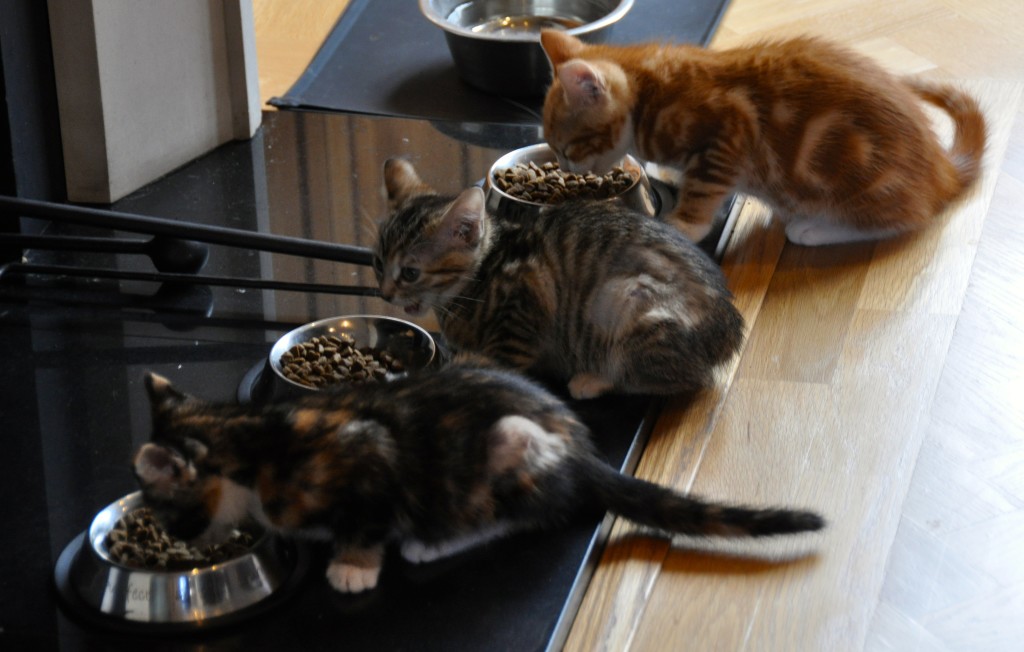
Then

Now
With three cats and a responsible attitude, there are three sets of immunisations each year. It cost close to £200 for this basic care this week, a lot of money. The first question when it comes to payment is always “Do you have insurance?” and our answer has always been “No”.
We are of course incredibly privileged and able to afford the often shocking costs of unexpected animal care. Despite a life threatening illness, caught in a cattery, and on-going health issues as a result, we probably saved money by self-insuring. Only the wealthy can save money in this fashion which strikes me as wrong.
We decided relatively early to check carefully any of the suggested medical interventions when visiting the vet. It isn’t so much that the vet’s are corrupt, but rather that they are used to the idea of someone else, the insurer third party, footing the bill and therefore a pet owner looking to max out their investment on each visit.
It must be like this for people in a system driven by human medical insurance like the States.
We refused permission to test for anything life threatening and untreatable, such as cancer. For such things, we would focus on treating symptoms, which is ultimately the only recourse anyway. I did not need to know the type of cancer my cats might die of, just that they weren’t in pain during the process.
And as it turned out, my two lovely ginger queens died aged 19, one with dementia related illness and the other one because her liver packed in. In human terms they were approaching 100. They died of old age.

The serious illness one of them suffered cost us around £5,000, much of that due to tests for things that could not be cured, costs avoided on every subsequent occasion.
Obviously insurance costs vary depending on the type of policy. The cheapest seems to be “Accident only” which I would never have been able to claim on for my first two cats. The cheapest quote would cost me £2.71 a month or £32.50 for the year but only for the first £1000 vet’s costs. It seems to me that a “survivable” accident, with surgery and care at a vet surgery is likely to cost more than this, so why bother? Accident care of unto £3,000 would cost me £3.40 per week or £40.80 each year for each cat. Over a 20 year lifetime, I would have paid out more than £1600 for a policy that I would never use.
Other policies are essentially time limited i.e. available for the year, likely to be repriced upwards as your cats get older and more likely to claim.
Presumably human medical insurance policies in the States are similarly calibrated. A&E departments exists and I believe that basic emergency care is free. There are large State sponsored policies for the elderly so it is in their most productive years that Americans must feel the healthcare burden. Losing a job means losing healthcare.
I was driven to JFK airport, New York, by a man whose teeth were rotting in his mouth – he couldn’t afford to pay to have them taken out. Welcome to the richest country in the world, where people can’t afford to keep their teeth – weird.

Basic maths and common sense suggest that the actuaries working for the insurance companies have calculated quite carefully what are the chances of them having to pay out. On average, they will take more money from premiums than they will pay out in vet fees. This is as true for cats in the UK as it is for people in the US.
With three cats it seems reasonable for us to continue to self insure. Thanks to the NHS I don’t have to worry about the healthcare costs of my kids, of my own as I grow older. Sharing healthcare costs across the nation means that everyone benefits, rich and poor.
Ofcourse, the everyday, normal costs of responsible cat ownership such as vaccinations cannot be avoided or covered by insurance. Neither is dental treatment, nor flea and worming treatments which sounds trivial but getting a cat’s teeth cleaned where I live could set me back £300 per treatment per cat. London prices – yay!
Vaccinations, flea and worm treatments and a dental every other year will set me back around £275 per cat per year – not cheap but worth paying.
When I went looking for kittens, I honestly expected them to be difficult to find. I thought that we might provide a good home for an older cat in need. Pet charities around the UK have been providing free of charge neutering of cats for at least 25 years and still there are people out there with fertile dogs. Why?

The mother of my cats (and her sister) were just 12 months old when she fell pregnant and both were abandoned at the Mayhew Shelter. My kittens were born and cared for at Mayhew for the first12 weeks and as a consequence have only had good treatment and care. They are the most friendly and relaxed cats that I’ve ever come across.
So we took the cats to the vets, their third visit, the two girls in a basket each and the boy in a harness, held close by the love of his life, my oldest daughter.
Only my lovely mackerel tabby behaved as a cat should. She was uncomfortable and uneasy. She put up with the examination, the staring into eyes and ears, the rummaging around, the squeezing of stomach and thermometer up her bottom.

She was not happy.
My calico girl purred throughout, squeaked a little with the thermometer and definitely wanted to take a good look around, but was essentially calm enough and polite enough to acknowledge a good stroke with a rumbly purr.
The boy rolled over and smiled. He sat himself on the scales and generally accepted the attention as his due. He is an extraordinarily relaxed boy, the most charming cat I’ve ever met. He is the love of my daughter’s life, her joy and sunshine.
For our family, they are worth the costs involved. It is a privilege to share our lives and our home with such warm and wonderful creatures. The local mice ( a frog this morning) might not agree.

Stranger
London is a strange place to live, even, maybe especially, by British standards.
It is incredibly densely populated, with a population density of 5,177 inhabitants per square kilometre (13,410/sq mi) and many of that population are foreign born (more than 36%). It is impossible to live in London and not meet and interact with people from different backgrounds, different countries, different religions, different attitudes.
Expressing outright racist, sexist or homophobic views is unacceptable in most settings. Social disapproval most often takes the form of silent shunning.

We rub up against each other at work, on the streets, in our schools and our homes. It becomes impossible to believe that “these” people are substantially different to “those” people. people living in London are the most likely to vote “in” within the EU referendum.
Amongst the many differences that criss-cross England, London can make a fair claim to being the UK’s undiscovered country.
It has its own regional government in the form of the Greater London Authority and a Mayor. Its population will within a few years pass the 10 million mark, and if measured by metro area already stands at more than 14 million. That population is also Britain’s most diverse, with 36.7% Londoners born outside the UK, a figure that is growing.
Such a fast growing and diverse population makes for distinct social and welfare challenges in terms of housing, policing, the environment and transport. Its economy – 22.6% of all of the UK’s generated by 13.1% of the population – races ahead of the rest of the UK and makes it one of the richest places in Europe and the world. As the BBC’s Robert Peston once argued when explaining why UKIP doesn’t do well in London:
Much of the rest of the UK sees globalisation and its manifestations – such as immigration – as disempowering, impoverishing and a threat. Whereas for Londoners, globalisation is an economic competition they are apparently winning.
London then is an English, British, European and international metropolis, booming thanks to its central place in the UK, Europe and the world.
It is a funny place to live.
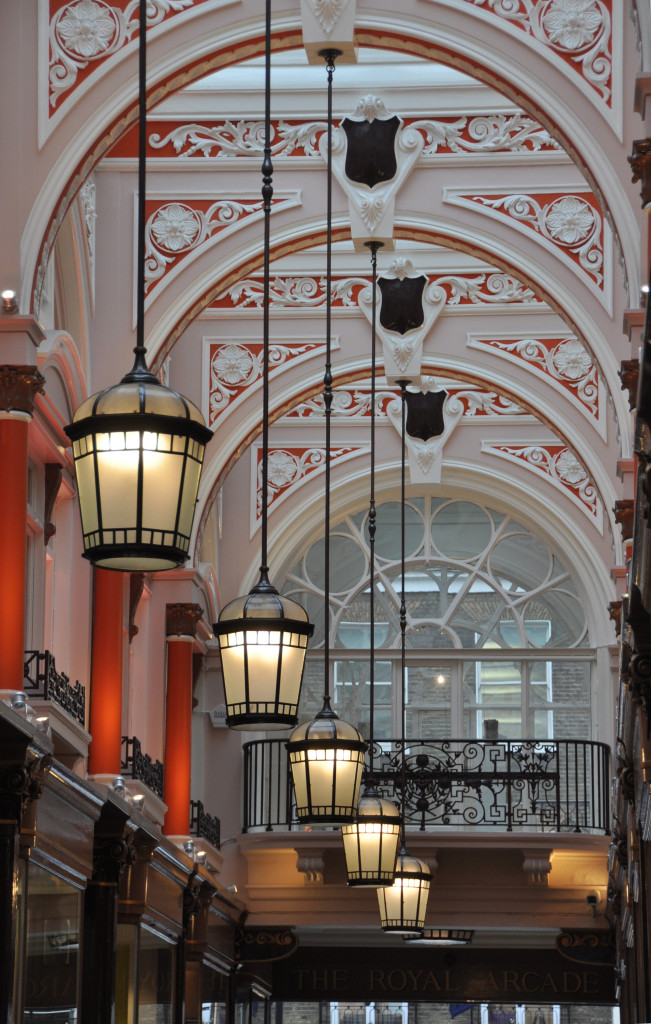
Londoners don’t do religion. It may be that they attend church, temple, mosque etc but they’re unlikely to talk about it, certainly won’t proselytise. The UK is a post-Christian, essentially secular country. Religion is a private matter. The Sabbath is the day we tend to go shopping. There are a lot of very good shops in London.
In many ways, Londoners don’t really do family either. Since most of us were born outside of London, we’ve left our family to come and work here. For a few years I worked in the Netherlands, where people always seemed to have some kind of family celebration or obligation to attend, whether parents siblings, aunts, uncles, cousins. Living in London, you may occasionally come across someone visiting relatives out of town, but it won’t take up more than a couple of weekends in a year. Some of us find the absence of family a relief, but the lack of a support network can make us vulnerable also.
Work has become increasingly “American”. Hours vary from long to impossible, lunch is often skipped and very little patience is shown for home-life or caring obligations between 8am and 8pm. We do have statutory holiday, usually 4 weeks, sometimes more, and there are legal entitlements to maternity and paternity leave. Most people take the former, not so many the latter. We also have public “bank” holidays which inevitably see lots of rain.
Women are responsible for organising most proper social events. Men will basically congregate around a bar, maybe a sports event and not much else. Therefore if you’re a foreign bloke, the quickest way to a decent social life, is a British girlfriend. If that doesn’t work for you, join a club any club other than religious.

Because we all live on top of each other, we are fiercely territorial about our property and neighbourhoods. Like many cities, accommodation is cramped and expensive so a lot of socialising happens in public places, cafes, bars, public parks etc.
Socialising tends to be open ended. A party or get-together will have a start time (generally arrive 10 – 15 minutes later) but no end time (except children’s parties which should run for 2-3 hours). The most horrifying thing that I came across in America was the idea that an adult party would specify an end-time ie. 7-9pm and that people really would leave at the specified time, even if they were enjoying themselves. I still cannot quite cope with the idea that grown-ups would deliberately organise multiple social events for a single evening. Who has the energy for that? Or that hosts would not be willing to see the evening stretch out if it was going well.
Of course, it’s all predicated on a system of social keys and cues. If it’s a lunch, dinner or supper party, then you should bring a bottle of wine, eat at least something of everything and compliment the cook, offer to leave around about the first post-meal coffee and, only if strongly encouraged, stay until the second coffee. If it’s a drunken party of strangers, then you should leave when the music stops, unless you hate it, in which case leave immediately.
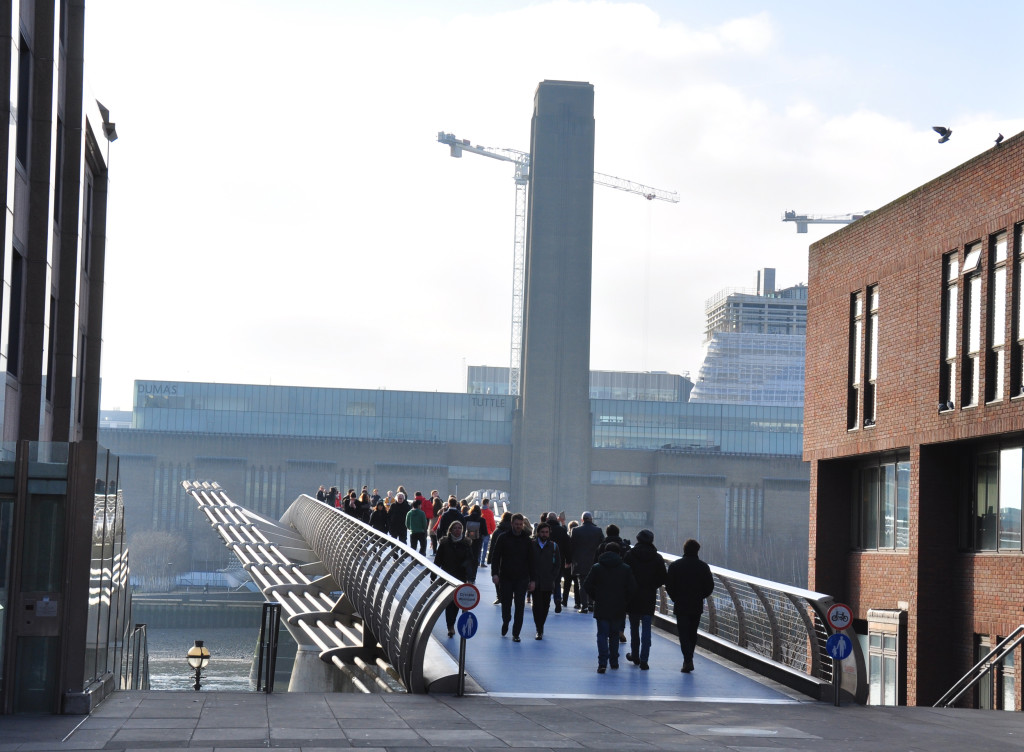
Be aware that your neighbours will judge you. They will call the police and shut down your noisy parties. They will also shop you to the local authority if you do anything to ignore the local by-laws (in my area that included our predecessor painting the door a “strange” colour).
Outside of our own homes we tend to mind our own business. Unless you’re a middle aged or old woman like me, you will not establish eye contact with anyone on public transport, nor will you start any kind of conversation. It can be a lonely kind of place until you establish or join a community.
People are generally kind and helpful if you’re willing to take the first step but they are very loathe to put themselves forwards, fearing to be seen as interfering or nosy.
We say sorry a lot of the time, but it doesn’t necessarily mean we are sorry. Often “sorry” is just a stopgap word used whenever interaction is inevitable but not wanted. If I step on your toes, saying sorry is simply a polite way of saying “Oy! Watch out big foot”. I am expected to look apologetic and mumble “sorry” back.
Politeness can cut if you understand the code. The British can be incredibly passive-aggressive. If you don’t understand, ask one of the people sniggering to explain what has just happened.
People working in public services are often not “warm”. They will probably not smile and wish you a good day on the way to your doctor’s appointment. It can feel as if they don’t give a f*ck, which might be true given their working terms and conditions ie. too much work, long hours and not much by way of salary to compensate.
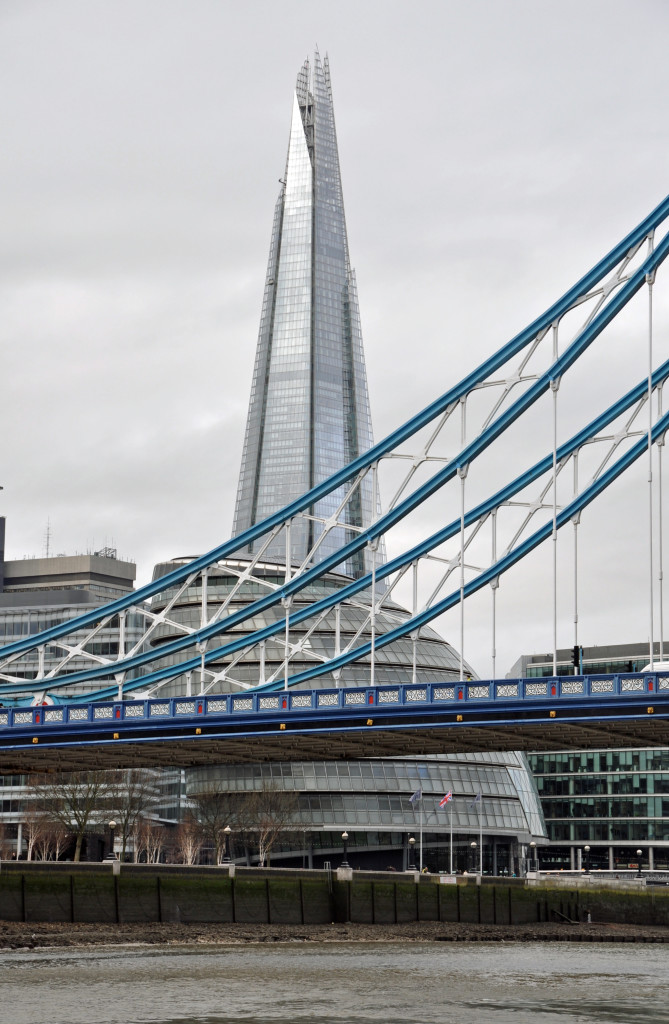
A bit of politeness on my part, a smile and wishing the person well has always resulted in a returned smile and a more human attitude. It is always worth asking how they’re doing that day, or noting that it seems like a busy day today. Politeness is a two way process we use to make each other feel human, a way of showing that we value each other.
It easiest to assume that Londoners love pets and hate children. You will probably get a knock on the door from the authorities if you abuse or neglect your dog. If it looks sad, someone will approach you in the park and ask if everything is okay. It’s not that likely to happen if it’s a child. On the plus side, even if you venture outside of the “child-friendly” cafes and restaurants to expensive eateries, the most disapproval the you’re likely to get is in the form of sniffs and snooty looks.
As a society we are currently somewhat traumatised by stories of high profile TV personalities and child abuse. It doesn’t seem to be translating into treating our own children any better.
The British have a poor record with alcohol, tending towards a boom and bust approach. Drunken crowds out and about late at night are not the safest place, for anyone, participant or bystander. The only outright aggression that I’ve experience was making my way home through a crowd of drunks. It was unpleasant but not life threatening.

We really do talk about the weather all of the time, partly because the weather changes all of the time. Even the foreign born fall into this conversational trap. For the record, London is both dryer and warmer than Paris. The prevailing winds blow in from the west and drop most of their moisture before they reach us.
If we’re not talking about the likelihood of rain, we’ll be talking about house prices. House prices are a useful proxy for how much a person owns. You should never ask a British person how much they earn. It would be considered incredibly rude. But you can easily ask them about house prices in their neighbourhood and work out the answer for yourself. Only the very rich or the very poor live in Westminster, the poor living in the remnants of social housing, the rich in the mansions.
In general there are few topics to avoid. The NHS is definitely valued by almost everyone so criticising it too obviously will not win you any friends. Complaints about almost anything else will find you a friend somewhere. We are a nation of complainers, especially politics.
But comparing anything British unfavourably to something back home, will not fly well. Do not be fooled if the person you are talking to has just ranted long and hard about the failings of the UK – they are allowed to and you are not.
Sounding or seeming to be incredibly pleased or proud of your own country will be met with genuine incomprehension or mirth from the British born. We are all vaguely embarrassed to be British, though also strangely glad not to be born anything else.
It makes no sense to me either.
Sarcasm is a mainstream form of communication in the UK. There are a million ways of saying almost the same thing in English, and the British do love to play about with the language. Even if English isn’t your first language, your children will get it immediately. They will use both sarcasm and irony from the get-go.
It never hurts to ask directly whether that’s really what someone meant. A friend working in NY had to seriously restyle her speech patterns at work and cut out both sarcasm and irony.
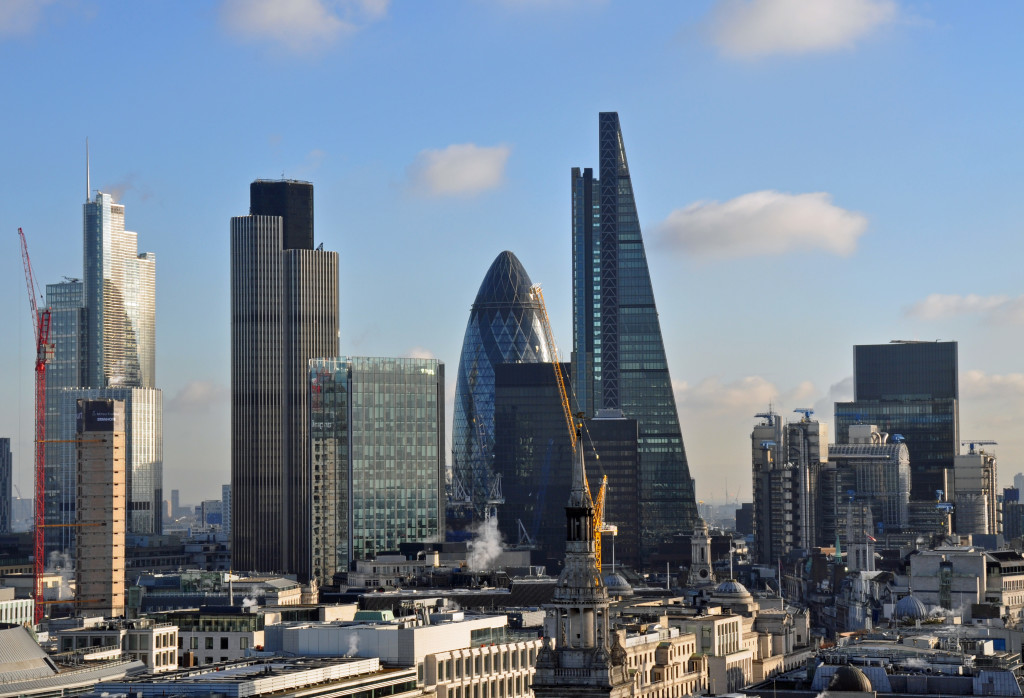
In general London is a safe place to live and work. The police are basically reliable and honest. The lack of guns in UK society means that you’re very unlikely to end up dead, at the hands of villains or the police. You might be robbed. Standard terms and conditions for any city apply i.e. use licensed cabs and public transport, be wary of dark poorly lit areas walking home late, watch out for scams and scammers around banks and ATMs, and don’t let strangers into your home without ID. Scream “thief” rather than “rape” if you want people to help. Do not accept or tolerate any kind of abuse without reporting it.
Enjoy the city. Go to the theatres, the concerts and galleries and museums. Chill out in the public parks and gardens.
Maths
It is not the “unknown” that catches people out, but the truths they hold to be self-evident that turn out to be completely wrong.
On many issues, the gap between public perceptions and reality is very wide. The polling company Ipsos Mori found that Americans think 33% of the population are immigrants, for example, when the actual number is 14%.
A 2013 poll found that Britons thought 24% of the population was Muslim—almost five times the correct figure of 5%.
We are more worried about travelling by plane than by car even though the risk for the average person dying in a plane is much lower than in a car. Bizarrely most of us also think that we better than average at driving (think: only half of us can be better than average by definition). Typically we underestimate familiar risks and overestimate the risk of the unfamiliar.
We often get economic policy wrong. Asked to name the top two or three areas of government spending, 26% of Britons cited foreign aid, more than picked pensions or education. In fact, aid spending is a small fraction of the other two and only 1% of the total (UK government expenditure 2016 – Pie Charts Tables).
More worrying is the possibility that people simply do not trust the official numbers.
When Britons were asked why they overestimated the percentage of immigrants within the population, two answers dominated. One camp said that the government undercounted the numbers because of illegal immigration; a second group simply insisted their own answer was right, regardless of the evidence.
This points to the problem facing mainstream politicians who are trying to halt the rise of populists like Donald Trump. Reasoned presentation of the facts may not help since the source of the information, whether it is the government or the mainstream media, will always be suspect. Those advocating that Britons vote to leave the European Union in next month’s referendum, for example, dismiss warnings about the economic impact from the IMF, OECD and Bank of England on the grounds that, “They would say that, wouldn’t they?”
If public misperceptions can distort economic debate, they are also a problem when it comes to financial markets. Financial products are often complex and buyers can be confused by the terminology.
One survey found that only half of Americans knew that mutual funds did not offer a guaranteed return.
A lack of mathematical knowledge is a further difficulty. Another survey asked 50-somethings questions that related to financial literacy; asked to calculate how much each of five prize-winners would get from a lottery jackpot of $2m, only 56% of respondents could answer the question. More than two-fifths did not know the difference between simple and compound interest.
The trend has been for individuals to shoulder more responsibility for their financial well-being than they did in the past. This is particularly true in the case of pensions, where companies are retreating from the “paternalistic” approach of offering pensions linked to a worker’s final salary.
In the brave new world of defined-contribution schemes, workers get a pot at retirement which they must eke out for the rest of their lives.
These are difficult calculations to make even for the numerate.
A survey by the Society of Actuaries found that around 40% of Americans underestimated the average life expectancy of retired people by five years or more. Around 77% of Americans are very or somewhat confident that they are well prepared for retirement but only 63% say they have saved any money towards it, according to the Employee Benefit Research Institute.
These misapprehensions illustrate the problem with the idea of caveat emptor, or buyer beware, when it comes to retail customers of financial services. Investment products are not the same as other goods. First, the price is not immediately obvious, given the impact of annual charges and fees on a customer’s long-term return.
Second, the usefulness of the product may only become apparent after several years. A mutual fund is not like a corked wine that people can hand back to the waiter right away. By the time customers find out things have gone wrong, their financial future may be badly damaged. Third, there is an asymmetry of information between the seller and the buyer.
Educating children and adults to be financially literate might help in the long term. Until then regulators, just like politicians, must deal with the public as they are, not how they might like them to be.
My daughter is about to leave home, about to try and manage her finances for herself, for the first time. She will have to pay rent, buy food, pay her own utility bills. And part of me is entirely unconvinced that she will be able to manage to pay her day to day costs never mind plan for rainy days and her retirement.
Bought
I was talking about whether it is ethical for a person to have sex for money with someone they know is cheating on a partner?
I have a deep ambivalence about prostitution. It leaves me with very mixed feelings and contradictory thoughts.
My first thought is always that what a person does with their own body is their own business in so far as it does not cause any harm to another person. Thus if a woman chooses to make money through selling her body, her time, her sex, it should absolutely be her right to do so free of hindrance. It is not my business, nor yours, to judge another person for the choices they have made or been forced to make.
Because my second thought is almost always, how real is the choice of people working as prostitution, how much agency or authority do they really enjoy?
It seems that relatively few people involved in sex work are making a positive career choice. Many are simply making the best of a set of bad choices and poor life chances. It is an industry rife with abuse and crime, an industry filled with too many victims, women with no money, with out of control drug habits, people who have been trafficked, people with abusive partners.
And let’s also be clear, my feelings would not be at all ambivalent if the question became personal: if one of my daughters grows up to be a sex worker, it will mean that I have failed as a parent. I will have failed to bring my child up to have enough choices, enough skills and opportunities to make better, easier, safer choices.
And yet to answer the question “Is it ethical for a person to have sex for money with someone they know is cheating on a partner?” the answer would still have to be “yes”. There are a number of questions being asked here:
- is the decision to have sex (or not) an ethical or moral question?
- is it ethical for a person to have sex for money?
- is it ethical for a person to have sex with someone that they know is cheating on their partner, paid or otherwise?
It’s worth thinking carefully about what we mean by ethical. Ethics are usually described as moral principles governing our lives, where moral principles can be understood as either concerned with right and wrong, or concerned with the principles required for “proper” conduct.
Sex is obviously something about which religions and society have created lots of rules and regulations, lots of strictures about what is “proper” and “improper”. The plot of many stories, plays and films still centre around whether or not it is proper or improper to have sex with person “A” or possibly “A” versus person “B”?
When you look at most of these societal rules, they basically come down to controlling reproduction and property rights, choosing the most reliable mother or father for your prospective child, ensuring that the child born is yours and you can safely leave your property to your own genetic offspring, with no cuckoos in the nest.
With decent birth control, the original reasons for most of the rules disappear. Without the need to consider or provide for the rights of children or property, then sex is all about adult choice. If we are not having sex to make babies, then where is the intrinsic morality?
It’s interesting that we apply the ideas of moral “right” and “wrong” to sex, but not to other bodily functions. We don’t ascribe moral overtones to one person singing for another’s pleasure, cooking for another person’s pleasure or creating great pieces of art for another person to enjoy.
For all of other appetites, we do not set the private against the professional.For all other senses and bodily functions, we do not confuse the process with intimacy. I may eat out at a restaurant and eat wonderful food but the food prepared by partner, no matter how amateur (occasionally inedible) will always have more value because it is an act of intimacy, an offering up of who he is and how he values our relationship.
Like food, sex can take a number of forms and shapes. It can be expertly performed, drawn out or a quickie. It can be heartbreakingly intimate or stone-cold . It can be fast food or gourmet.
Paying for sex with strangers is not the same as sex with a partner, just like eating out is not the same as a home-made meal. A person using a prostitute is not typically trying to build a relationship, trying to communicate, trying to be intimate with another person.
Why should it be an ethical question to pay for sex for pleasure, for convenience etc but not an ethical dilemma for us to pay for our evening meal, to eat out or order take away?
Gordon Ramsey isn’t going to send a married customer home to enjoy his wife’s home cooking any time soon. We do not consider KFC to be immoral because it’s usurping the home-cooked meal and destroying family mealtimes.
If sex itself is not intrinsically moral, neither right nor wrong, then it is entirely ethical for a person to pay for sex or to be paid for providing sex.
And it is the responsibility of each of the adults involved in the cash transaction to determine for themselves whether or not their choices are moral, not because of the sex, not because of the money, but because of the other commitments that they might have made.
It is the responsibility of a person in any relationship to behave morally, to make the right choices and abide by the terms they have agreed or to re-negotiate them or to walk away from them.
Is it ethical for a person to have sex for money with someone they know is cheating on a partner? Yes. Yes. Yes.
Facts
Over the weekend I received a booklet from the EU Leave campaign. It talked about “facts”.
The problem is that the facts listed were not particularly factual, starting with the entirely bogus claim that we send £350 million to the EU each week “about the same as the cost of building a new NHS hospital every week” but of course it’s nothing like that amount.
After rebates and payments received back from the EU for Educations etc, we pay the EU about £18 million a day or £126 million per week. It sounds like a high number but is dwarfed by the amount of money we earn from selling into Europe (around £622million per day, £4,354million per week).
Of course we could use this money to build a new hospital, to fund the NHS, housing, the police or whatever good cause the campaigners can imagine. But to be honest, the government could already choose to spend money on new hospitals, the NHS, the police, housing or whatever.
The government chooses how it spends the money that it raises through taxes. If we want Scandinavia style public services and social care, we would have to be Scandinavian taxes.
Our problem is that we want the former without the latter.
If we are not members of the EU, trade will falter, at least in the short term where short term means 10 – 15 years. The fall in trade is an estimate, but the smallest amount that I have found, the most optimistic estimate of the cost of leaving is around 4%. 4% of our weekly trade within the EU is £175 million per week, significantly more than the direct cost of staying in the EU. It could cost us far more in lost trade, tariffs and sanctions.
So if we leave, we will certainly have less money to spend on our hospitals, our NHS, the police, housing and other good causes. To simply spend the same amount, we would probably have to raise taxes.
The next “fact” was about immigration, apparently “more than a quarter of a million people came to the UK from the EU in the 12 months to September 2015 – the equivalent of a city the size of Plymouth or Newcastle in a year”.
This can only be talking about gross immigration, ignoring the people who left the UK to live or work overseas. According to Migration Watch, net immigration from the EU for the year to December 2015 was 184,000 people. At the same time, 188,000 non-EU immigrants (net) arrived in the UK. Over the same period, net migration of British-born people was 39,000 people.
The idea that the UK is being somehow swamped by EU immigrants is nonsense. The idea that the current system of immigration is unfair to people outside of the EU is equally absurd. There are more immigrants in the UK from outside the EU than from within the EU. If we were determined to cut immigration, we would cut non-EU immigration, but of course it’s total nonsense to suggest that we don’t want and need doctors and other skilled professionals to come and work here.
People come to work. They come to the UK to do the work that British people are unable or unwilling to do for themselves. If the British government were to set a reasonable minimum wage, then there could be no suggestion of immigrant workers undercutting the salaries of British-born workers.
When skilled workers come to the UK to fill jobs that could not be filled locally, such as 17% workers within the NHS, or the 60% foreign born staff working in London in the adult care sector, we all benefit. I live in a city where more than a third of all people are foreign born, and I do not feel swamped, I do not feel anything other than benefit.
We were told that the EU is growing, that there are “five more countries are being considered for membership: Albania, Macedonia, Montenegro, Serbia, and Turkey. “ with the clear implication that ever more people will be coming to the UK.
This is just rubbish – along with every other member state, the UK has a veto over any new country joining the EU.
Sovereignty is used as another scare tactic. I am told that EU law overrules UK law. If there is a conflict between an EU member’s national law and EU law, then EU law trumps the national law.
In fact, the EU usually only sets minimum standards, such as a minimum rate of VAT such that countries can trade on equal terms. It is entirely within our remit as a member to challenge those rulings, as we are doing with VAT on sanitary products.
If you want to trade in the EU, a country must follow the EU rules and regulations and you only get to challenge those rules if you are a member. Switzerland and Denmark must follow the rules without any say in how those rules are set.
A member state may be taken to the European Court of Justice for failing to meet its obligations under EU law. Big fines can be imposed for non-compliance with the court’s rulings.
Landmark cases essentially relate to trade, to the removal of sanctions on trade between member states, to the removal of additional tariffs and taxes on products sold between members.
Conflict and criticism mainly relate to the Court’s attempts to enforce uniformity across the member states, such as enforcing non-discriminatory employment law, agreeing basic employee rights, setting minimum Health & Safety rules and regulations etc.
The Leave campaign constantly conflates and confuses the European Court of Justice with the European Court of Human Rights (ECHR).
It is different from the ECHR which rules on breaches of the European Convention on Human Rights and covers the 47 member states of the Council of Europe, the club of democratic, human-rights-respecting European countries.
This is entirely separate from the European Union.
The idea of a British Bill of Human Rights has often been proposed but the difficulty with actually drafting one, is that any attempt ends up simply re-writing the existing European Convention. It turns out to be quite difficult to write anything new or indeed to leave anything out. The European Convention is essentially built upon the way we choose to live our lives in a civilised country, the rights and responsibilities that a civilised country ascribes to its citizens.
I was told that within the EU, “the UK isn’t allowed to negotiate our own trade deals …Outside the EU, Britain would have an independent voice on the World Trade Organisation”. And to a certain extent this is true. We do not have individual trade deals with any number of countries such as the US, Australia or more emerging markets such as Chinas or India. We may be quicker, more nimble in negotiating agreements on our own.
But it’s unlikely.
We may be able to negotiate quickly ourselves, but we are unlikely to be given priority with the weight of 60 rather than 600 million people behind us. We are unlikely to be able to negotiate such good terms without the weight of the EU. Indeed any number of people have suggested that the UK would be squeezed to the back of the trade queue.
The head of the WTO has suggested that trade negotiations are likely to be slow and complicated outside of the EU. Back Obama suggested that the UK would slip to the back of the trade queue. Many EU heads of State have suggested the UK would face punitive terms for trade.
There is no such thing as an amicable divorce.
If someone offers you a bargain, something for nothing, then ultimately you need to think about whether you’re being scammed. If it sounds too good to be true, then it probably is too good to be true.
We pay to be in Europe, to trade freely with our neighbours. There is no way that we will be able to continue to trade freely if we’re outside of the community.
We can’t have the benefits without the costs.
The EU Leave campaign is a scam.
Club
I belong to a tiny tennis club, rub by a very diligent, possibly anally obsessive tennis coach. He’s a brilliant coach and you could not have anyone better to look after the courts. Each morning he walks the courts, clears and cleans, tidies and maintains obsessively.
I couldn’t live with him (assuming he’s the same at home) and just watching him makes me feel tired, but the club benefits.
As a tiny club, we have a tiny team with just about ten people willing to play in the matches (3 doubles pairs to play around 6 matches in a season).
After the match it is traditional (but not obligatory) to offer supper for the teams and because we have more of a tennis hut than club house, our meals are always glorified picnics. There is usually a vegetarian pastry or two as main (eg. leek and stilton tart) a salad or two and desert. All of this is served up with a couple of beers or wine.
Compared to other clubs with kitchen facilities we always seem to put on rather a good meal. people like the food and we’re all quite sociable. It’s harder when you’ve lost of course, but usually everyone has managed to win at least one of their sets so no one is totally down in the dump. And although there is no obligation, one club is legend for not providing a meal but rather requiring the guest team to buy their own sandwiches from a vending machine and not in a good way.
When is a club not a club?
In North London there are seemingly endless small clubs for tennis, cricket, bowls etc. These are not the same as public gyms though the David Lloyd franchise also runs huge tennis teams. The larger clubs have to struggle quite hard to keep it feeling like a proper club where members socialise and play together rather than an anonymous facility.
Some of the larger clubs manage to stay clubby, and they’re always a delight to play. Some of the smaller clubs become really cliquey and can be very standoffish. We’ve had matches where all bar one of the host team just left straight after the match and some where they haven’t hung around to eat after we’ve played at home. It always feels ungracious. We are club players, not Wimbledon contenders. No money changes hands based on the outcomes.
When people play, you get a real look into their characters and sometimes it isn’t that pretty. Mostly my partner and I try to be generous in our line calls and our play. There is almost always one player on a team who is at best “tight” with their calls and at worst simply dishonest. Occasionally you come across a whiner who doesn’t know the rules. Surprisingly often people seem to play “cross”, people who when they make a mistake immediately turn to their partner of the opposing pair and blame them for the cock-up. Loudly.
We played (and won) a match on Monday and my legs are still weary.
The third pair were fine.
The first pair were positively gracious.
The second pair were cheats.
Tropes
My daughter plays plenty of computer games, reflecting the demographic changes that “gamers” seem determined to ignore: not all gamers are white straight teenage boys.
The ridiculous clothes that female characters are obliged to wear is examined in Sarkeesian’s video. I fail to understand the furore generated by someone stating the obvious.
No one goes to war in their underwear.
Constantly reducing women to body parts and lingerie is ridiculous and off-putting to the audience that is not white straight male ie. 50% of the sales market.
Time to grow up.
Heroes
We are all the heroes of our own stories.
No one grows up thinking that they want to be a villain, a bully, a thief, a monster, so when we find ourselves doing things that are villainous, dishonest or monstrous, we need to re-write the story in our own heads. When we lie or cheat or steal or kill, we could tell ourselves that it’s for a bigger, better cause, or perhaps that we were forced into it by other factors beyond our control, possibly by “them”, the real villains.
Reading a piece in the LSE by Joel Busher about understanding the British nationalist group the English Defence League (EDL) I was struck by how similar the narratives the people involved in this fringe group must be to the stories that Islamic extremists must tell themselves.
“Most of the activists I knew had also developed a quite real sense that they were living their lives on the ‘front line’ of an imagined ‘clash of civilisations’.
How did this happen? I would propose that there were two dimensions to this process: a narrative/ideological dimension and a lived/experiential dimension. By engaging with the materials circulated within the activist community – various blogs, websites, news articles and a steady stream of broadly anti-Muslim propaganda – and exchanging ideas with fellow activists, they acquired and increasingly saw the world through a set of concepts about the supposed incompatibility of Islamic and Western cultures. They also picked up phrases such as ‘two-tier system’ (used to connote a systemic bias against ‘ordinary English people’) and ‘cultural Marxism’ (used to invoke ideas of nefarious leftist influence over British and Western public life). When tagged onto the end of any number of stories, these phrases could transform them from anecdotes into evidence and explain the perceived injustice of the world around them.”
Within the Muslim community, most people are just like everyone else, trying to get by and make the best of their lives for themselves and their families. But it is entirely possible to find the idea of a clash of civilisations between Islam and the West in even mainstream conversations. There are blogs, websites, news articles and a steady stream of broadly anti-Western propaganda – and exchanging ideas with similarly disaffected individuals, people can easily acquire a set of concepts that can make Islam and Western culture seem inimical or incompatible with each other.
People’s language is changed to include a more extreme view of non-believers, to define Islam ever more narrowly. The ideology and the language used, redefines everyday experiences and transforms every event and encounter. It converts everyday irritations into fundamental injustices. Every setback, crime or racist incidence becomes evidence of a fundamental, irreconcilable problem or conflict.
And since stuff happens, people do get stopped and searched for no good reason, people do get stared at, nasty comments get made and vile things happen, the extremist narrative provides a route whereby individuals are able to become militant, whilst continuing to believe that they are the heroes of their stories.

Each and every incidence of racism and prejudice feeds into the extremist narrative.
Which means that there are just two ways forward: disrupting the narrative and improving the lived experience.
Disrupting the narrative would start by ensuring the mainstream view of Islam, or indeed of liberal Western culture, is effectively communicated and demonstrated. It needs charismatic Muslim leaders to stand forward and demonstrate successfully integrating their faith and their Western lives. Sadiq Khan, the new, muslim mayor of London is a great role model. It needs a strong counter-narrative that suggests Islam can be reconciled happily with a life in the West.
We need to make ridiculous the idea that a person must choose between their faith and their family, their local community.
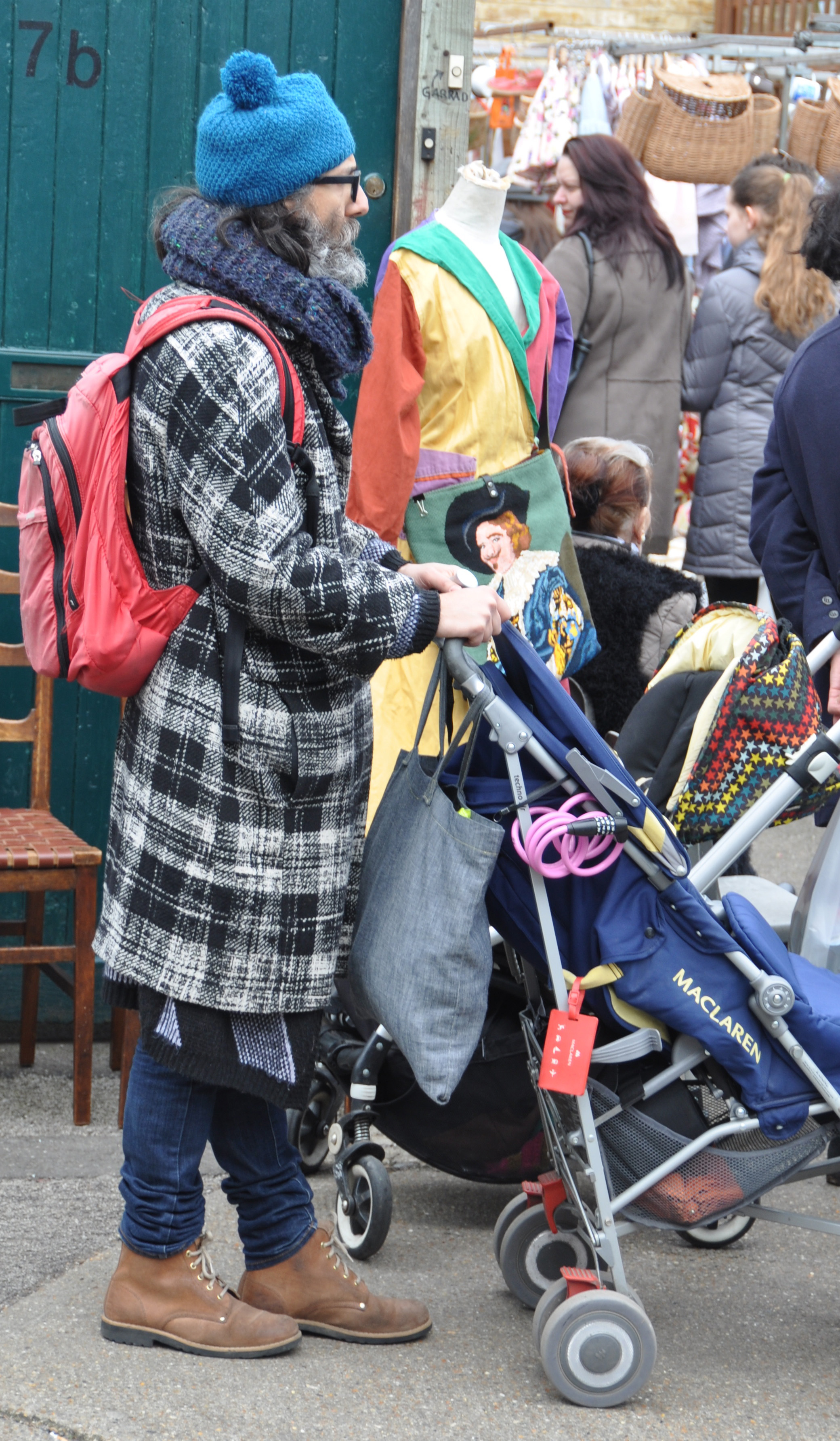
It means maintaining everyday connections with people outside of the narrative. Every positive experience with someone “other” helps to undermine the extremist rhetoric, whether that’s a non-believer or a family member well-grounded in the here and now.
The mothers of young men “called” to jihad, may be the single strongest line of defence against extremist grooming on-line.
We need to undercut the theological ideology that insists on a narrow restrictive interpretation of belief. We need to insist on God’s grace and generosity,and in the value of personal grace, forgiveness and tolerance, the value of personal generosity of spirit. We need to learn to bring the political back to the personal, to the impact on everyday people whatever their faith or lack thereof.
We need to improve the everyday experience of people living in our country, to root out racism wherever we find it. Clearly bad things happen but if we can make racism unacceptable wherever we find it, similar to the way we are making homophobia unacceptable, then we will move forwards. Victims need to be supported. Crimes need to be recognised. We need to engage positively in building a multi-cultural, multi-faith society that we can all be part of together.
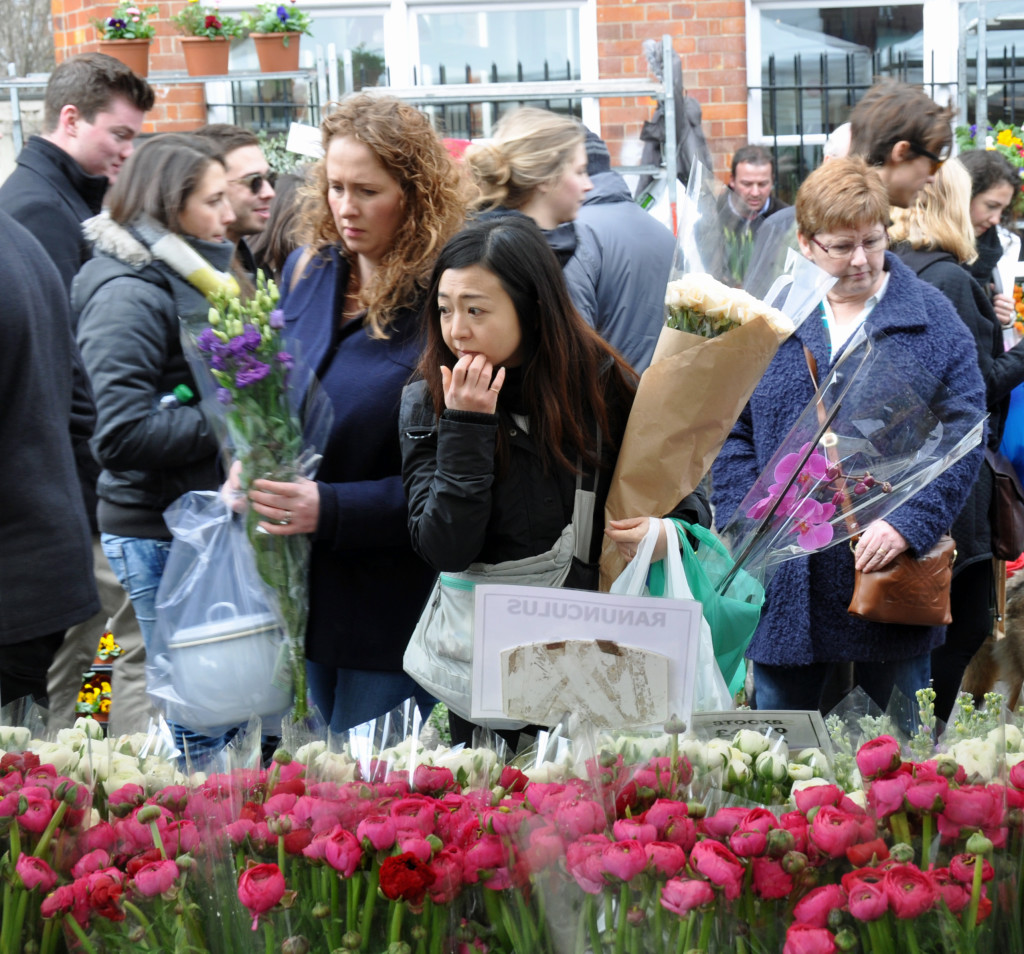
Mental
There is an excellent article in the Pool written by Bryony Gordan talking about her mental health issues and their relationship with the men in her life. There is one part which goes:
“Did everyone go out with men who flew into violent rages and left bruises on them? Did everyone sometimes sleep with men out of a warped sense of politeness? Did everyone have affairs with married men and cry themselves to sleep at night, or worse, cry themselves out of sleep until they finally managed to get out of bed in the morning?”
A very good friend ended her first marriage and was enjoying her “freedom” tempered with feeling very old at nearly-30. I introduced her to an ex-boyfreind from university with the caveat that he might be good in bed but was not a keeper, totally amoral but good fun.
Of course she fell hard. Five years later, one affair blown up by a letter to my friend from his adulterous partner starting with the “I thought you should know…” pregnant and deciding whether or not to give it another go (no, no ,no, no, no …. how many times no?). She stuck it out. He left when their baby was six weeks old and has been a bit of a shit ever since.
A decade or so later, she asked me why I thought that she’d fallen for him so hard, when I’d walked away after just a term.
I walked away from the relationship when. losing his temper, he punched the wall. I have never been attracted to men (or women) who have violent tempers mainly because I grew up in a family where violence was common.
I was hit as a child. I grew up walking a line of temper and approval where the wrong reaction almost always ended in bruises. The minute this man showed his violent rage, his toddler type tantrums packaged with fists that could put me in hospital, I lost any interest.
I went out with a man who flew into violent rages but left before the bruises and now I cannot imagine why I ever introduced the two of them.
Like most women, I have slept with men that I did not want. Sleeping with someone out of a warped sense of politeness partly describes that feeling, the lack of self-worth whereby you imagine that if a man shows some kind of appreciation of you that they should be rewarded, maybe they “deserve” to get laid in return for that compliment.
But of course it’s just the flip side of male-entitlement that immediately puts men’s wants and desires above and beyond those of any woman, including ourselves. Men rarely politely yield to women, in any context. Mostly they seem to assume first place. Women cede.
Married men have never attracted me. I’m too territorial but a number of friends have found themselves in relationships with men not quite single. Eventually you work out that they’re never leaving.
We live in a world where men are valued and women, well, not quite so much. It can’t be surprising that we internalise that value system. It takes a lot of love and validation as a child to believe that you’re worthwhile despite the relentless messages the world is giving you that tell you that you’re worth less.
This is not what I want for my daughters. I want my daughters to believe in their own value, to walk away from violent men, entitled men, married men, men who see the world and women in terms of their own needs and desires only.
Gravel Garden
There have been two big and frustrating projects in my small suburb garden: building a gravel garden on top of my flat roofed garage and trying to build a woodland garden in the black hole at the back.
The gravel garden has probably been the more successful.
It is built on the flat roof of a 1960s concrete garage running east-west, in full sun for most of the day, very dry but somewhat sheltered from wind by the houses and nearby trees.
Since my garage abuts the neighbours identical garage, I have a very clear idea of before and after.

Greening the roof was surprisingly easy with any number of sites providing advice. First I had to clear the roof of moss and detritus. To protect the building underneath, you need to create a waterproof layer which meant buying and laying a butyl pond liner. On top of that, I put down root membrane to prevent the plants growing down into the roof itself.
Then you need to create a boundary, something to hold in the growing medium. Initially I used simple wicker “hurdles” that would normally be used to create a raised bed. Over time these have been replaced or extended with wooden planks. Since I’ve decided that the roof is a long term feature, I’ll replace the wooden boundary with bricks when needed.
The growing medium I used was roughly one part compost, one part pea shingle (gravel) and one part perlite. The latter helps keep the mix lighter.
Having built a garden, I decided to plant it up with a whole range of alpines rather than simple sedums. It means that there’s slightly more work managing the plants since some of them have turned out to be real thugs (ie. really really like gravel) whilst others are a bit more restrained and are in danger of being swamped.
The wicker and wooden boundaries have made for a parterre style of planting. Each triangle bed has been planted up with a different alpine, with the corner beds planted with sedums, cauticola and sexangulare.
In the drainage trough to the side of the roof, I have planted up zinc troughs with verbena bonariensis and erigeron or geraniums.
Having initially trawled the garden centres, I’ve ended up buying most of the alpines on-line from specialist nurseries. And because it is very much a planned garden, there is always something to look at, always something in-season.
As always, I started out with the idea of a controlled, restrained and elegant garden but ended up with an out of control, loose and lovely space. My problem is a fundamental inability to wait for plants to grow in, and a total commitment to cramming in more and more plants.

The initial central planting of 28 beds in wicker frames comprised the following plants running west to east:
- Sedum sexangulare (1&4)
- Satureja spicata (2)
- Omphalodes cappadocica ‘Cherry Ingram’ (3)
- Rhodanthemum hosmariense (5)
- Draba rigida var imbricata compacta (6) now replaced with annuals
- Erysimum ‘Parkwoods Gold’ (7)
- Aster ericoides prostrates (8)
- Pulsatilla vulgaris (9)
- Sempervivum ‘Greyfriars (10)
- Campanula x pulloides ‘G.F. Wilson’ (11) now replaced with saxifraga “garnet”
- Sempervivum ‘Jungle Fires’ (12) now replaced with saxifraga urbium
- Armeria maritima (13)
- Arenaria purpurascens (14)
- Erysimum ‘Emms Variety’ (15) now replaced with sedum reflex
- Sempervivum ‘Greyfriars (16) now replaced with sedum sexangulare
- Dianthus ‘Whatfield Cancan'(17)
- Alyssum spinosum “rubrum” (18)
- Oxalis enneaphylla ‘Rosea’ (19)
- Helianthemum ‘Beech Park Red’ (20)
- Dodecatheon pulchellum ‘Red Wings’ (21)
- Sempervivum ‘Jungle Fires’* (22)
- Osteospermum ‘Irish’ (23)
- Gentiana samosa (24) now replaced by aethionema “Warley Rose
- Sedum cauticola (25 &28)
- Dianthus ‘Gold Dust’ (26)
- Leucojum autumnal (27)
Plants that failed to thrive were replaced. The sempervivum houseleeks were just incredibly slow growing so having been planted in four central beds originally, (10, 12, 16 & 22) were taken out and concentrated in bed 22. The freed up space was then planted up with sedum sexangulare that was growing naturally on the bare roof.
Gentian samosa was fine for a couple of years but has recently started to struggle. I’ve added aethionema to fill out the bed.
Similarly the draba was fine until a very cold damp Winter when it faded away. This bed has also had to cope with cat scratting so is currently under wire for protection until the lobelia grow large enough to be discouraging.
Some plants that took over had to be taken out such as the campanula (11).
Some thug plants are fine because they grow in a nice bushy form so can just be cut back.
Once the central beds were established, we added extra beds around the edge gradually covering more and more of the roof.
At the west front of the garage the outer beds are planted up as follows:
- Erigeron karvinskianus (Mexican Fleabane) (A)
- Satureja spicata , Erigeron karvinskianus (B)
- Festuca, primulas, cyclamen (C)
- Sedum cauticola (D)
- Lithodora diffusa (E)
- Armeria marittima (F)
And to the east, the outer beds are planted with:
- Ophiopogon planiscapus “nigrescens” and artemisia (G)
- Saxifraga “garnet” (H)
- Festuca, Sedum Spathulifolium (I)
- Sedum sexangulare, Erigeron, Festuca (J)
- Geranium (K)
- Phlox (L)
Plants which are spreading everywhere include the Erigeron which may well takeover if I’m not careful. The satureja is also starting to colonise all of the nearby beds. The armeria (thrift) is starting to pop up in any number of beds, especially those where the plants are early or late flowering. the clumps of dianthus and osteospermum seem to be able to hold their own, and I’m hopeful that though slower growing, the alyssum and helianthus will be able to repulse all invaders.It feels a little bit like a battlefield with the various plants jostling their way across the gravel.
Planting up from nothing has been huge fun and I’m still left with one corner still to be boxed up and planted.
Out
The UK seems about to vote to leave the EU.
THE opinion polls seem to indicate that Britain will vote to leave the European Union on June 23rd. And the gambling markets, which many investors rely on as the “true” signal, are moving the same way. The most widely read UK newspaper, The Sun, has also just announced on it’s front page that we should all vote to leave.
Fuck, Fuck, Fuckitty Fuck.
The EU was set up (as the common market and then the EEC) in the wake of two world wars that devastated Europe’s economy and left the continent divided between east and west. It has succeeded remarkably, so much so that former Communist countries queued up to join. Most of us discount the possibility of a European War, largely because of the success of the EU. We discount the threat, even though the Ukraine and Russia are pretty damn close to war.
The right to work and live in the EU is a freedom that 1.3m Britons currently take advantage of and something our children can still benefit from, unless we vote leave.
Britain initially stood aloof from the project but then spent a decade trying to join, as its poor economic performance became clear; between 1946 and 1965, British GDP per capita grew at half the rate of other industrialised countries. The good old days “out” were pretty disastrous from an economic perspective
Since joining the EU, Britain’s relative economic performance has improved; GDP per capita has grown faster than France, Germany and Italy since 1973. Is this all down to the EU? Probably not. But it is hard to argue, as some do, that the EU has damaged British growth.
The EU is also a serious political force in the world; a club of democracies that gives Britain enhanced status at the global negotiating table. None of our allies, in or out of the EU, want Britain to leave. For all the nostalgic talk of an economic alliance with the Commonwealth, the Indian prime minister, Narendra Modi, has made it clear he wants Britain to stay “in”.
The single market, something that Margaret Thatcher lobbied for as being to Britain’s economic advantage, allows our companies to trade across the EU on the same basis as all other companies. Currently, 44% of our exports go to the EU, and 48% of foreign direct investment into Britain comes from the EU.
That won’t suddenly disappear if we leave but it will be adversely affected. This is from an Ernst & Young survey of foreign direct investors (the companies that build factories and offices here) last year:
With 72% of investors citing access to the European single market as important to the UK’s attractiveness, the referendum has the potential to change perceptions of the UK dramatically, posing a major risk to FDI. Our survey indicates that 31% of investors will either freeze or reduce investment until the outcome is known.
What about the Leave campaign’s arguments? The first is that Britain is overregulated because of EU membership. But that isn’t what international comparisons show. The World Bank’s survey on the ease of doing business ranks Britain sixth, one spot above the US.
Nor is it clear what regulations the Leave campaigners want to scrap; a Daily Express list of the eight worst EU rules includes one on the prevention of cruelty to animals in transport and another on the elimination of excessive packaging, things most Britons would like to see controlled.
When the Leave campaign talks of scrapping rules, they may well mean regulations that protect workers; something they don’t mention for fear of alienating their working-class support.
At long last, the Labour party and trade unions are waking up to this.
On sovereignty, all international arrangements including NATO and the WTO involve its pooling. It is a fantasy to think that Britain can tackle the big problems that face us all—terrorism, climate change, tax evasion, cybercrime—without co-operating with others. And co-operation means compromise, and compromise means we won’t always get what we want. It is a fantasy to think we can “take back control”.
Then there is the question of the EU budget contribution. Leave has used the £19 billion, or £350m a week, figure which the head of the Statistics Authority has twice slammed. After the rebate, the contribution is around 1% of government spending. And the IFS, a body that every politician has been happy to quote in support in the past, estimates that the hit to British tax revenues in the event of Brexit will be much larger than £8 billion.
There will be no “extra money” to spend, on the NHS or anything else.
How can anyone know this? Of course, no one can be certain of the future. But the bodies that have analysed this—the Bank of England, the IMF and OECD—all cite a hit to economic activity, assuming other things remain equal.
Some will say that these experts have been wrong before but what is the alternative? A blind faith in the assertions of the Leave campaign, and the likes of Boris Johnson, who said the pound rose when sterling left the Exchange Rate Mechanism—when in fact it plunged. He can’t even get the past right, let alone the future.
The hit to economic activity will come from investor uncertainty (as we work out what trade deal to do with the EU) and from the potential for trade to fall.
Another problem with the Leave campaign is that it is not clear what kind of relationship Britain will have with the EU post-Brexit. Membership of the European Economic Area will, like Norway, involve making a contribution to the EU Budget and freedom of movement. Most MPs may favour that but voters may not; the result could be constitutional chaos. Outside the EEA, Britain’s access to the EU would not be as good, particularly for services, the area where British trade is strongest.
Nonsense, says the Leave campaign. The EU will still want to sell us goods. It will. But the United Kingdom is a less important market for the EU than the EU is for us (Jonathan Portes reckons Britain is around 16% of EU goods exports). Any small businessman who has a customer who buys half his output will know where the power in the relationship lies.
The EU will not want to offer Britain a special deal, for fear of encouraging leavers and discouraging remainers in other countries. They have said this repeatedly. To assert otherwise is to gamble recklessly with the livelihoods of British workers.
Finally, we come to immigration, which may be swaying the most votes. It is sad that immigrants who play such a positive role in the Britain are being so derided; especially when they make a net positive contribution to public finances. (That is quite a feat when Britain has a big deficit; the rest of us take out more than we put in.)
Yes, there are local problems when services get stretched but that is something the British government should be tackling with more resources. Nations that welcome immigrants have always prospered.
This is perhaps the most dishonest part of the whole Leave campaign.
Here are a bunch of largely free-market Tories arguing that governments should decide which workers companies should employ. Instead of sweeping away regulations, a points system would involve the imposition of new ones. In any case, last year slightly more people came to the United Kingdom from outside the EU than from within it. Eliminating all EU migration will not get the total down to the “tens of thousands”.
On security, it is just a blatant lie that Turkey will join the EU in the foreseeable future; joining the EU means signing up to norms on democratic freedoms. Turkey is heading in the opposite direction.
Nor has the campaign dealt with the problem that “controlling our borders” is incompatible with the current arrangements in Ireland, where there are no controls. Either we will have to impose border controls or we will have to sublet those controls to the Irish. The Irish have free movement within the EU; so any EU citizen can currently drive over the border. And what happens if Scotland leaves? The choice will be border controls at Carlisle or letting another nation be in charge.
Membership of the EU, while not perfect, has seen our prosperity (and freedom to travel) grow. We put all that at risk if we leave, on the basis of some vague plans from the Leave campaign that are misleading and contradictory.
Remain is the better option.
Terrorist
Terrorism can be broadly defined as violent attacks on civilians for political purposes. It has the explicit goal of gaining publicity and coverage for a political cause.
We can define a three-stage process through which individuals join terrorist organisations and commit violence.
- At the first stage, individuals join an organisation because of alienation from society and in an explicit search for group solidarity and community.
- Once in the group, they undergo an indoctrination and norm creation process in service of the goals of the organisation, such as being part of a bigger cause and martyrdom.
- Finally, they commit violence after a split of morality for in-group and out-group members (when violence against out-group members is legitimised).
Political and economic explanations of terrorism which focus on poverty and underdevelopment are popular in academic literature: excessive poverty and deprivation in the absence of social security can lead to alienation and despair and lead individuals to join terrorist organisations.
Conversely, dignified life and supportive welfare benefits can create ties within society and so discourage terrorism.

Although these macro structures can predict the likelihood of emergence of terrorist groups, they do not fully depict individual-level processes. Studies have found that terrorist organisations provide tight-knit loyal and intimate groups for individuals in need of social connection.
It has been argued (Martha Crenshaw, University of Sheffield) that individual terrorists are often isolated and in desperate need of social contact. Within a terrorist organisation, individuals find a place where they can confide and trust each other in small cells of the organisation; Max Abrahms found evidence that the primary reason for joining terrorist organisations is seeking social relations and solidarity. He suggested that individuals who know someone already in the organisation are more likely to join. New recruits demonstrated very high levels of social alienation before joining.
Precursor terrorists are lonely.

Jeff Victoroff outlined two possible psychological explanations for joining terrorist organisations; the first stems from psychopathic tendencies.
Narcissistic injury—a perceived threat to the narcissist’s grandiose self-perception—can occur in a problematic childhood or adolescence, and the absence or weakness of a parental figure, or his/her rejection of the child can potentially cause narcissistic injury. Such injury can lead the prospective terrorist to deliberately seek grandiose fantasies or purposes in life, which might be expressed through membership to a terrorist organisation. Alternatively, early childhood traumas might lead to excessive paranoia or absolutist thinking, which would prompt the terrorist to act or react in line with internal psychoanalytic processes.
Secondly, Victoroff explained that individuals might develop varied, and sometimes problematic, reactions to the outside world.
Such reactions are more likely in cases of cognitive rigidity — need for certainty and clarity, and intolerance to ambiguity — novelty seeking, and finally perceptions of humiliation and desire for revenge.
In the second group of theories, individuals have a hard time adapting their behaviour to outside conditions such as uncertainty and mundaneness of life. And then in the humiliation-revenge theory, they react against a perceived unjust external force.

Perception of injustice and the split of morality are two main factors that are likely to mobilise larger groups of disconnected people, unifying them around a grandiose cause.
John Horgan has pointed that identification as victims and split of morality for in-group and out-group members spur vulnerable people to join terrorist organisations. In the split of morality, what is just and fair for one’s own group is not applicable to outsiders. Aggression against the outer group is ‘justified’ and ‘fair’ in the mind of a terrorist.
According to humiliation and revenge theory, terrorists are often convinced that they ‘react’ against an unjust situation rather than being the aggressors themselves. The perception of unfair treatment is one of the most important prompters of terrorist activity. It makes him/her part of a bigger and moral cause, which is perceived as correcting an unjust situation.
Studies suggest that once the person joins a terrorist organisation, his/her socialisation is ensured through constant indoctrination. It is too late to pull back once one is inside the group.
Discussing the choice of western Jihadists to go foreign bases such as Palestine, Syria, Kashmir or Chechnya, Thomas Hegghammer emphasised norm diffusion and indoctrination. His study looked at in-group indoctrination and the prevalence of clergy in controlling and directing the behaviour of the group members.

Within the group, the individual becomes entirely subordinate to the leaders’ goals and aims.
Terrorist leaders are often motivated by intimidating and demoralising the government, and [the fantasy/idea of ] ultimately forcing it to give in to their political demands. An individual terrorist however does not necessarily share those goals. Their attachment to the organisation is insured via value and norm creation. Human beings are social, pack animals. We want to belong. We crave social connection and validation.
Assaf Moghadam argued that Islamic jihadists groups create a cult of martyrdom and glorify death. Such glorification serves to two interrelated purposes. Firstly, it convinces the individual that their death serves a higher cause, and by dying they will contribute to a continuity started before them. It validates an individual’s worth to their community. Secondly, martyrdom promises more benefits in the after life than the current setting, easier in a situation of deprivation and alienation.
Knowing someone within the organisation or perhaps propaganda of the organisation facilitate the recruitment of these individuals. Once in the organisation, the terrorist discovers a form of attachment to a larger group where he/she splits his/her moral judgements in favour of the attachment group. When aggression to outer group justified through this split, the most gruesome acts of violence become possible.
Perhaps shifting the debate to the individual and to the ways through which we can ensure solidarity and connection in society, building community, might be better placed to prevent terrorism.
Afterwards
An excellent piece on Twitlonger by AA Gill which effectively nails the Bexiteers real motive, an elderly nostalgia for an entirely mythic past when everything was rosy and reality never gets real:
We listen to the Brexit lot talk about the trade deals they’re going to make with Europe after we leave, and the blithe insouciance that what they’re offering instead of EU membership is a divorce where you can still have sex with your ex. They reckon they can get out of the marriage, keep the house, not pay alimony, take the kids out of school, stop the in-laws going to the doctor, get strict with the visiting rights, but, you know, still get a shag at the weekend and, obviously, see other people on the side.
Really, that’s their best offer? That’s the plan? To swagger into Brussels with Union Jack pants on and say: “ ’Ello luv, you’re looking nice today. Would you like some?”
Europe
I am increasingly unable to talk to people about the referendum now that it looks more and more likely we will vote to leave.
Talking with a Brexiteer leaves wanting to smack them, to shake them hard screaming “So you’re the one who plans to fuck up my kids’ chances!”
The death of an MP going about her constituency meetings, by a man shouting “Britain for the British” is just the worst symptom of a world gone mad with misogynistic abuse of women in public roles ramped up by the vicious rhetoric within the referendum debate. We’re all wound up to bursting point.
Housing
Ever since the late 1990s, UK citizens have consistently rated immigration as one of the most important issues facing the country. It’s playing out in the EU referendum to desperate effect.
When asked why, the most popular answer is because of the supposed burden placed on public services, with the impact on jobs and wages coming second. But whilst there is a lot of research on the impact of immigration on the labour market, there has been much less about the impact on public services.
I tend to have a positive view of immigration, living in a city where more than a third of the people are foreign born and where, despite using both the local state schools and the state health service, both GPs and the NHS, I have never felt myself pushed to the back of any queue. I have only seen benefits from immigration, in the way my kids have been able to make friends across different cultures at an early age and in the many many foreign-born individuals working in both health and education to the benefit of my family.
But I’ve never needed or been forced to consider access to social housing.
There has been recent research, looking at the access of immigrants to social housing. This is important because rents in the social sector remain substantially below those in the private sector, and the social sector offers much greater stability of tenure.
Around a quarter of white British people in the UK feel that they are treated worse than people of other races by social landlords (councils and housing associations). As Figure 1 shows, this perception has varied a little over time but it has been consistently high. Such a level is extremely high – only the black community feel more discriminated against by parts of the criminal justice system than white people do by social landlords.
Figure 1: Percentage of the white British population saying they thought they would be treated worse than people of other races by a council housing department or housing association
Source: Citizenship survey, various years
Organisations like the BNP and UKIP try to exploit these feelings, spreading the view that ‘immigrants come here and are immediately given council homes while the British-born are pushed further and further back in the queue’. But is there any truth in this perception?
To be offered a social tenancy, an individual must first be eligible to ‘go on the waiting list’. There is no automatic eligibility for social housing for anyone in the UK (and the 2012 Localism Act has given local authorities more power to refuse to put an applicant on the waiting list).
But at the risk of oversimplification,it’s possible we to get a rough estimate using data on citizenship and length of time resident in the UK.
Table 1 shows that most immigrants in the UK are in categories where they would be expected to be eligible. And even those individuals who are not eligible (the final line of Table 1) might access social housing if they are in a household where some adult does have eligibility – this is shown in the second column of Table 1.
Table 1: Individual and household characteristics of immigrants
Source: Labour Force Survey, 2007-13 pooled; A8 citizens are those from the eight East European countries that joined the EU in 2004
Probably over 90% of immigrants in the UK are eligible for council housing and housing association tenancies.
But just because most immigrants have eligibility to apply for social housing does not mean that they will get access to it. Once on a list, most councils operate a points or banding system, which gives priority to certain types of households. Councils have considerable discretion in the nature of this system.
A simple comparison of the probability of being in social housing for immigrant and native households leads to the conclusion that EEA immigrants are less likely to be in social housing and non-EEA immigrants are more likely to be in social housing compared with natives – this is column (1) of Table 2.
But immigrants and natives differ in their household structure and economic circumstances. As column (4) of Table 2 shows, controlling for these factors reveals that immigrant households are less likely to be in social housing than equivalent native households.
Table 2: Differences in the probability of being in social housing for immigrant households relative to native households (adding demographic, regional and economic controls)
Source: Labour Force Survey, 2007-13; * denotes significantly difference from zero at 5% level.
This suggests that fears that immigrants somehow are given priority over equivalent native households in access to social housing are misplaced. So why are so many people worried?
Doing the same analysis for the late 1980s reveals that immigrants were very much less likely than equivalent native households to be in social housing at that time. The allocation rules then acted to reduce access to social housing for immigrants and ethnic minorities.
This change is very clear from the fractions of natives and immigrants in social housing. As Figure 2 shows, in the late 1980s, natives were much more likely than immigrants to be in social housing, but this was reversed by about 2000. It was plausibly the outcome of changes in the allocation rules in the 1980s and 1990s which reduced discrimination in housing allocation against immigrants.
Figure 2: Shares of immigrants and natives in social housing over time
But as the access of immigrants and ethnic minorities to social housing improved, the stock of social housing was decreased. Construction of social housing has now dropped to a very low level.
So necessarily, the improved access for immigrants and ethnic minorities coincided with reduced access for natives which may well have led to the widespread perception of discrimination against white natives.
Figure 3: Total completions of social housing
British born people are probably right to think that the part of the population who need social housing has been neglected, but they are wrong to think that this neglect applies just to them and not to immigrants as well. The problem is a lack of social housing due to local i.e.. UK government choices, not immigration from the EU.
Tired
Last night I played in a tennis match with my doubles partner. We won all four sets. Afterwards at the supper we provide as home team, one of the opposition said that we’d put on the best ever post-match supper.
I’m still not sure which result I’m most pleased with, the tennis or the cooking, but I’m very clear which one my bones are regretting this morning.
High Risk
When I went off to university, catching AIDS was regarded as a life sentence, and not a very nice way to go either.
Even now becoming HIV+ is still a life sentence, though one to lifelong medication and vulnerability rather than death. It seems bizarre therefore that the UK health service has decided not to roll out the PrEP prophylaxis after it’s initial research seemed to prove that it was worthwhile at least in terms of “high risk individuals”.
The PROUD study confirmed evidence that oral tenofovir disoproxil fumarate–emtricitabine pre-exposure prophylaxis (PrEP) protects men who have sex with men against HIV.
The study also showed unexpectedly high HIV incidence (9·0 infections per 100 person-years) in men who asked for PrEP and who were asked to defer. The HIV incidence in this group was three times that expected on the basis of epidemic trends though obviously this finding might simply be because people at higher risk for HIV infection are more likely to seek PrEP services, stay in care, and be adherent.
The research suggested that identification of high-risk people might be less helpful than identification of high-risk moments, and the situations that cause them, such as leaving home, becoming an adult, coming out as a man who has sex with men, immigrating to a new city, ending a relationship, and others.
People who are passing through HIV risk moments seem to be inclined to seek PrEP. As consumer demand for PrEP rises from the front lines of the epidemic, people will come forward at times of recent or frequent HIV exposure, thereby presenting powerful opportunities for PrEP, post-exposure prophylaxis, and early treatment.
Requests for these services should prompt an urgent and thorough response since aside from the moral imperative to protect people, taking preventative action will save money on long term care post-diagnosis.
However, the overall conclusion from the NHS seems to have been that it is not the business of the health service to determine (and pay for) social policy.
Safe
Parents want their children to be safe. We tell ourselves that we want them to be happy, but happiness is a risky endeavour, so generally we settle for safe.
On this basis, I would choose for my eldest daughter to convert her English degree into a qualification in law. I would like my youngest girl to convert her Maths degree into an accountancy qualification. Professions are safe. Lawyers and accountants feel like safety.
But every lawyer I know tells me that no one should become a lawyer. Bizarrely having been an accountant, none of the women I know who qualified have a bad thing to say about the profession, though of course all of them used it to leapfrog into another career.
My oldest girl is having none of it. Having arranged a couple of weeks for her in Chambers, following a couple of cases in court, there is nothing less likely at the moment than a career in law.
She hasn’t a clue what she wants to do (not at all unreasonable for an 18 year old) but she wants it to be fun. Her passion is reserved for literature so at the moment, the only career that she can imagine is as an academic, studying and teaching English.
There is an excellent TEDx essay and talk looking at how people find their “calling” (We humans 7 lessons about finding the work you were meant to do – Ted).
It starts out by highlighting that different people will find different things rewarding, an obvious yet difficult fact for parents to deal with.
- Look for something that you’re good at, something that allows you to feel appreciated and something that you believe will make other people lives better. This will probably involve ignoring everything your parents and teachers tell you.
- Clarity often arrives during periods of great stress, distress and difficulty. We need to listen to what our hearts are telling us at these times, and have the bravery to follow that path.
- Following our passion, our calling, can be the opposite of safe. This may be because it runs counter to the expectations of our loved ones, or because it involves challenging stigma and stereotype.
- There will be people along the way who will support you, sometimes deliberately and sometimes entirely accidentally.
- Once you have found what you want to do with the rest of your life, you still have to live that life: it’s just the beginning of an ongoing experience. It isn’t over until you’re dead.
- You can find your passion, your direction at any stage of life. You should be open to change throughout life because it can find you anytime, anywhere. However, it’s important not to use this an excuse for staying in a safe but ultimately unsatisfying role.
- A life spent doing something that you are good at, that you feel valued for doing and which helps other people, is not likely to be especially well-paid. Jobs helping and caring for other people, are rarely well-paid, which if you think about it, is a sad indictment on our society.
Vote
It’s time to vote. Whatever the outcome, there is a 50% chance it will be the right outcome. There are no experts – you are the best expert on your own decisions. Weigh up what you want for yourself, your family, friends and country and choose.
The only bad result is a poor turnout, so walk along to the polling centre and make your decision.
Freedom
I can imagine waking up on Friday to jubilation from the Leave campaign. “Finally”, they will say, “Finally we can be free. Freedom at last.”
But freedom for what? It seems to me that we will have the freedom a toddler has, when having thrown a tantrum, thrown all of his toys out of the sandpit, he sits down in the corner, free to sulk all on his own as he watches his playmates and peers walk off to play.
Freedom has been the core value in the rhetoric of the Leave campaign. Boris Johnson has called for people to “choose freedom” while Nigel Farage has said that 23 June could be “independence day” for the UK, a phrase used again by Johnson in last evening’s debate.
But the way that the Leave campaign understands freedom is one-sided. The Remain campaign’s ideal is also freedom, and ultimately by remaining a member of the EU, the UK would be more free than if it didn’t.
According to Isaiah Berlin We can talk about freedom in two ways: freedom from constraints and limitations but also freedom to do things that we want to do.
One of the Leave campaign’s main arguments is that by being a member of the EU, the UK is not free to be the maker of its own laws, being a member of the EU undermines Britain’s autonomy.
Clearly in some ways this is true: some of the laws that the UK is bound by are not voted in Westminster. In agriculture, fisheries, external trade, and the environment, it’s fair to say that EU legislation and policy is indeed the main driver of UK law and policy, although even in these areas the UK retains some freedom of action. And of course as a full member of the EU the UK is involved in setting these EU regulations.
EU legislation is not conjured up by some ‘faceless bureaucrats’ as it is often said by leave campaigners. These laws are democratically decided upon in the European parliament, with the participation of the UK’s representatives, who are directly elected by the citizens of this country. The UK is active in the decision-making process that shapes EU legislation, and as in any democratically-governed institution, it is wrong to claim that participants are not free because they are bound by democratically-arrived decisions.
In other important areas—for example, welfare and social security, education, criminal law, family law and the NHS—the direct influence of the EU is rather limited. It is therefore ironic that the Leave campaign use the spectre of migrants effect upon welfare (benefits tourism, access to social housing) education (lack of school places) crime (importing EU criminals and crime) and the stress upon our health service.
Choosing to implement laws originating in Brussels rather than Westminster does not mean that the UK is not an autonomous, free country.
The UK has freely decided to bind itself to the laws of the EU. This is a voluntary participation, and one that can be terminated at any point by a UK government, or in fact directly by UK voters within this referendum. At the same time, if the UK votes to stay, this would not signal a loss of autonomy, as it has autonomously chosen to bind itself to EU rules.
We have a choice. We have control. We have freedom. Right up until the point we vote to leave.
Leave campaigners claim that the EU doesn’t allow the UK to always do what it wants, and that amounts to limiting the UK’s freedom. That’s also certainly true in some ways.
If the UK government wants to turn away EU citizens who arrive at its borders, for example, it currently cannot. But the limiting of our freedom in a political context usually also means a gain in freedom elsewhere: the UK might have given away its freedom to close down its borders to other EU citizens, but at the same time UK citizens gain the freedom to cross the borders of all other EU countries without any interference, freely. For everything that we have given up, we have gained something in it’s place.
Even the laws that we have implemented, are essentially related to sharing out resources between neighbours. It is difficult to see how we could establish meaningful environmental laws that did not involve negotiating with our neighbours. The wind moves pollution from France, across the Channel to the UK and vice versa. Detritus on our beaches can be swept ashore in Belgium or Germany.
Similarly how can we manage fish stock in isolation, when fish swim where they want with no regard for human borders. Do we really want to avoid the EU legislation that protects animal welfare within agriculture?
Having access to the common market, having the freedom of movement, of trade, freedom of selling services and so on is a much greater gain in freedom than the freedom the UK gives up by agreeing to common rules and standards.
Most of those on the Leave side of the campaign recognise the enormous benefits that come with the freedoms that the common market provides. The argument often is that somehow the UK would be able to negotiate its way into enjoying these freedoms, without giving up any of its own.
Well, we’ll just have to wait and see, how amicable this divorce turns out. It sounds a little bit like wanting to live in a world where we enjoying all the freedoms we want, but without offering anything to our neighbours.
“I can play with all of your toys but don’t dare expect me to share any of mine!”
Berlin’s concept of positive freedom is essentially one of autonomy, the right to choose. But freedom can also be understood as effective freedom. Effective freedom amounts to having the power and ability to act in the way one wants, and not merely as the absence of an external constraint.
Even if one accepts the Leave campaign’s suggestion that the UK’s freedom would be increased in the if it left – in that it will be free of the external constraint that is the EU – its effective freedom might still be diminished.
The argument that the Remain campaign often makes is that the UK will be less powerful to do the things it wants, including strike international trade deals and influence global issues such as climate change. We might be a more nimble negotiator, but who would want to talk to us, to negotiate with us, when there are so many bigger countries already trying to make a deal.
Even though the UK would be nominally more free to negotiate in it’s own interests, effectively it wouldn’t be able to make such good deals, as it wouldn’t have the same power or the capacity to influence the rest of the world. By being a member of the EU, the UK’s effective freedom is greater than if it were not, as being a member of the EU makes the UK more powerful and able to ultimately achieve its goals.
The Leave campaign has had a monopoly over the value of freedom in terms of rhetoric but when it comes to actual arguments, the campaign’s understanding of freedom is quite one-sided and misleading.
The Remain campaign has focused on the economic benefits that come with EU membership, and has failed to make the freedom case for staying within the EU.
Freedom is an emotive ideal, capable of motivating voters, especially those who feel less powerful in society and who yearn for some control over their lives. Those who support the UK’s membership of the EU should not allow citizens to be misguided by the idea that a vote to leave the EU is a vote for freedom.
Out
We’re out.
The S&P 500 and Nasdaq, meanwhile, were implied by futures to open down more than 5 percent.
The FTSE futures also extended their losses, pointing to a roughly 8 percent fall at the U.K. stock market open.
So that’s my Spanish holiday considerably more expensive as a result.
Before 8am today:
- Pound to euro exchange rate today down 6.4% at 1.2222
- Euro to pound exchange rate: 0.8180
- Pound to dollar exchange rate today is 9.8% down at 1.3415
- Pound to Australian dollar exchange rate today 6.35% down at 1.8297
- Pound to New Zealand Dollar exchange rate today 6.6% down at 1.9174
- Pound to Swiss Franc exchange rate today 8.57% down at 1.3050
- Pound to Yen exchange rate today 13.77% down at 1.362
There’s blood in the markets and it’s British.
Supplemental
My youngest daughter takes vitamin D. She takes vitamin D on prescription (i.e. free of charge) because her father decided that she needed to go to the doctor’s to check out “growing pains” and after an allegedly painful bloodletting and testing, she turned out to have low levels of vitamin D and borderline levels of serotonin.
Many people in the UK are short of vitamin D, because of our somewhat dull Summers and long Winters. A lack of Vitamin D leads to poor development of teeth and bones, ultimately leading to rickets. In children rickets causes the bones to become weak and soft leading to bone deformities. Rickets in adults is known as osteomalacia or soft bones.

Rickets can cause bone pain, poor growth and deformities of the skeleton, such as bowed legs, curvature of the spine, and thickening of the ankles, wrists and knees.
Mostly Vitamin D comes from exposing the skin to sunlight, but it’s also found in some foods, such as oily fish and eggs. In the UK bread and breakfast cereal are usually fortified with vitamin D (and others). She doesn’t eat cereal and we tend to make our own bread.
In the UK we spend a fortune on vitamins and painkillers; about £362m on each a year.
Theories accounting for the growing demand for supplements include our hectic modern lifestyle, awareness of healthy living and an ageing population. This implies that we feel we have no time to eat real food, think we need to boost vitamin intake to be healthy and that as we age we become suckers for products promising pain-free joints and eternal youth.
But, even if we don’t believe all the marketing hype, are vitamin and mineral supplements good for us?
NHS Choices recommends that everyone over 65 and people who don’t get much sun take a small daily supplement. Pregnant women and people whose diet is very restricted (such as alcoholics and some vegans) can need expert dietary advice. Similarly people who can’t absorb vitamins from food because of gut surgery or damage from conditions such as Crohn’s disease should take advice.
Vitamin deficiencies can result in serious health problems such as scurvy (vitamin C) or severe anaemia (B12 and folate). A simple blood test organised by your GP will diagnose most of these as it did for my daughter.
But if you’re well with no symptoms and a reasonable diet, it’s very unlikely that you’ve got a significant vitamin deficiency. taking vitamin supplement is likely to be a waste of money but will it do you any harm?
The small print on the tub tells you the recommended daily allowance of each active ingredient. If you stick to that, you should be OK. Vitamins B and C are water soluble, so any excess ends up in your pee. However, vitamins A, D, E and K are fat-soluble, so excess is stored in fat and levels can build up.
High levels of vitamin A can be toxic.
Hope
The FTSE250 (the one with most UK stock) fell 9% so that’s my pension disappearing. At the same time the FTSE100, the most international of the indices rallied and ended up 2% on the week (3% down on the day) despite a tumultuous day of trading which saw it plunge as much as 8.7% when the market opened.
The rally just returned the FTSE100 to the level it’s been pushing at since 1998 – don’ let anyone tell you that that’s a success.
Brexit knocked trillions off the markets around the world, so that’s your pension fucked as well, wherever you live.
The FTSE 250 is considered more of a bellwether of the UK economy than the FTSE100 because it contains more UK-focussed companies. It had its worst day since Black Monday. The fall wiped £25bn off the value of the index in all and wiped almost a quarter off the value of some stocks.
Sterling is now at it’s lowest level for 30 years making my Summer holiday to Spain a lot more expensive.
Morgan Stanley just announced 2000 jobs will be cut from London and moved to either Frankfurt or Dublin. The German finance minister made very clear that the newly merged LSE-Bourse should move to Frankfurt so initial suggestions are that finance is on the decline in London. Since finance is responsible for £217bn (10%) of the UK GDP, this isn’t looking too good for the economy.
And Scotland looks set to hold a referendum and devolve so it can stay inside the EU.
On the bright side… my cat just brought in a frog.
Seriously, let’s hope that all of my prophesied doom and gloom fails to arrive.
Let’s hope that the current market turmoil calms down and the economy does not head into recession requiring yet more austerity.
Let’s be thankful that if recession does arrive, we’re lucky enough as a family to be able to afford it as opposed to the poor bastards in the provinces who voted for this debacle and will not be able to manage on less money half as well. This is especially true of Brexit Wales who will lose their £500 per person EU subsidy and forego any EU money to soften the blow of the Port Talbot steel closures.
Let’s hope that a Scottish referendum is not called, or if it is, that Scotland’s voters decide to stick with the United Kingdom rather than the other Union. Let’s hope Sinn Feinn do not call for a poll on reuniting Ireland because win or lose that’s a battle with guns in the shadows.
Let’s hope that despite our actions the EU survives and thrives because that’s 50% of all our trade that could go down the pan, a disaster we seem to have made more likely.
Let’s hope that the ruling Tory party sort out a new leader in October who can manage to pull the party together without lurching to the far right. Let’s be grateful that when they do elect Boris Johnson, it’s only our souls and consciences rather than our purses that will suffer.
Let’s hope the labour leader, Corbyn, who campaigned (barely) to stay in and failed resigns with some dignity or if not, that the vote of no confidence passes, his youthful supported desert him in droves and we finally get ourselves a working opposition that can effectively oppose the nastiness of a right-wing Tory party.
Let’s hope Saddiq Khan can take London through this misery, keeping our hearts open and welcoming to strangers.
Control
I’m really struggling with the finality of the referendum vote, the sudden lack of control in my life. I am being forced down a risky political road, against my will.
And all I keep hearing is that the majority have spoken. It’s a very small majority at 52%:48% and clearly not where I live. London voted to stay inside the EU by a much more significant figure.
The media are suggesting that this was a vote against the metropolitan “elite”. It feels as if the people with nothing have turned around and said “Fuck you. We’re going to drag you down into poverty and hopelessness too”. It makes me wonder why I’ve been voting for a redistributive socialist government all of these years. Just why have I been voting for higher taxes?
So far, a number of campaign promises have been cast aside by the winners of the campaign.
We’re not going to spend £350 million a week on the NHS instead of sending it to the EU according to Farage – not surprising since that’s a gross overstatement of our EU contribution.
We’re not going to close our doors to immigrants from the EU. We may well end up accepting free movement of labour as the price of entry into the common market (Conservative MEP Daniel Hannan told Newsnight that EU immigration would continue).
And a number of regions have woken up to the fact that they’ve voted out which will mean losing a great deal of financial support from the EU. We’re saying goodbye to the £2.5bn from the EU Social Fund that financed charities and community centres, and the £2.9bn funding from the EU Regional Development Fund that has provided resources for organisations helping Britons to find work and start their own businesses. There will be no bail-out funds for Port Talbot from the EU to help regeneration.
Do we really think a “strapped for cash” Conservative party that’s been pushed to the far right is going to give a flying fuck for poverty in Cornwall or Wales?
Some rather nasty racism has started to appear. Letters posted through Polish migrants’ doors etc. The whole campaign has seemingly made xenophobia and racism just a bit more “acceptable” in some places.
Perhaps most annoyingly of all, any number of stories are popping up from people who voted Leave as a protest vote and are upset we’re leaving.
Listening to the news, it seems clear that the negotiation period won’t be kicked off until the new Tory leader (probably Boris Johnson) is selected in October and that a period of informal negotiations might begin before the required EU legislation is invoked to trigger the split. It is likely to take 2-4 years before anything happens.
There will have to be a general election during this period so new leaders for one or both of the major parties are likely to be elected, further skewing the process. If the Tories retain control, there will be a huge switch to the right. If anyone else comes to the fore with a coalition, then they will be parties who all officially campaigned to remain within, so what happens to the government’s mandate? I can’t imagine that labour will win after Corbyn’s dismal performance. maybe I’m wrong.
Since the government is unlikely to be able to trade freely within the EU and limit migration as promised in the campaign, it seems likely that there will need to be a second referendum to approve the terms negotiated.
And of course in the background Scotland will be running an independence referendum such that when it comes time to split from the EU, they can hopefully be left within and still keep sterling, the Schengen opt-out etc.
There are petitions to re-run the referendum, to cast doubt upon the mandate because it’s so close. But all of these will come to nothing. After such a bruising, the politicians won’t dare to simply reject the vote. They have to go through the motions of negotiations and taking us out.
Control was the watch word of the Leave campaign. I feel as if I have lost all control over the future I was trying to build for my kids.
Just before the referendum took place, a lawyer, one of the many despised and denigrated experts who warned against leaving the EU talked about the various claims made by the Leave campaign. He compared Brexit campaigners to creationists.
Well now, we all have to hope that their vision is right, the world really was made in just six days. Either that, or the new Tory leadership will have to get very creative indeed.
Representative
I decided to write to my (conservative) MP and ask him what he thinks is going to happen next at the WriteToThem site.
Like most Londoners, I am seriously depressed at the referendum result, a referendum called by his political party and an out campaign led by members of his party. I cannot imagine that London will ever forgive Boris Johnson or that there are any safe seats for Tories left within the M25 circling my city.
Maybe he can tell me whether or not the new Tory leader will call a general election to validate his mandate at the end of the year, or will he continue without.
Maybe he will be able to tell me what he wants most and will campaign for within his party, free trade or limits on migration with the EU. It looks to be impossible to achieve both, though both were promised.
Maybe he will be able to tell me whether he plans to hold his leadership to account, to follow through on paying £350m a week to the NHS, presumably at the cost of funds for Cornwall, Wales etc and limiting immigration. Presumably this will all happen despite the falling economy and less money all round – what is left to cut.
And if it proves impossible to follow through on these promises, maybe he will have an idea what happens next in a city where 1 in 3 people are foreign born and welcome, what will happen where those people have voted to kick out foreigners, see the same foreign faces, hear their voices in their schools, shops and businesses.
We are already seeing the most horrible examples of racism, foul letters posted through doors telling people to “go home”kids crying in school because they think they’re about to be deported, being bullied etc.
When the promises are broken, what happens next?
Not Wrong
Jeremy Corbyn refused to resign as the leader of the political opposition.
A vote of no confidence was been called based on his lacklustre performance, campaigning for his party’s remain policy and nearly 75% voted against him. With a leader changeover in the conservative party, it seems very possible that there will another general election before the end of the year. His party doesn’t believe that Corbyn can win. Worse still, they feel that if he is still leader at the time of the election, the party itself could be wiped out in England, as it was in Scotland not so long ago.
Corbin argues that the reason traditional labour voters voted to leave is because they have been left behind, ignored and punished during the years of Tory austerity.
He’s not wrong.
But he’s not right either.
His failure as the leader of the labour party was in failing to identify and persuade people where responsibility for people’s problems really lie.
England, though not Scotland or Northern Ireland, has voted to leave the European Union. What the Remain campaign never quite realised was that Brexit, the campaign to leave, was never about the EU; it wasn’t even really about immigration; it was about foreigners.
The Conservative government’s own position was fatally compromised because it was unable to confront the use of xenophobia.
The campaigning use of immigration was to identify an enemy, exaggerated and partly imagined as enemies always are in this familiar political tactic, who could be blamed for longer waiting lists in the NHS, overcrowded class rooms in schools, reduction in public services.
The government could never say these worsening of the conditions of the people were not because of immigration but because of its own old-fashioned economic liberal policy of austerity.
But Mr Corbyn could have said this, could have campaigned actively on this basis. He could have made it clear that people’s complaints around immigrants undercutting wages could be seen as problems with a poorly enforced minimum wage and the abuse of migrant workers by unscrupulous employers.
He could have made the point that access to housing was only a problem because the Conservative party has failed to build any significant social housing in this country, that they plan to force the sale of even more social housing.
He could have pointed out that problems gaining access to schools in their local areas were more to do with a total lack of investment, teaching and school cutbacks rather than the Polish neighbours.
He could have made clear, loud and proud, that the NHS is held together by migrant workers within the workforce despite a budget shortfall.
Two completely different debates were being carried on, a fairly abstract debate about the economic benefits of the EU by the Remain campaign, and a scapegoating campaign against immigrants and the European Union.
What the government is now faced with is not only the economic consequences of a break with the EU, but a fracturing of the United Kingdom, with England and Wales voting one way, and Scotland and Northern Ireland voting in a completely different direction.
The Conservative government has avoided, once again, taking the blame for the erosion of public services, but at the cost of the unity of its party and its country.
We’re heading down a rollercoaster ride with no idea of where we’ll end up. Responsibility for the loss of the “Remain” campaign lies on Mr Corbyn’s shoulders as much as David Cameron.
Either he never wanted to stay in the EU and so effectively acted against his own party’s policies or he tried and failed as a leader.
I quite like Jeremy Corbyn, in the same way that I like donkeys. Donkeys are kind, gentle, righteous animals with a stubborn streak. I like them, but I wouldn’t bet on one to win the Grand National.
Jeremy Corbyn is right to say the vote leave has to do with the Conservative austerity policy. But being right isn’t good enough.
Who?
My relatives have told me that I’m out of touch, that London voted in because we’re all so rich that we didn’t understand what was going on outside the M25.
Maybe.
There’s a fair amount of poverty inside the M25. Some of the poorest areas in the country can be found in London.
In fact the most obvious correlation is one of age as shown below.
Old people voted to leave out of fear and misery.
And for all the blame being poured on Jeremy Corbyn’s head, Labour voters voted largely to remain. When they voted. Presumably like the young, the turnout in this group was lower.
63% labour voters from the last election voted to remain whilst 58% of tories voted out.
And the reasons given for voting either in or out clearly show the dichotomy between economic risk and immigration. The topics of “control” and “ability to make decisions” can easily be read with the follow up “…to keep people out”.
So when looking at the related societal attitudes found in voters, it seems that fear and pessimism drove a lot of people to vote ‘out” presumably because they didn’t think that they had anything more to lose.
This is the weirdest thing for me personally to get my head around since almost by definition for people voting out, their kids will believe that their own parents are the ones who have damned them to a worse future. They have created their self-fulfilling prophecy. Their children will have a harder life and will struggle to succeed. Their own standard of living is now likely to fall. Their life in Britain is now likely to become much worse.
These are poor, older people who have made their lives even harder, people who voted Conservative, hoping for better and failing to come to terms with their disappointment.
Turkeys voting for Christmas.
Imagine
Boris Johnson, successful leader of the Brexit campaign and ex-mayor of London published an article in the Telegraph newspaper before the referendum vote. In his £500,000 a pop musings, he described a situation post Brexit where looking back no one can imagine why there was any controversy, why anyone would ever have though of voting to remain,
This article was write in May. He writes:
“Project Fear turned out to be a giant hoax. The markets were calm. The pound did not collapse. The British government immediately launched a highly effective and popular campaign across the Continent to explain that this was not a rejection of “Europe”, only of the supranational EU institutions; and a new relationship was rapidly forged based on free trade and with traditional British leadership on foreign policy, crime-fighting, intelligence-sharing and other intergovernmental cooperation.”
And here I am looking at a 7% fall in the FTSE250, which is after a 6% fall on Friday.The FTSE100 is down and trading in bank stocks, held in every tracker fund owned, was forced to stop after sharp declines. The government stakes in banks have fallen in value by unto a third.
Markets calm?
Sterling is at it’s lowest level against the USD for 31 years and no recovery bounce in sight.
Pound stable?
The British government has fallen into total disarray. The opposition is attempting to unseat it’s leader. The party in power is caught up trying to elect a new leader, after which election, we are probably expecting a general election. It has become abundantly clear that the Leave campaign, including Mr Johnson have no plan whatsoever. Quite reasonably David Cameron is unwilling to soldier on with a process he deeply disagrees with and for people he must now despise. Everything is on hold.
Government highly effective and popular?
No one knows where we are going or who will be in charge to make that decision. Who knows what new relationship this divorce might bring. Even an amicable divorce, held together by “what’s best for the children/economy” isn’t very amicable when push comes to shove.
According to Boris Johnson:
“The British felt suddenly and unexpectedly galvanised – with a renewed confidence in their democracy, and excitement about the new opportunities for global trade and partnership. The Brexit vote was followed by a powerful campaign for reform in Europe, and a widespread euphoria that at least one population had plucked up the courage to say that the emperor had no clothes.”
No one in London is feeling anything other than depressed and nervous. The racists and hate crimes have appeared, validated by the leave campaign. They’ve come for the Poles and muslims, can the Jews be far behind? The Brexit campaign was driven by nasty xenophobia, unchallenged by ruling party because to challenge that narrative would require them to acknowledge that the very real problems around social housing, access to schools and the nhs were actually driven by UK government austerity rather than “foreigners”.
“After only a few years it became increasingly hard to find anyone who would confess to having voted Remain.”
At this moment in time, no one I know is admitting to voting “out”. Over time this will change. We will never know what would have happened if we’d voted to remain within the EU. There is at least a 50% chance that the right decision has been made. People will make the best of any bad deal.
We are where we are, a place that Boris Johnson has brought us to, and a reality that I sincerely hopes he is required to deal with. It is not good enough to imagine a utopian ideal, to say the world is flat when it so clearly is otherwise.
It is not good enough to say the markets are stable, when people’s pensions have just disappeared down the toilet or that sterling has not collapsed when we are all looking at more expensive holidays and petrol prices rising all over. He made this mess. He needs to clean it up and deliver on the promises he has made people, for a better life outside the EU.










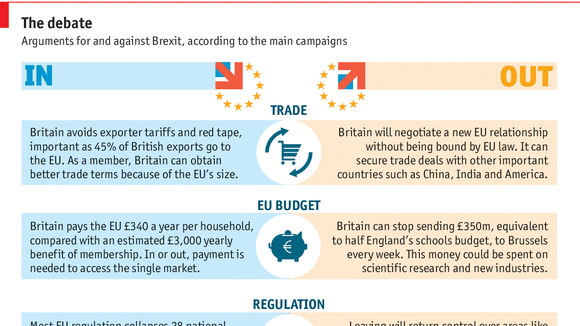












 The muscari (grape hyacinths) have arrived earlier than in previous years so are underpinning the daffodils as well as the frittelaria.
The muscari (grape hyacinths) have arrived earlier than in previous years so are underpinning the daffodils as well as the frittelaria.








